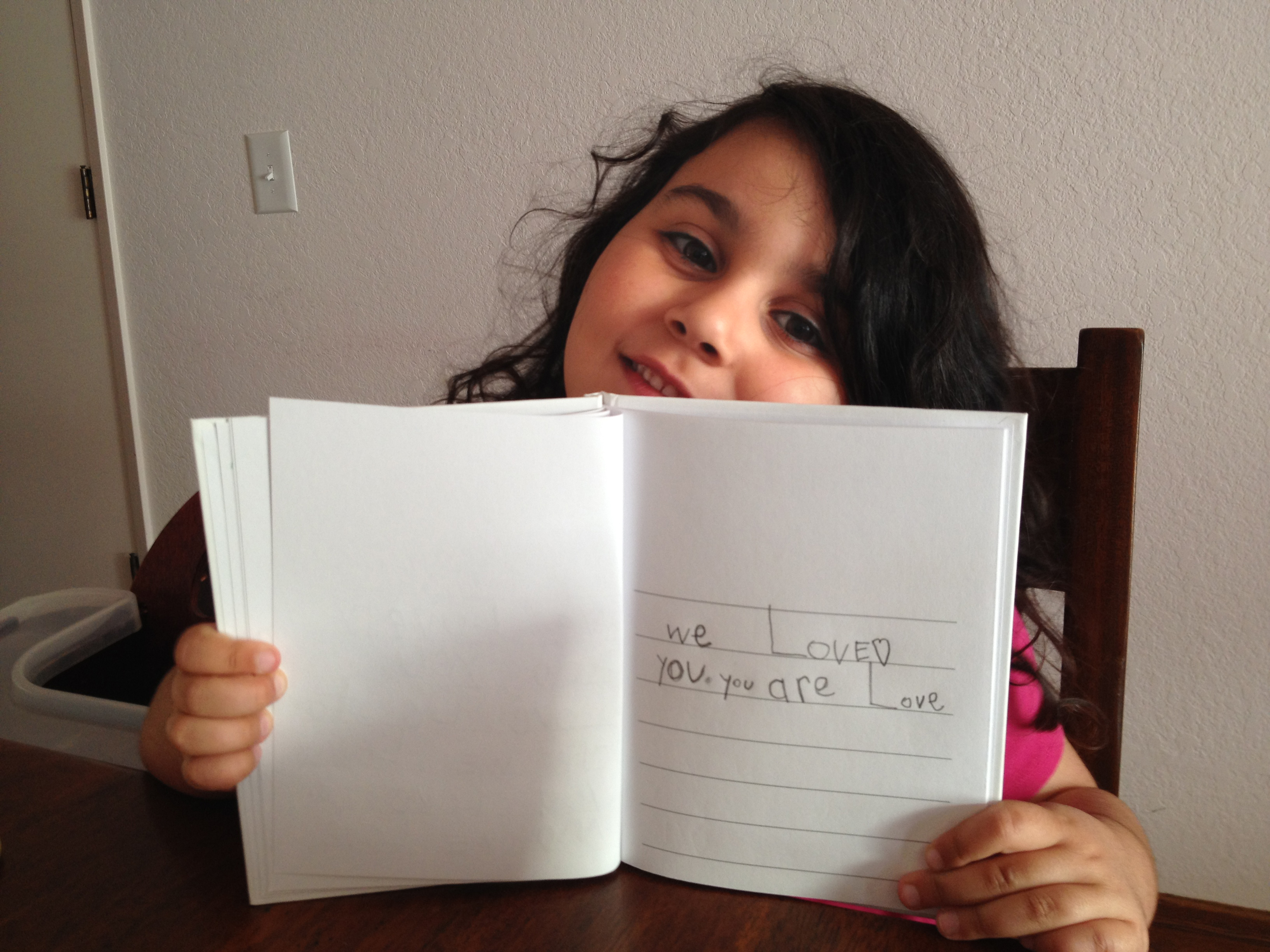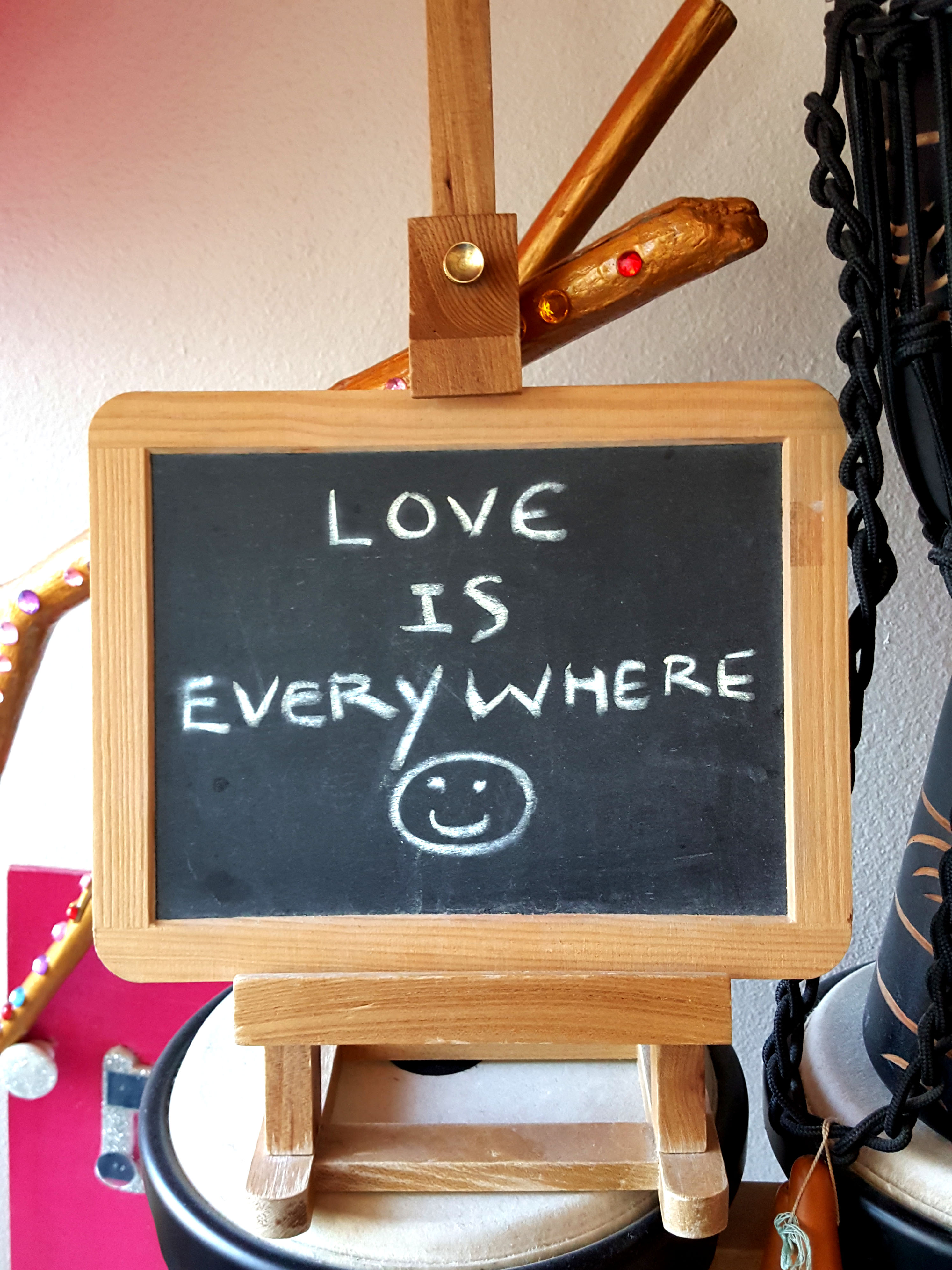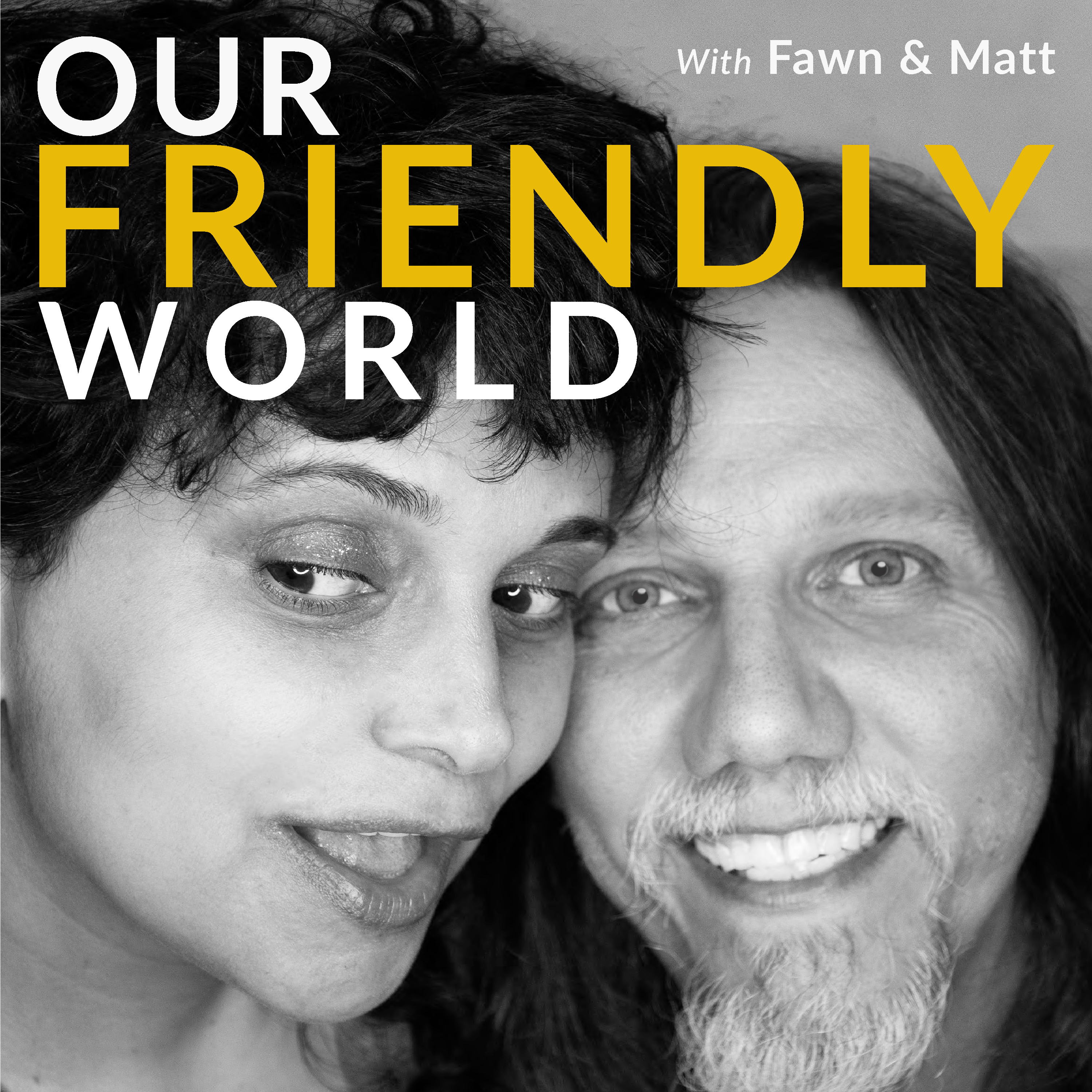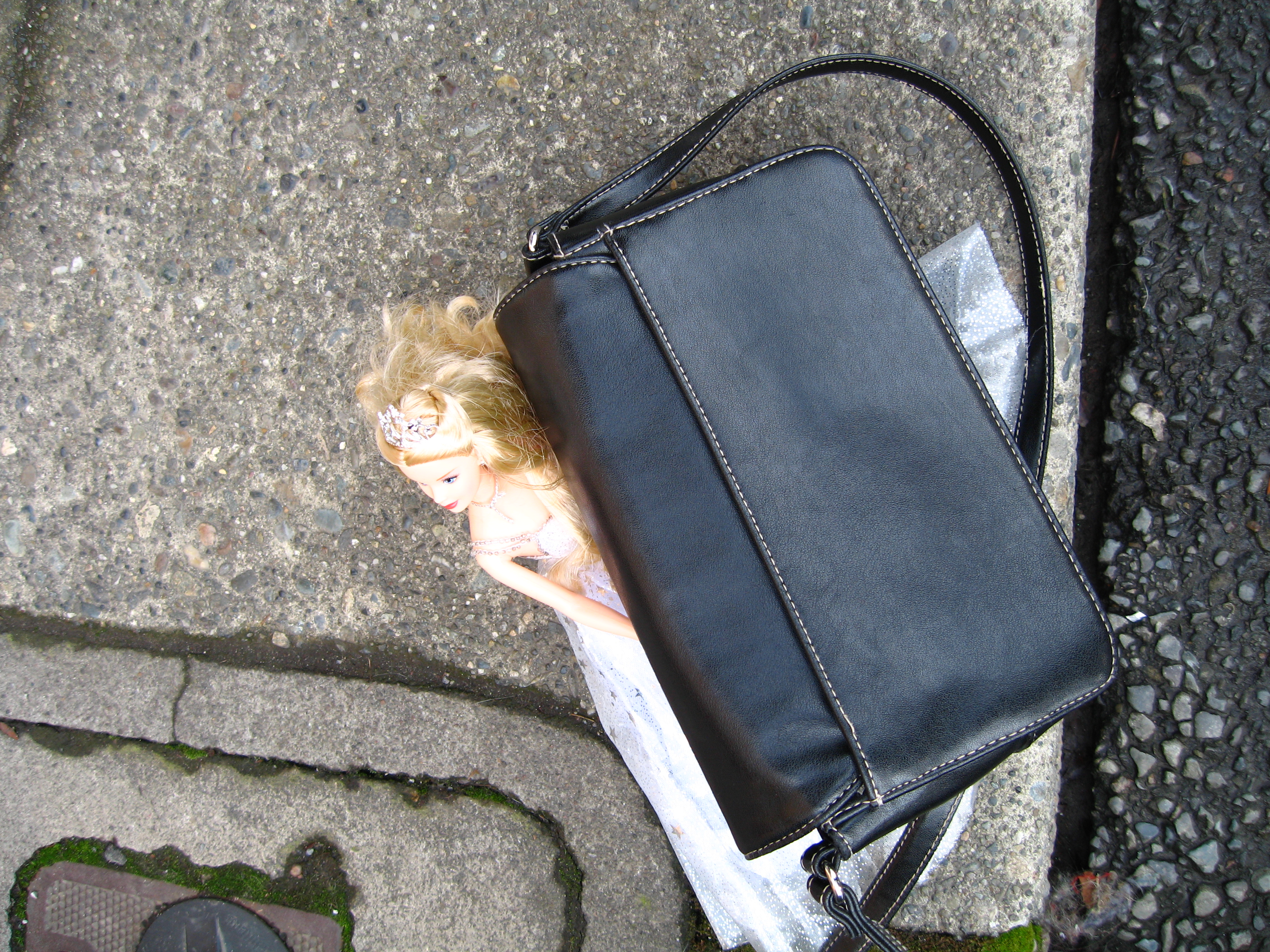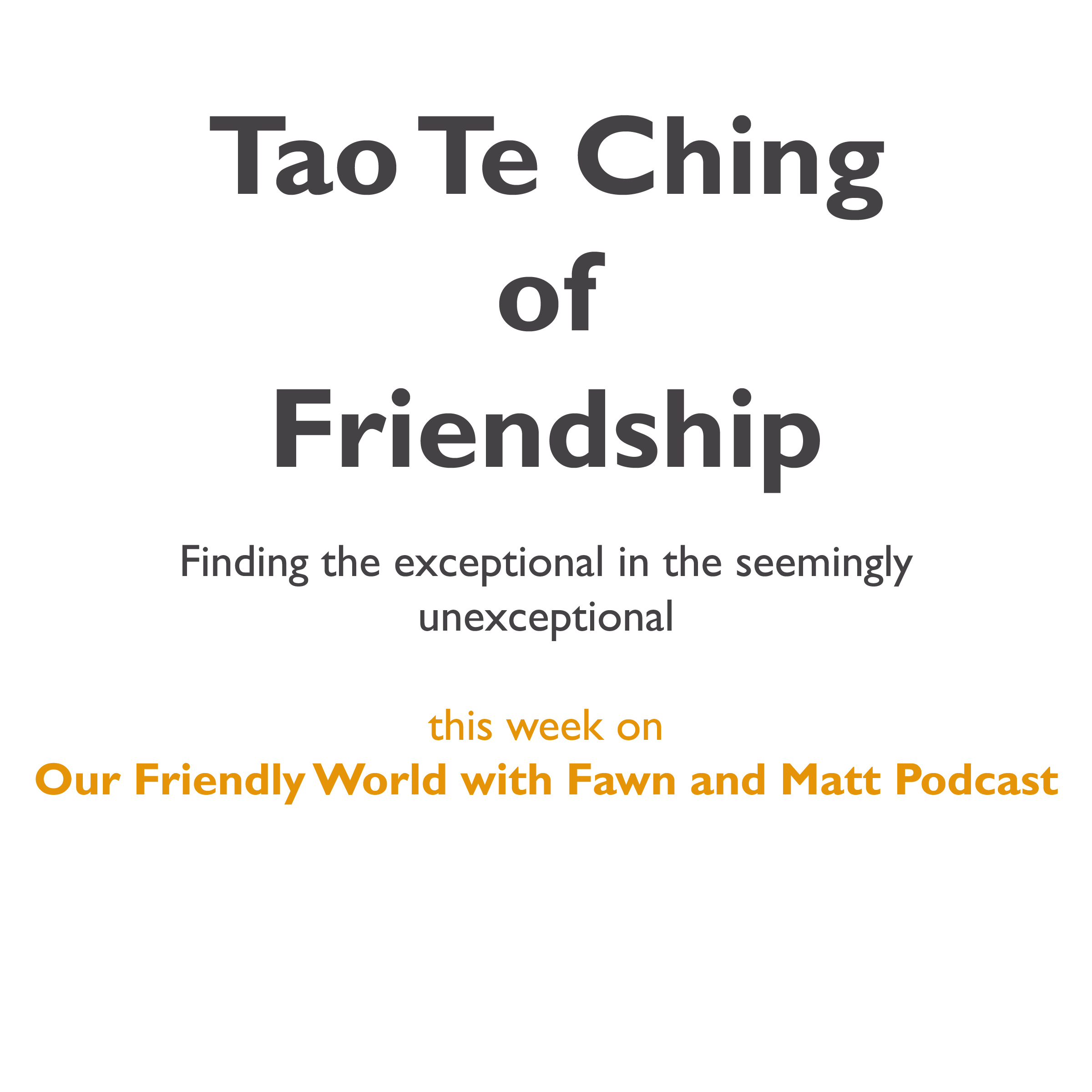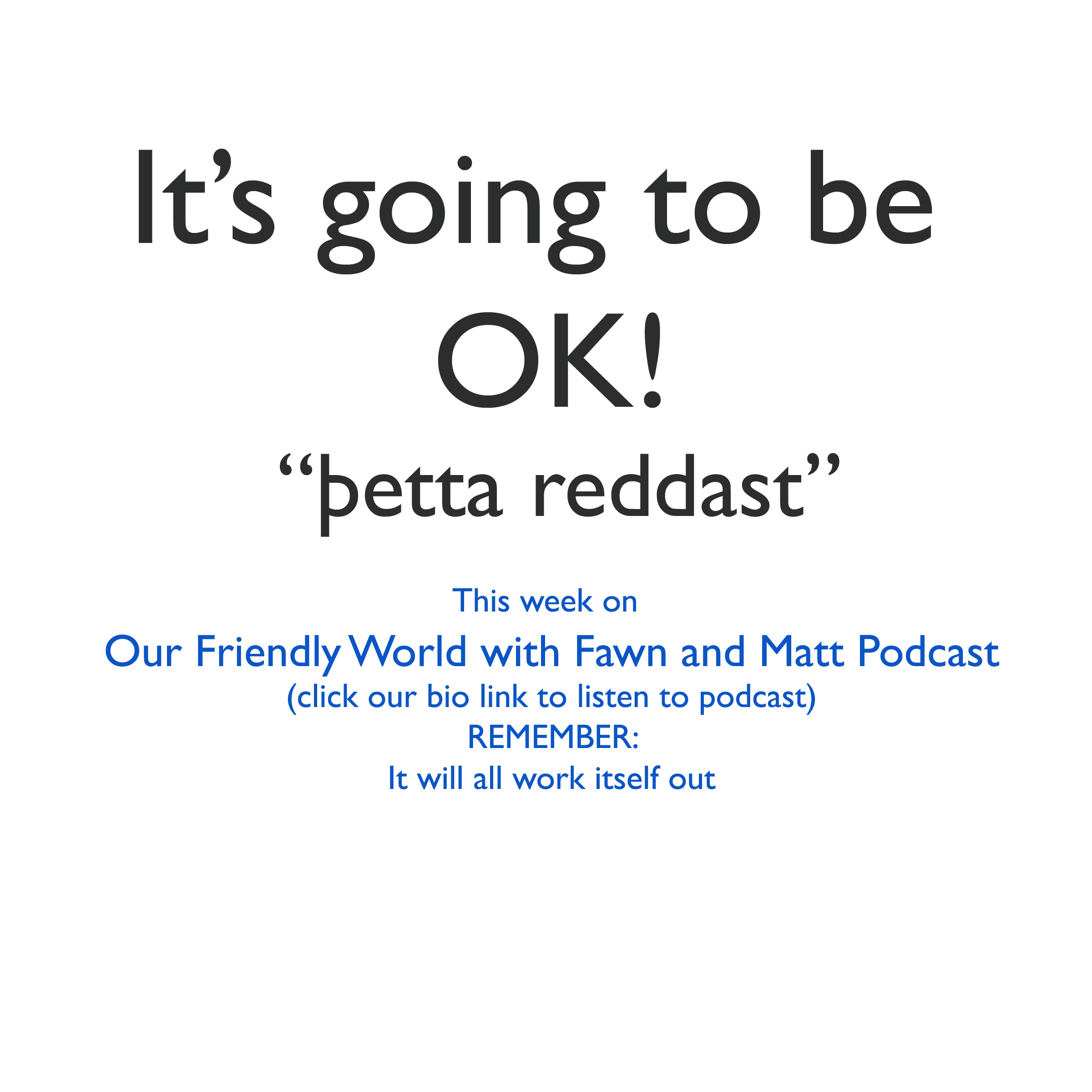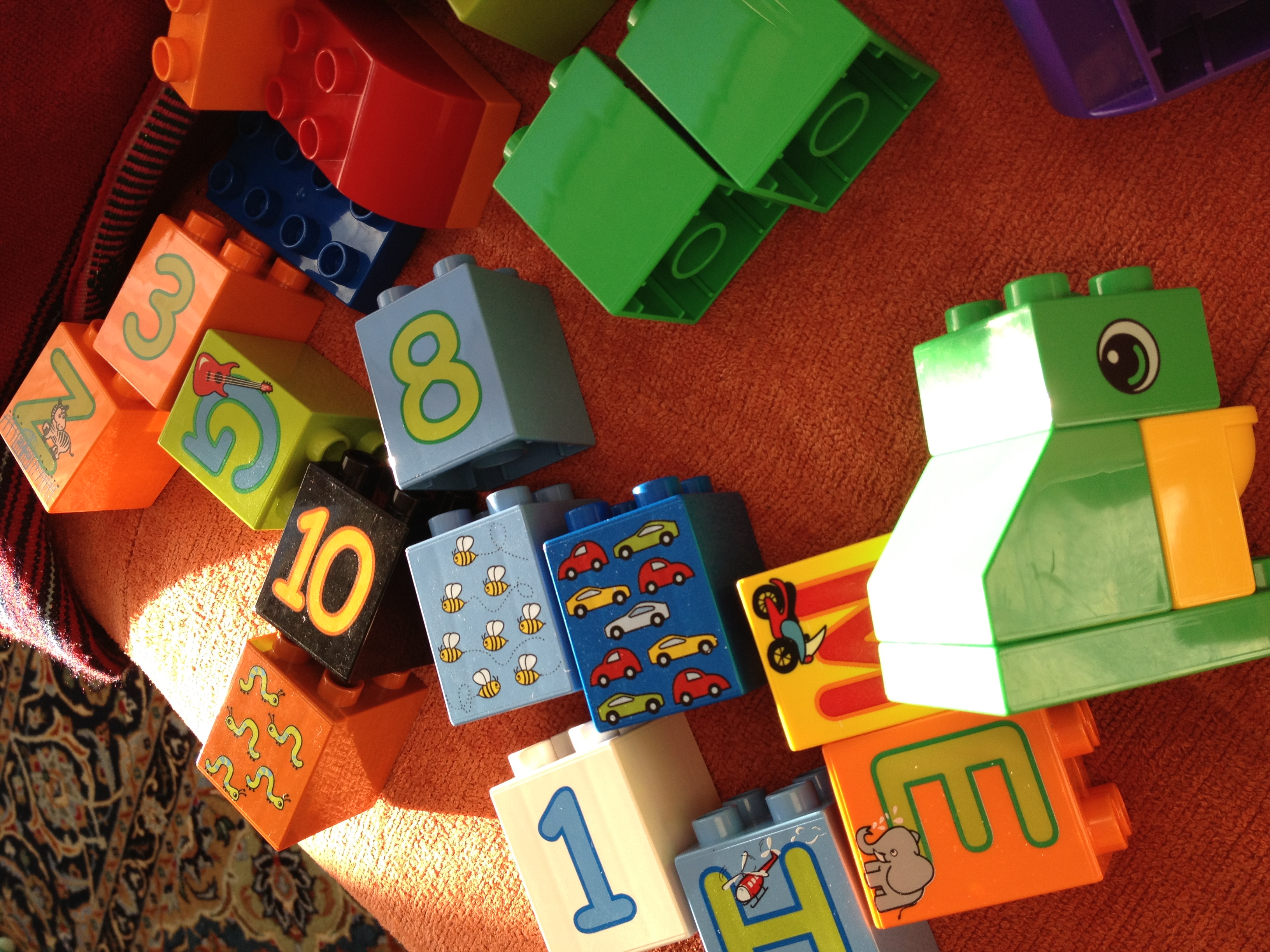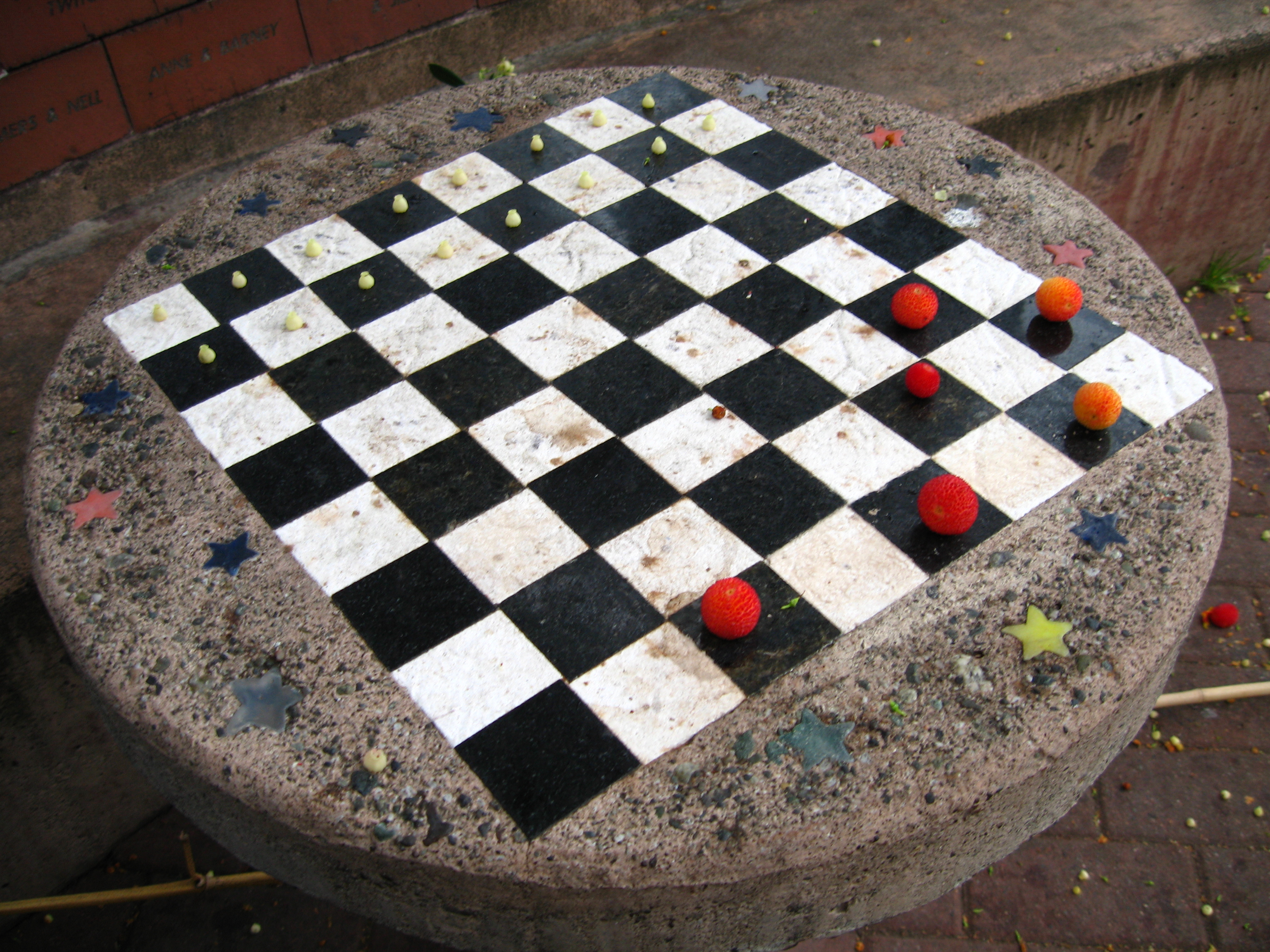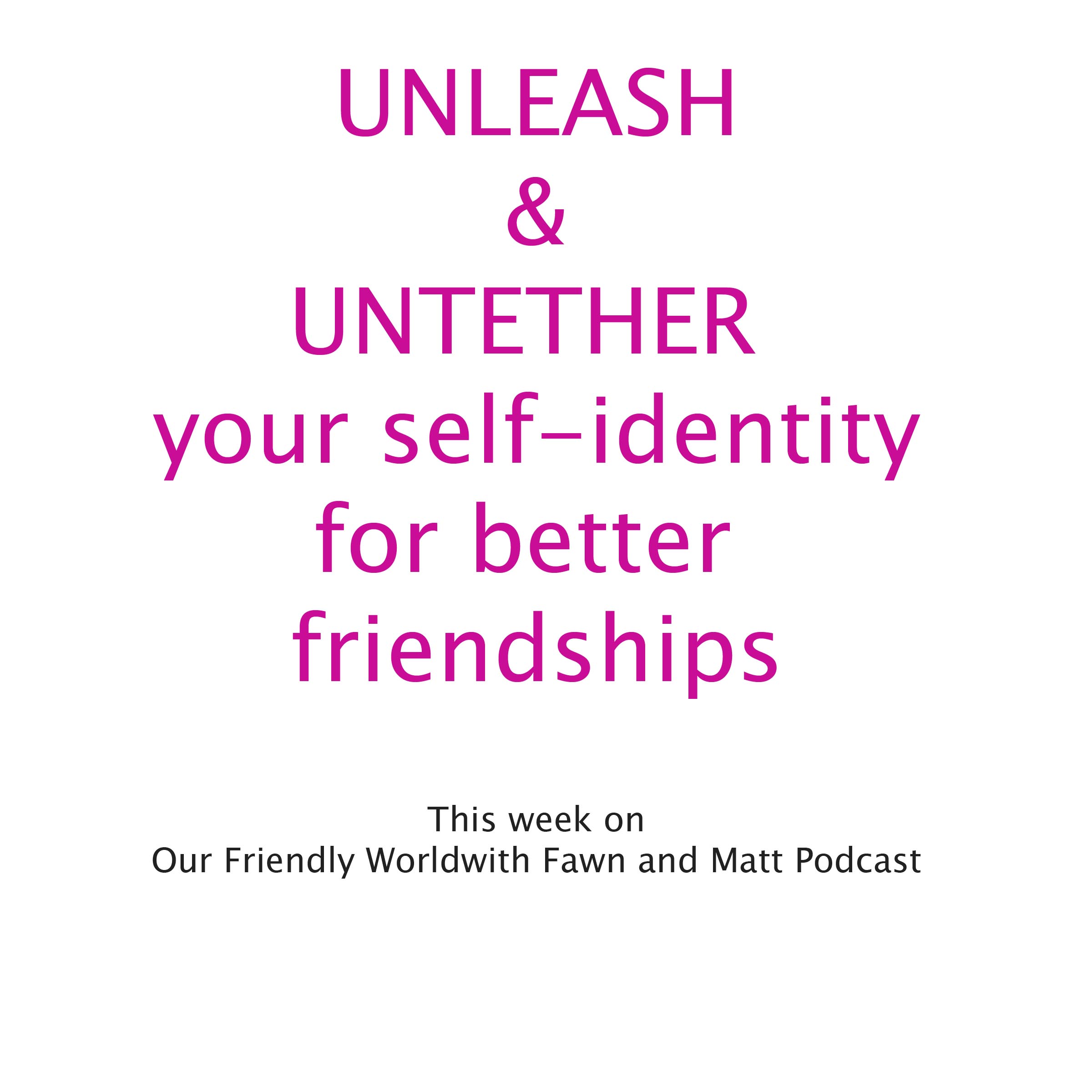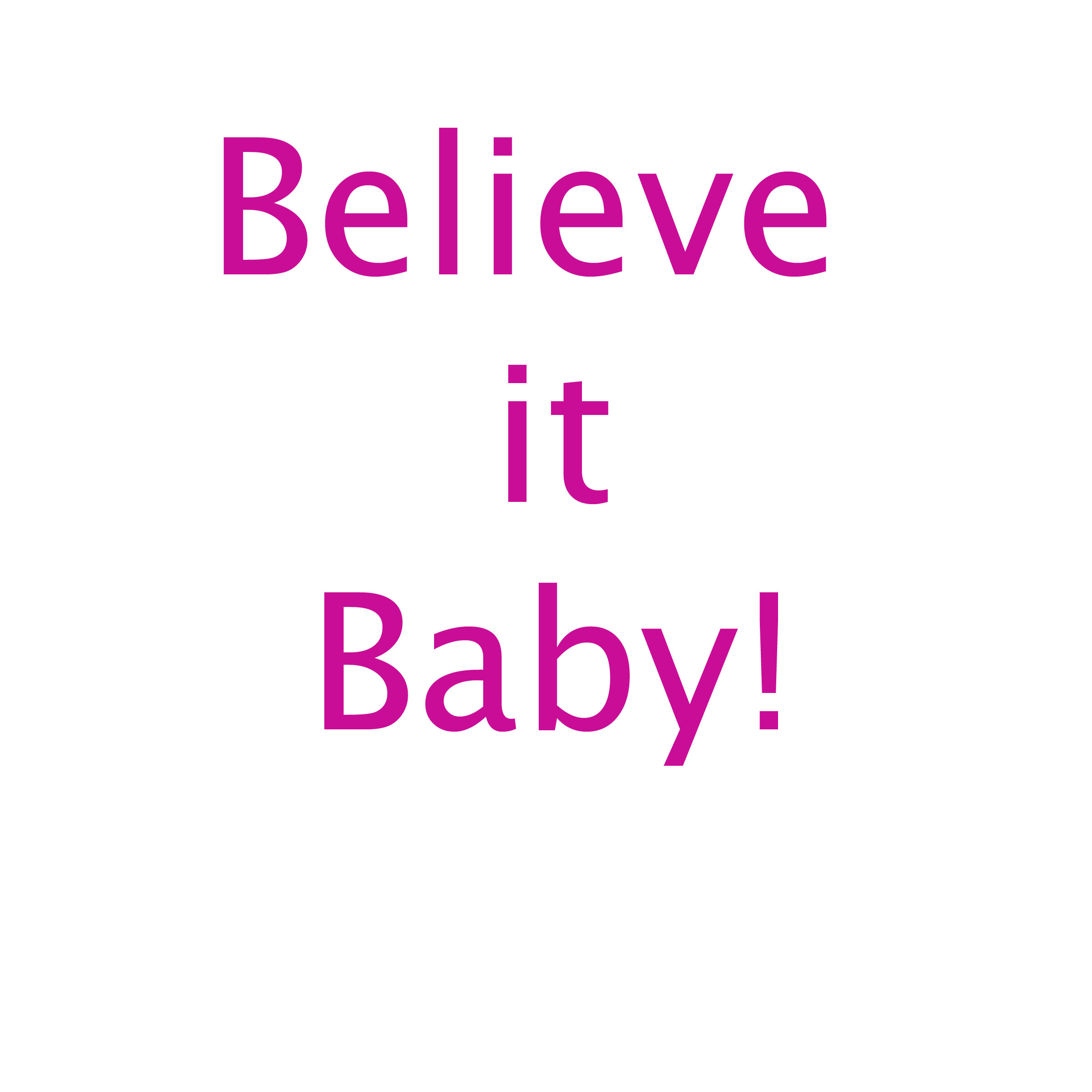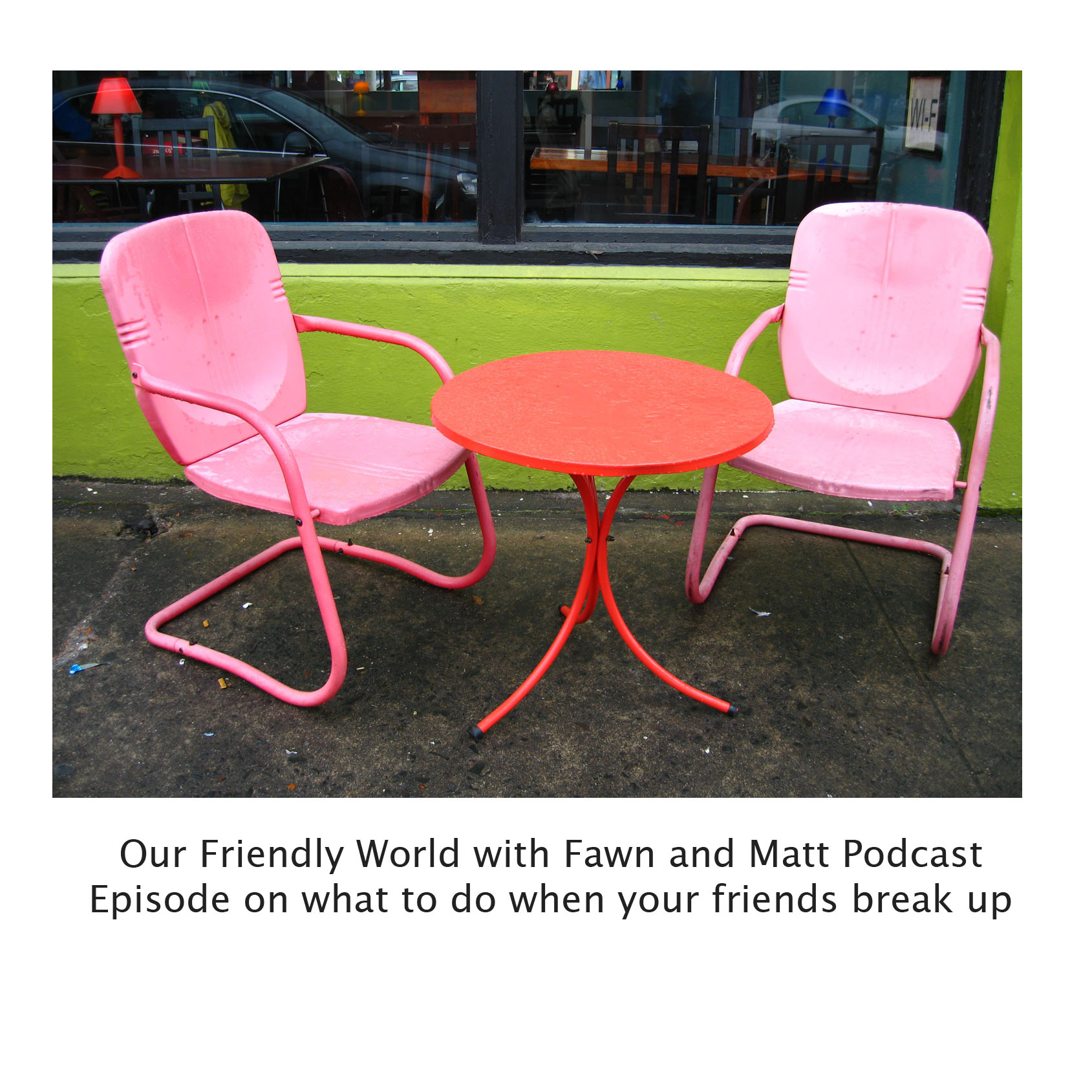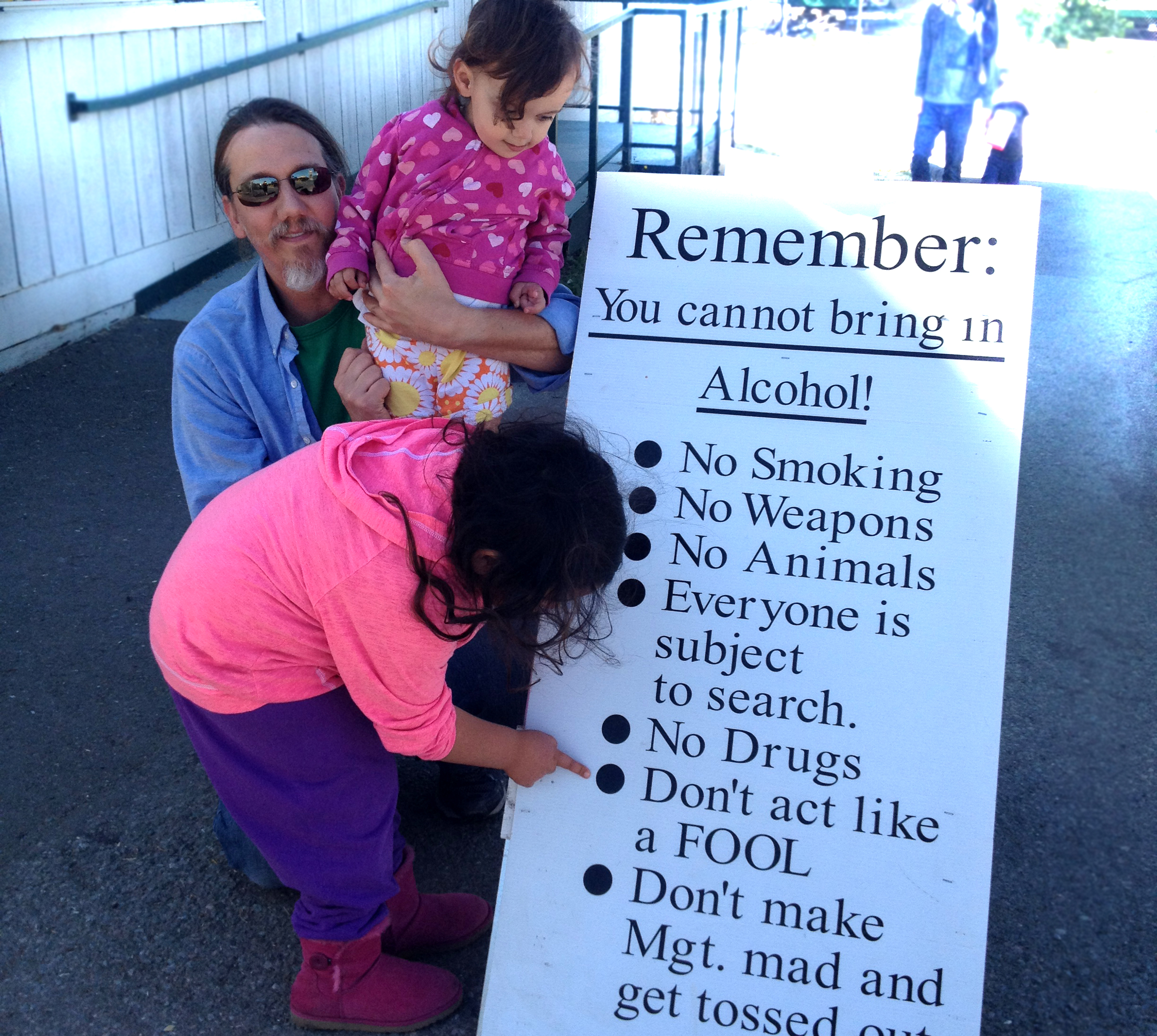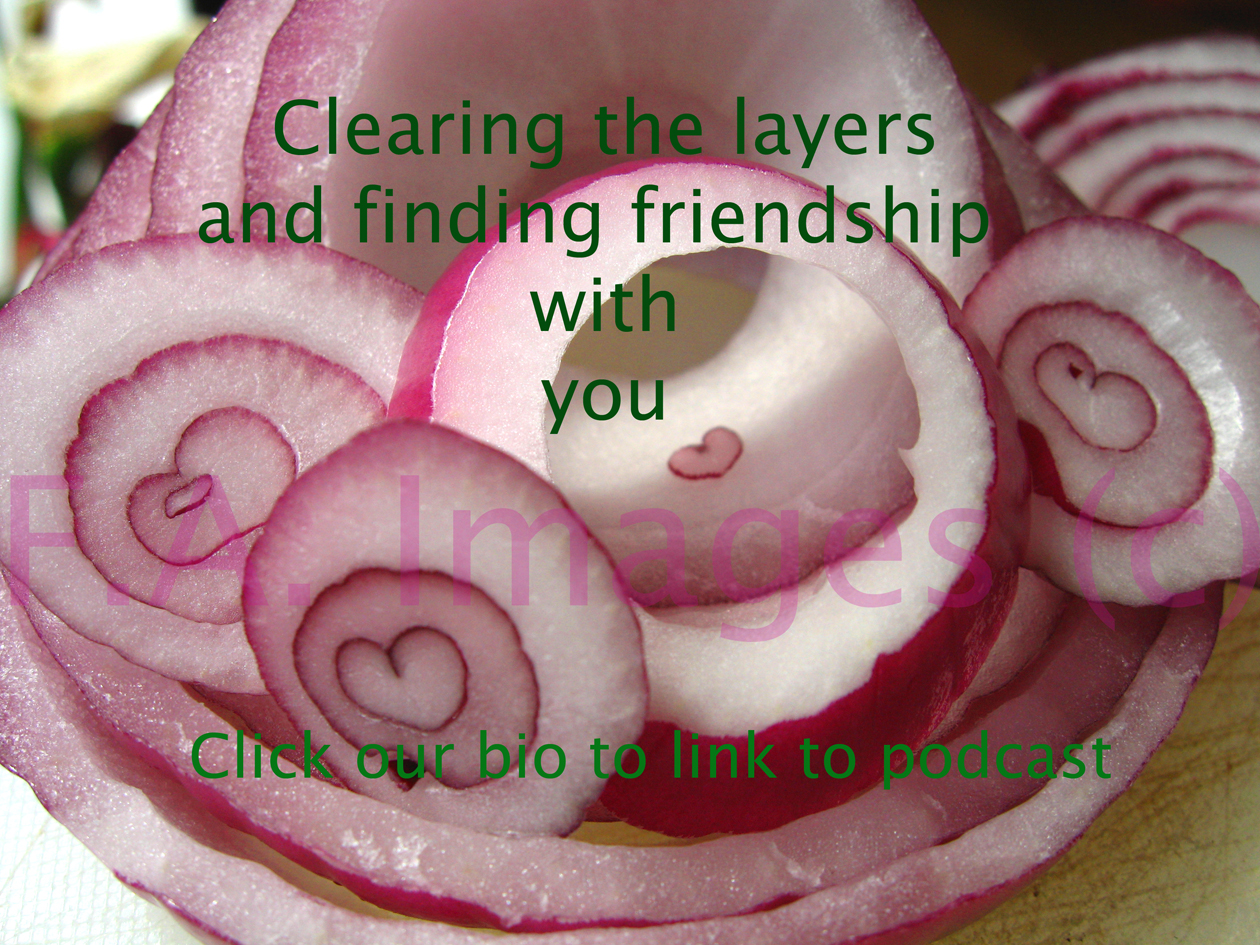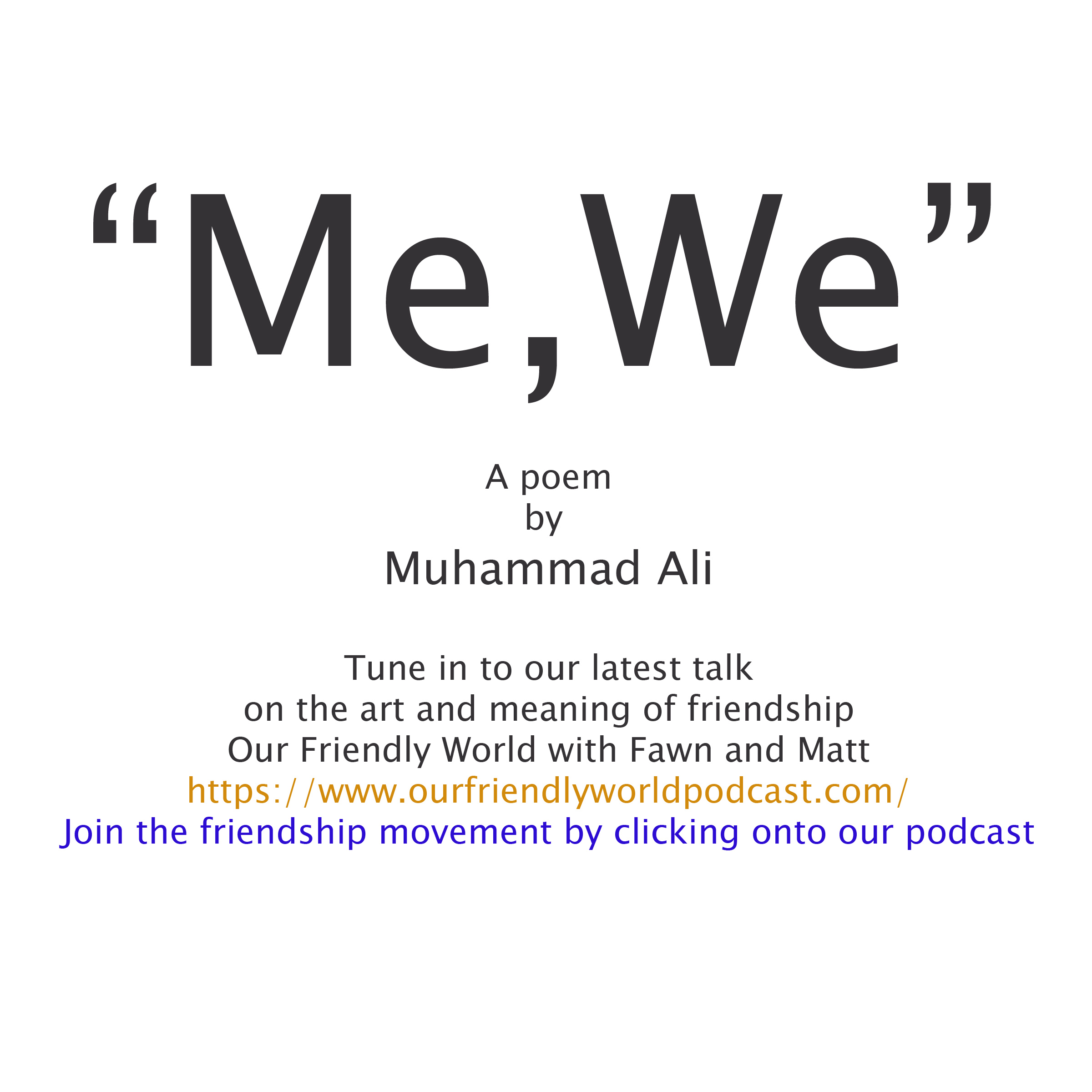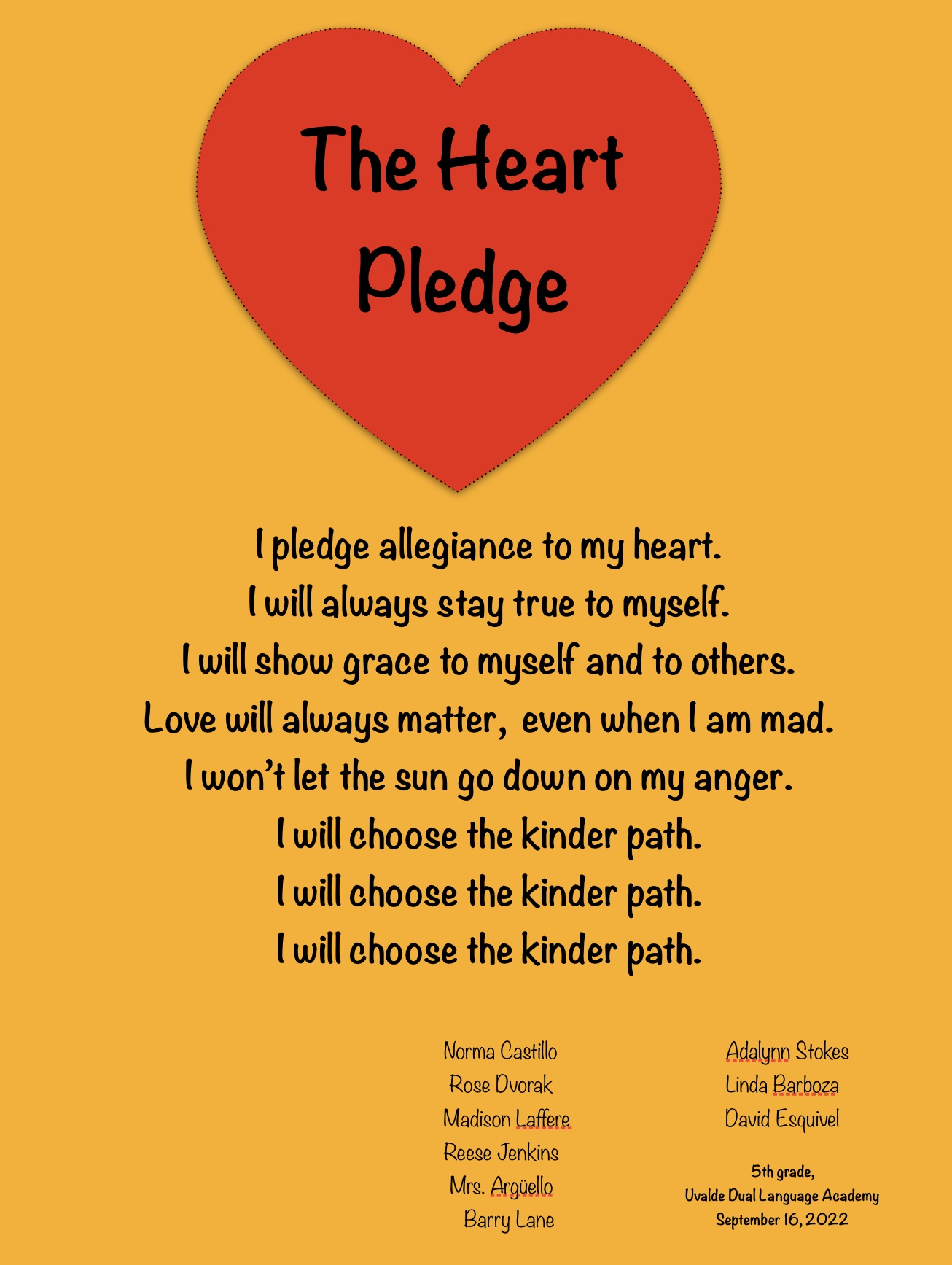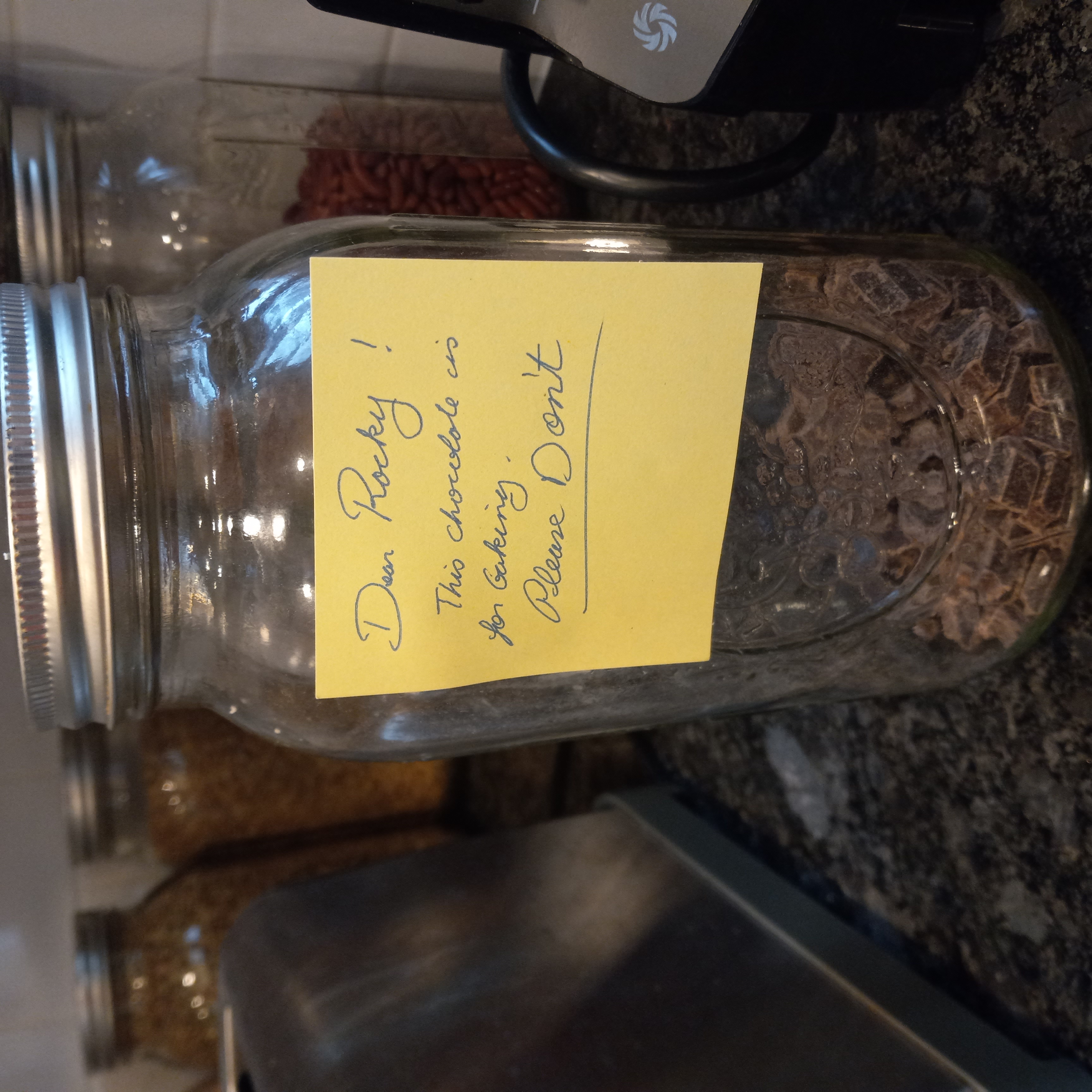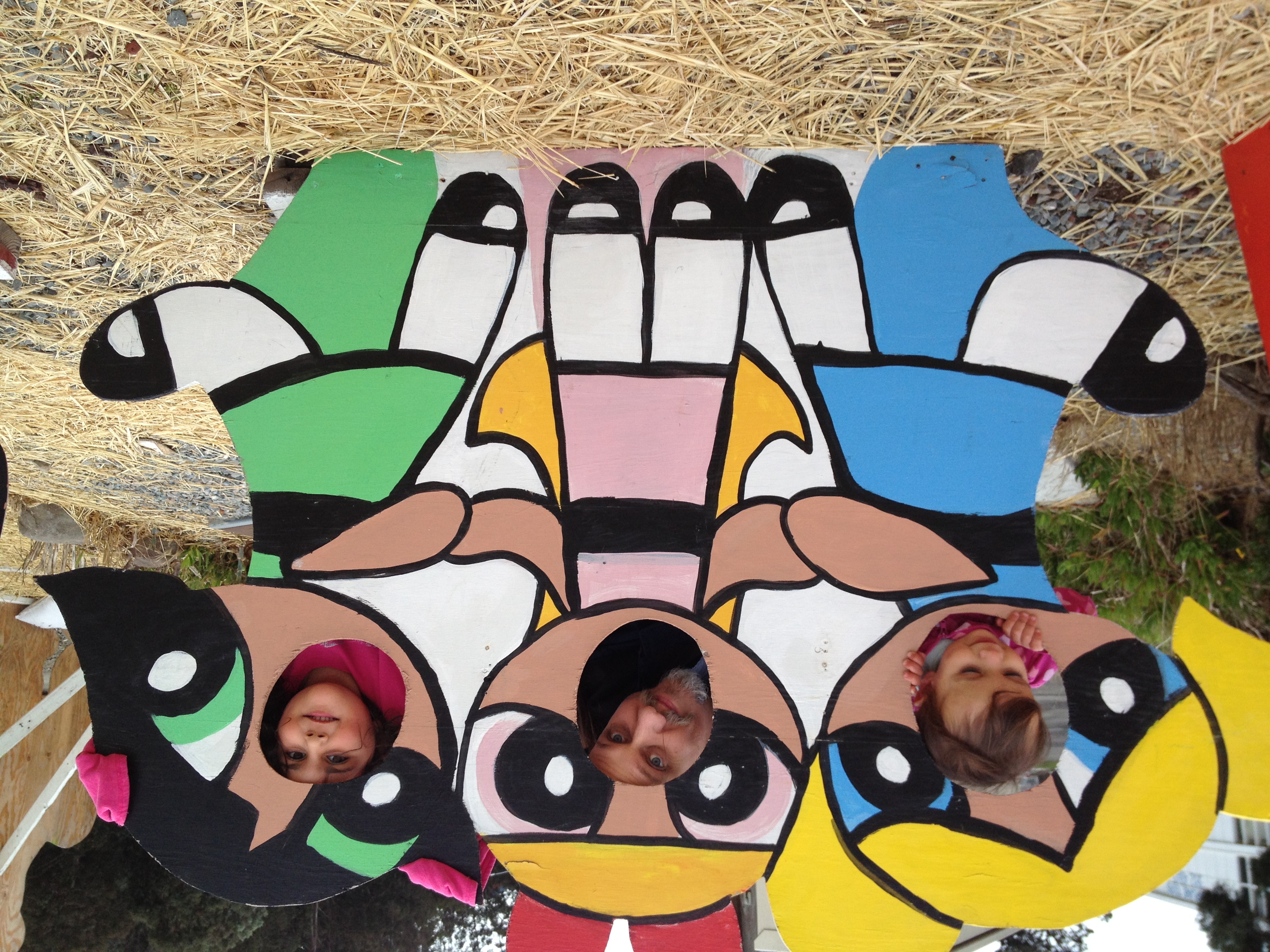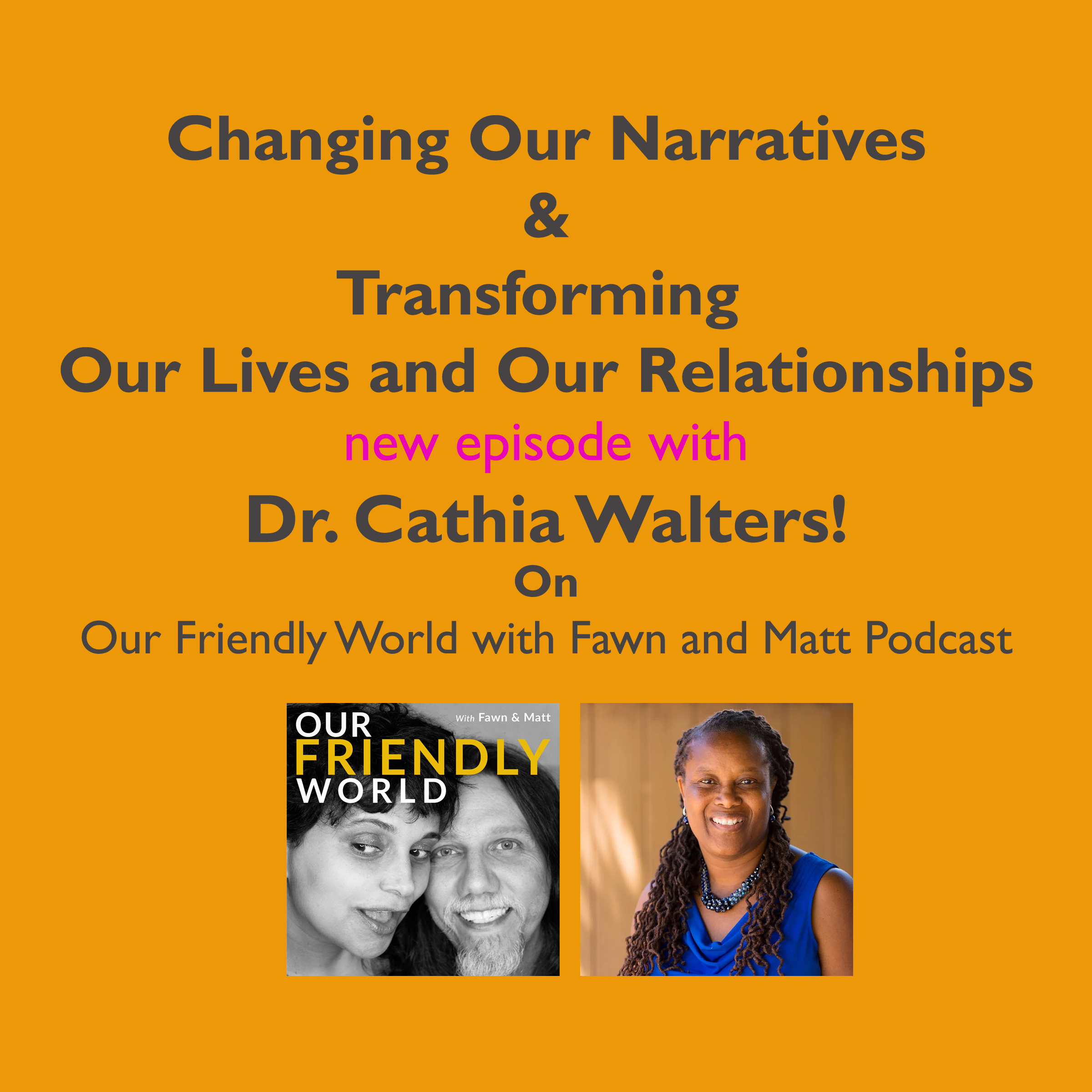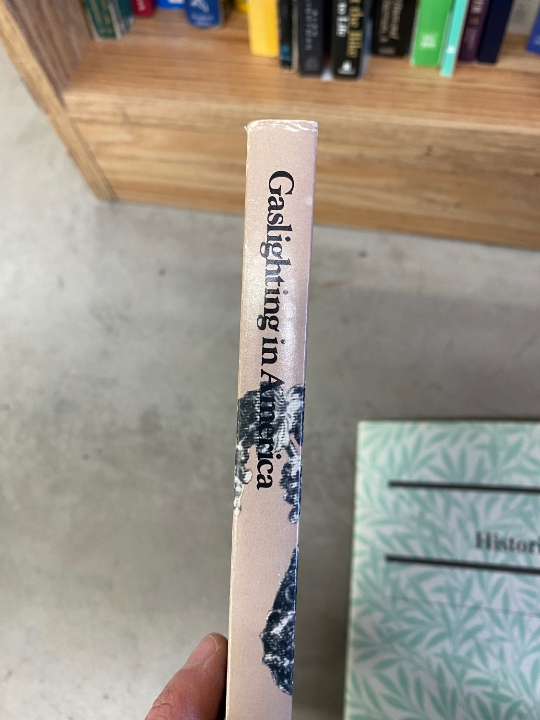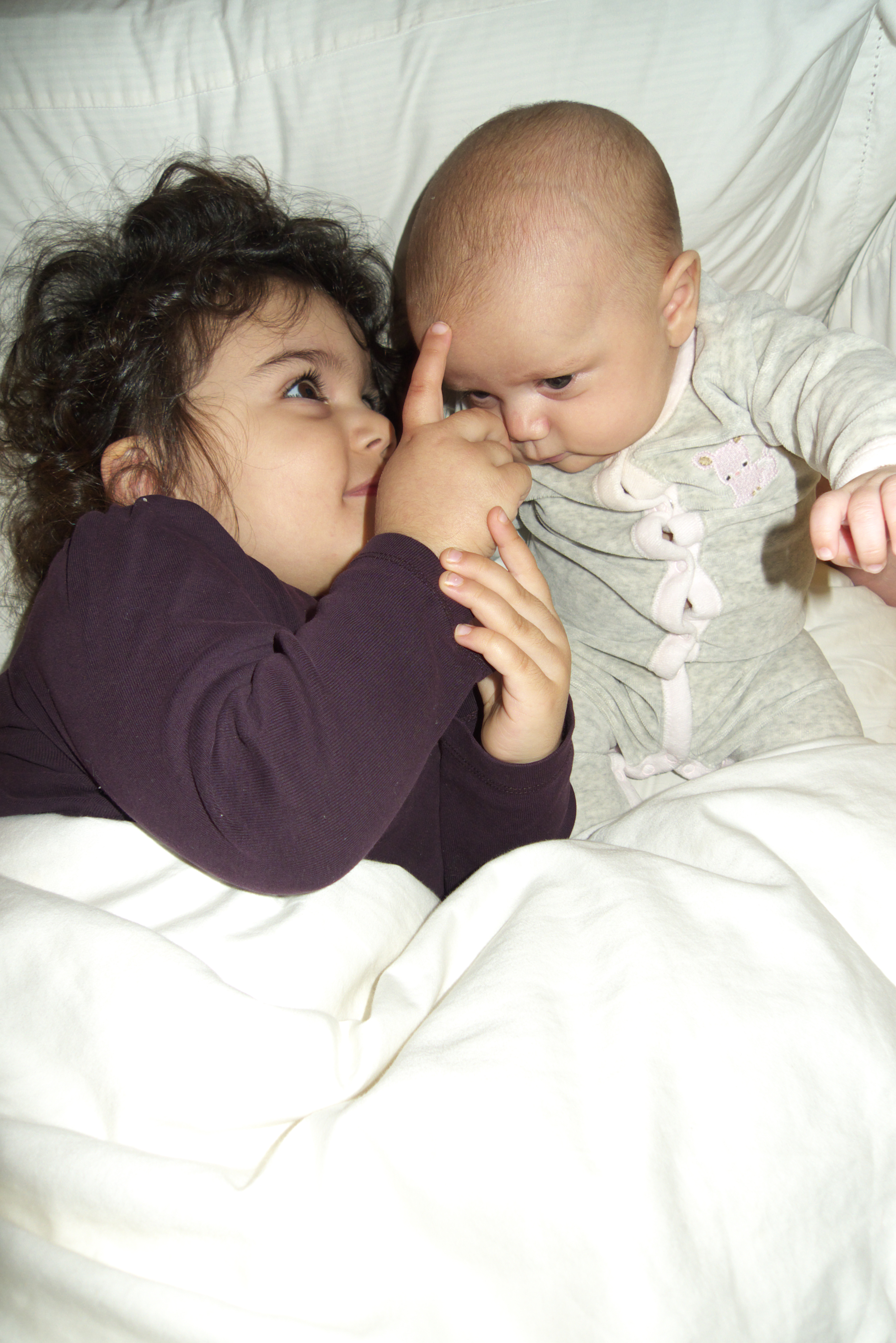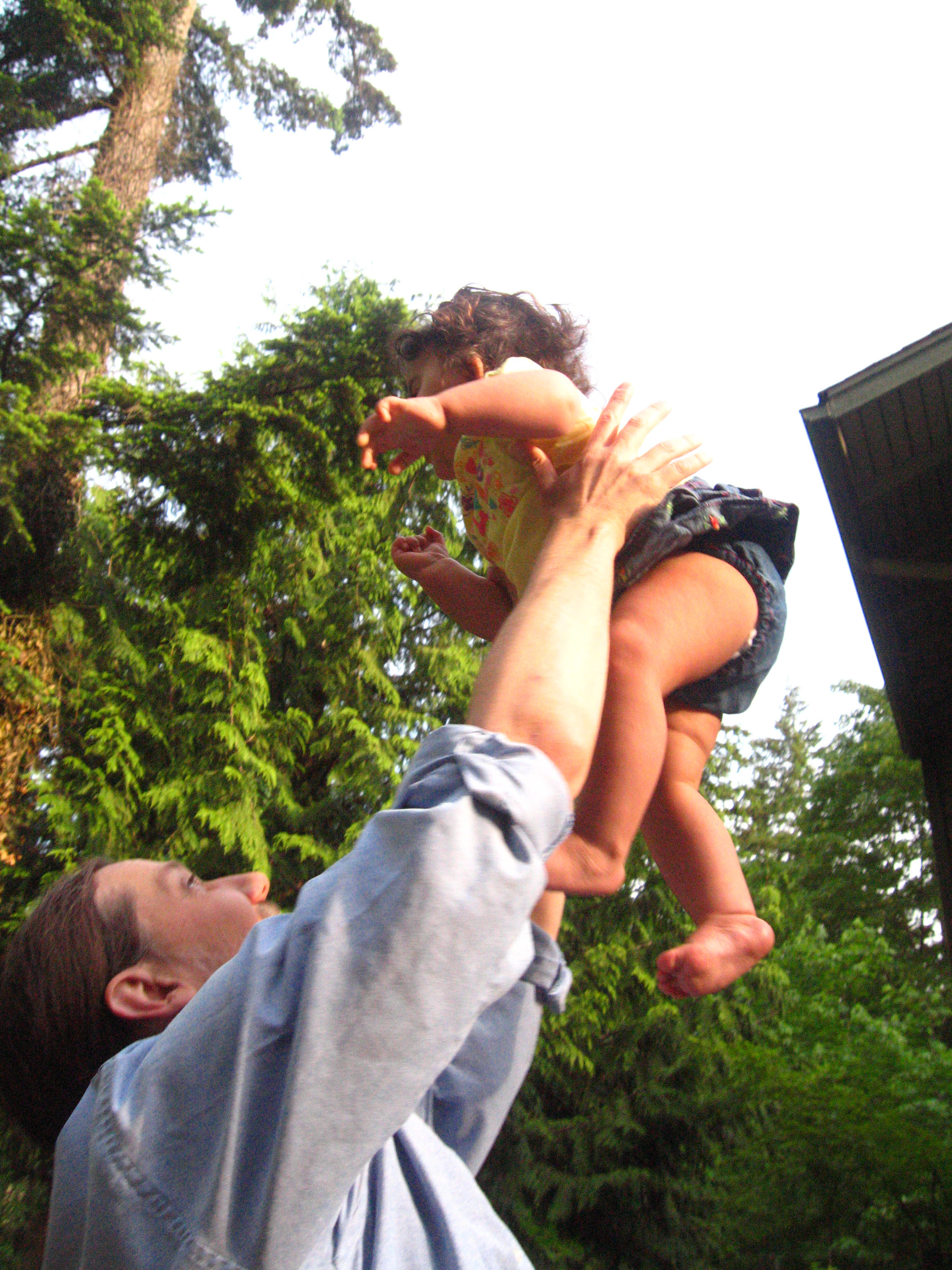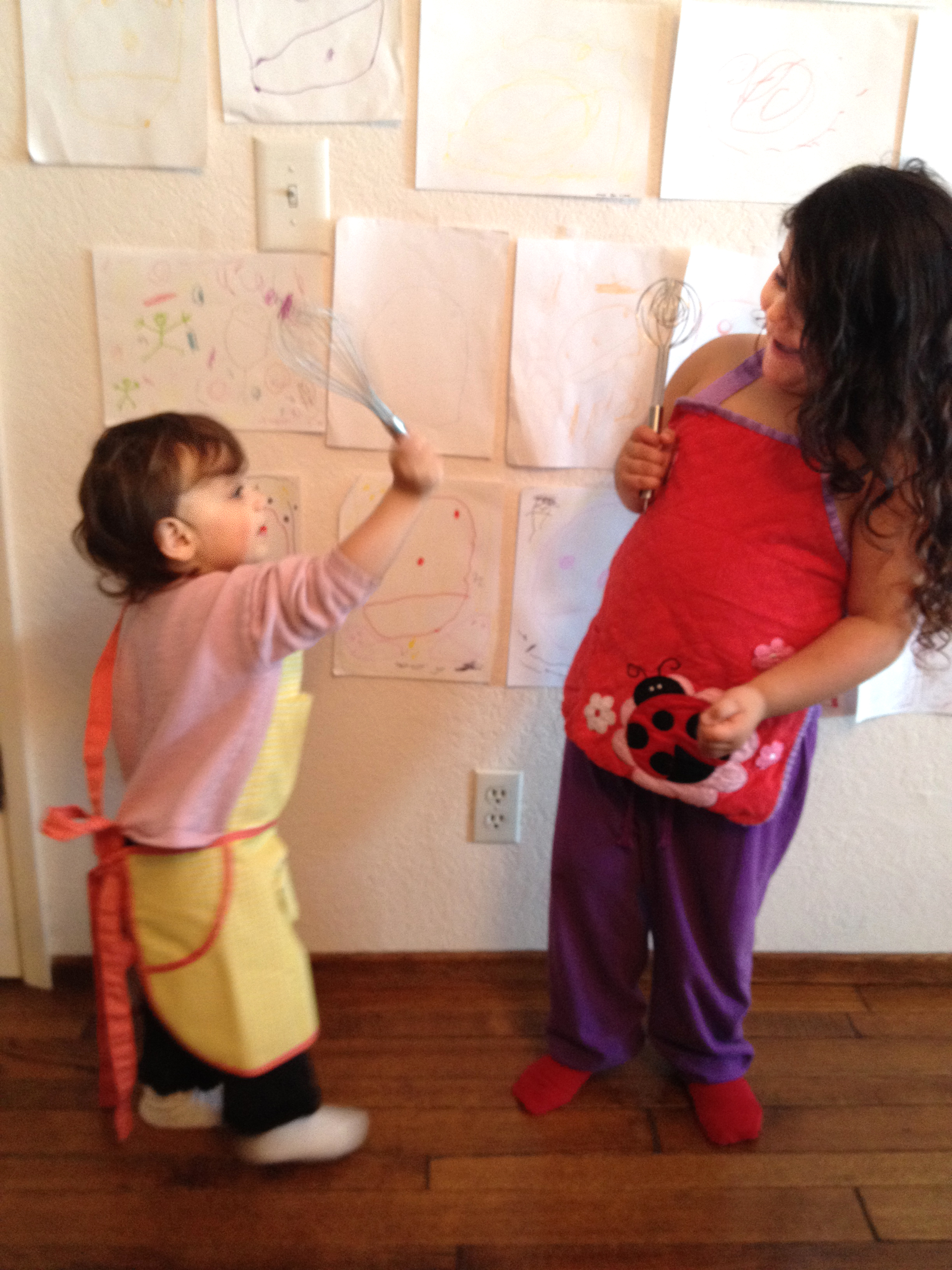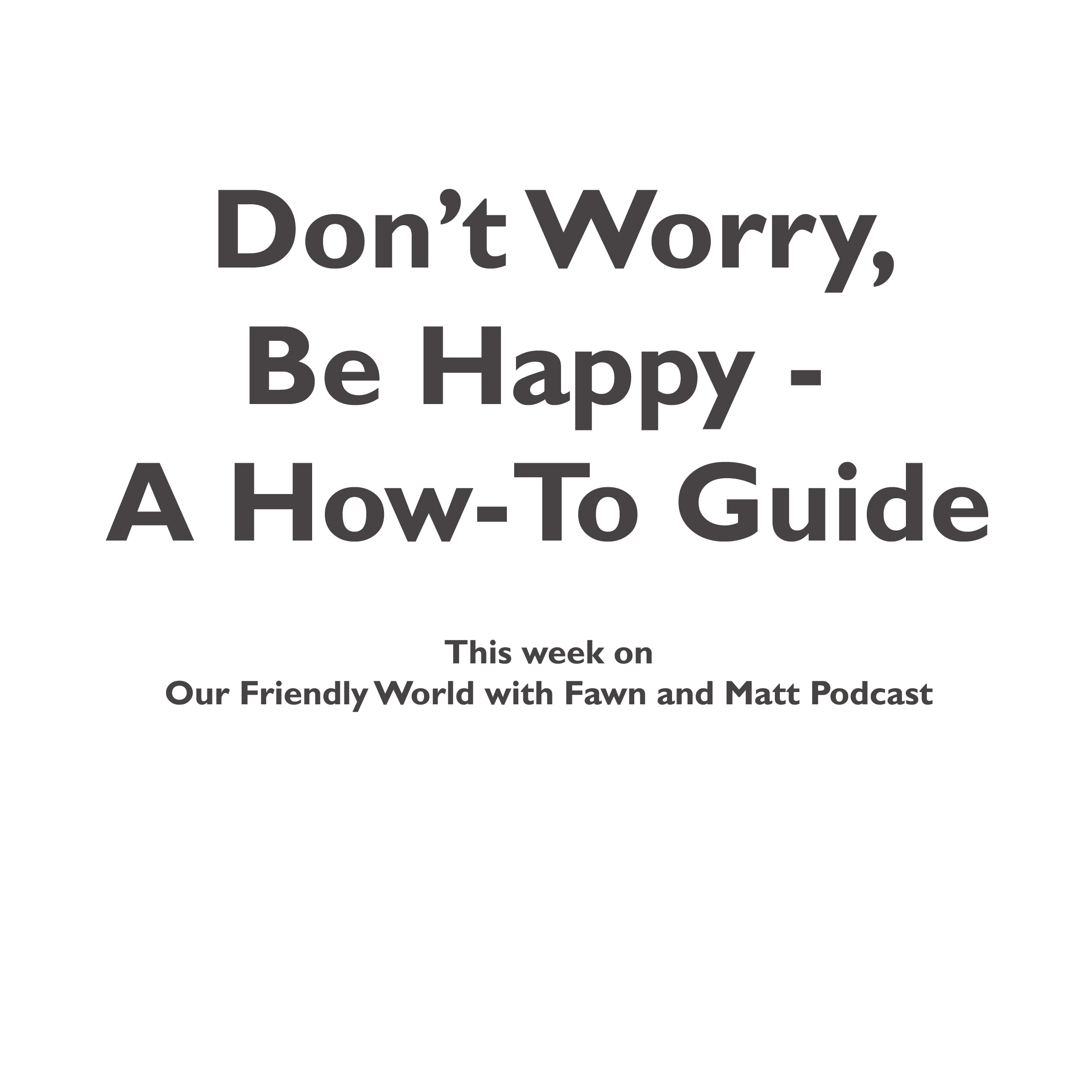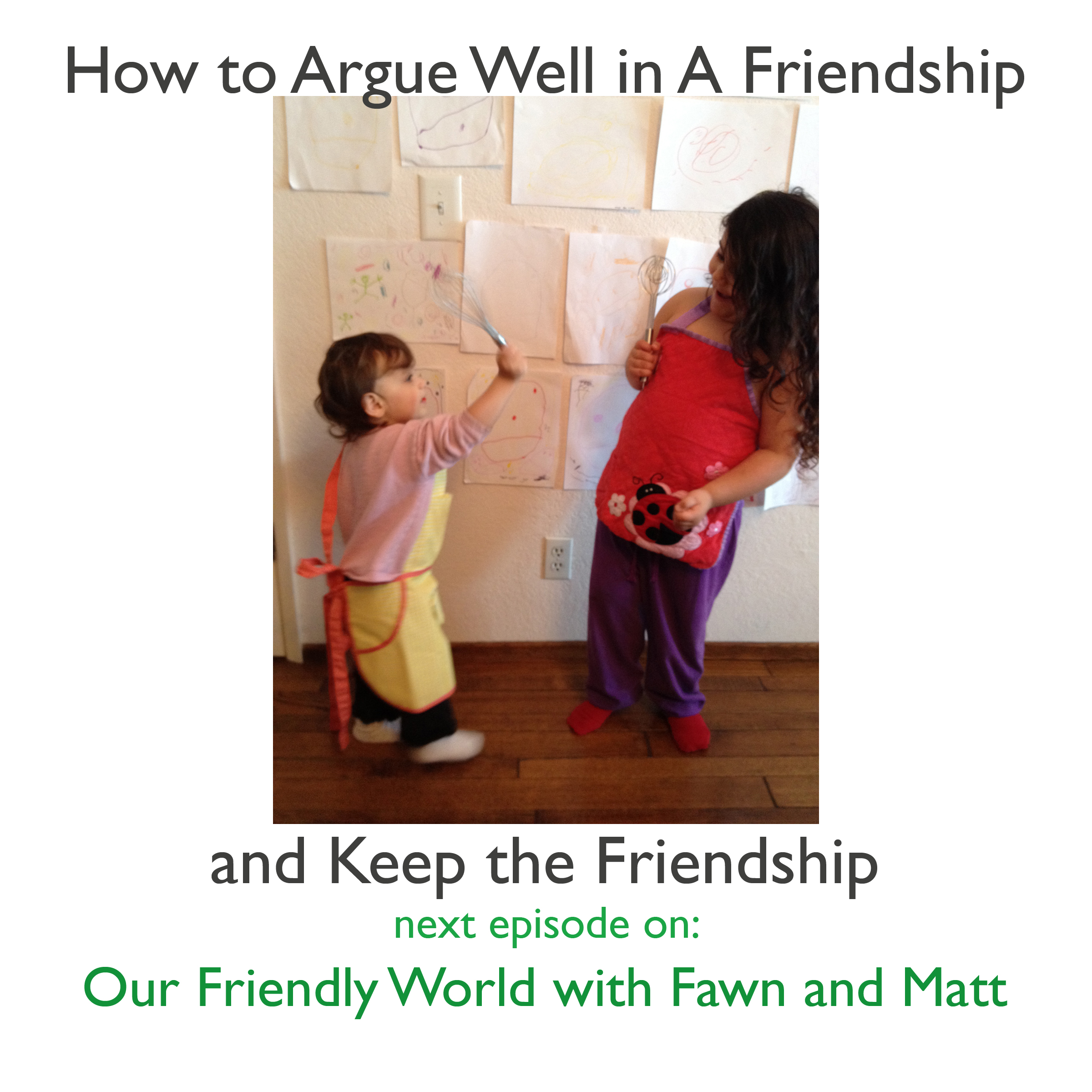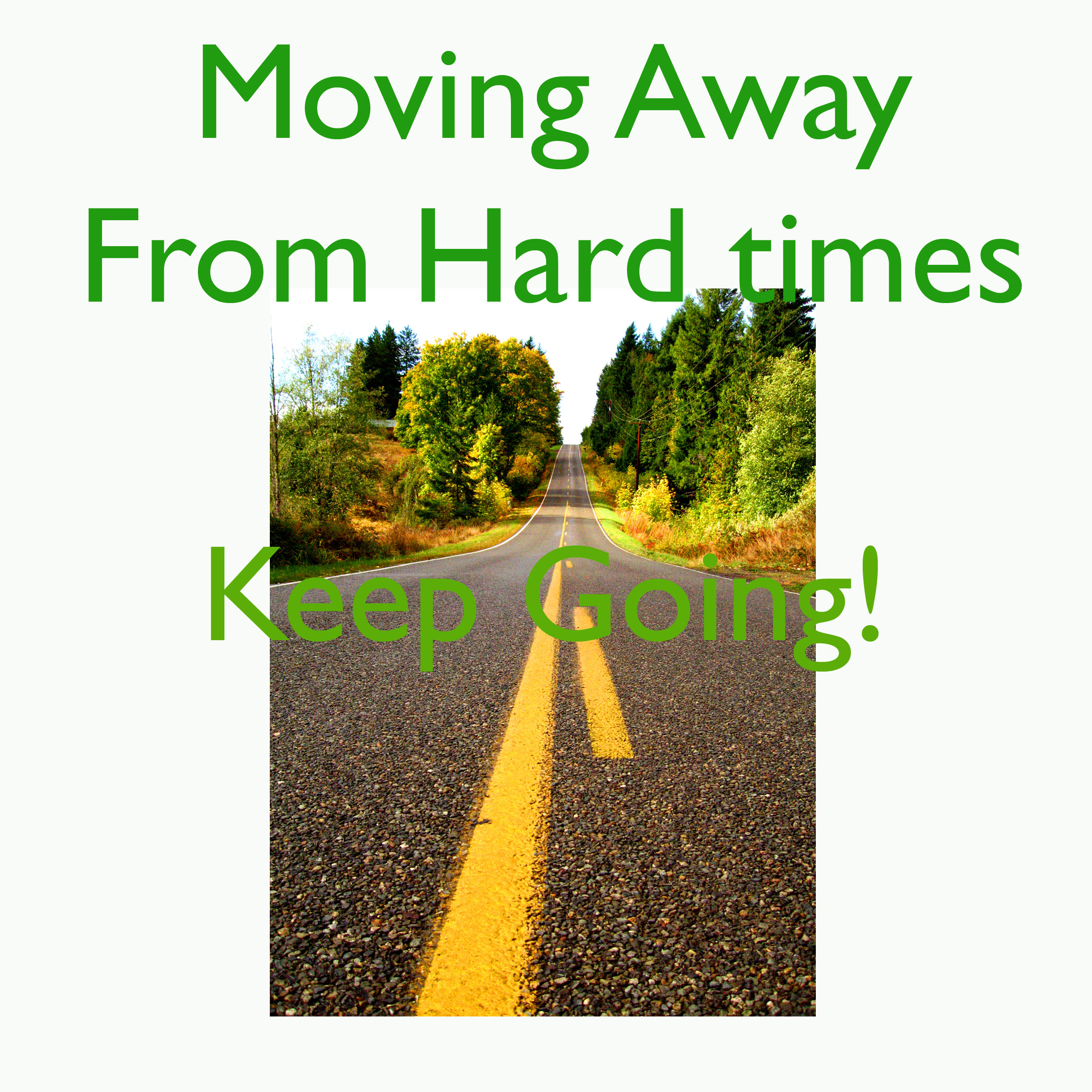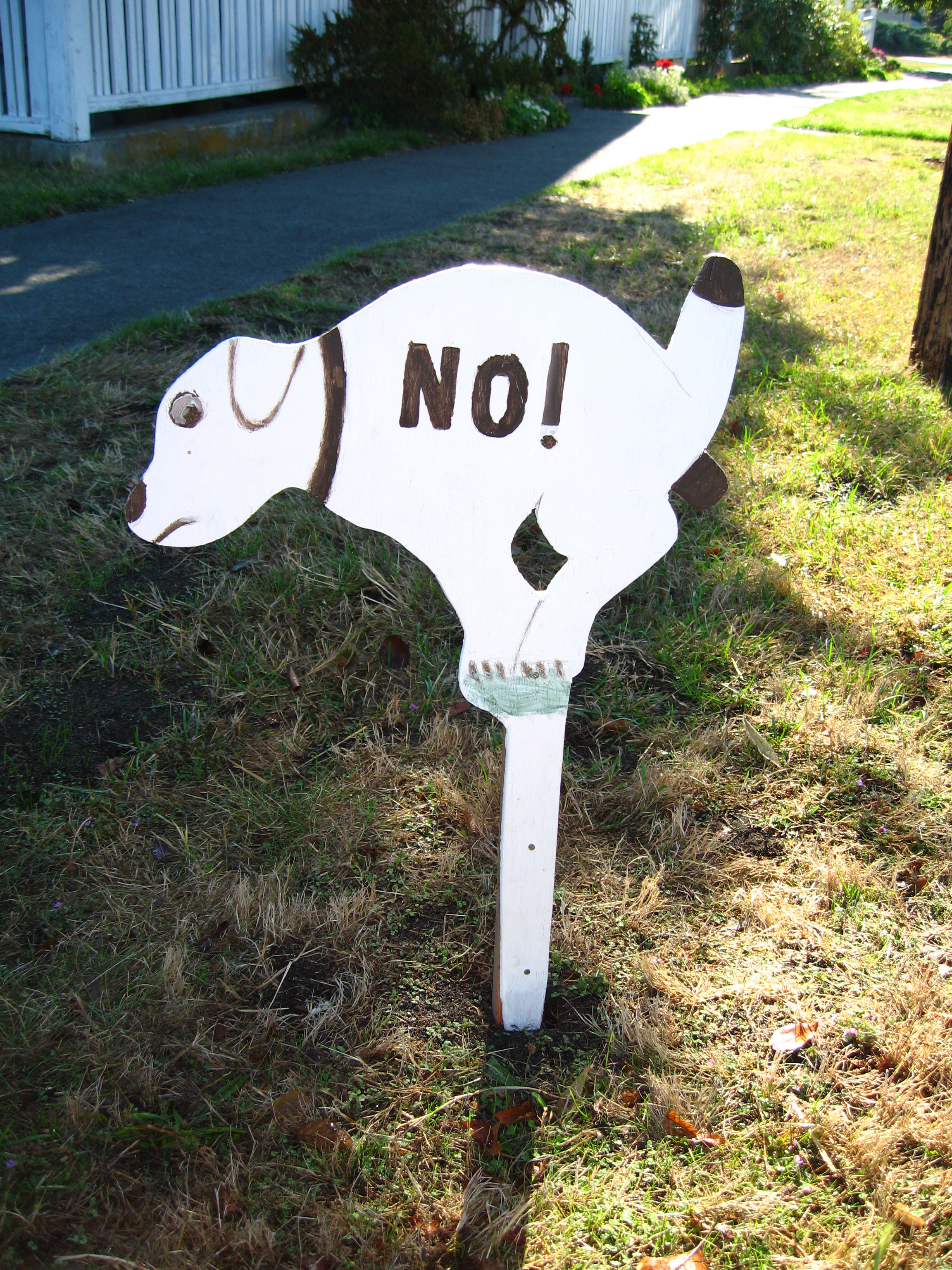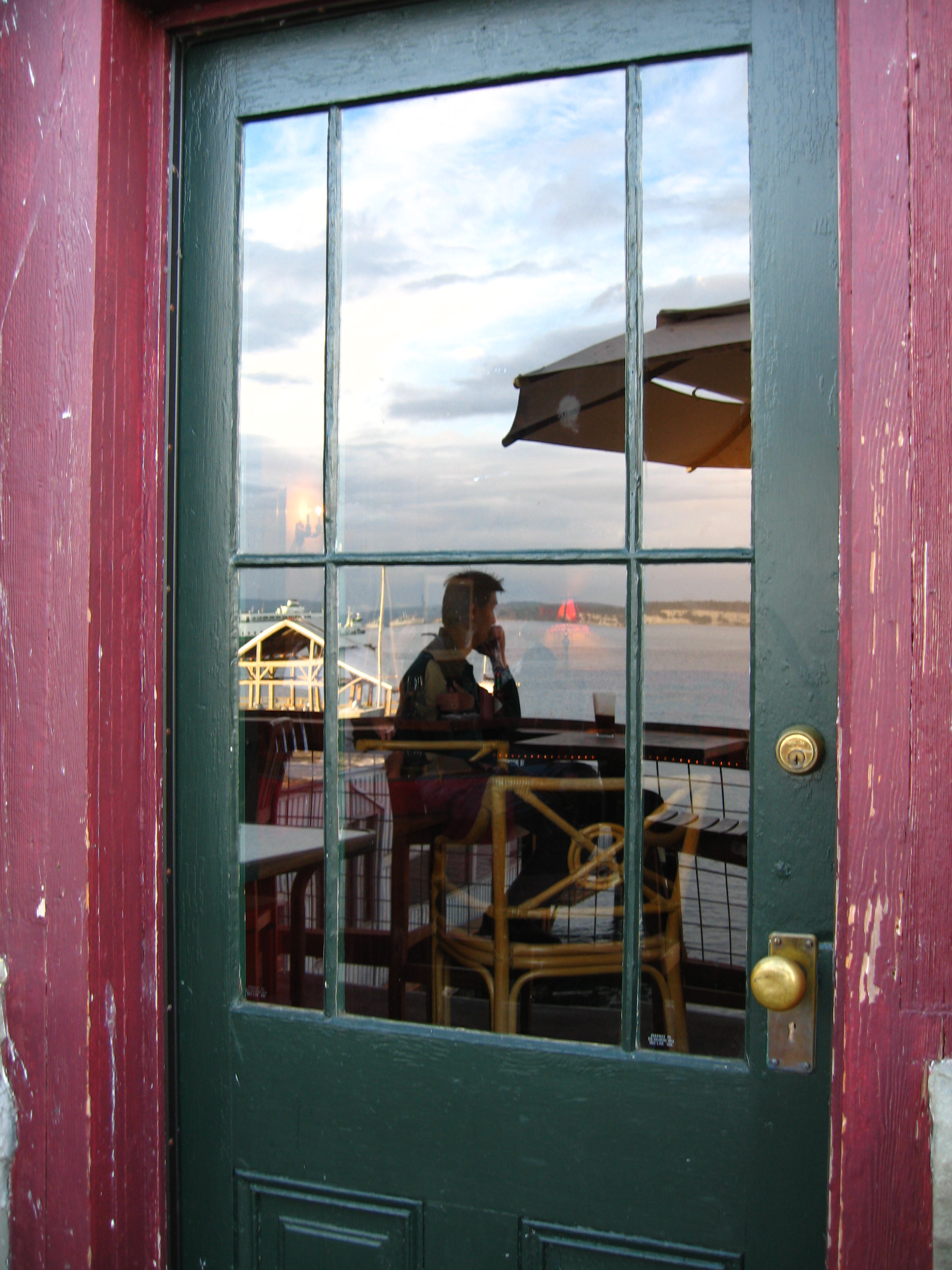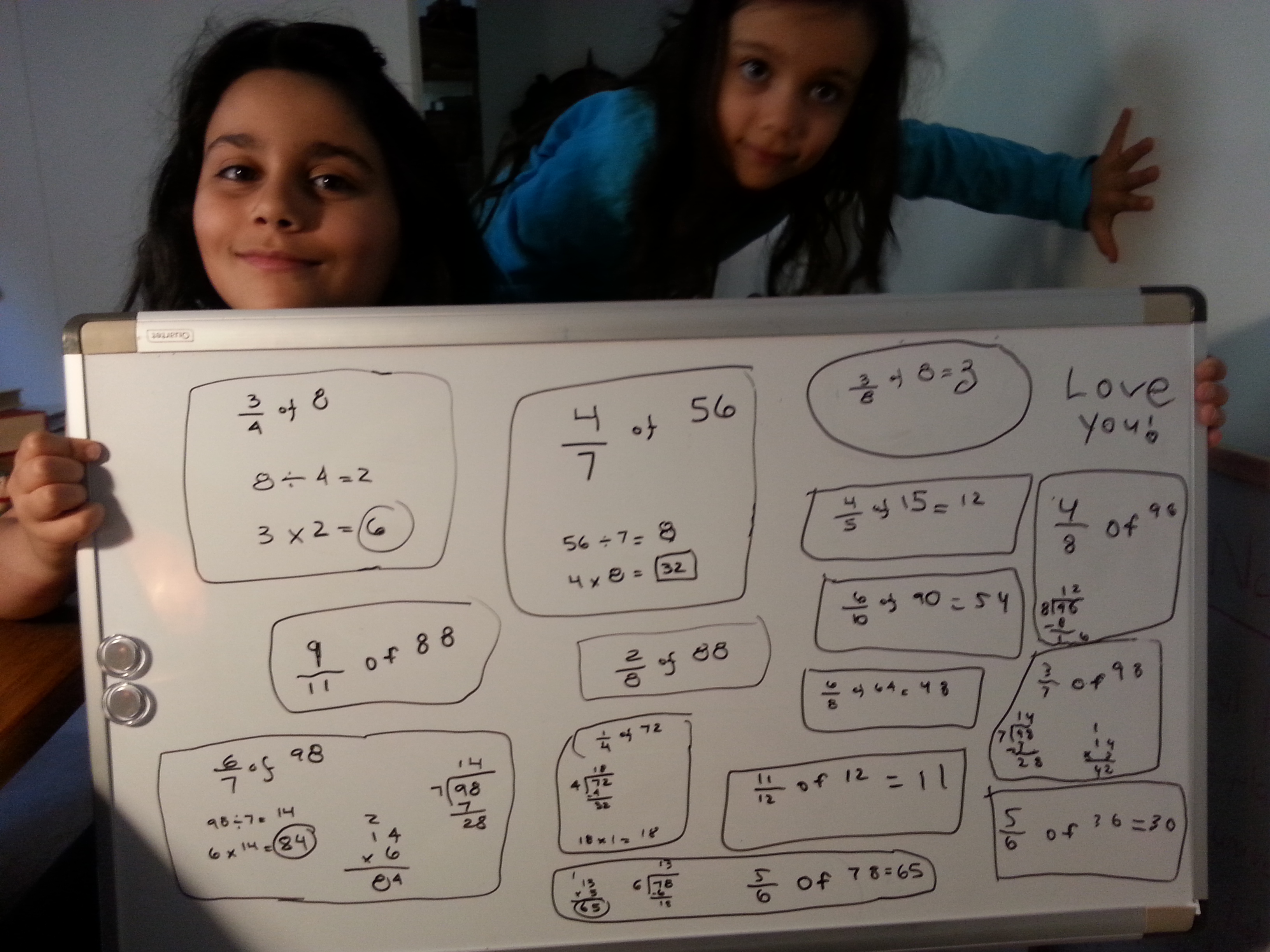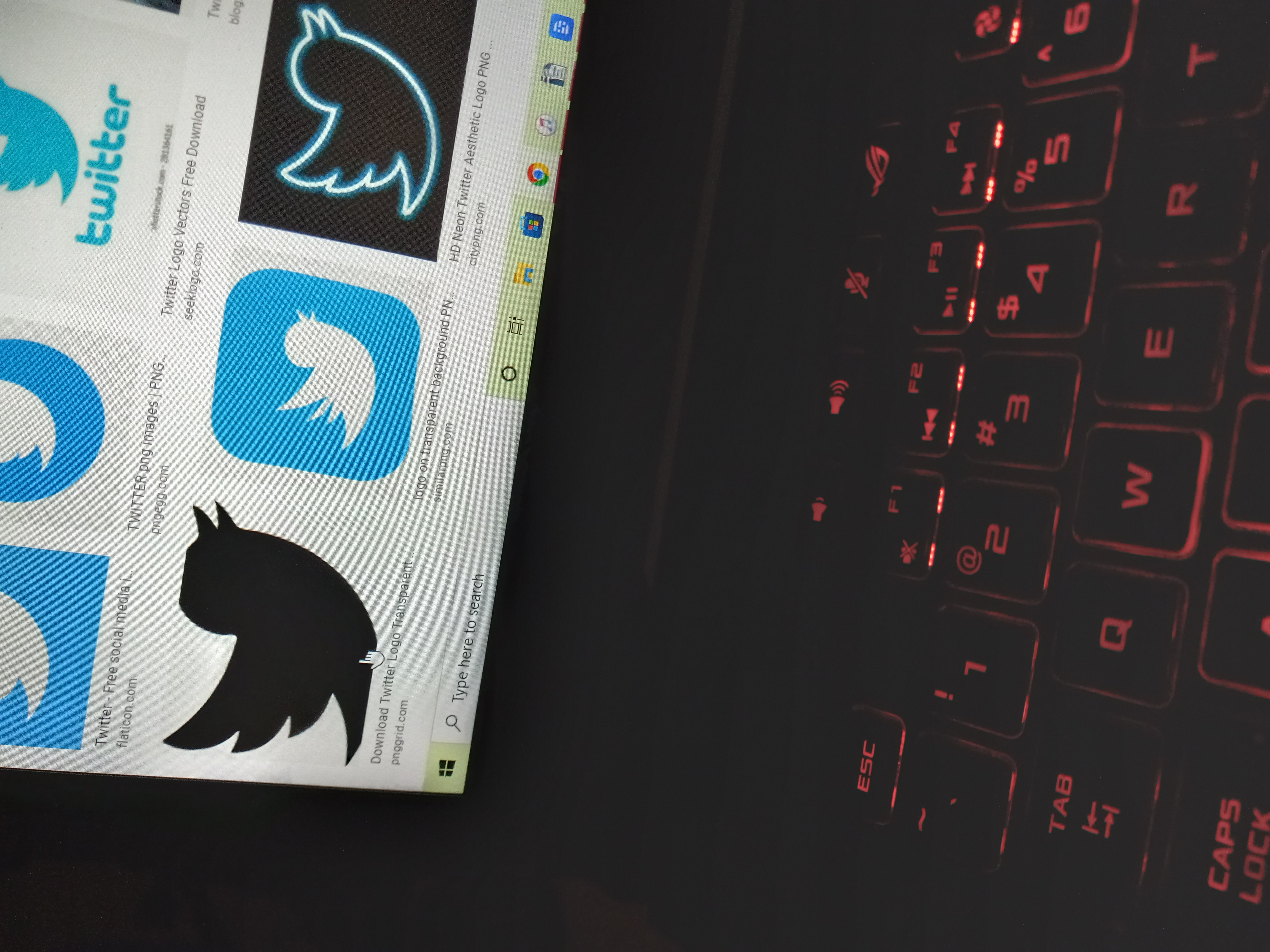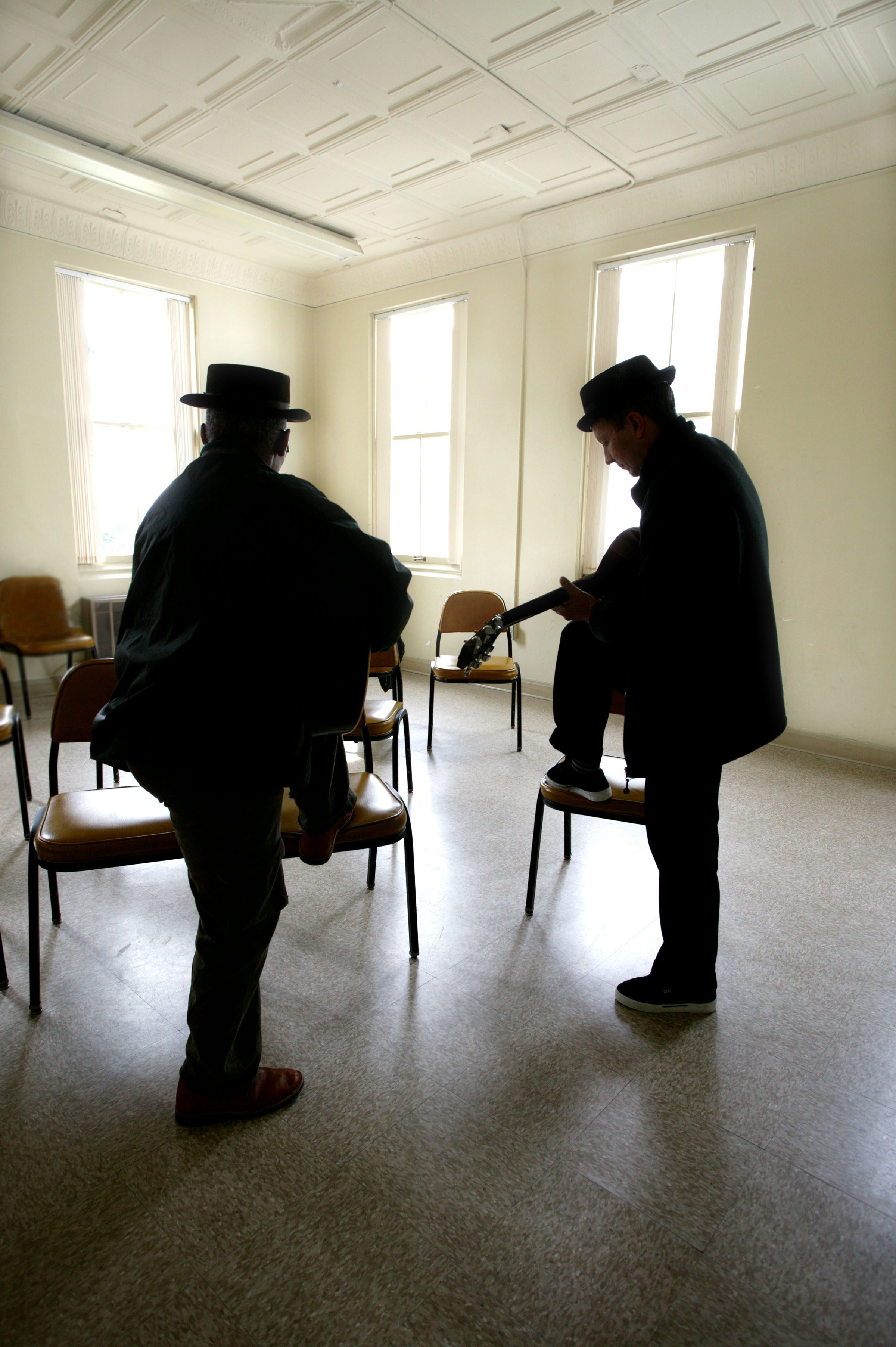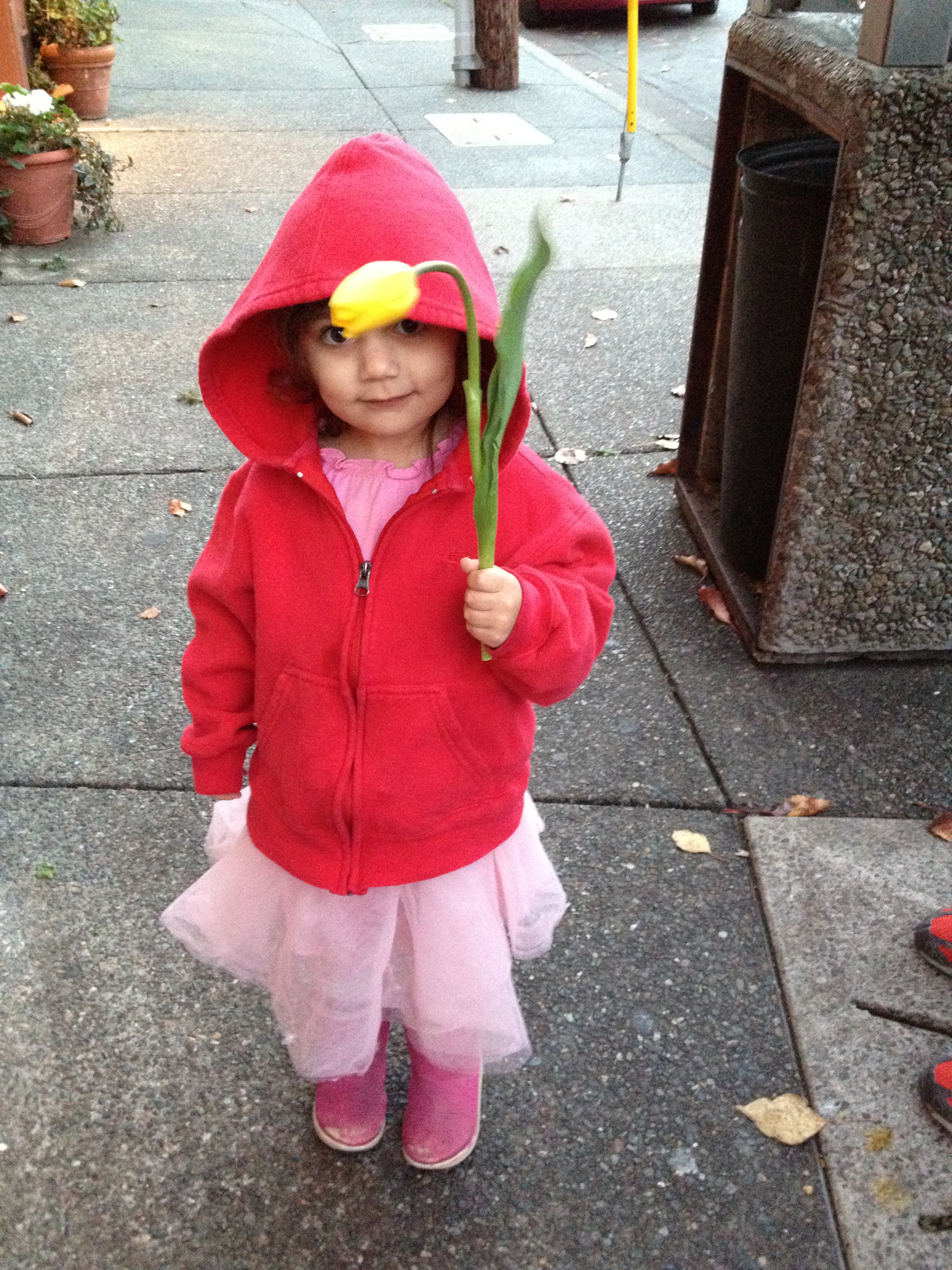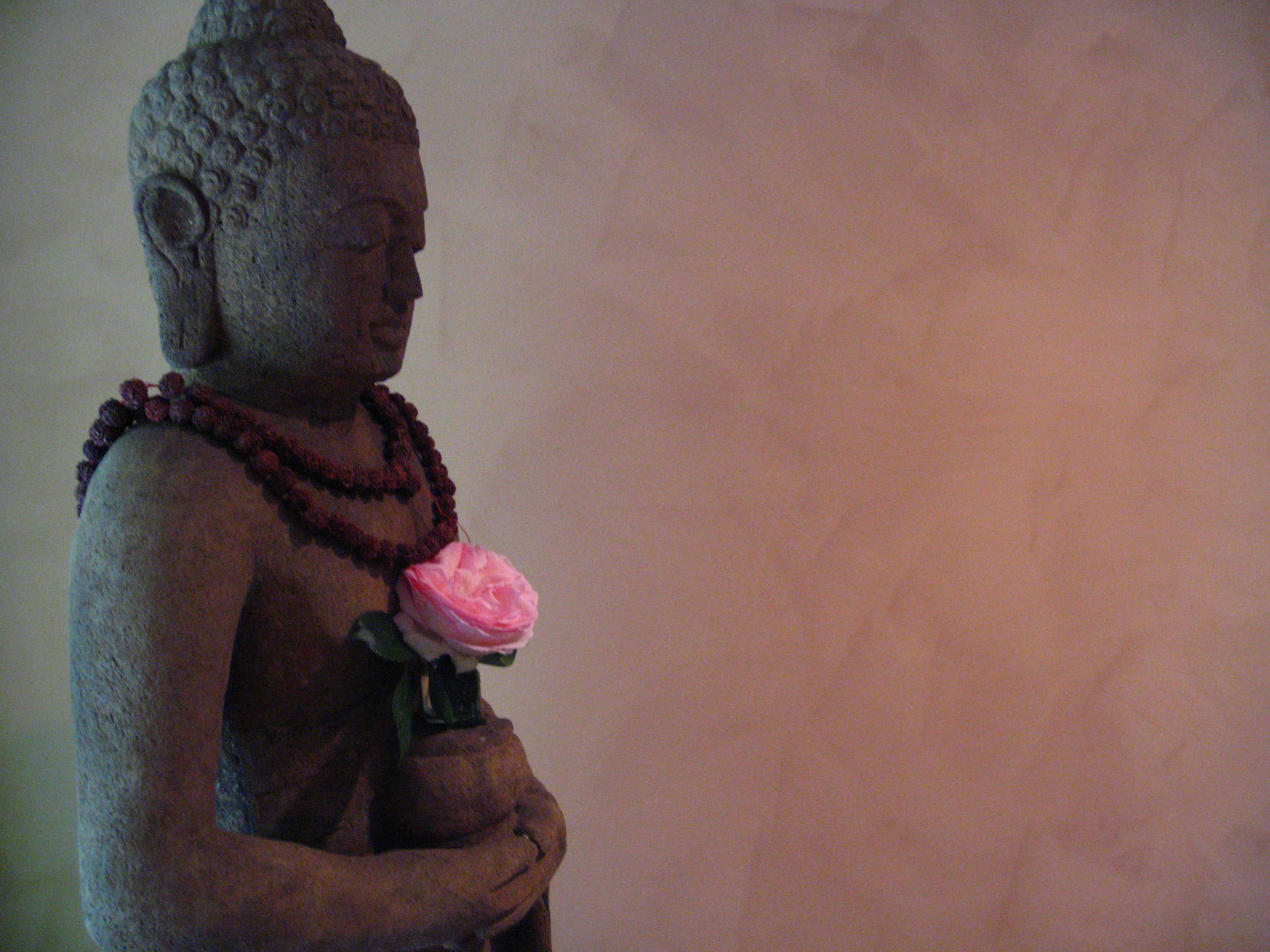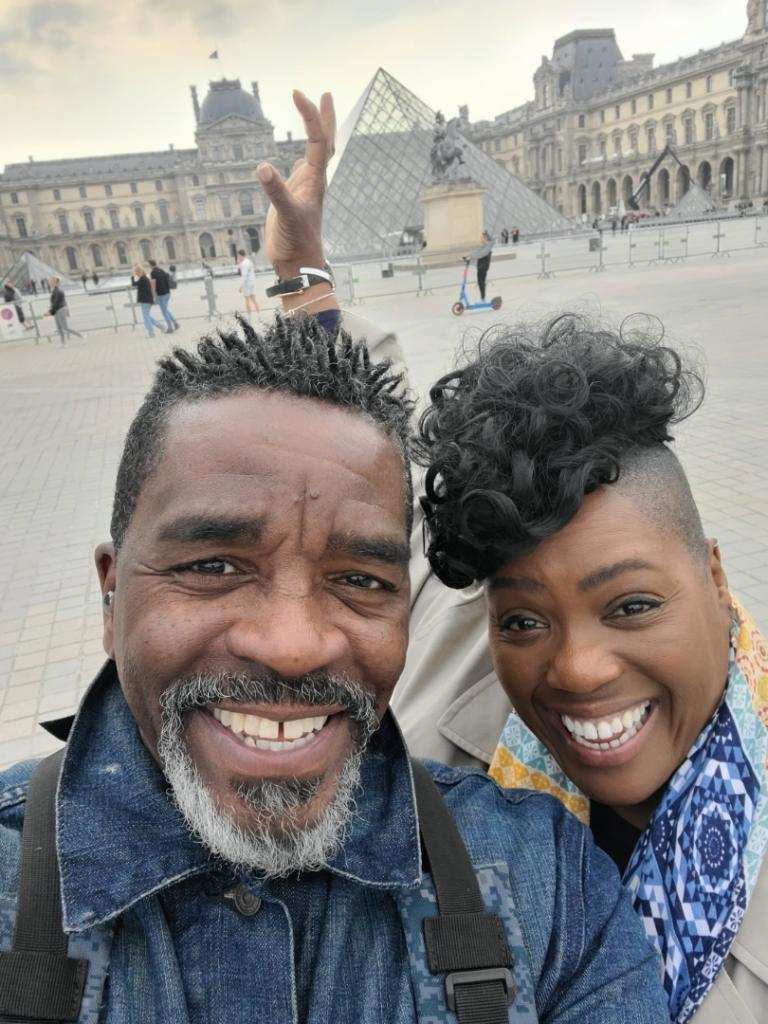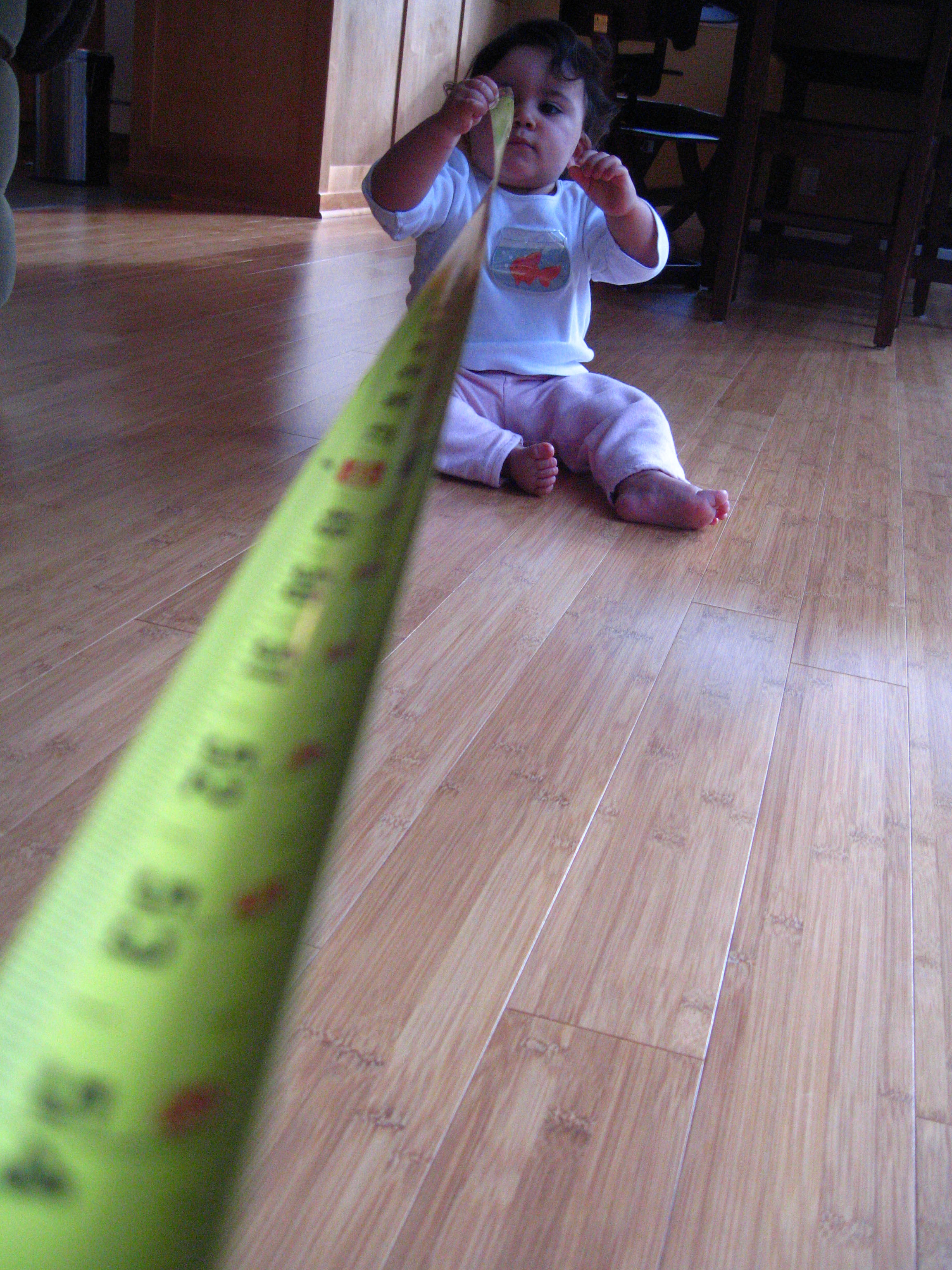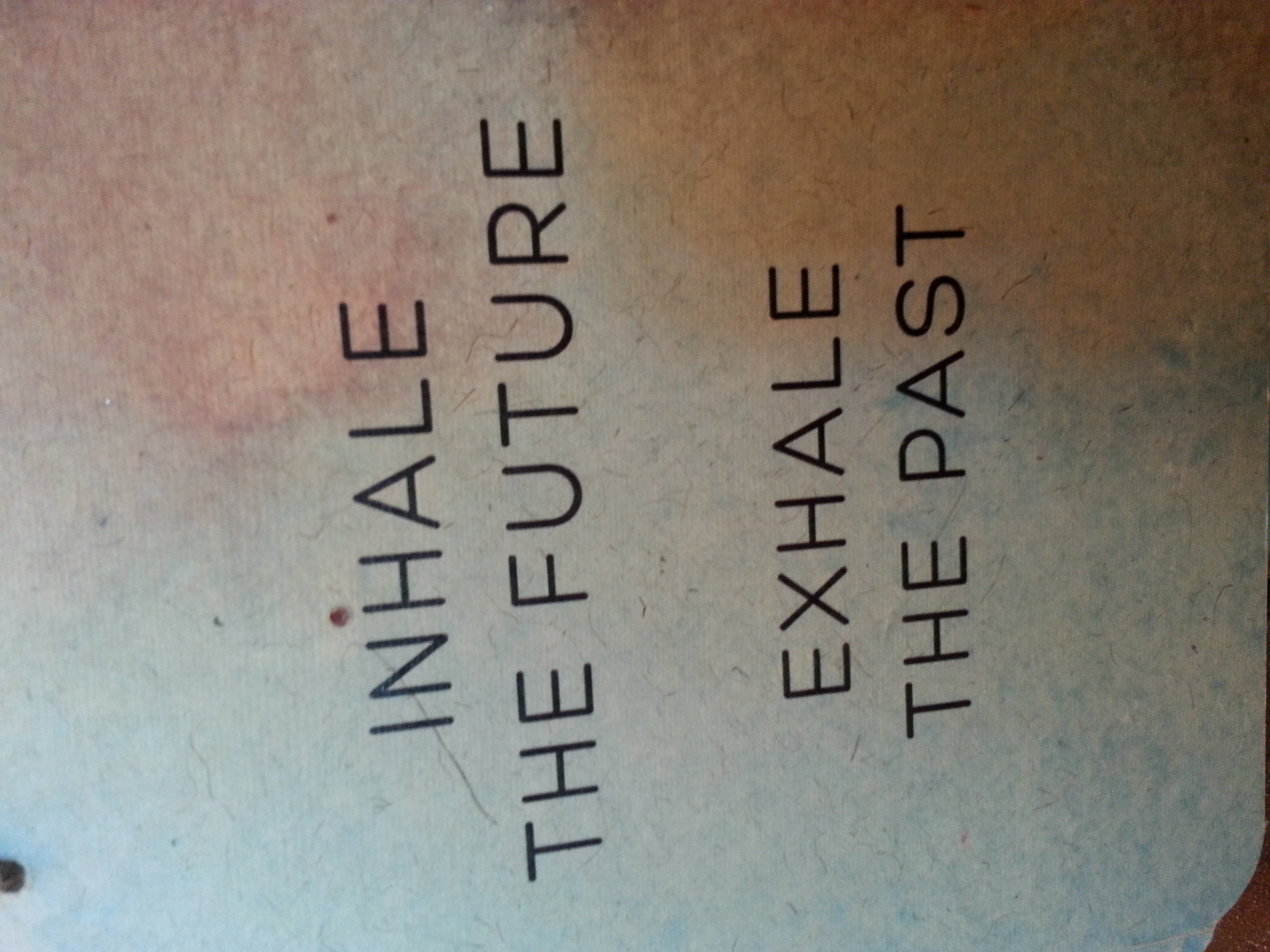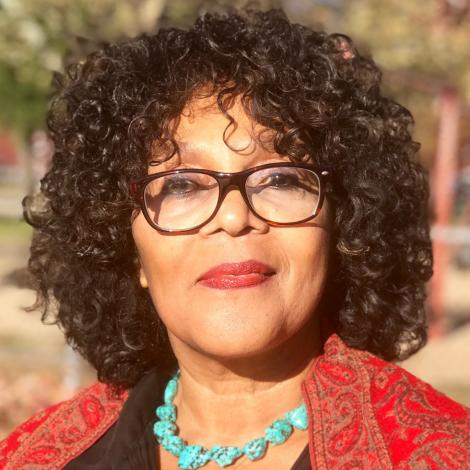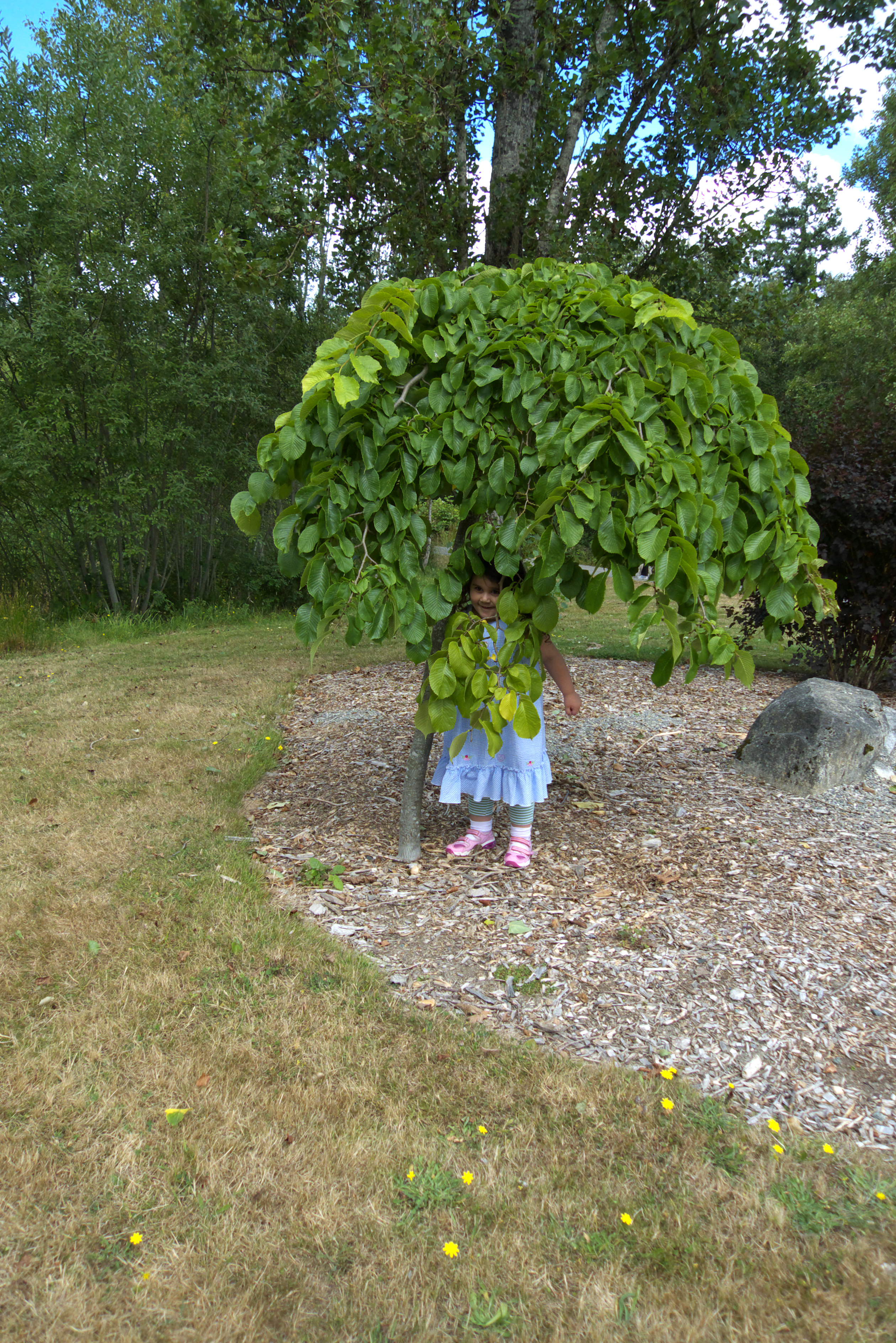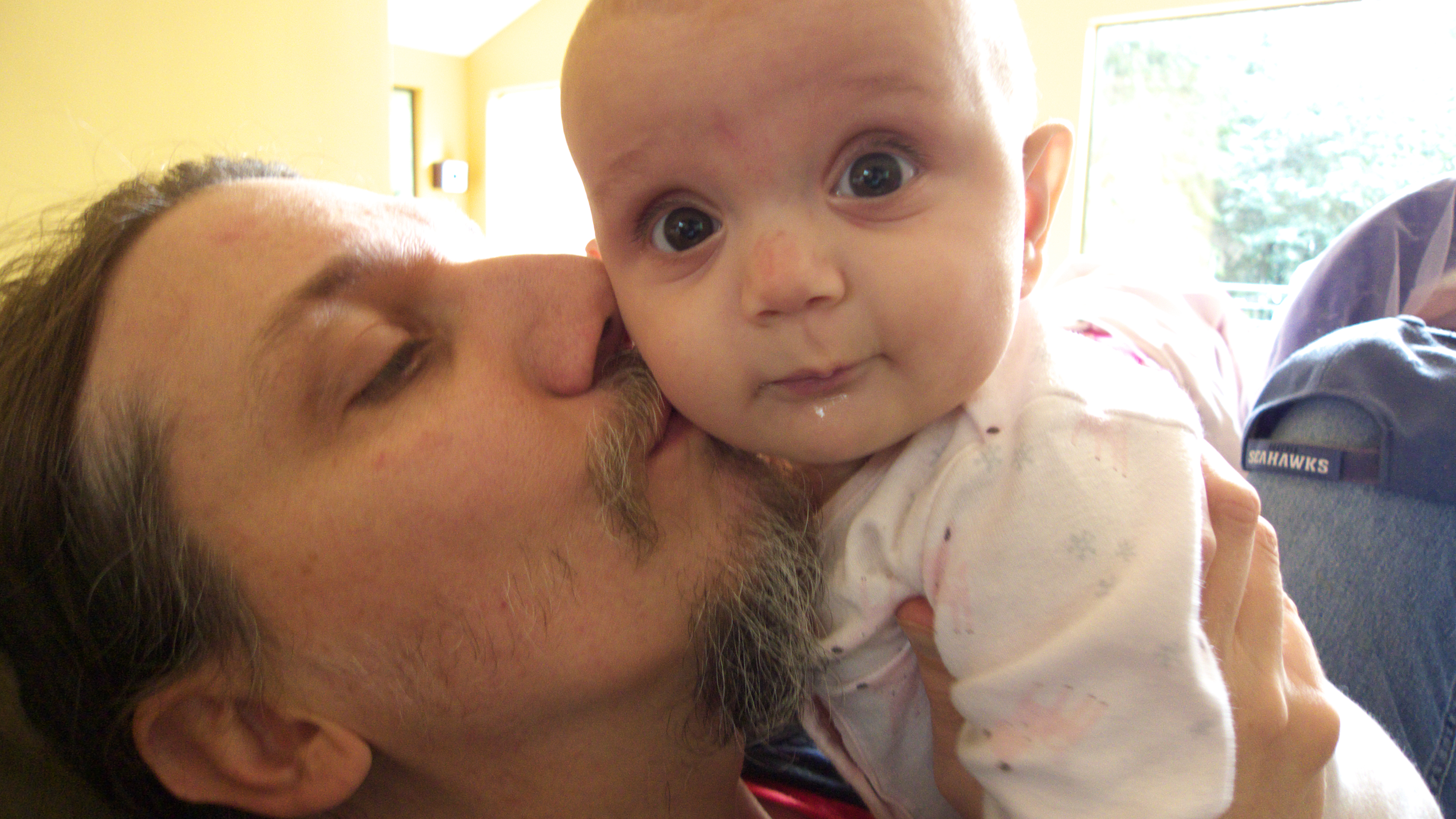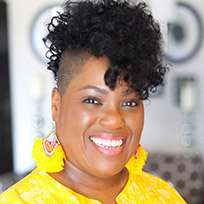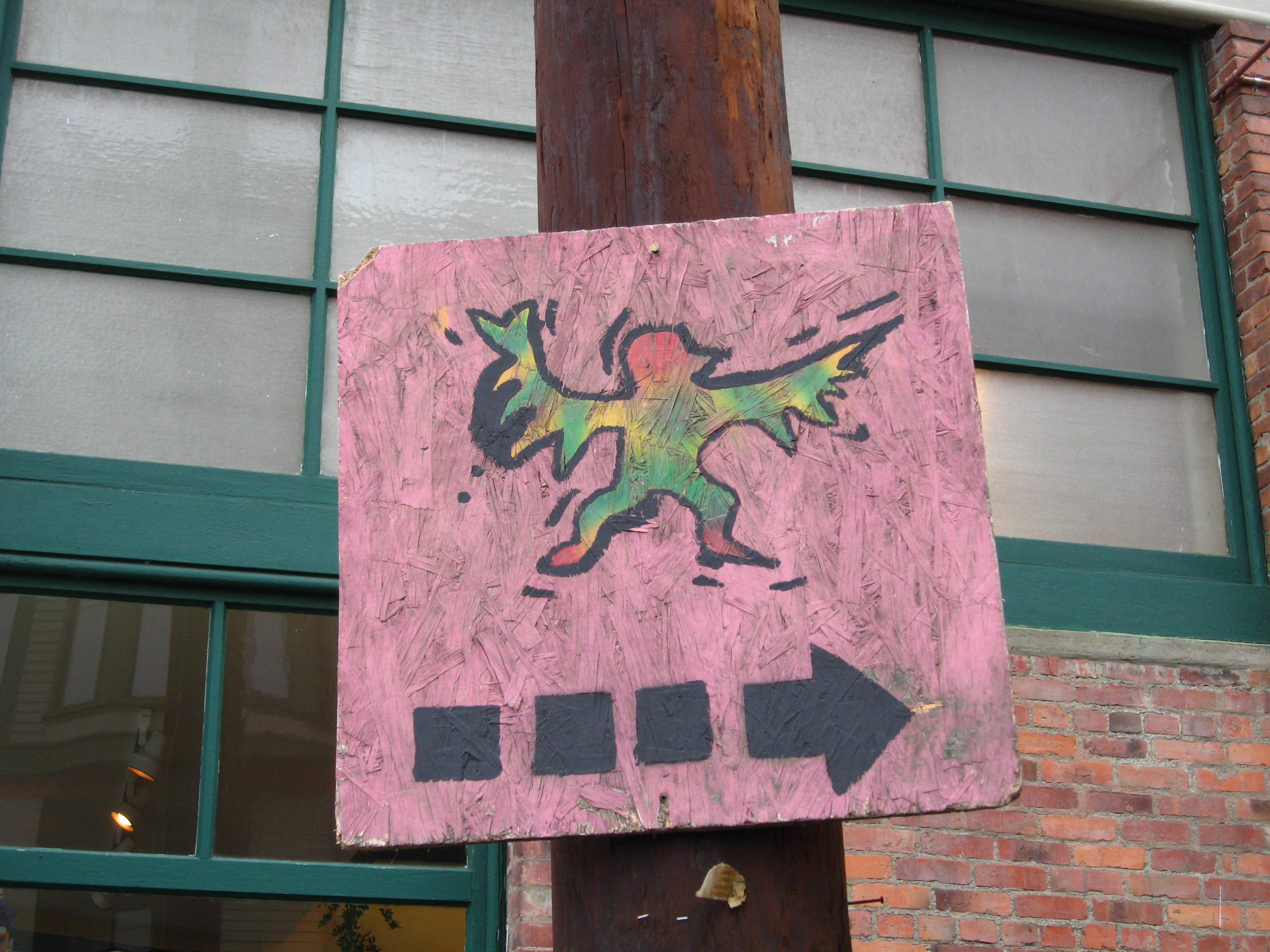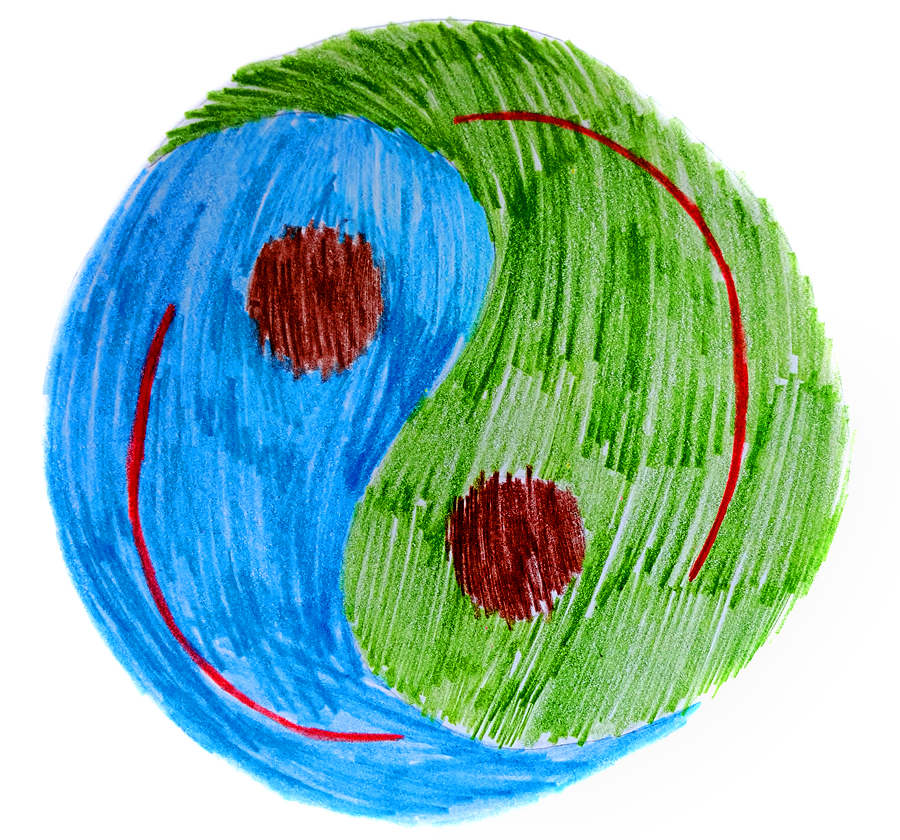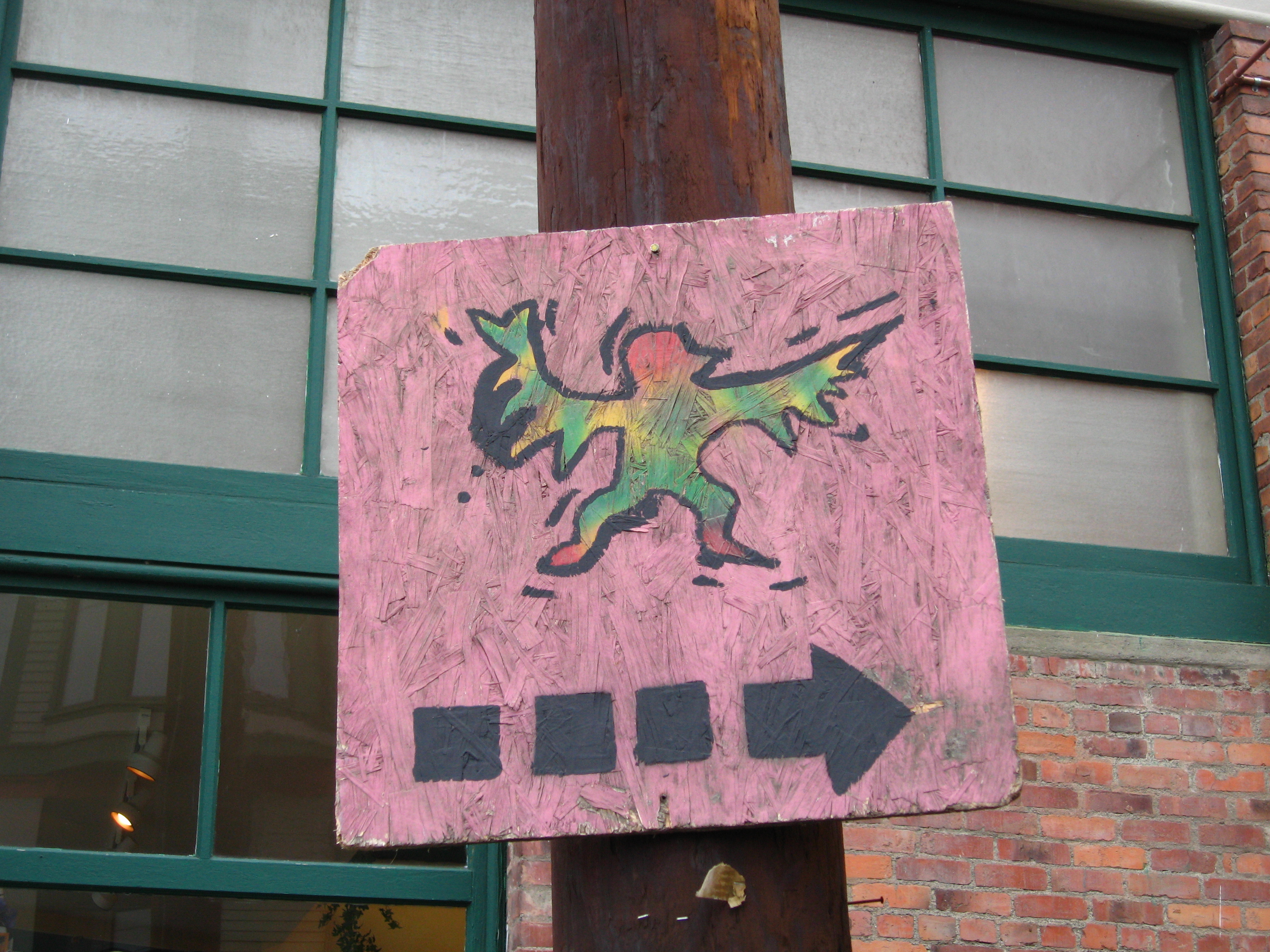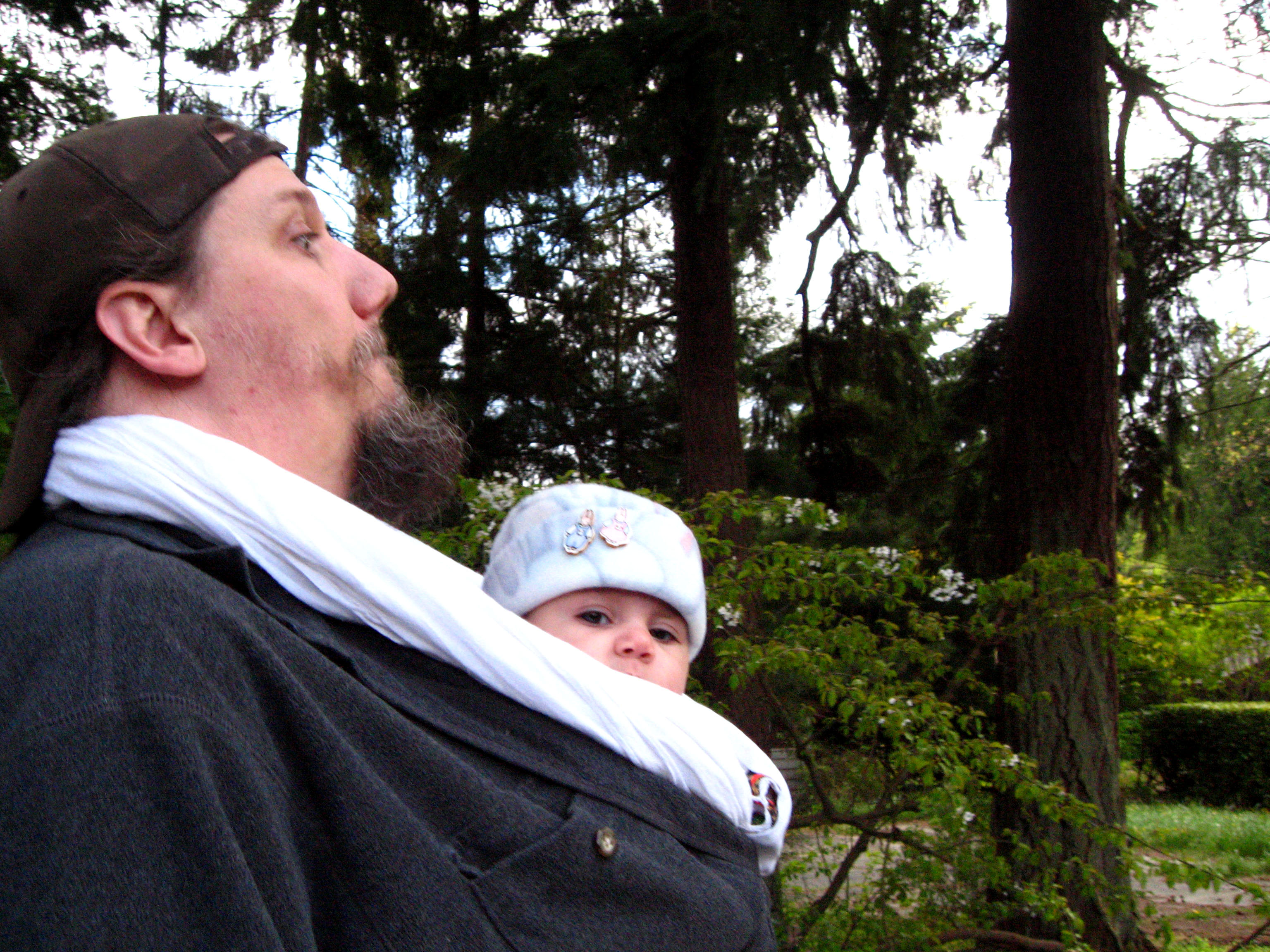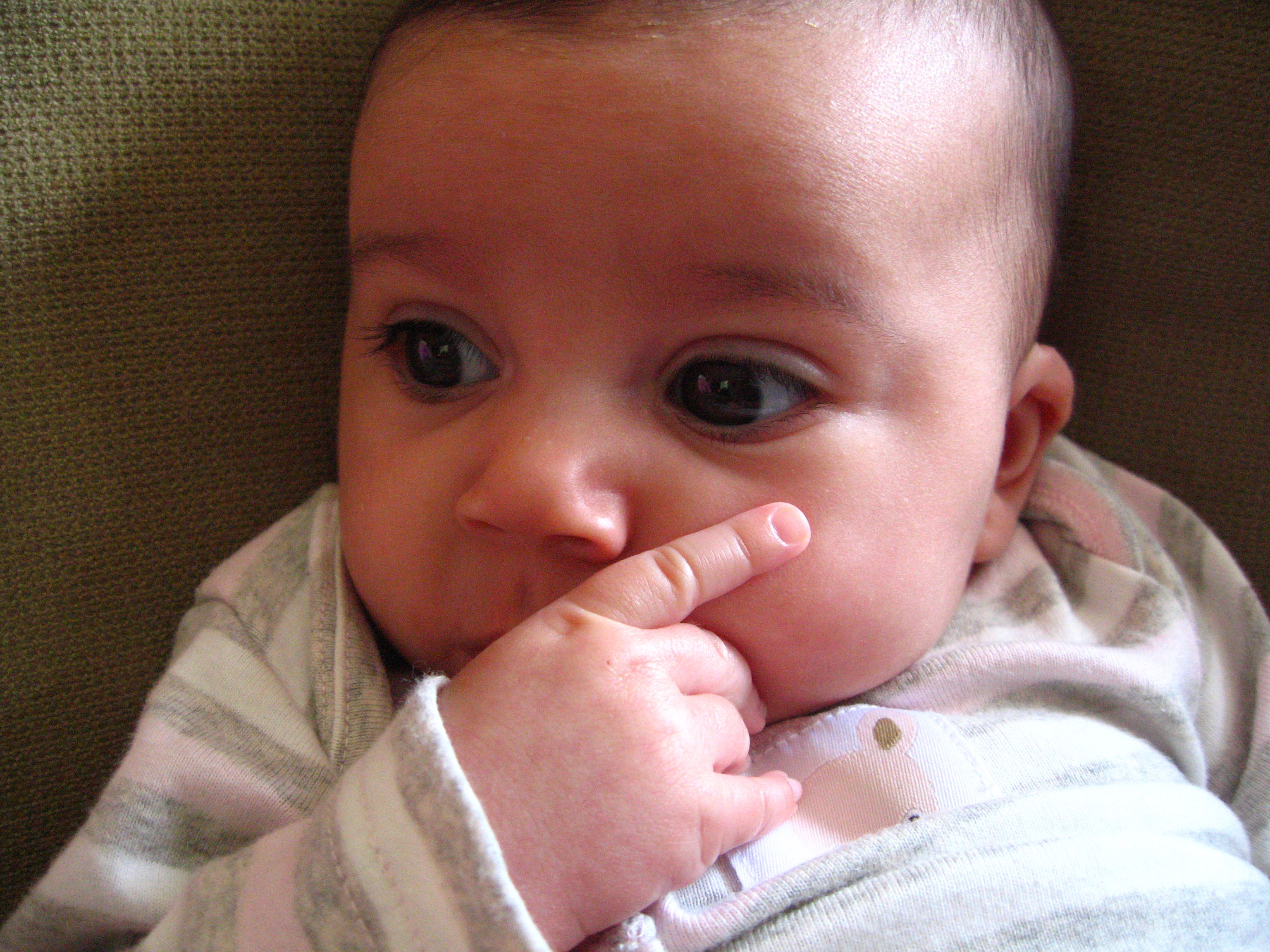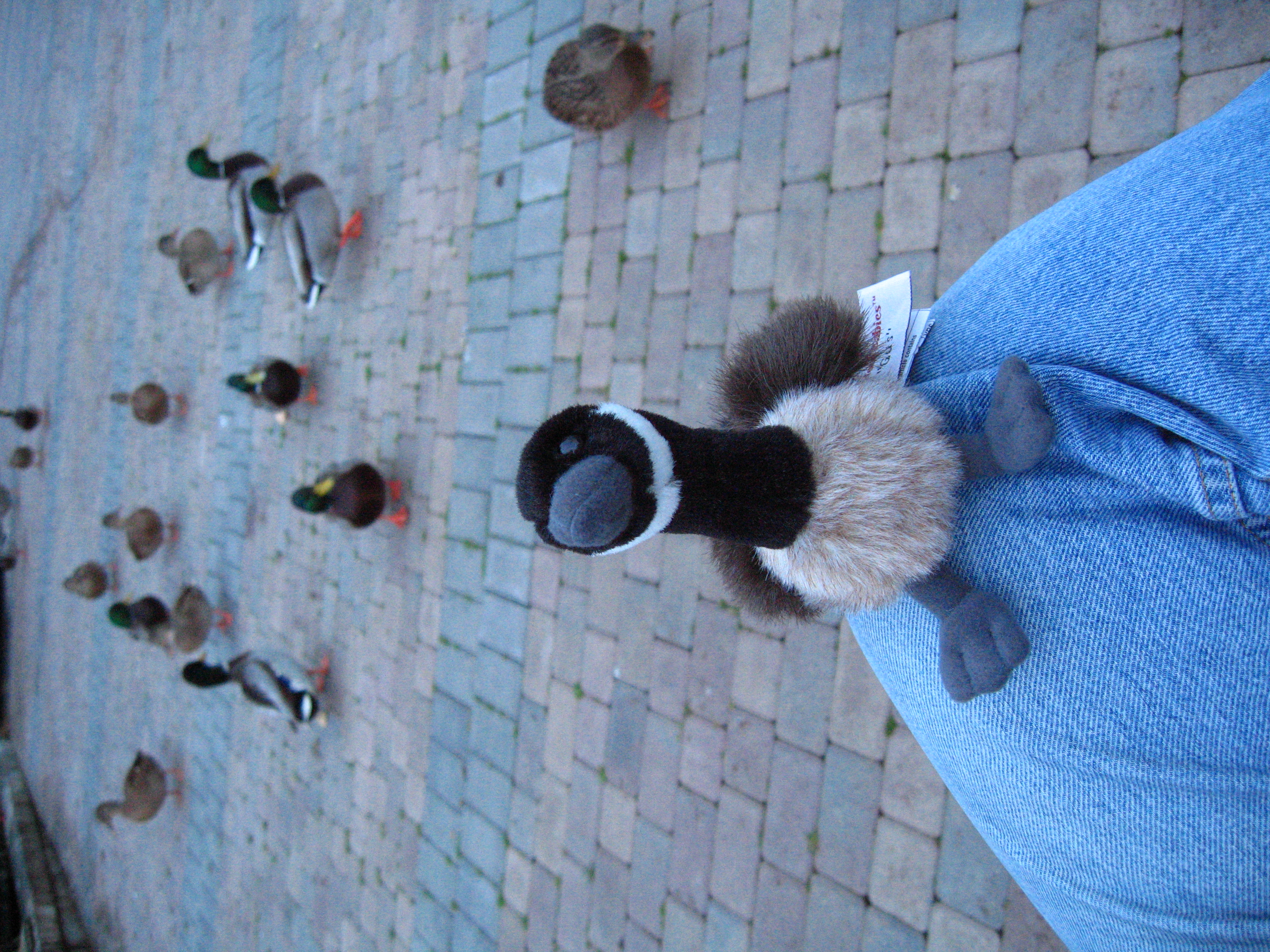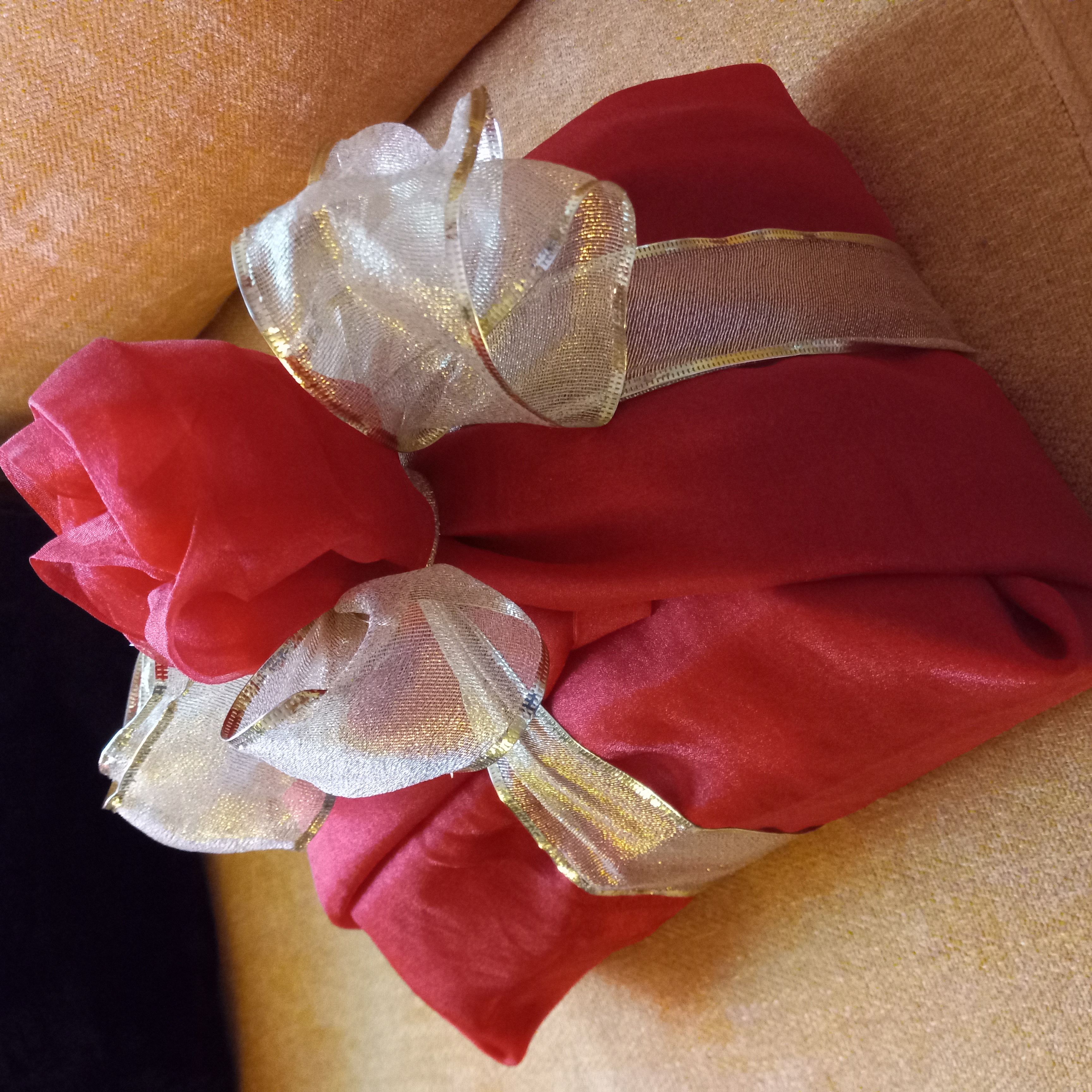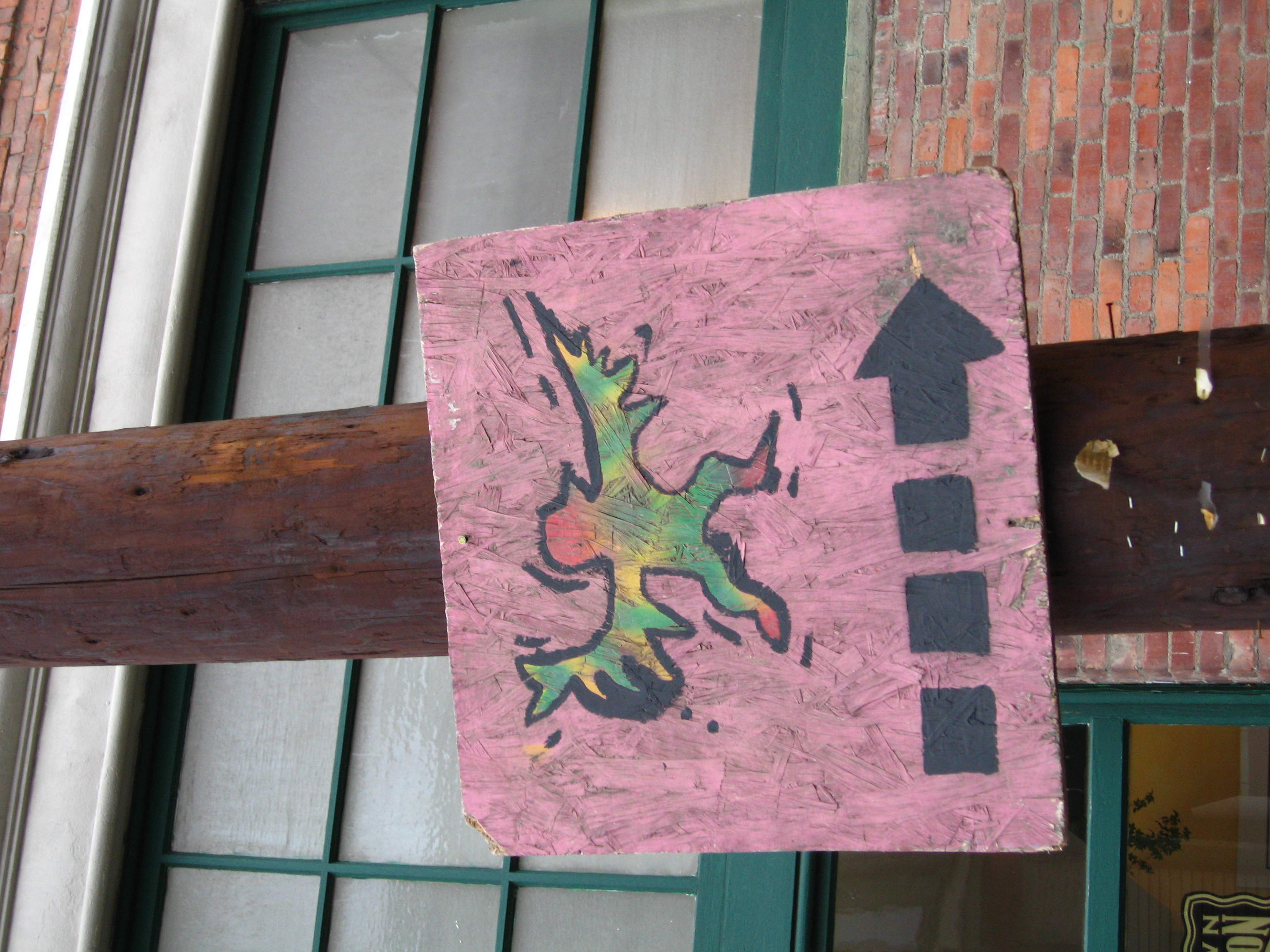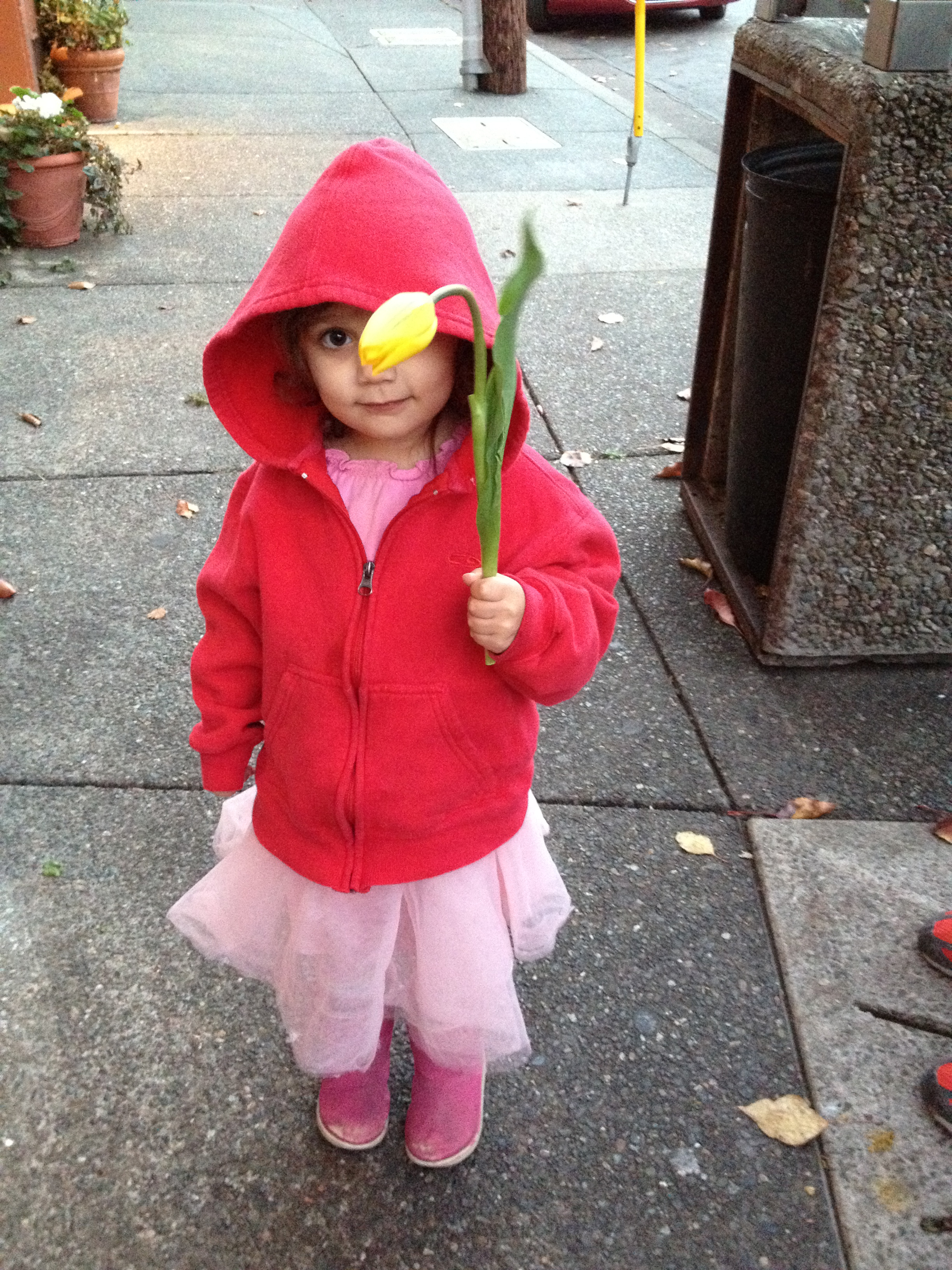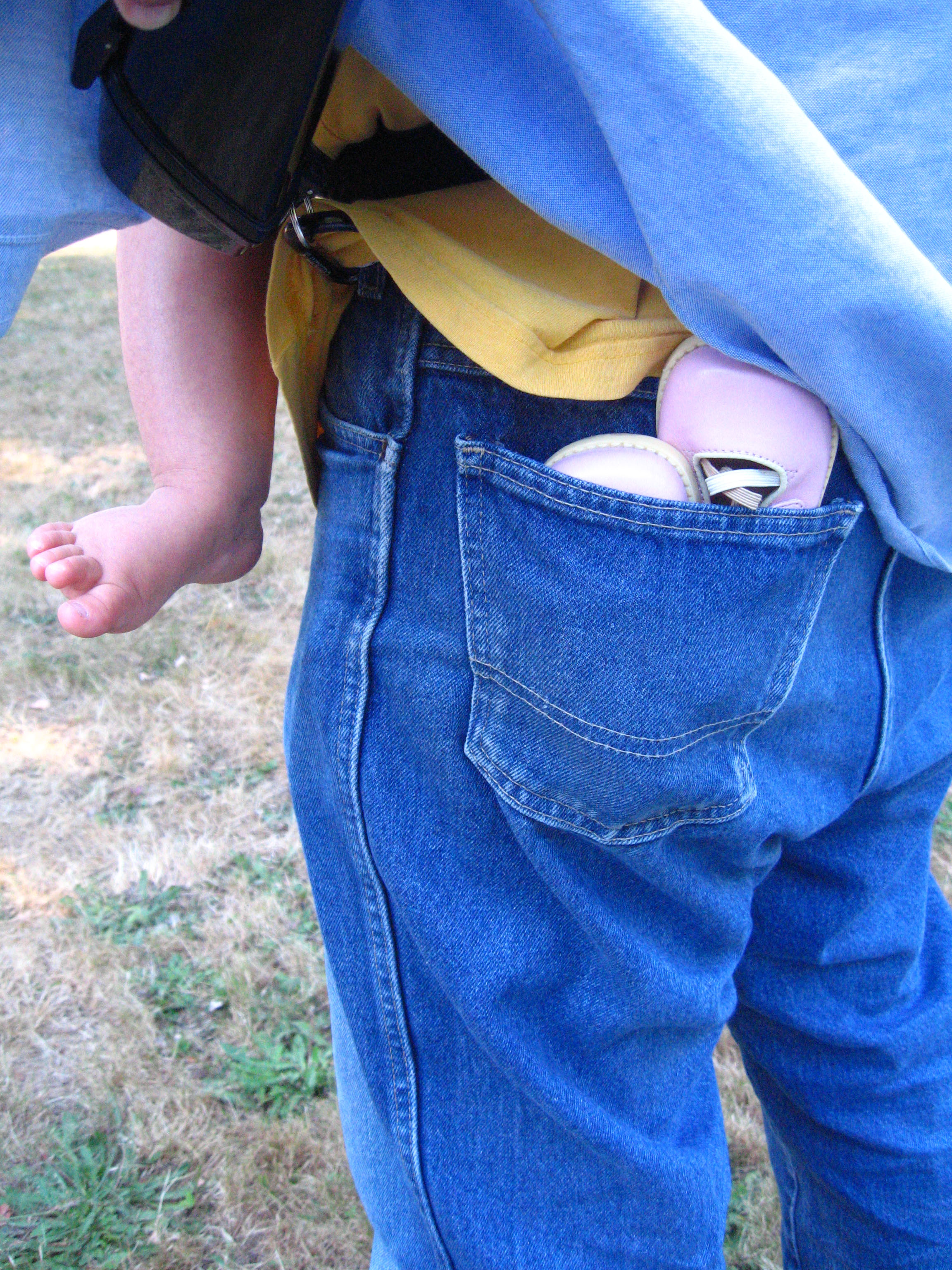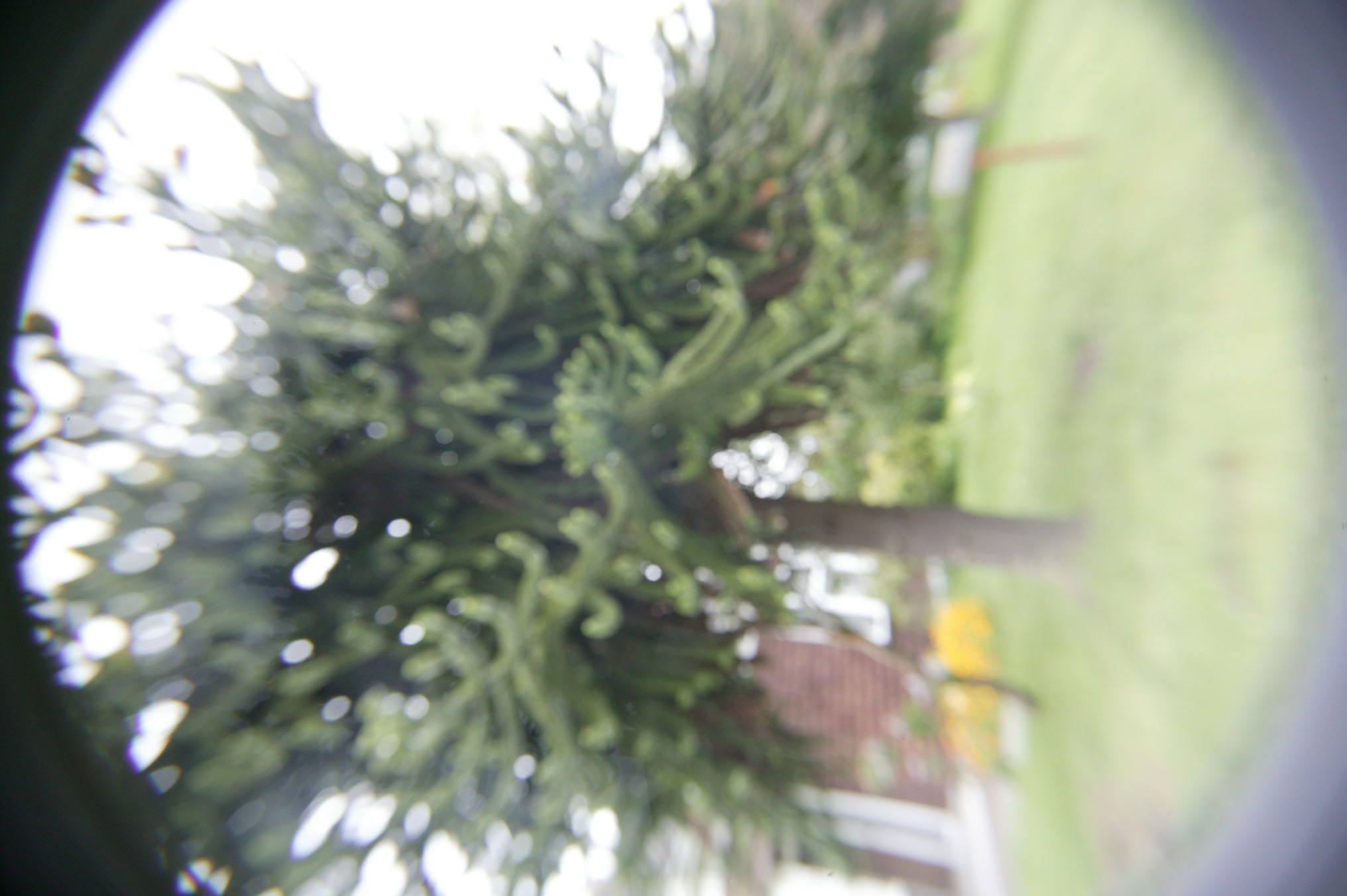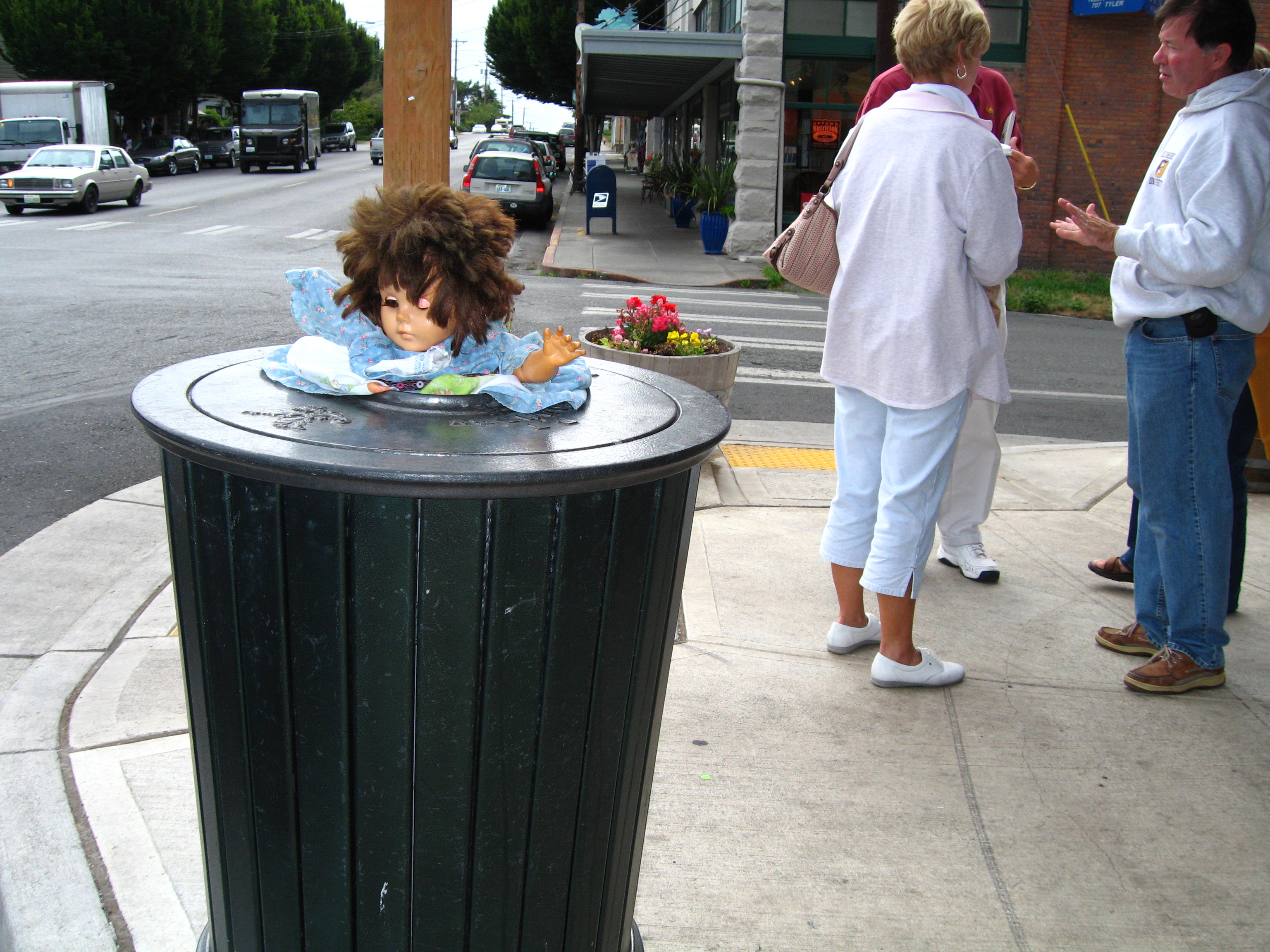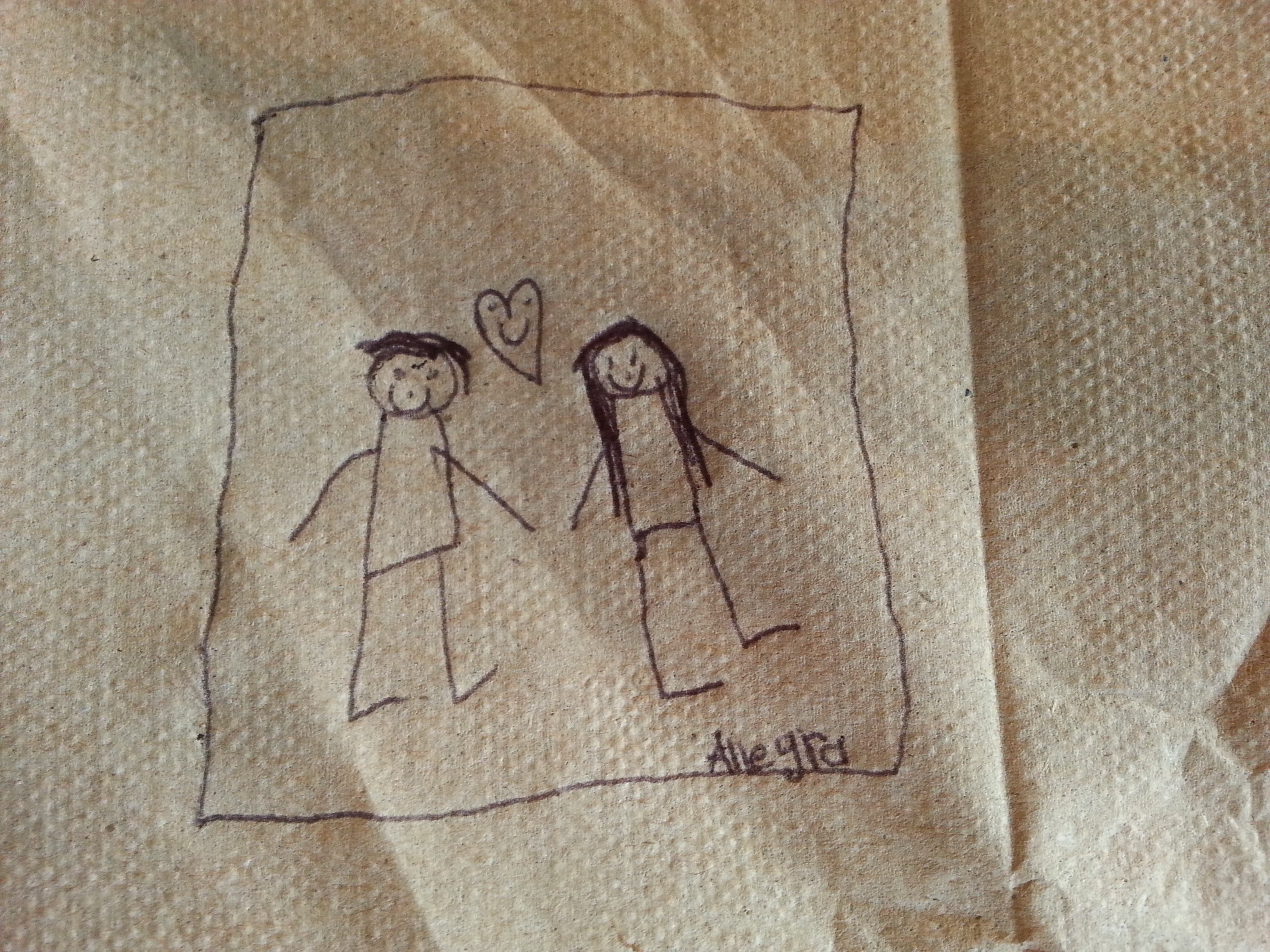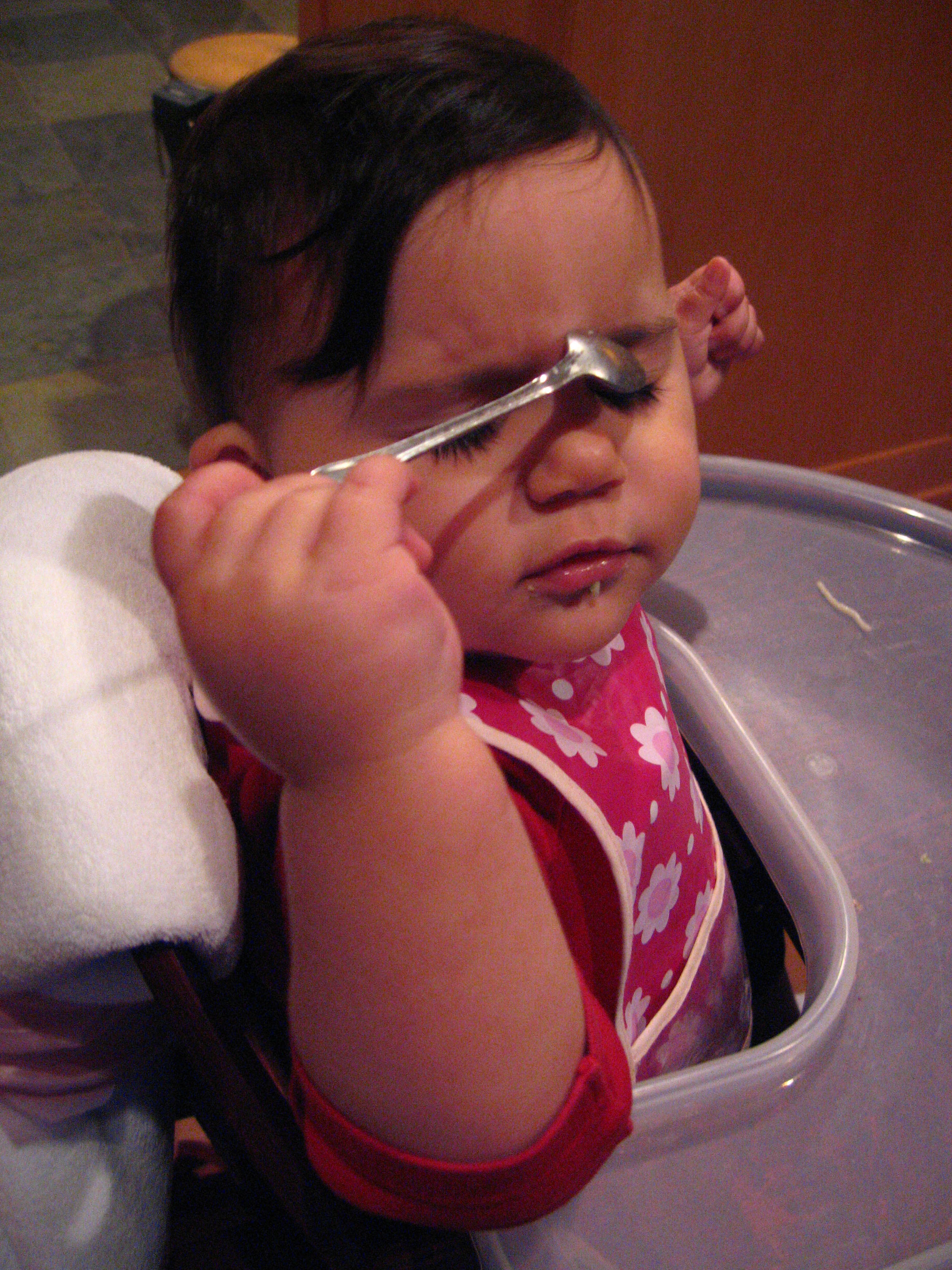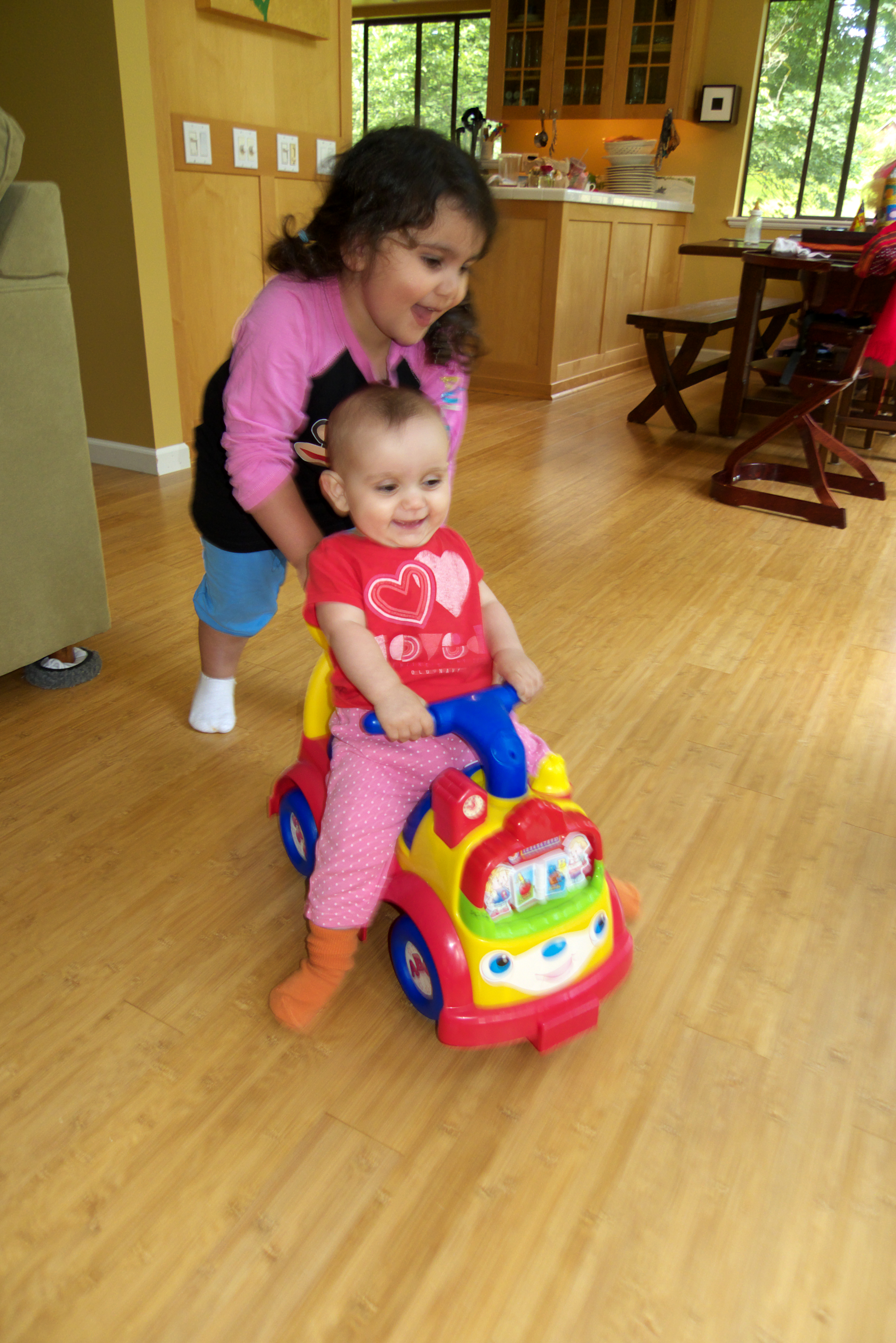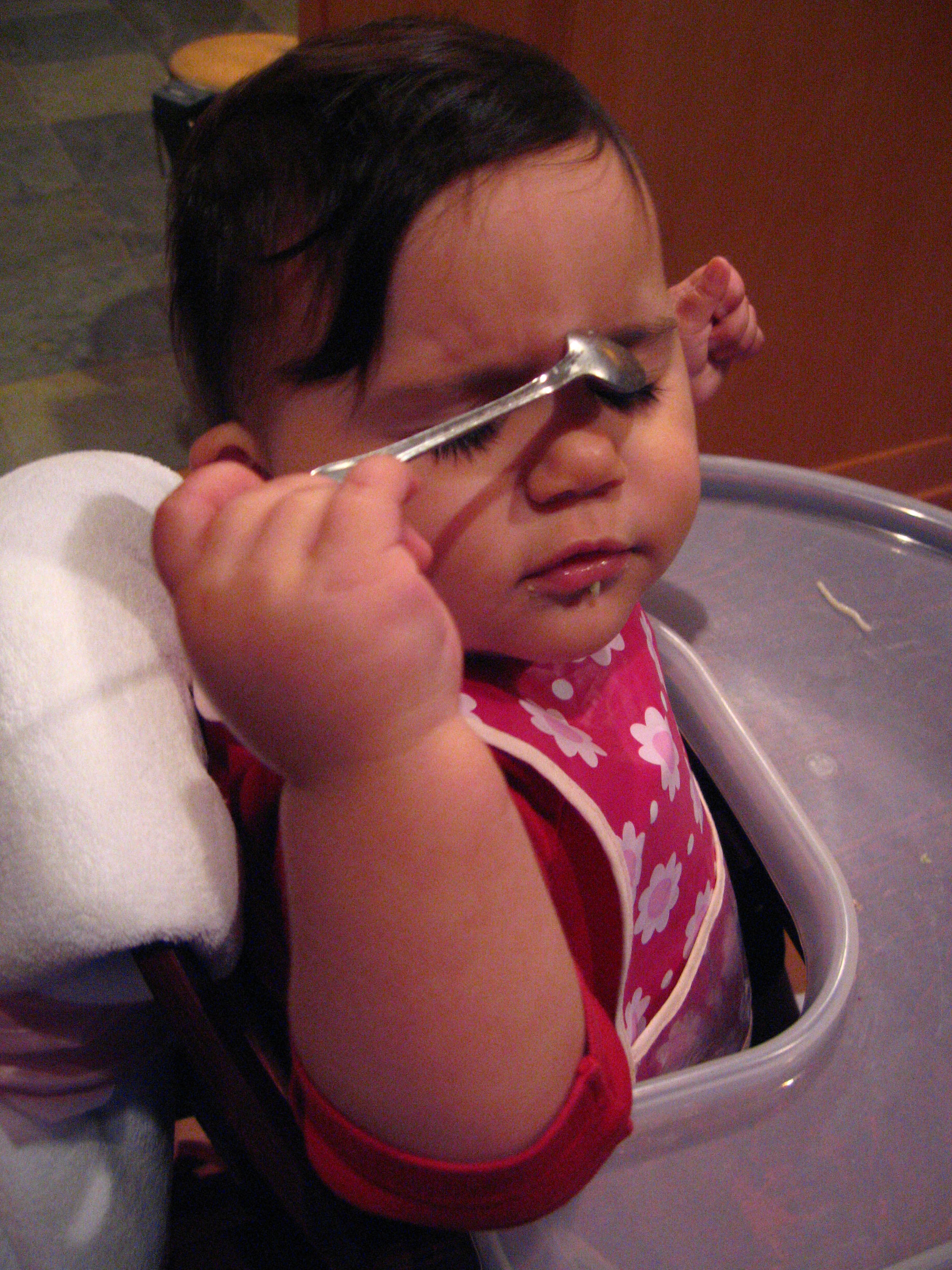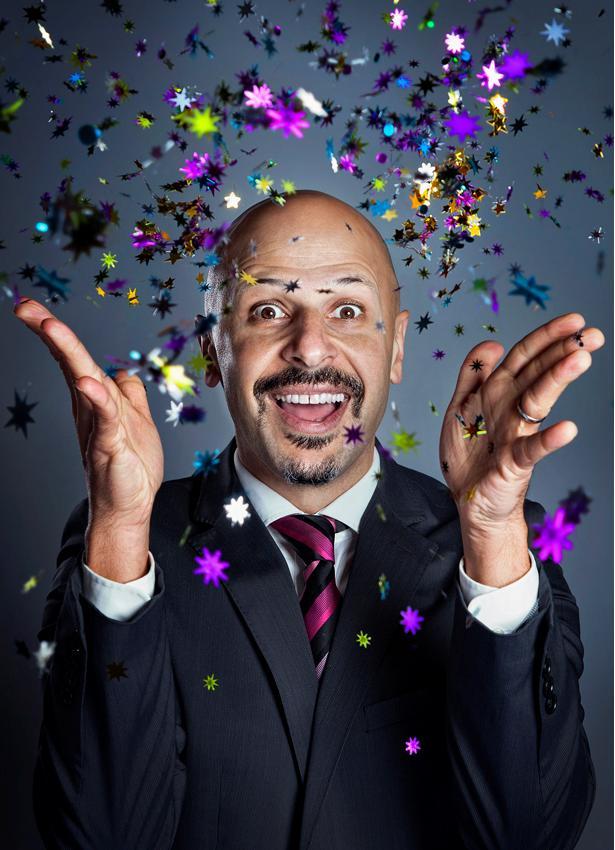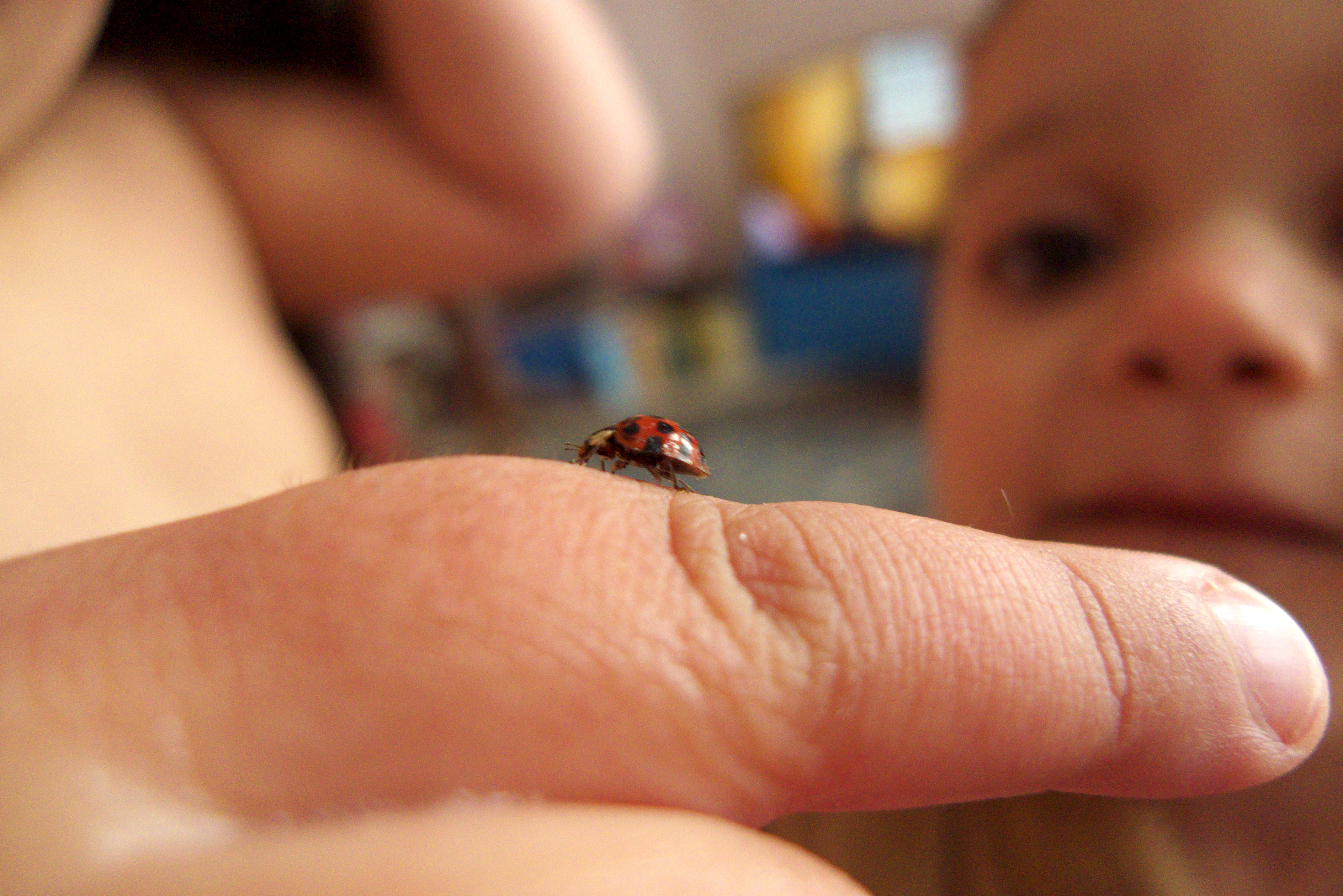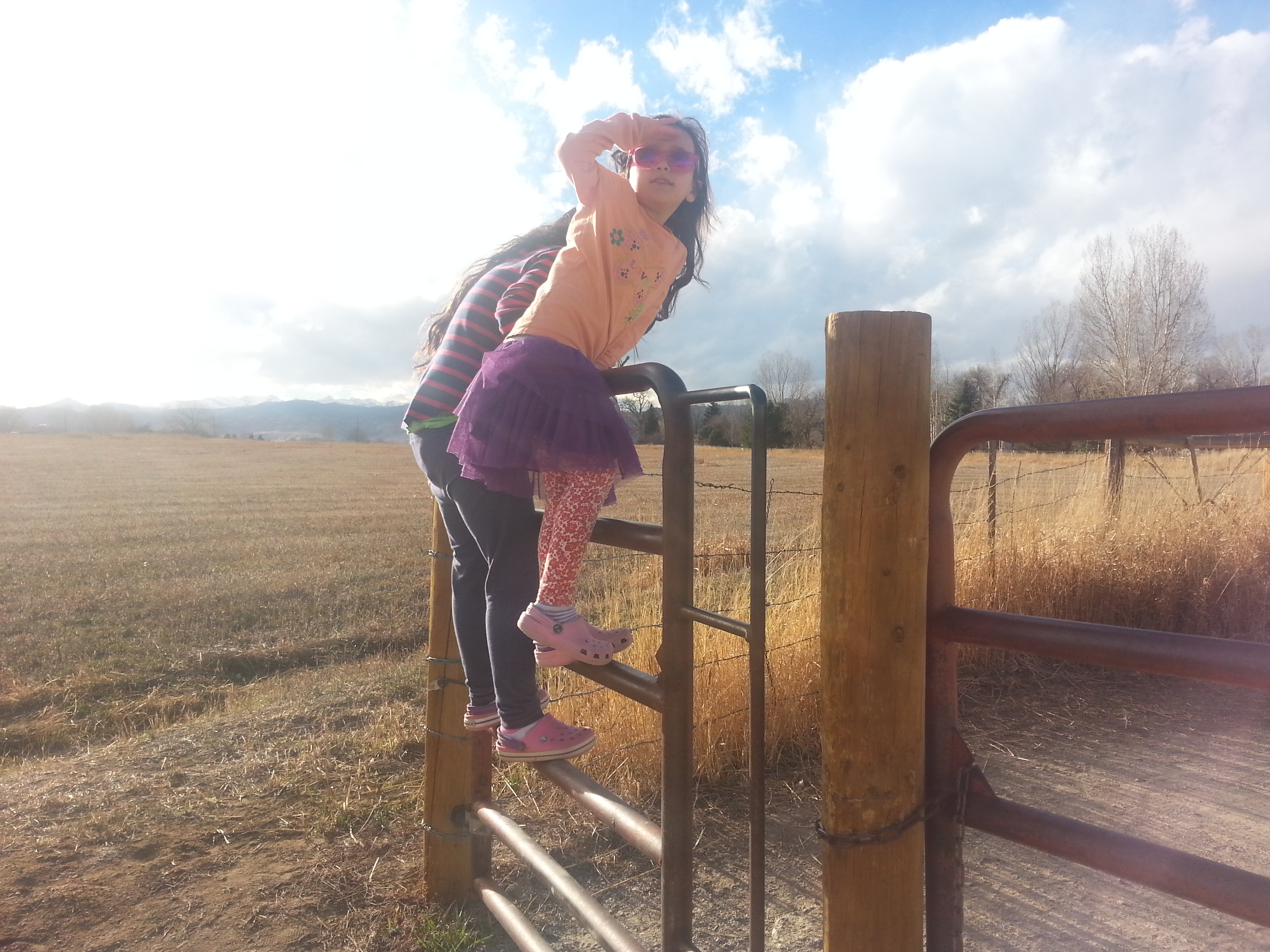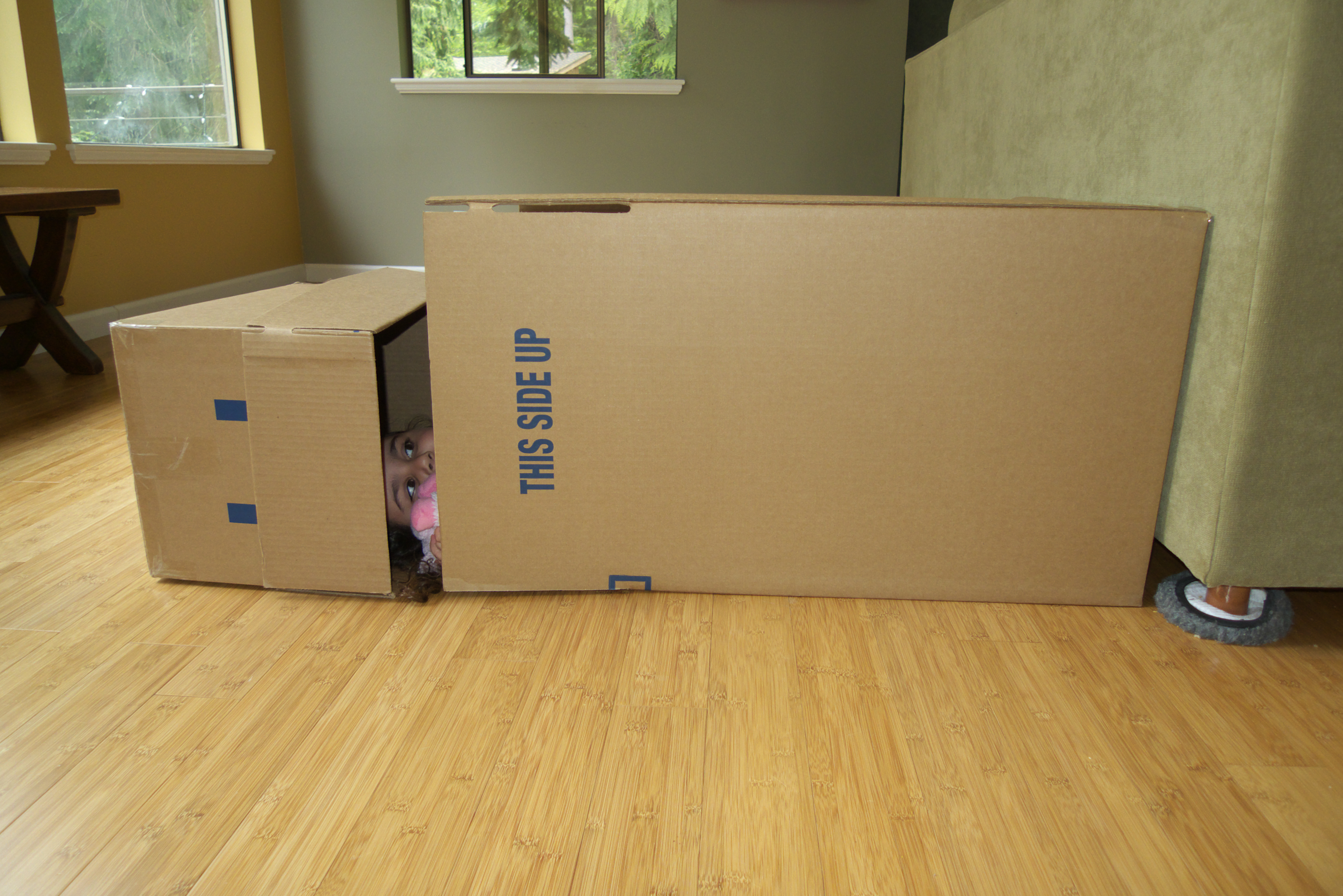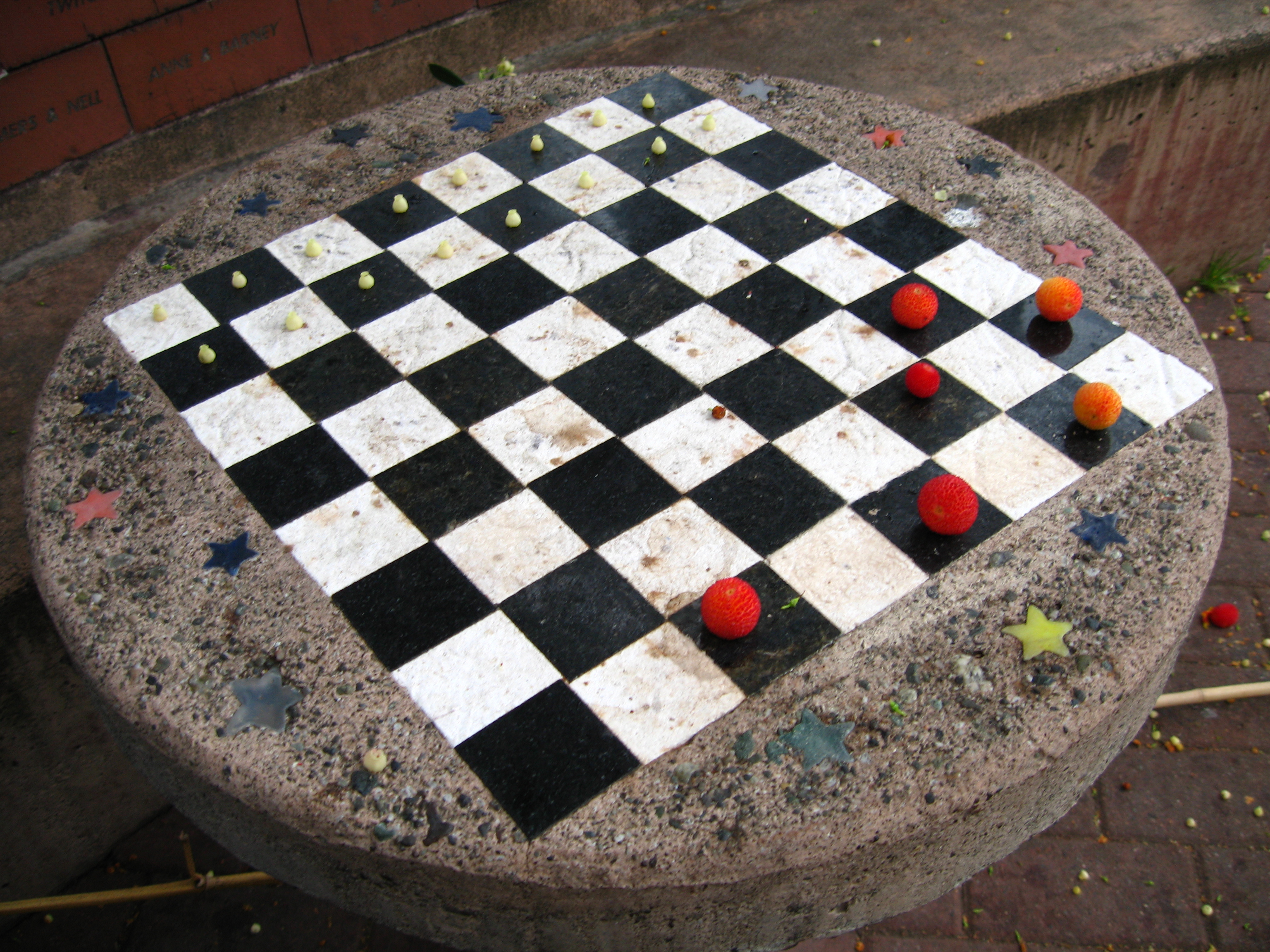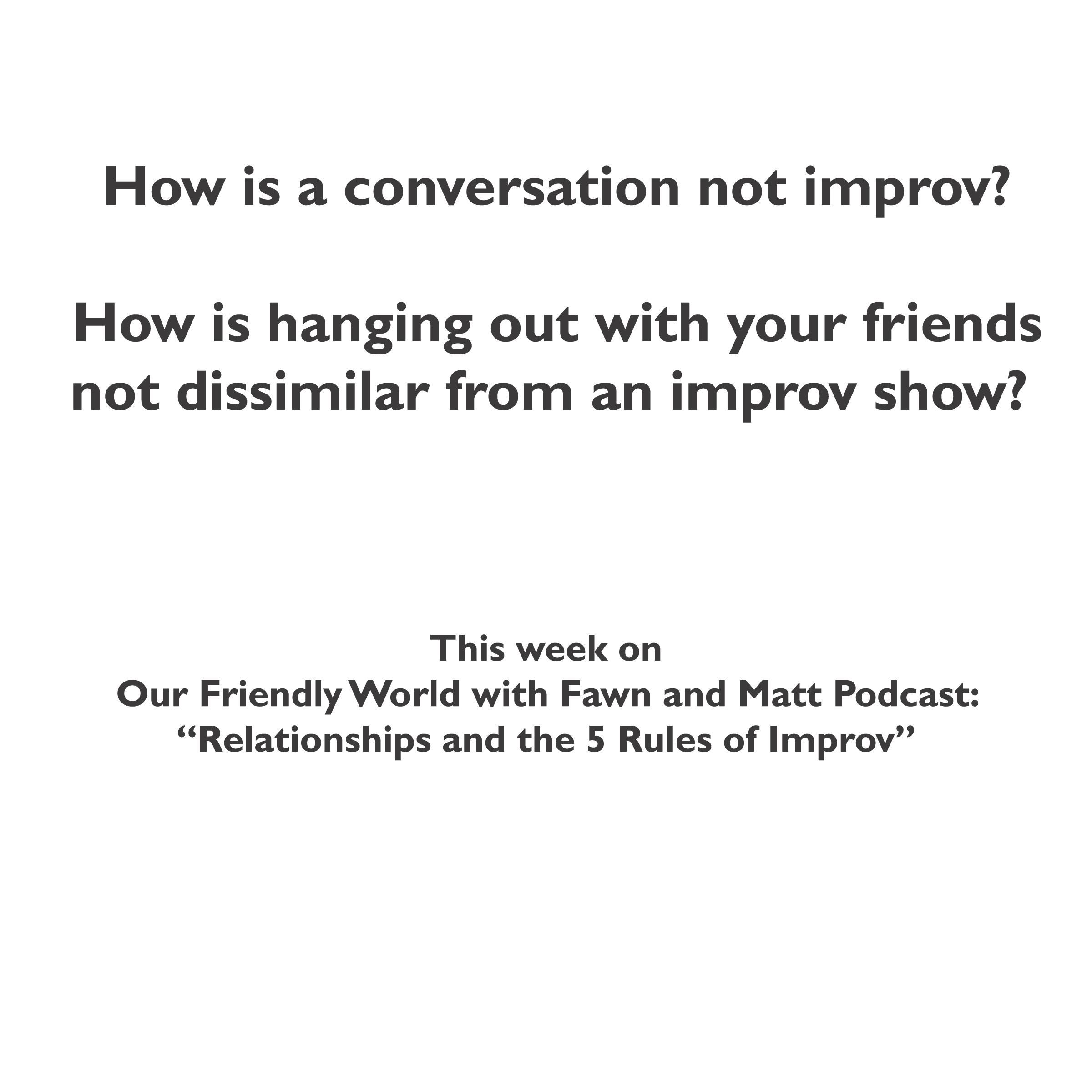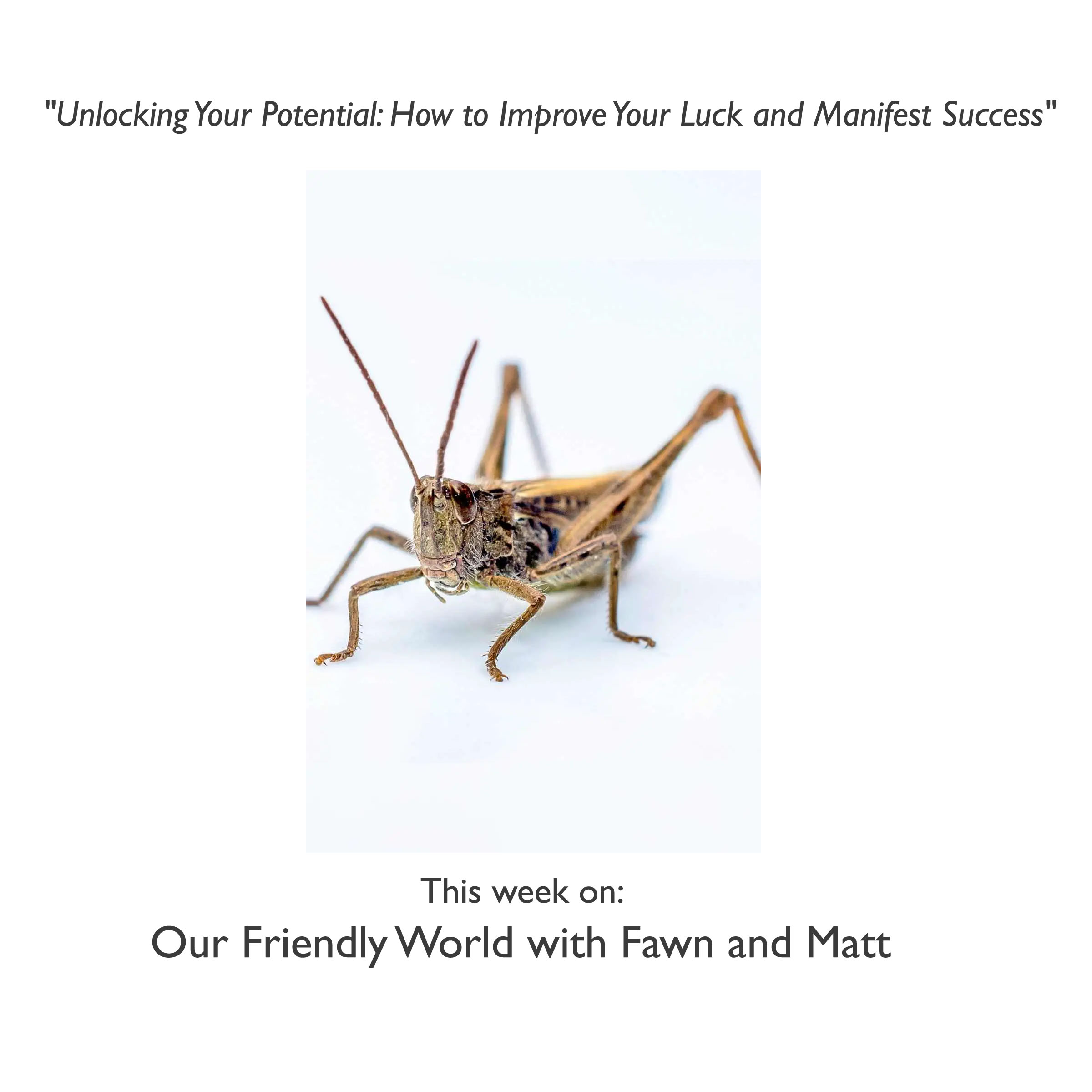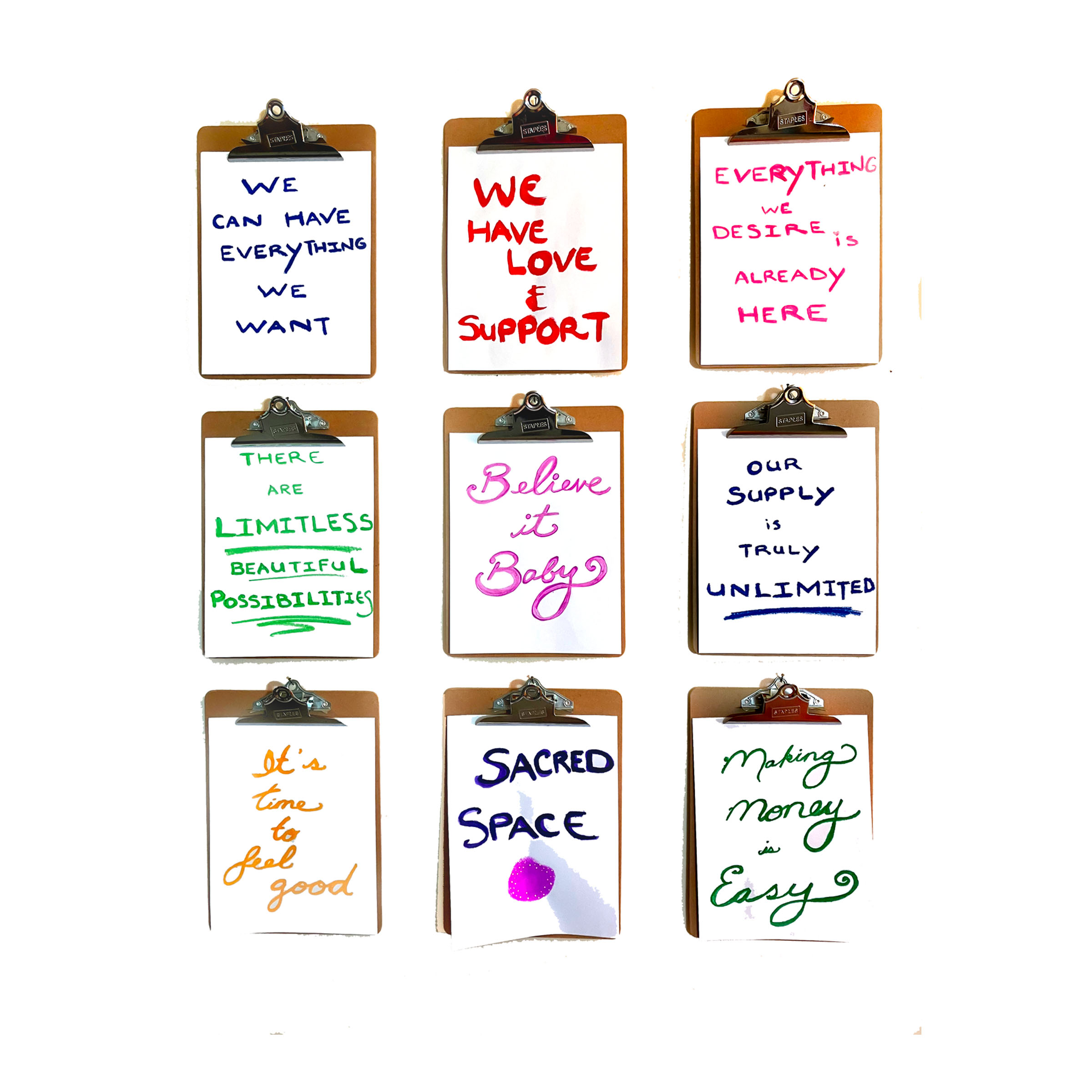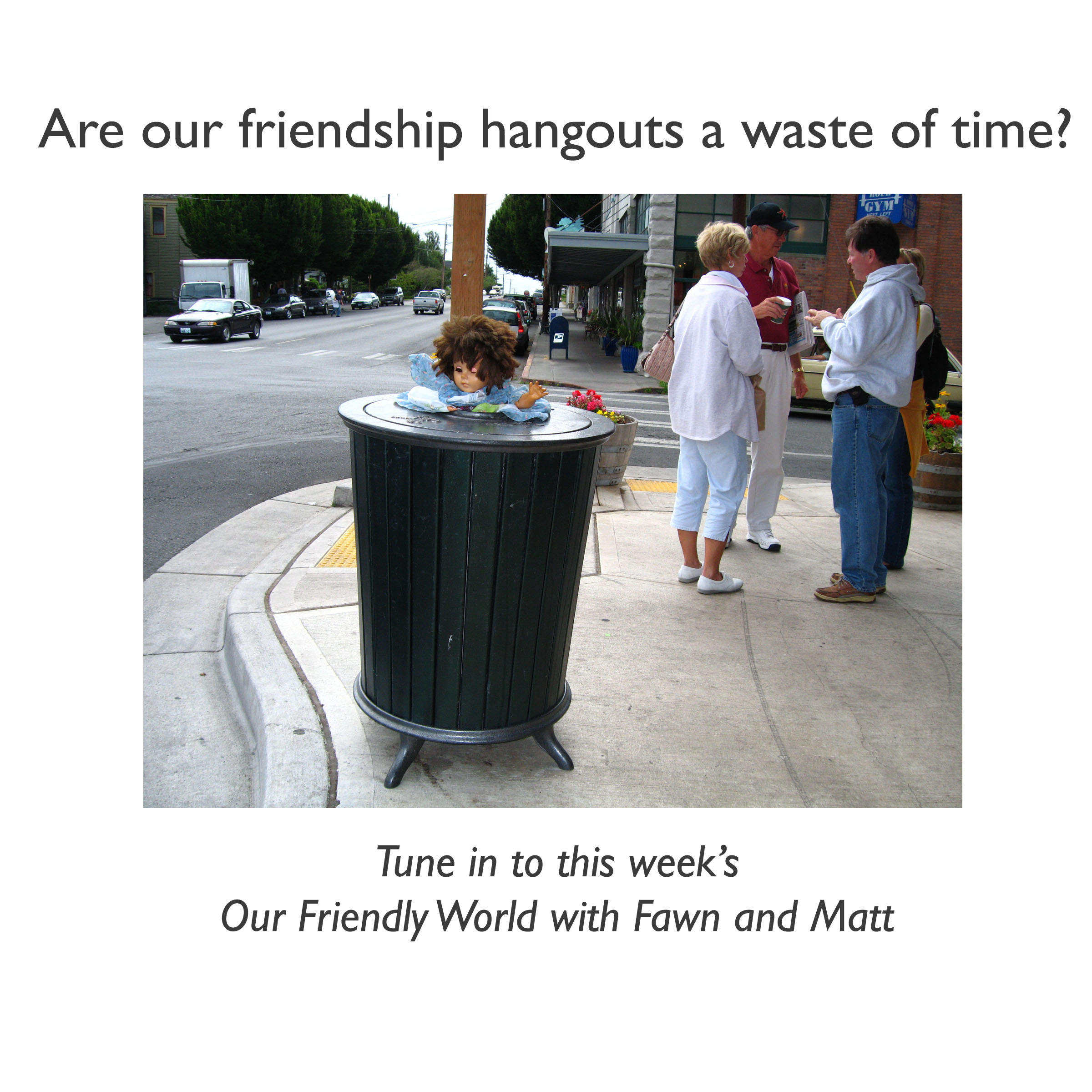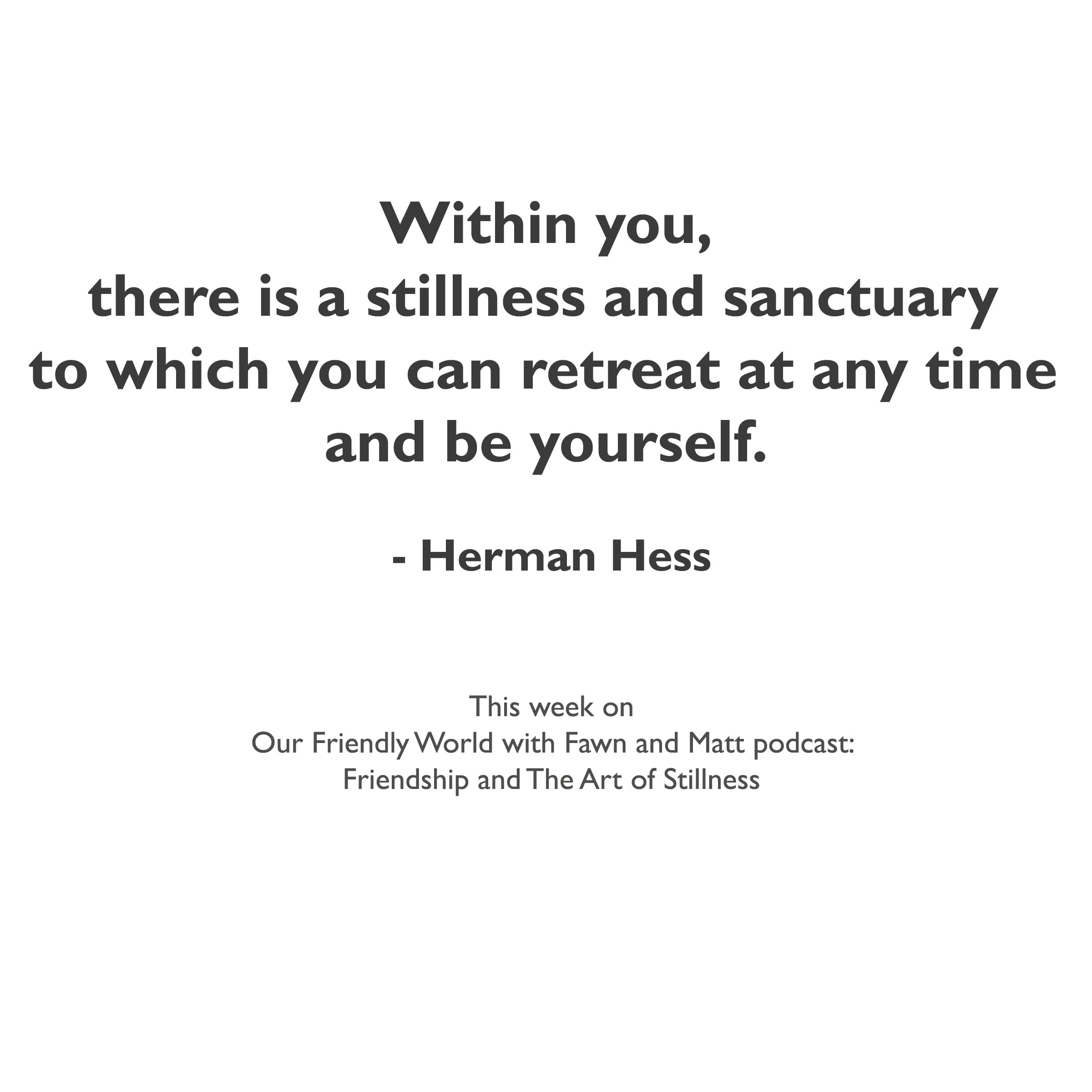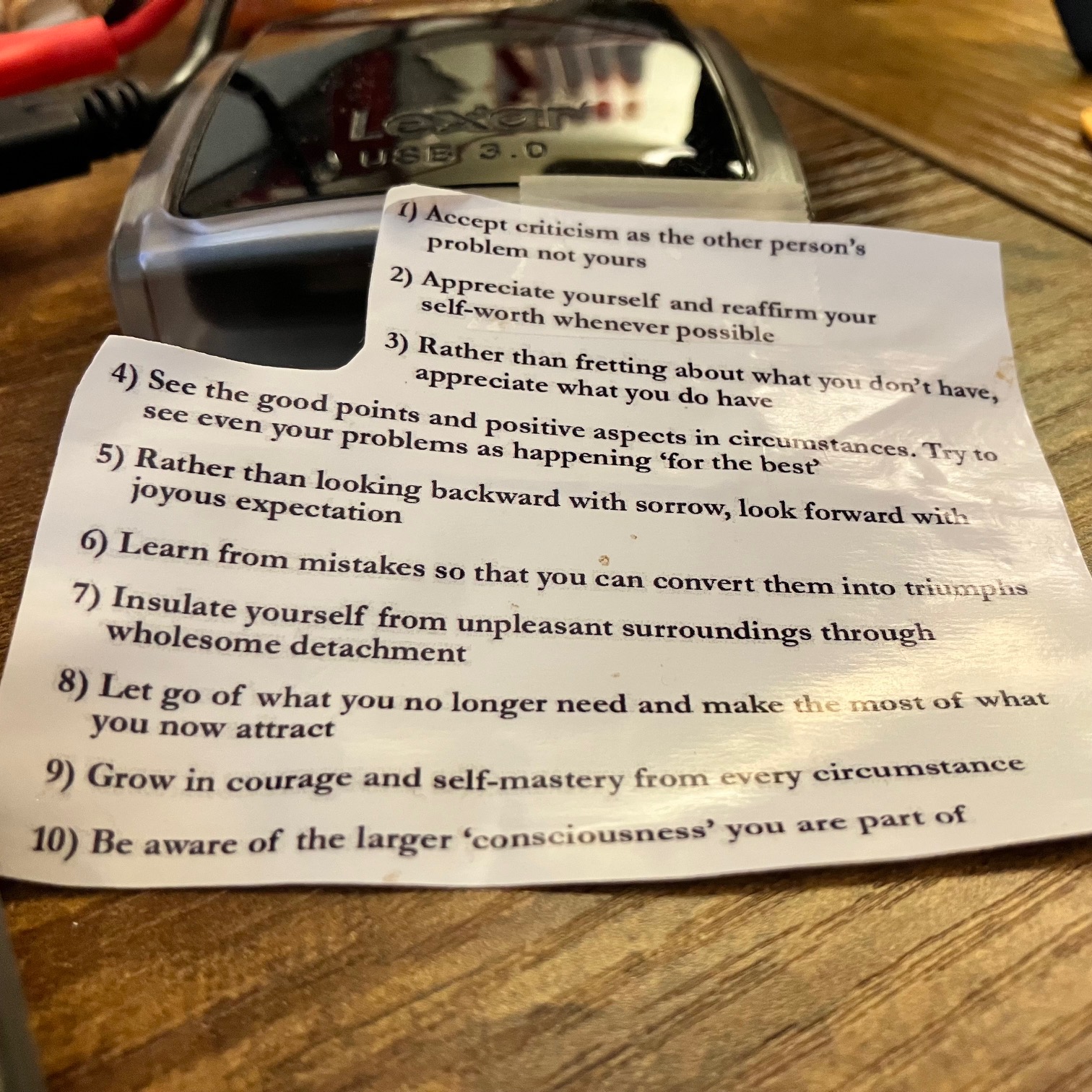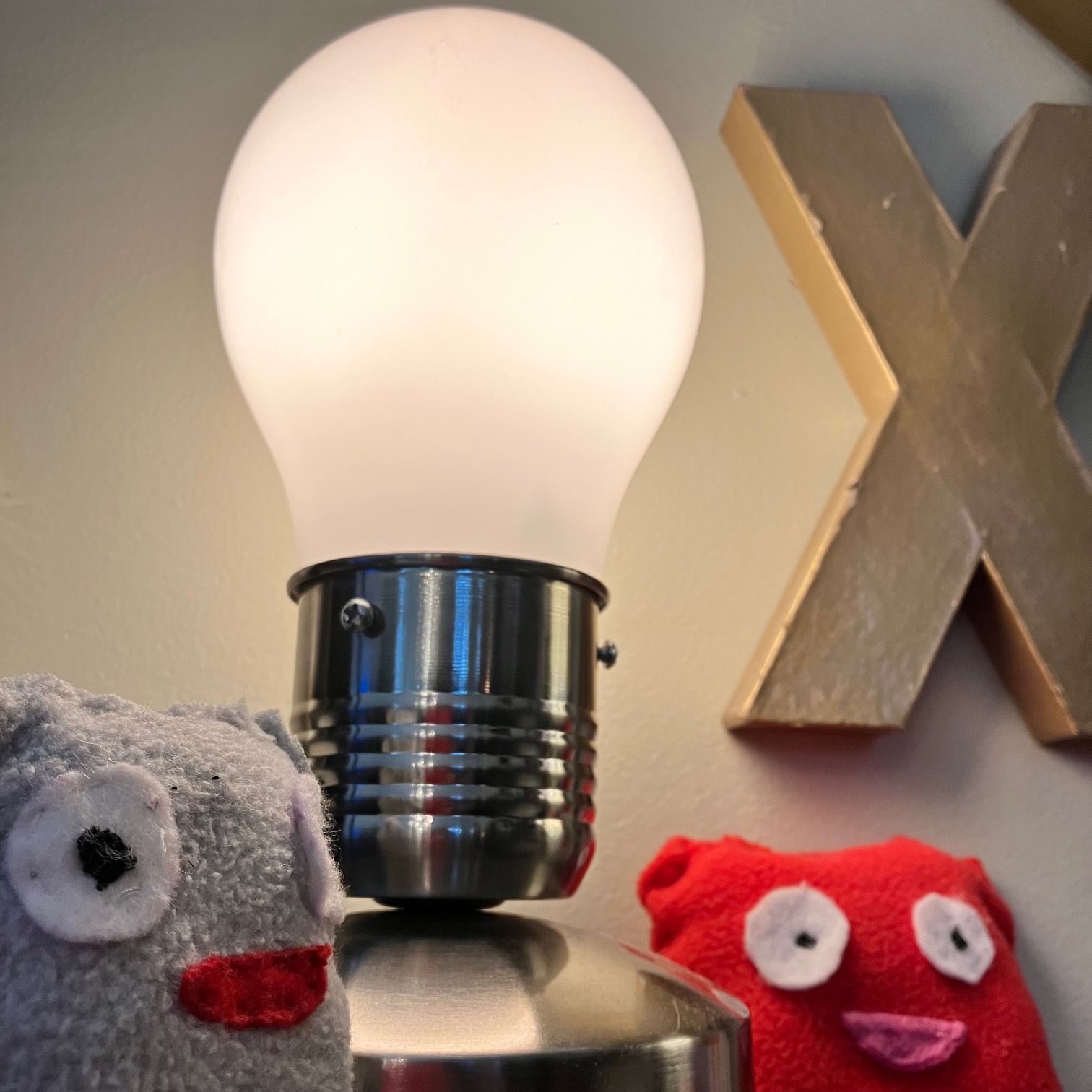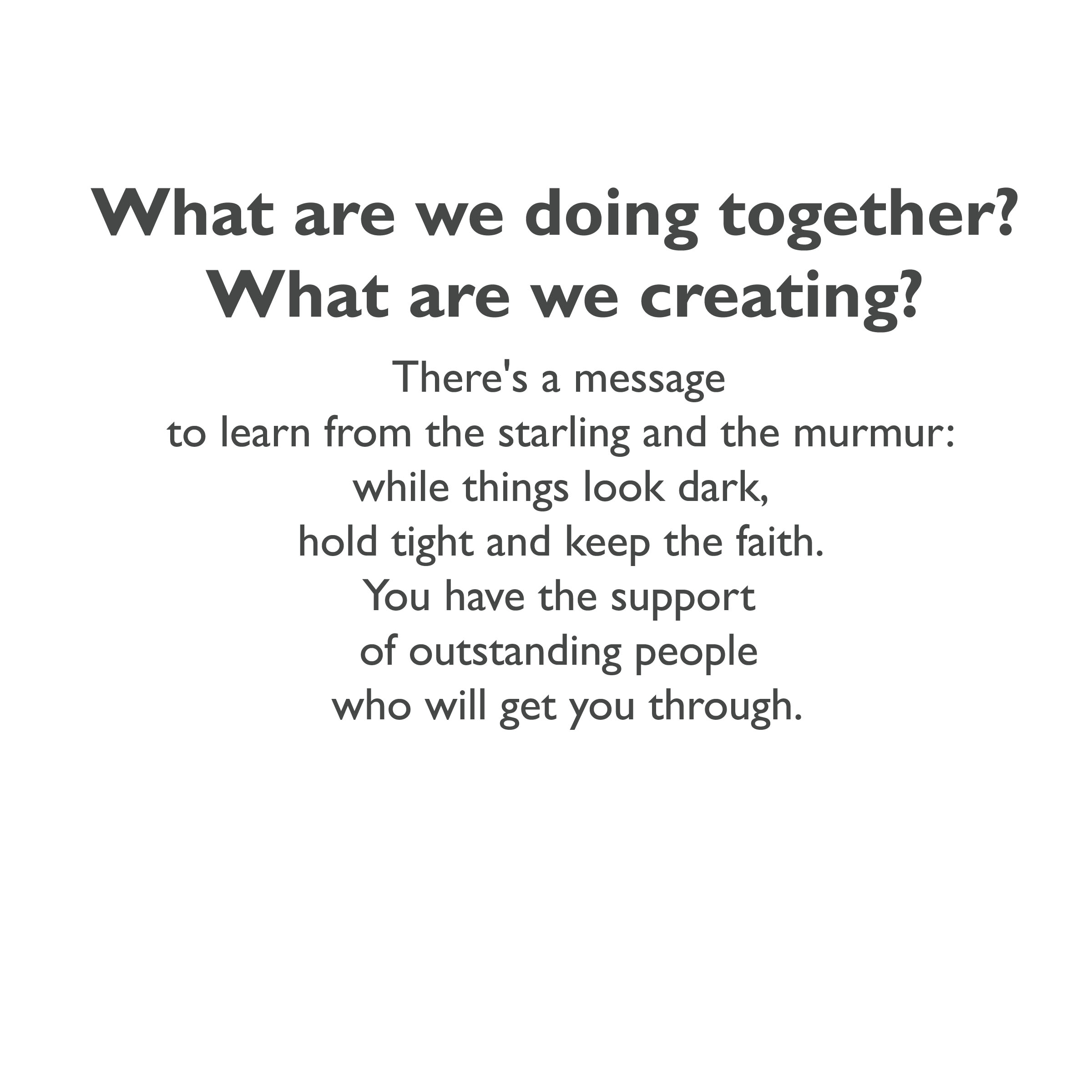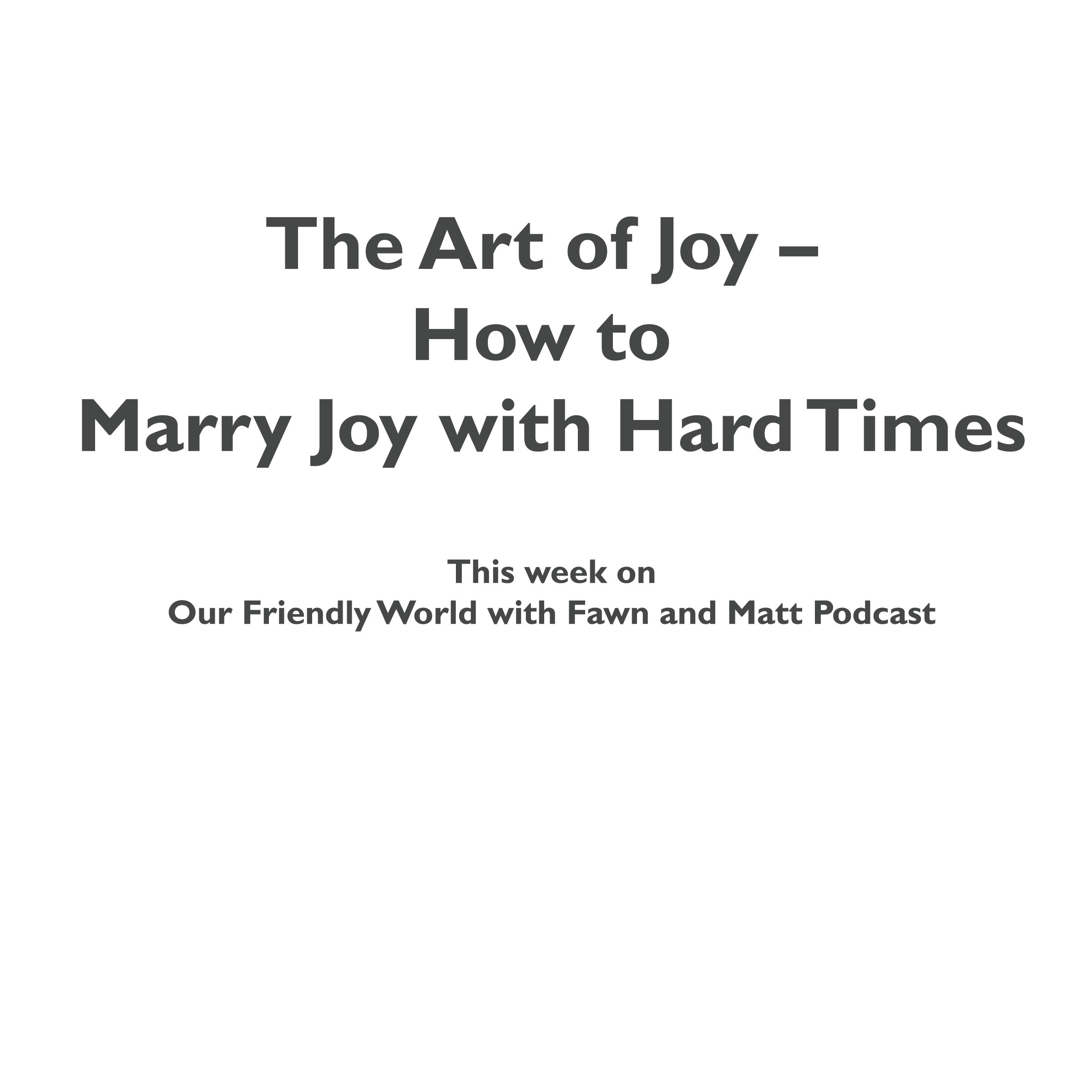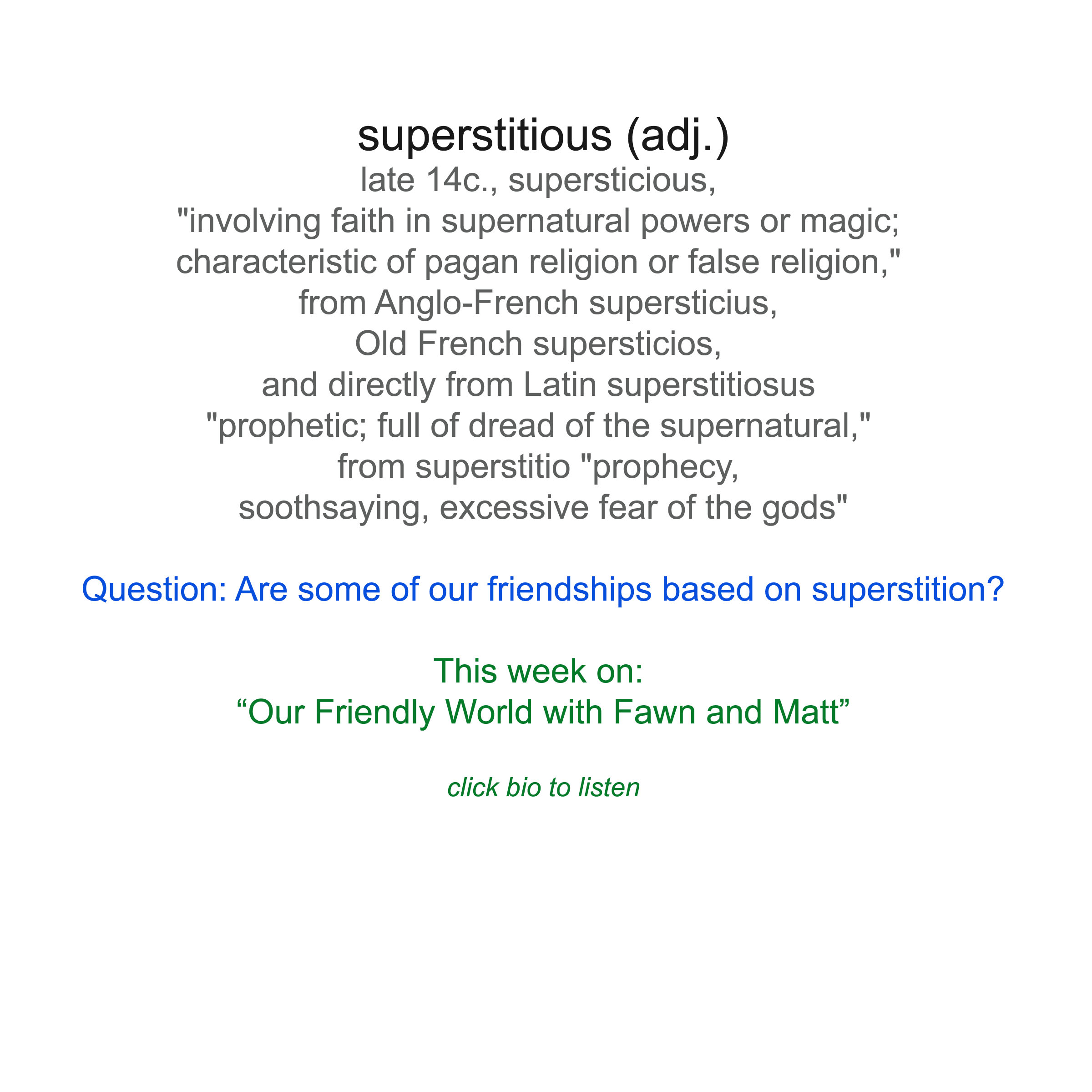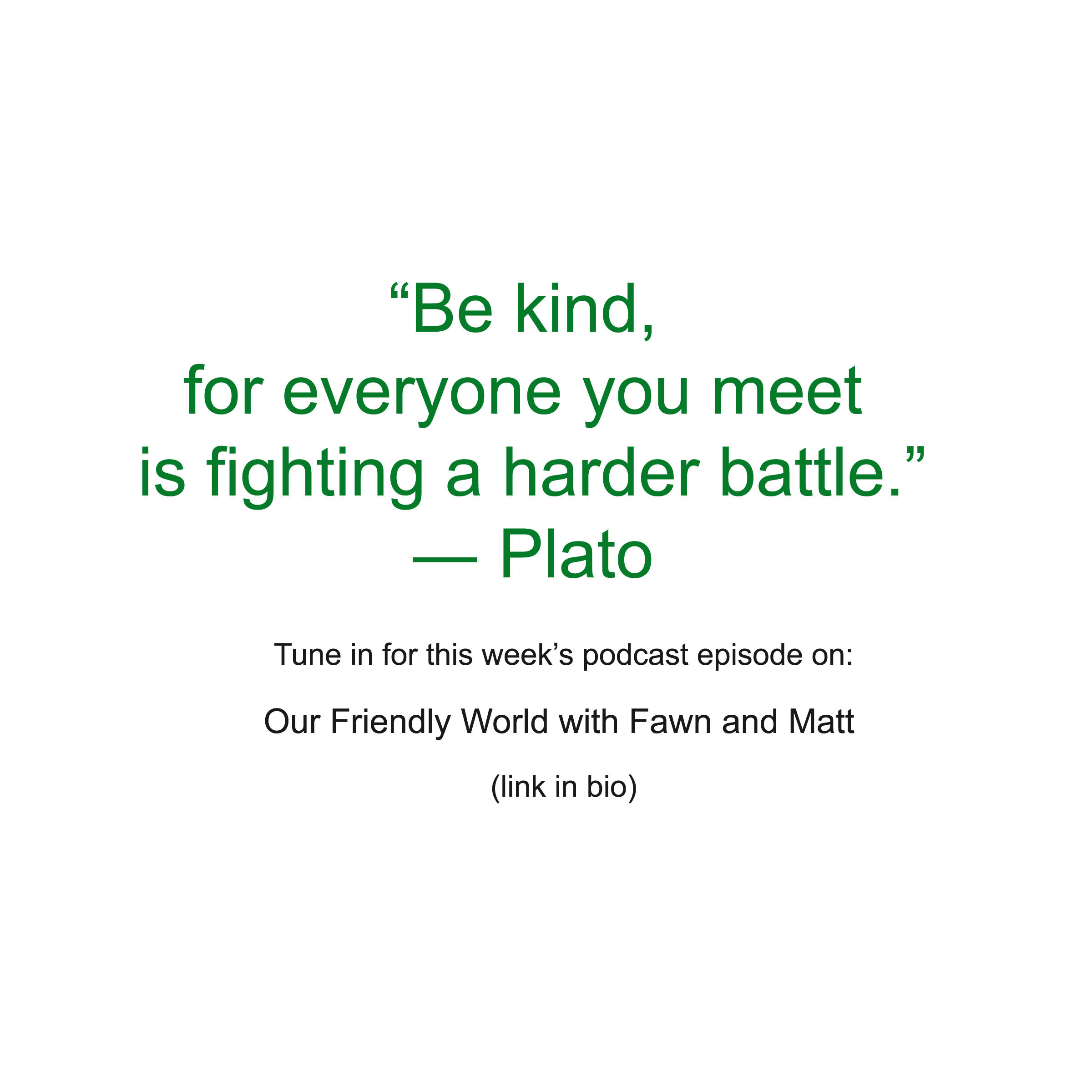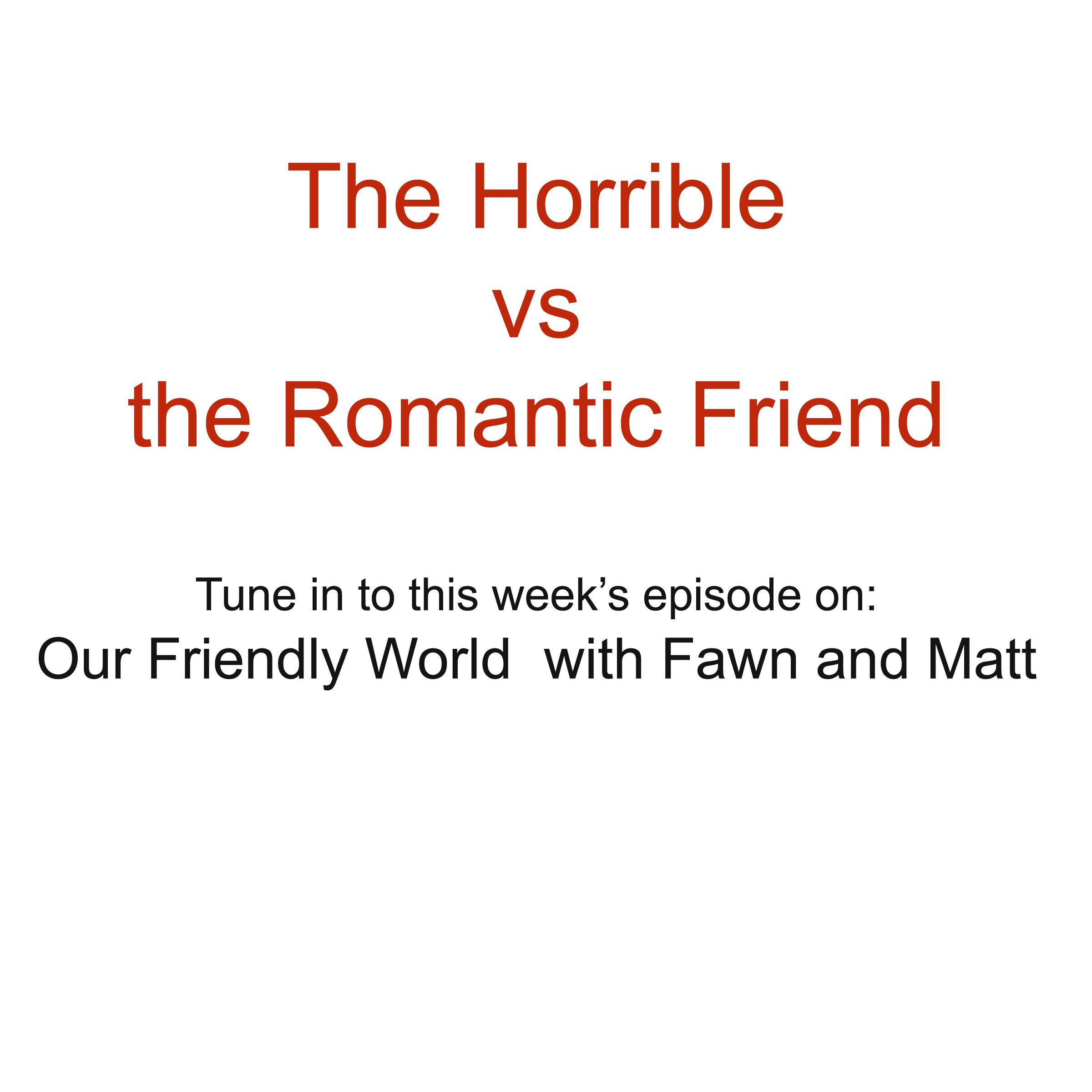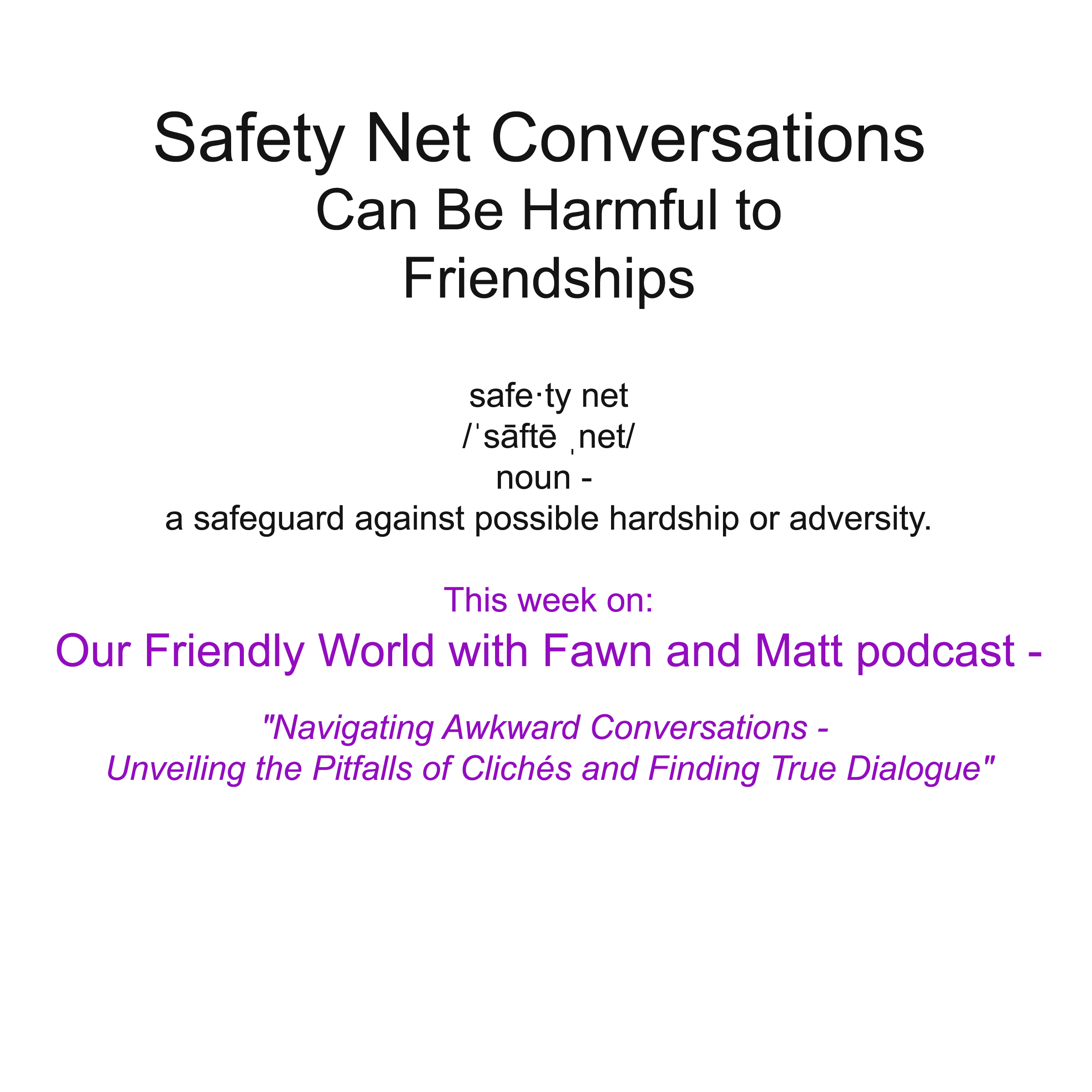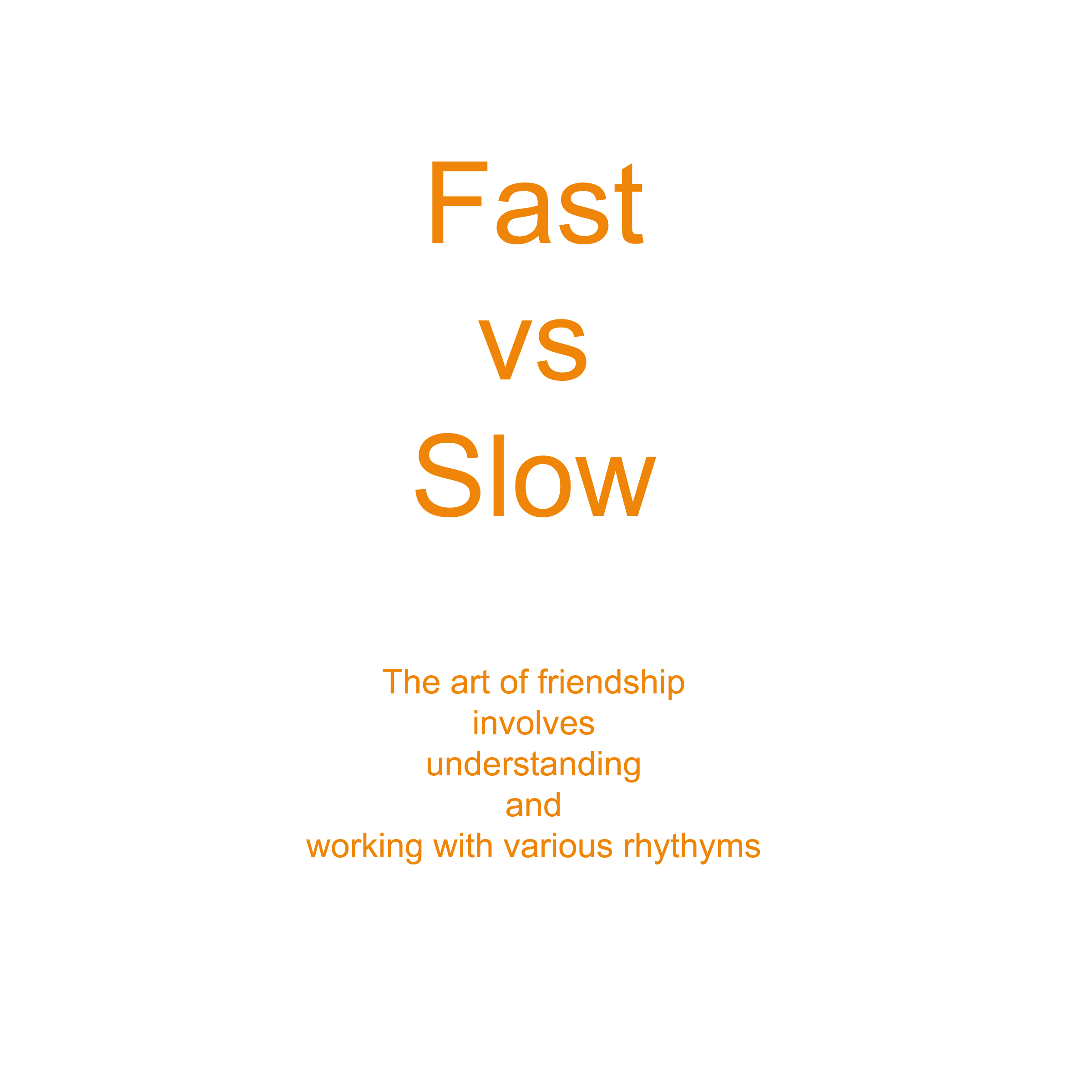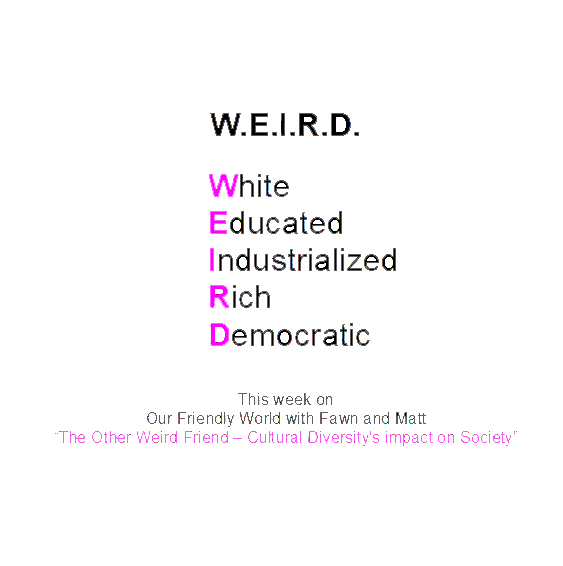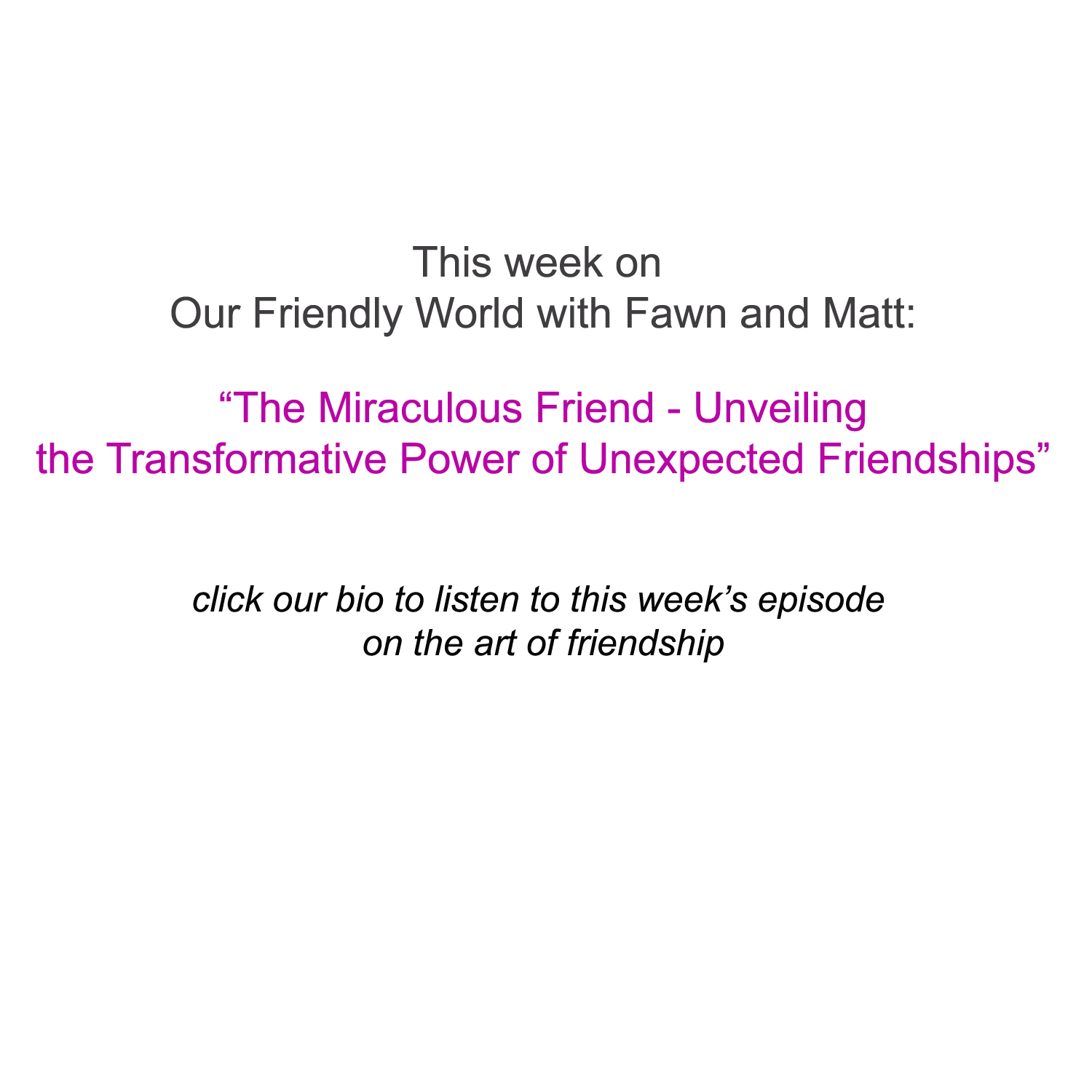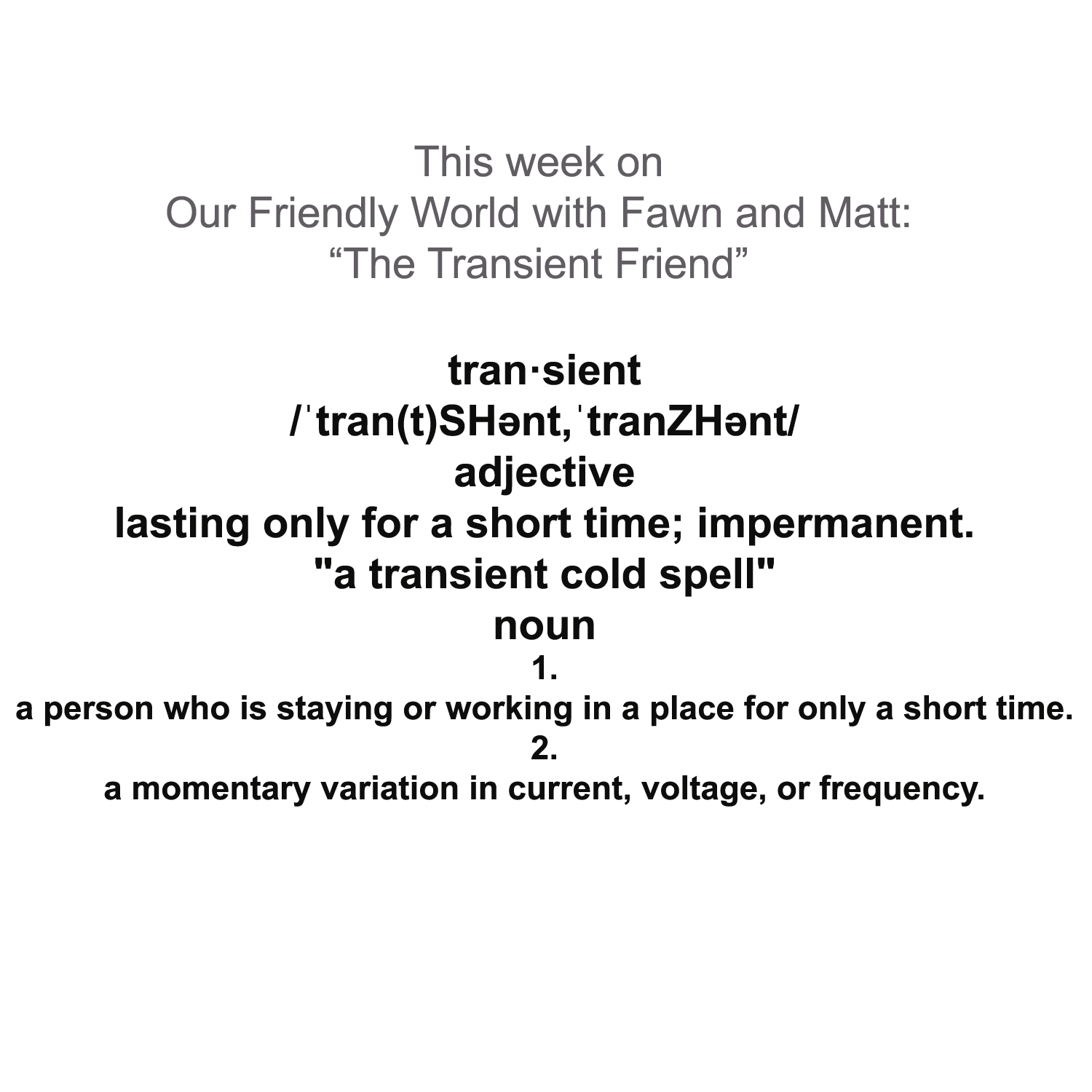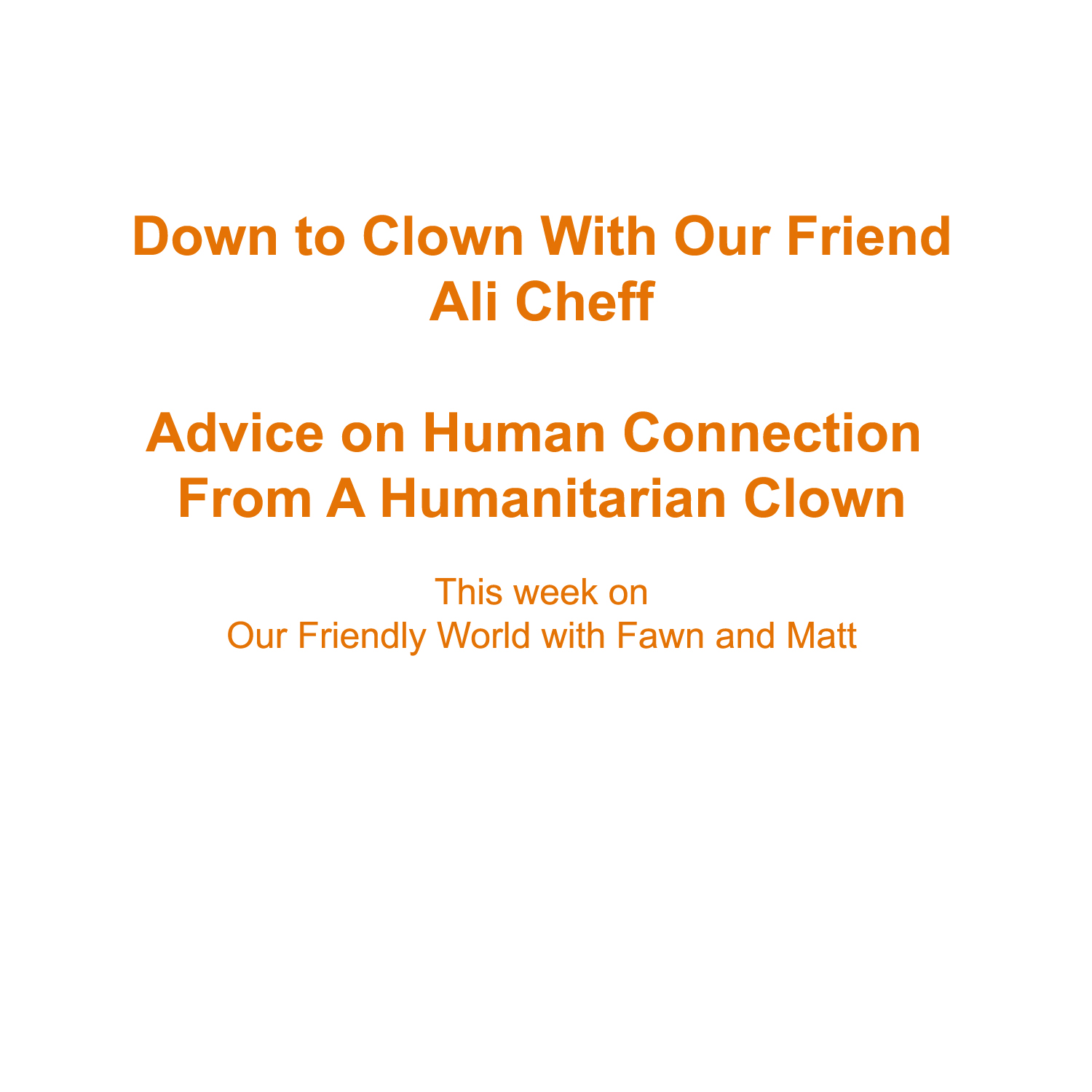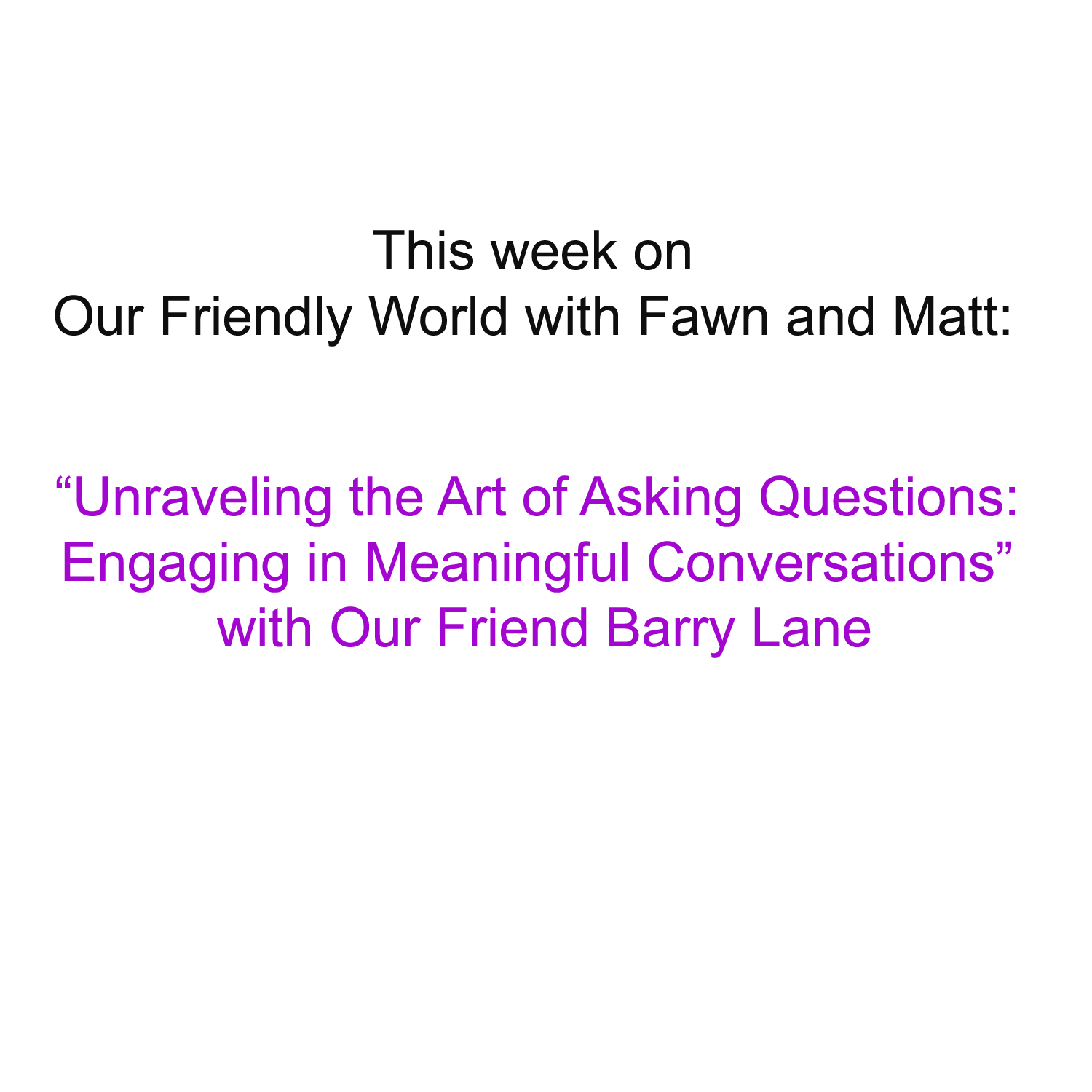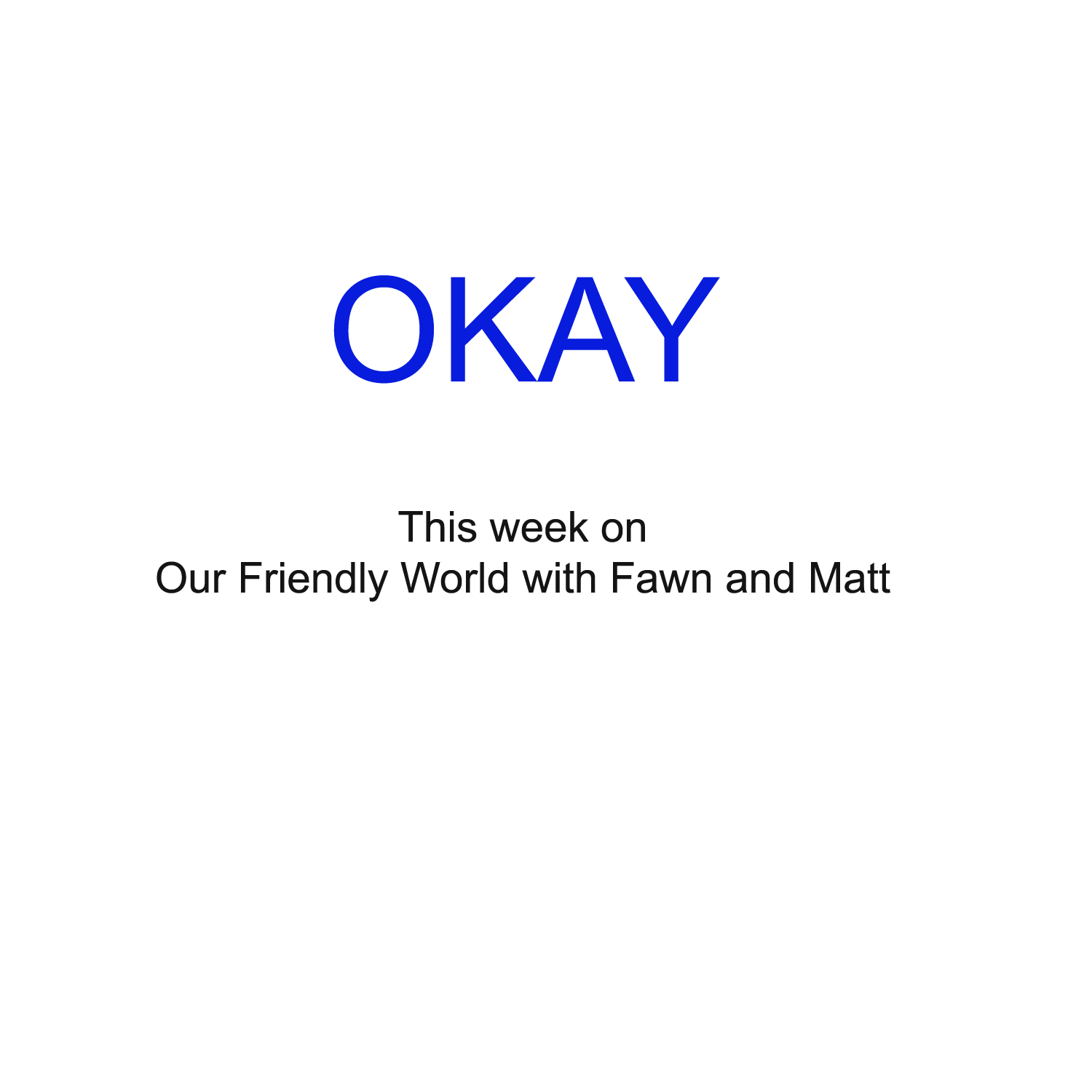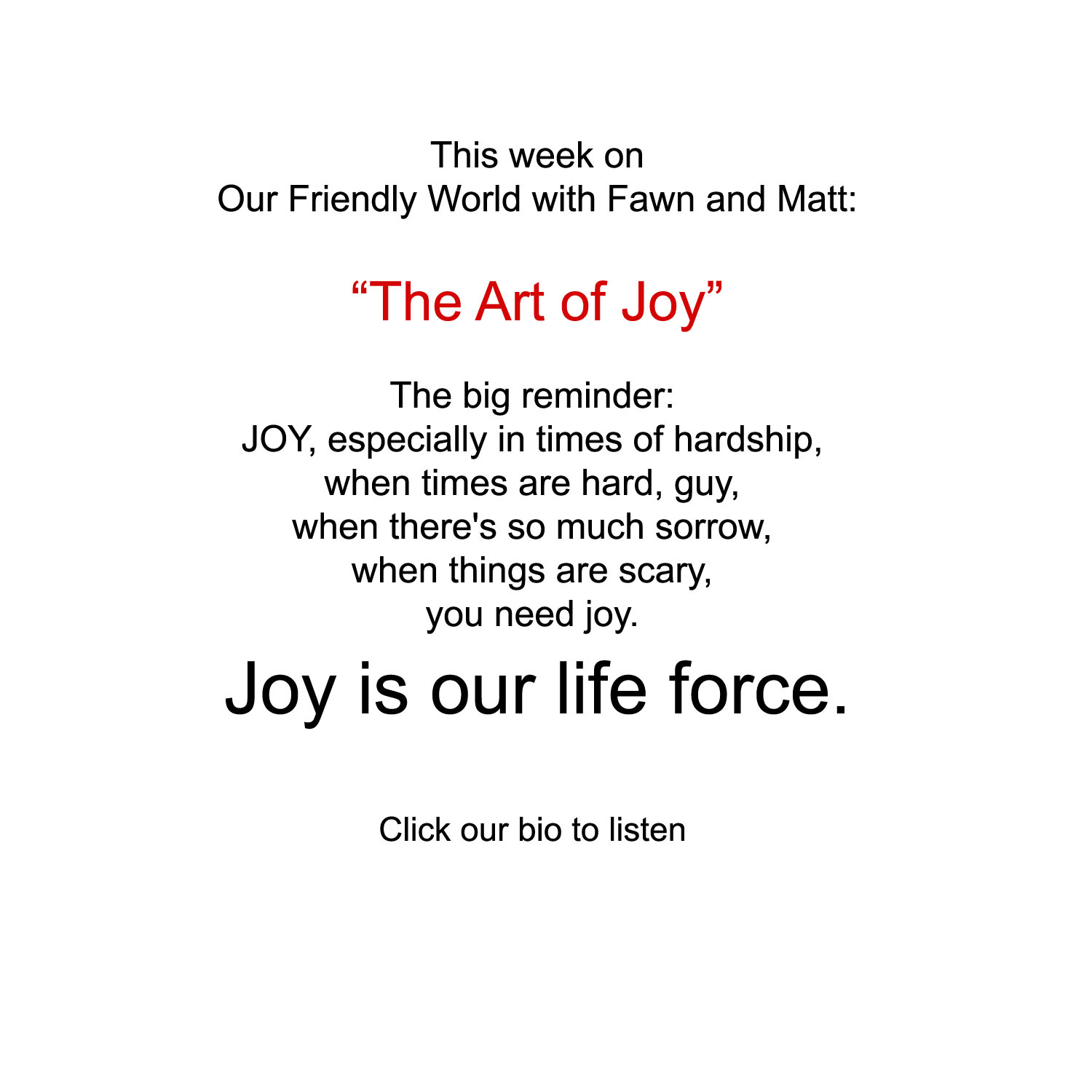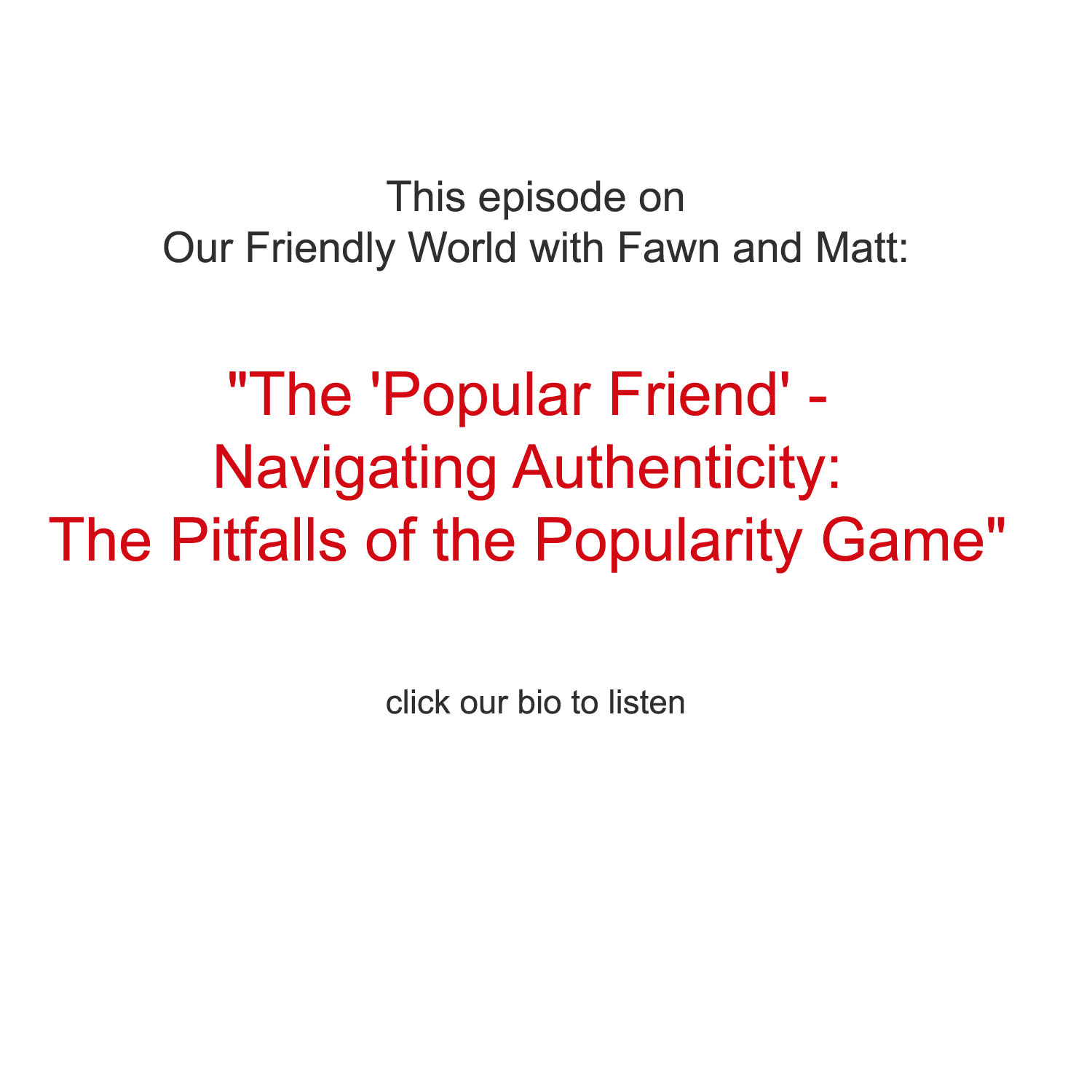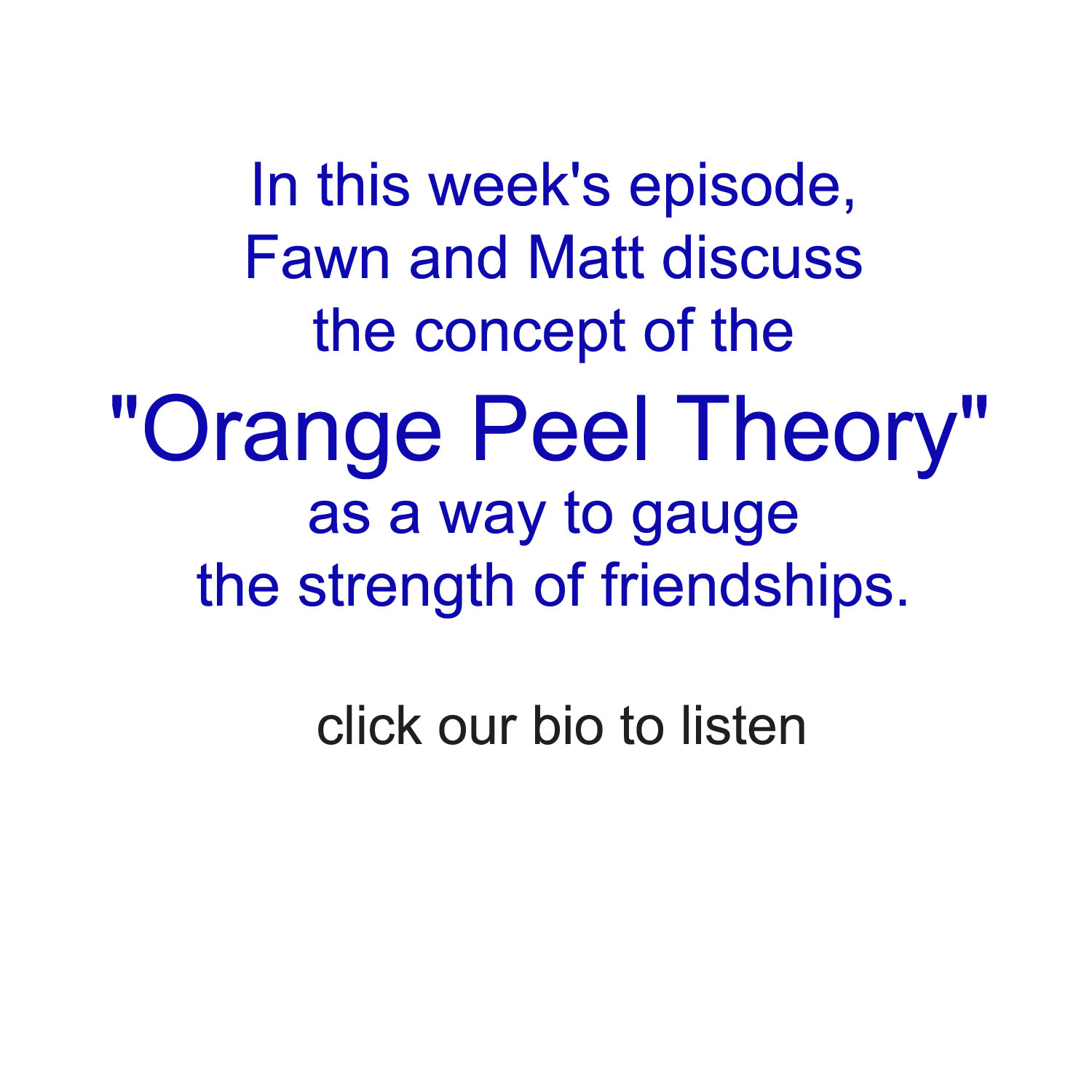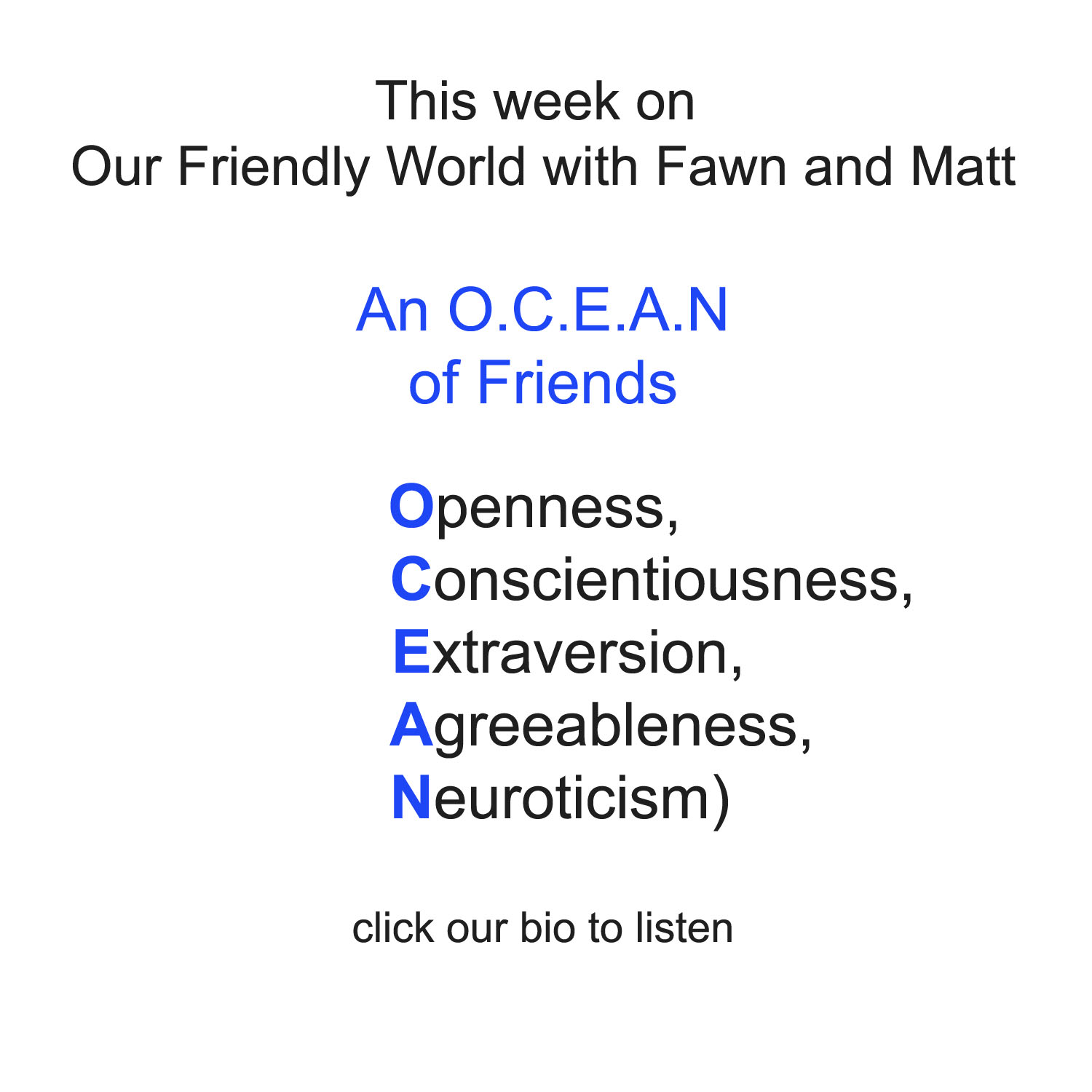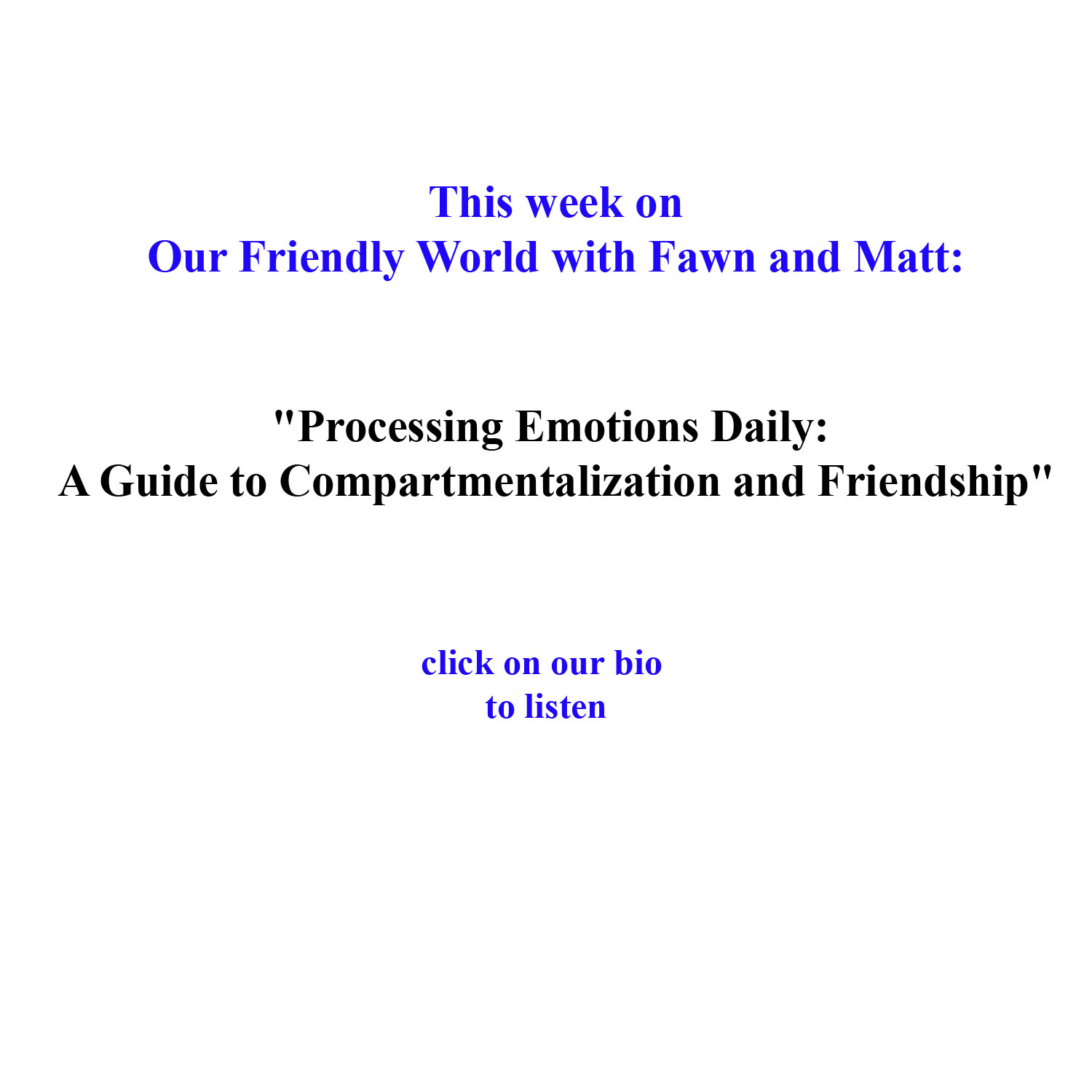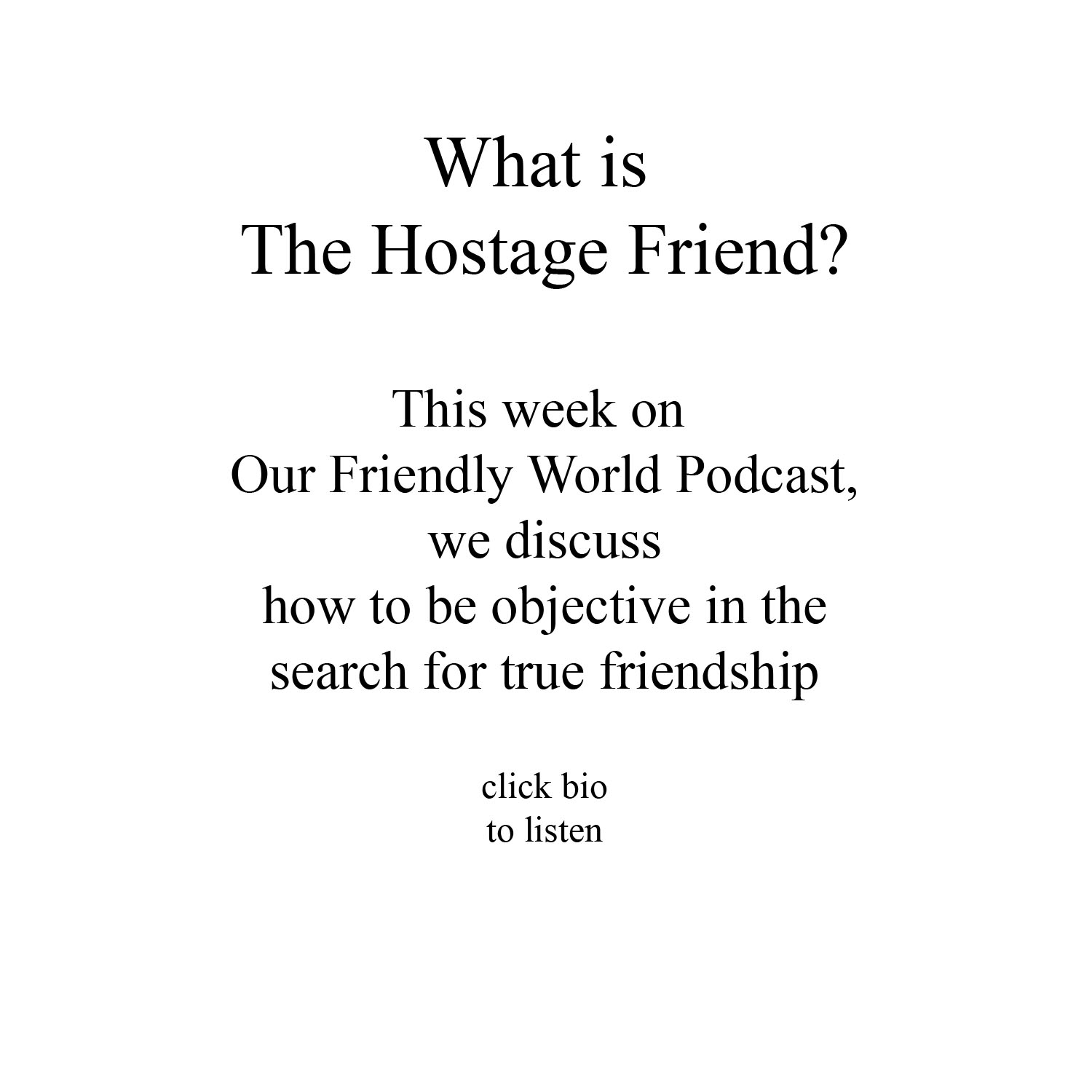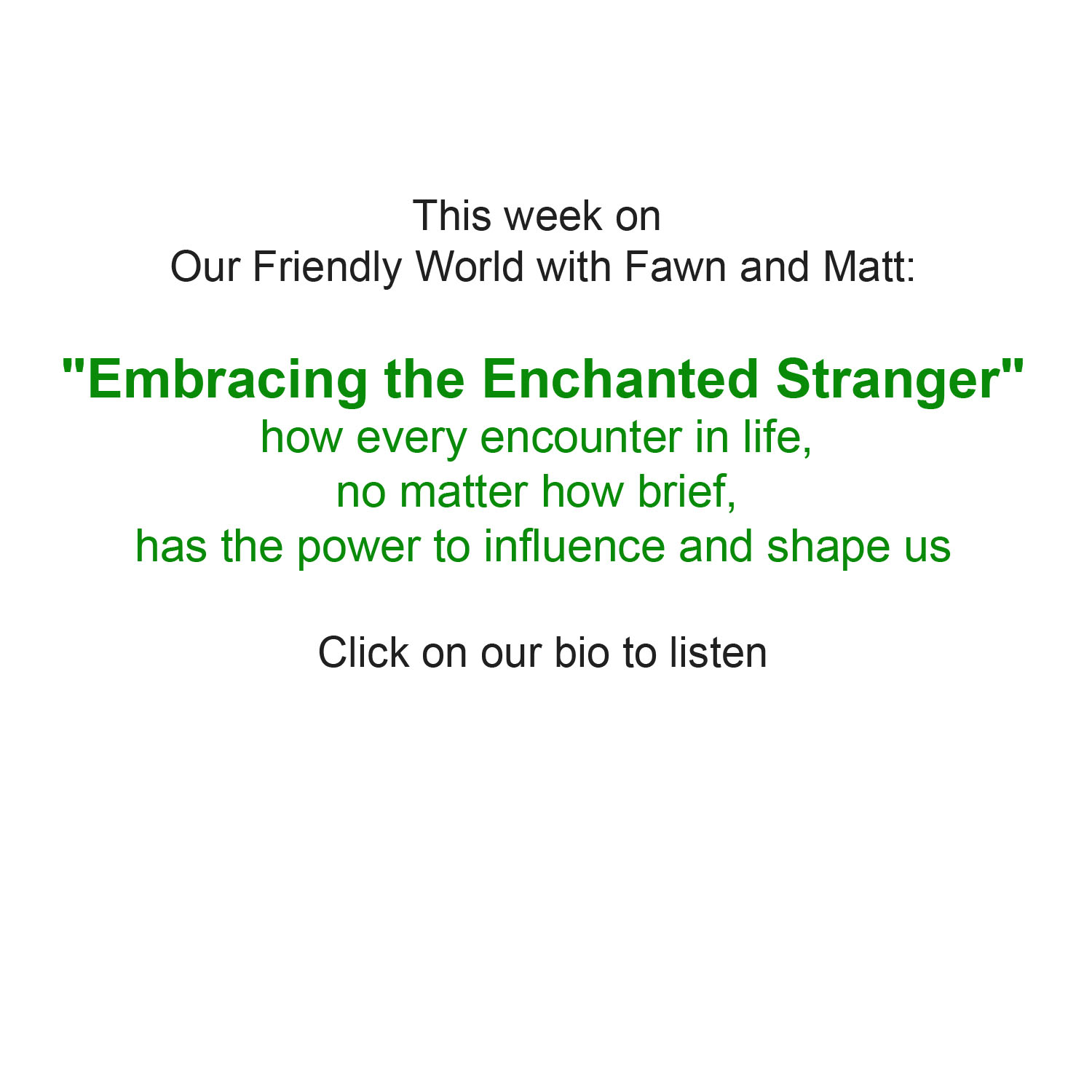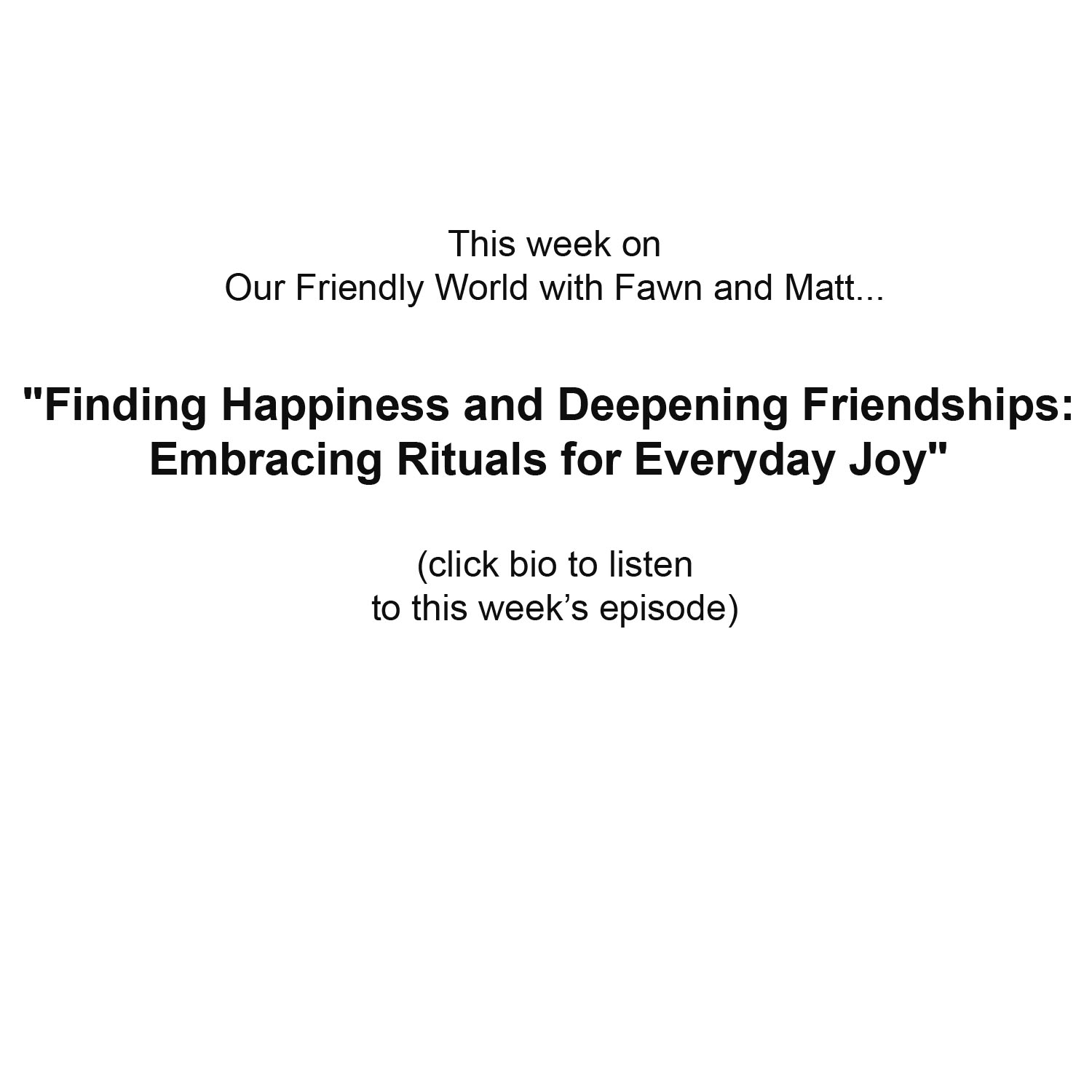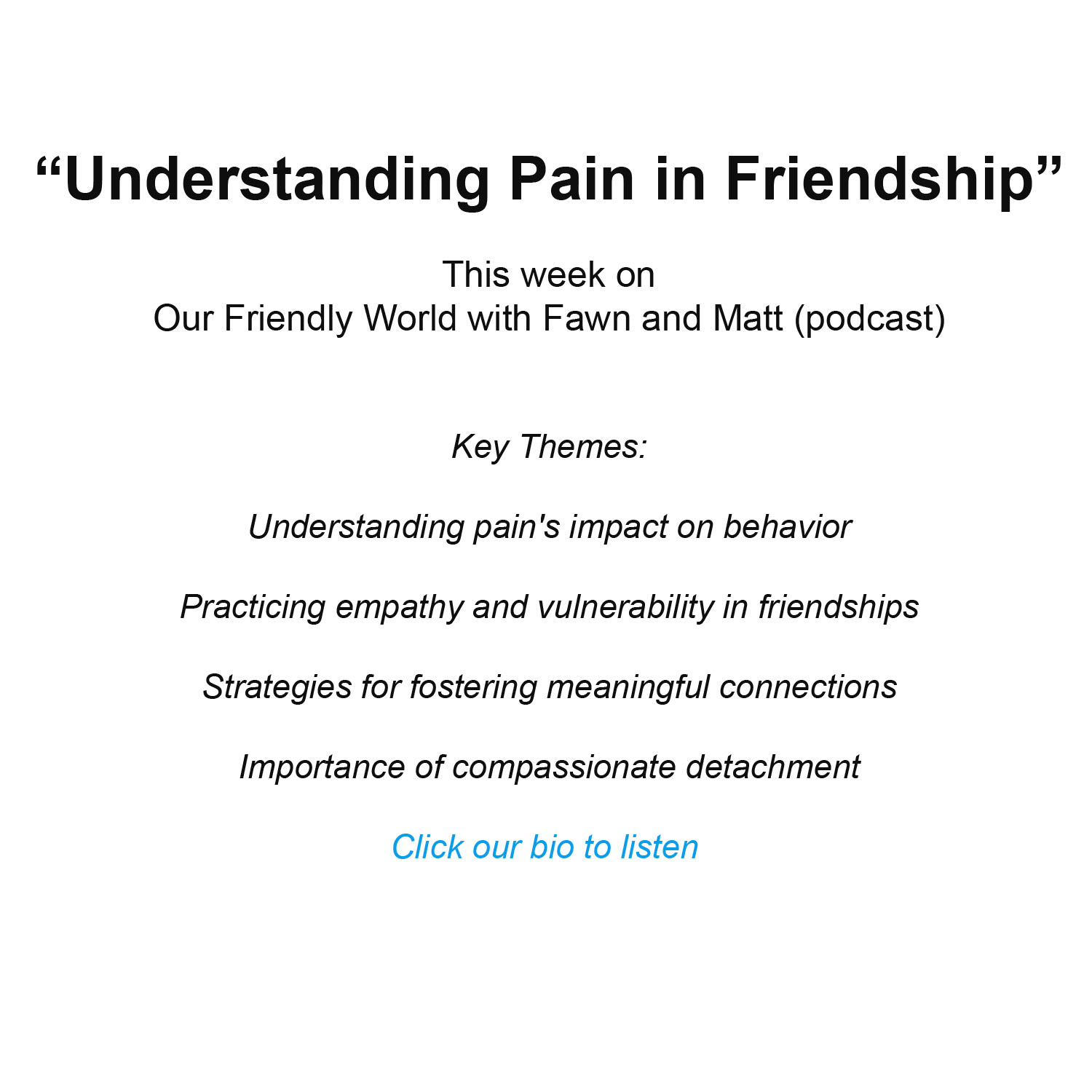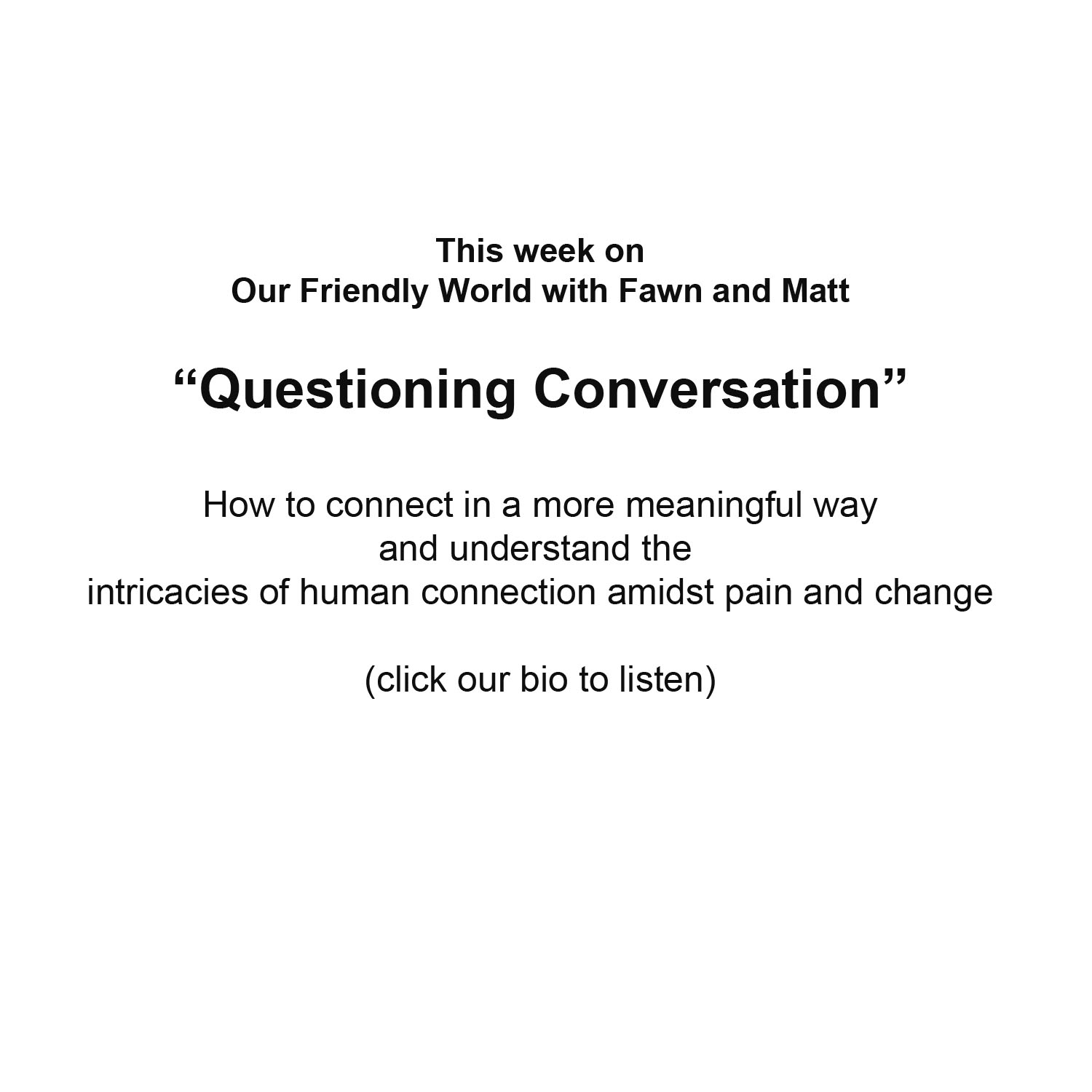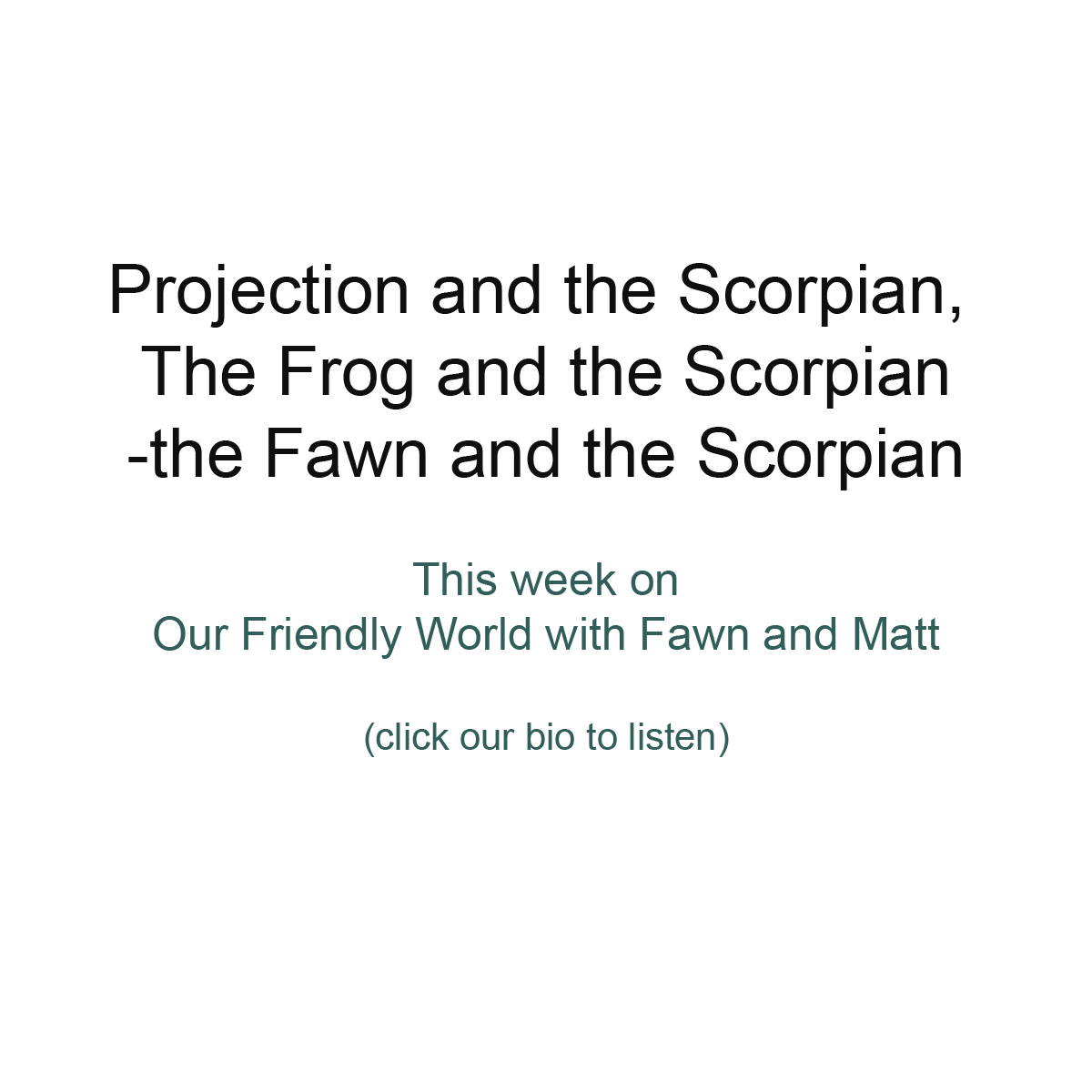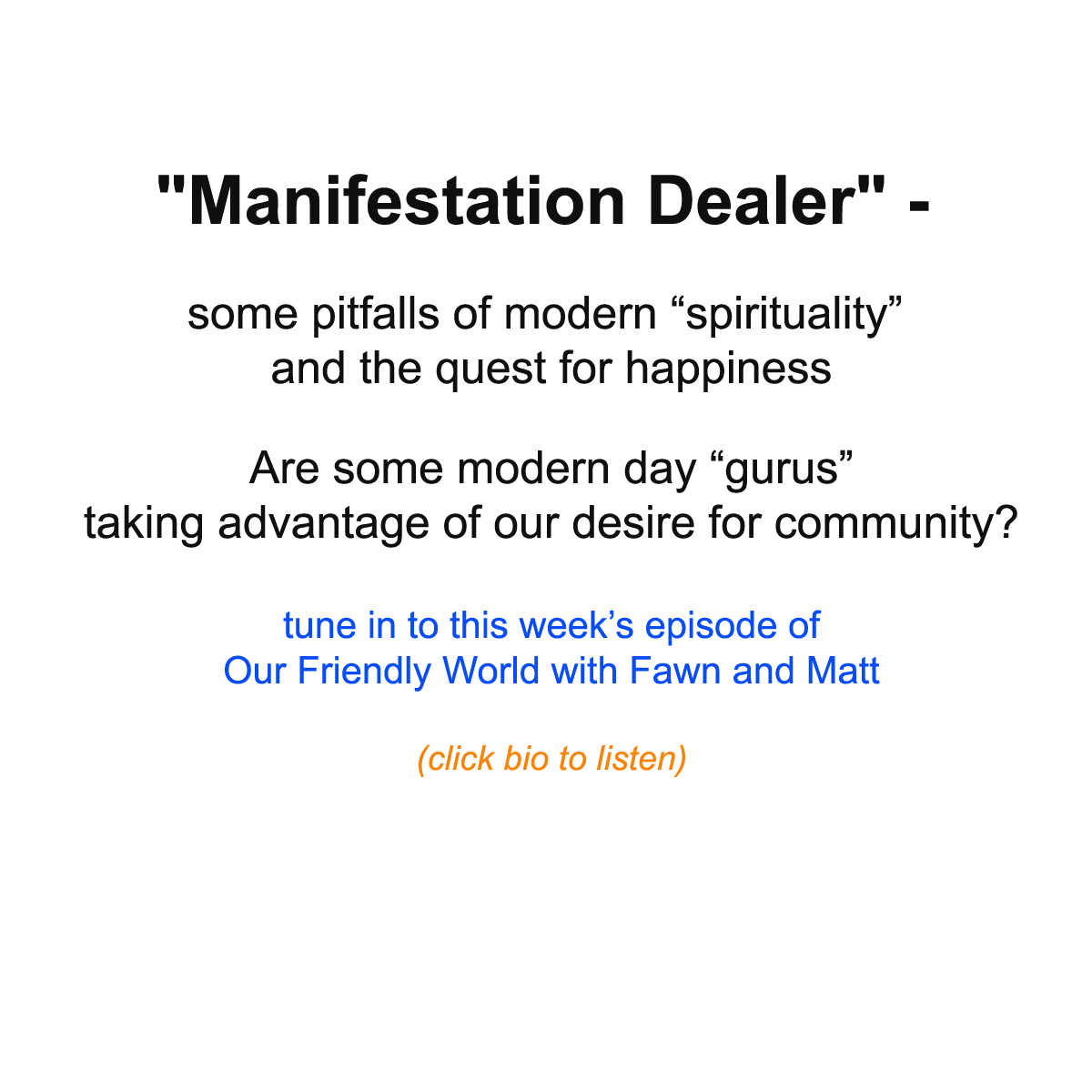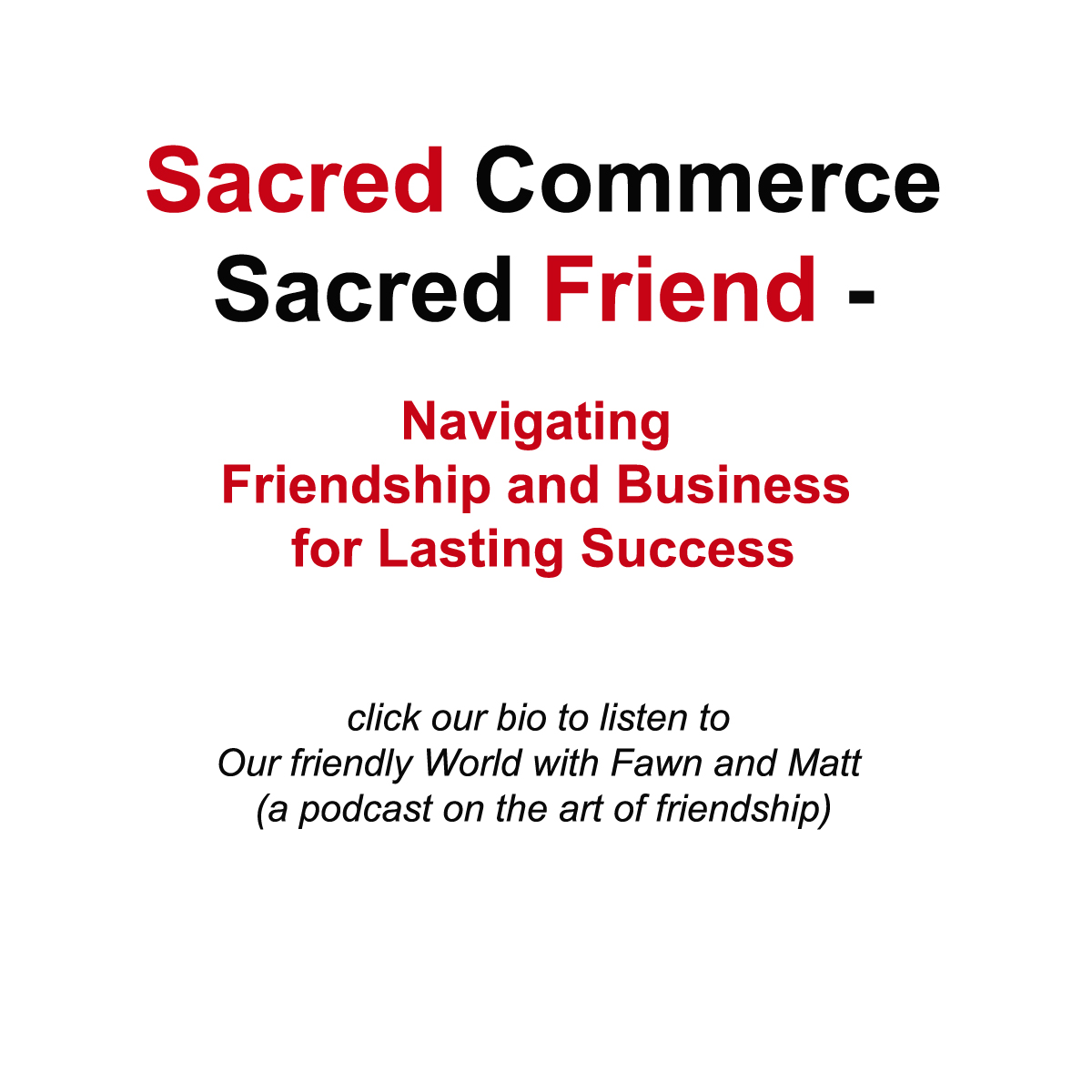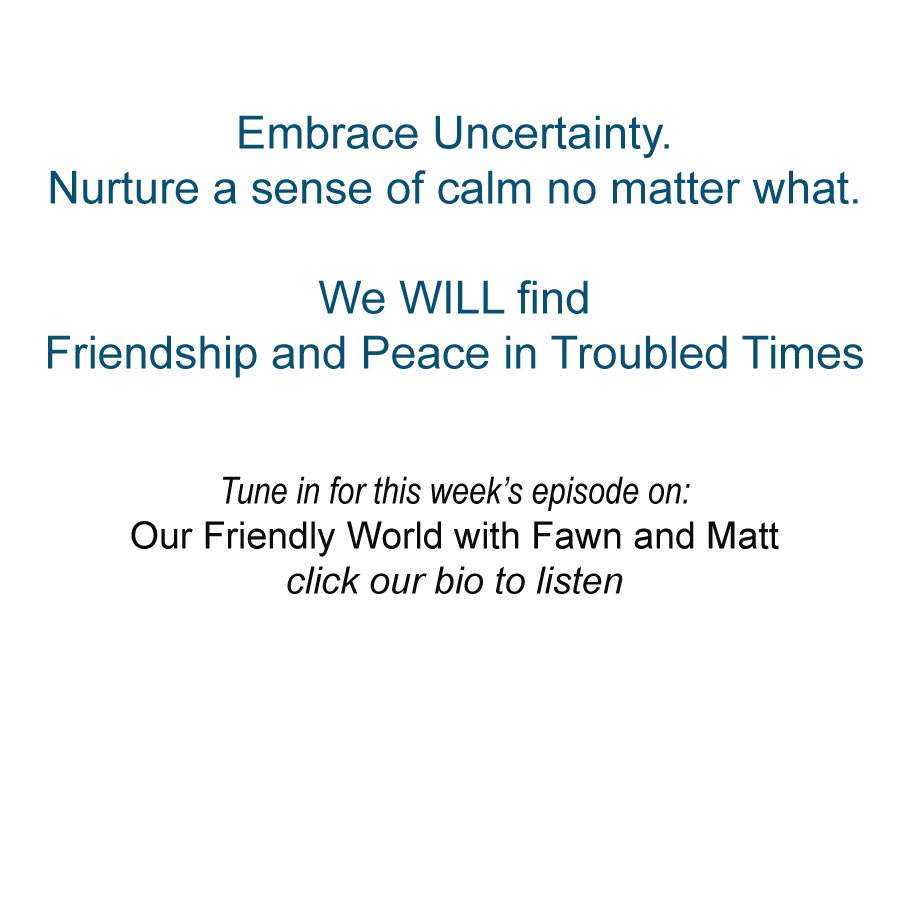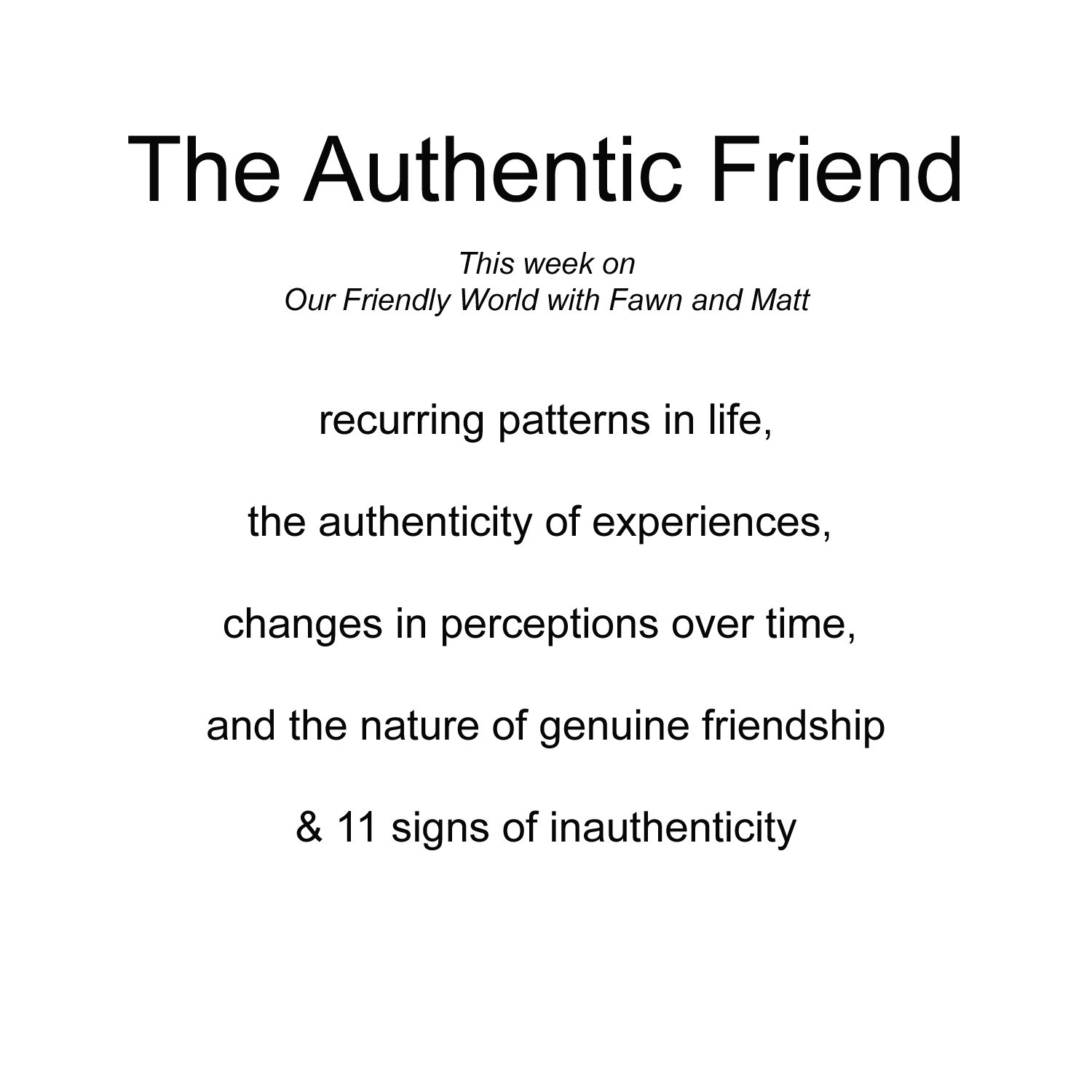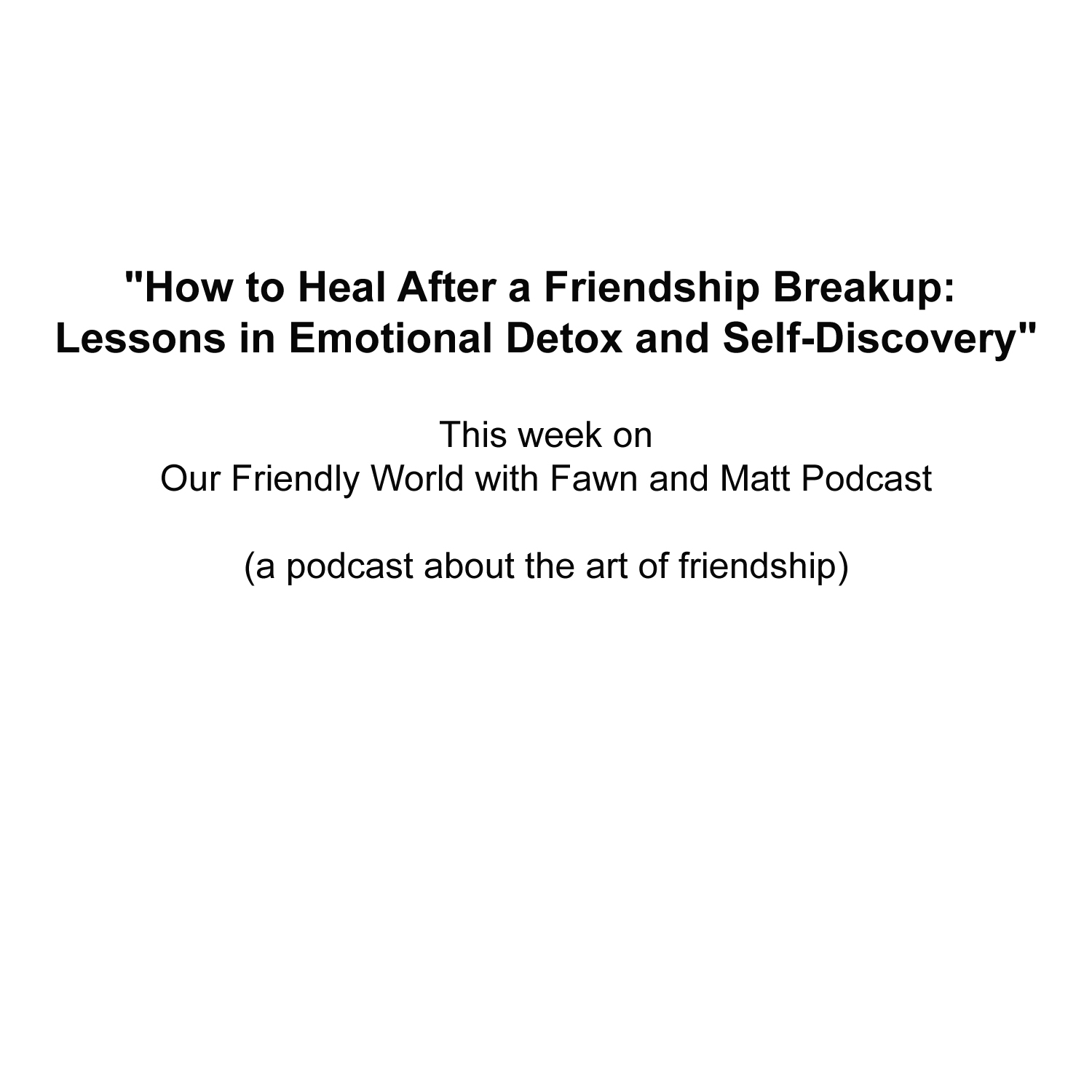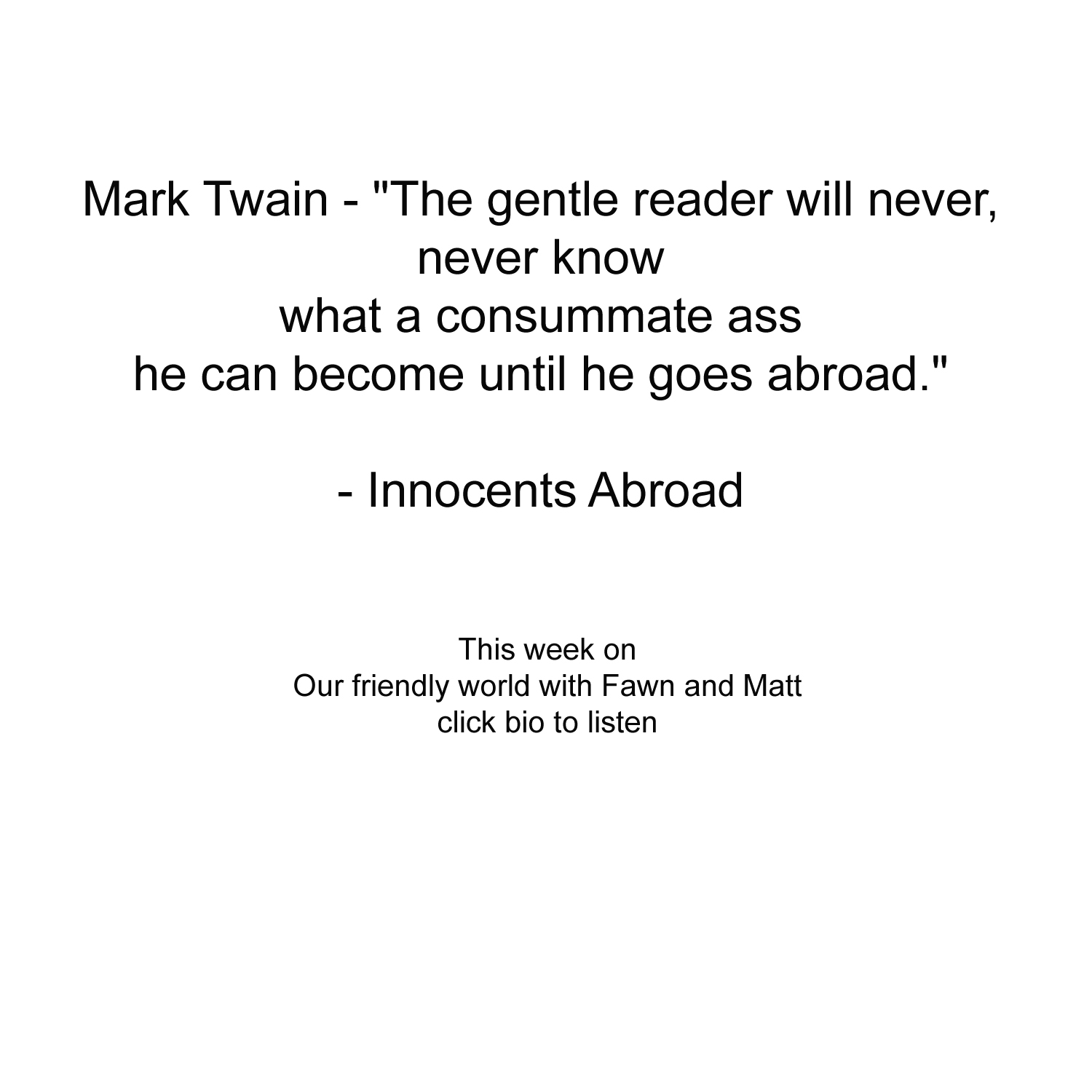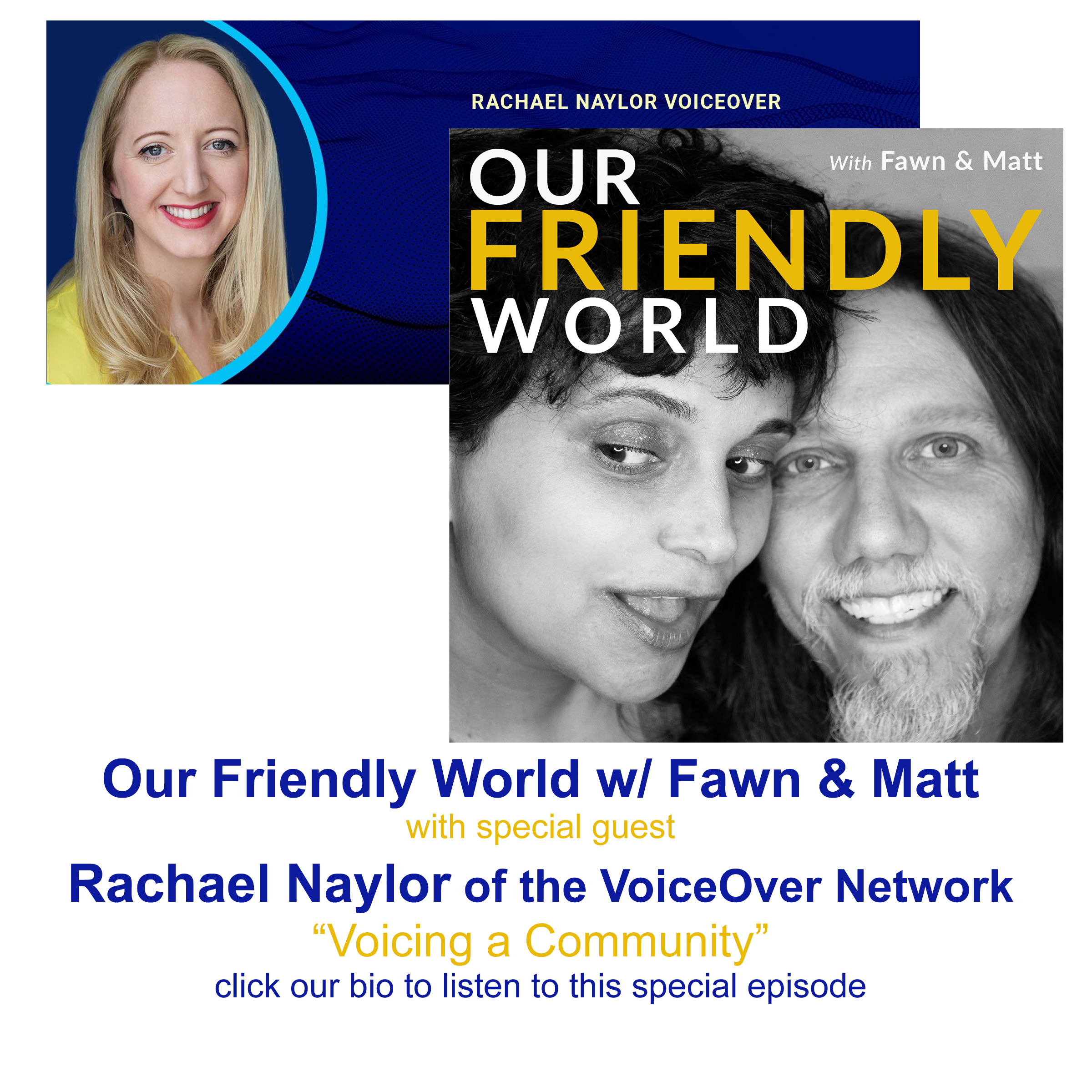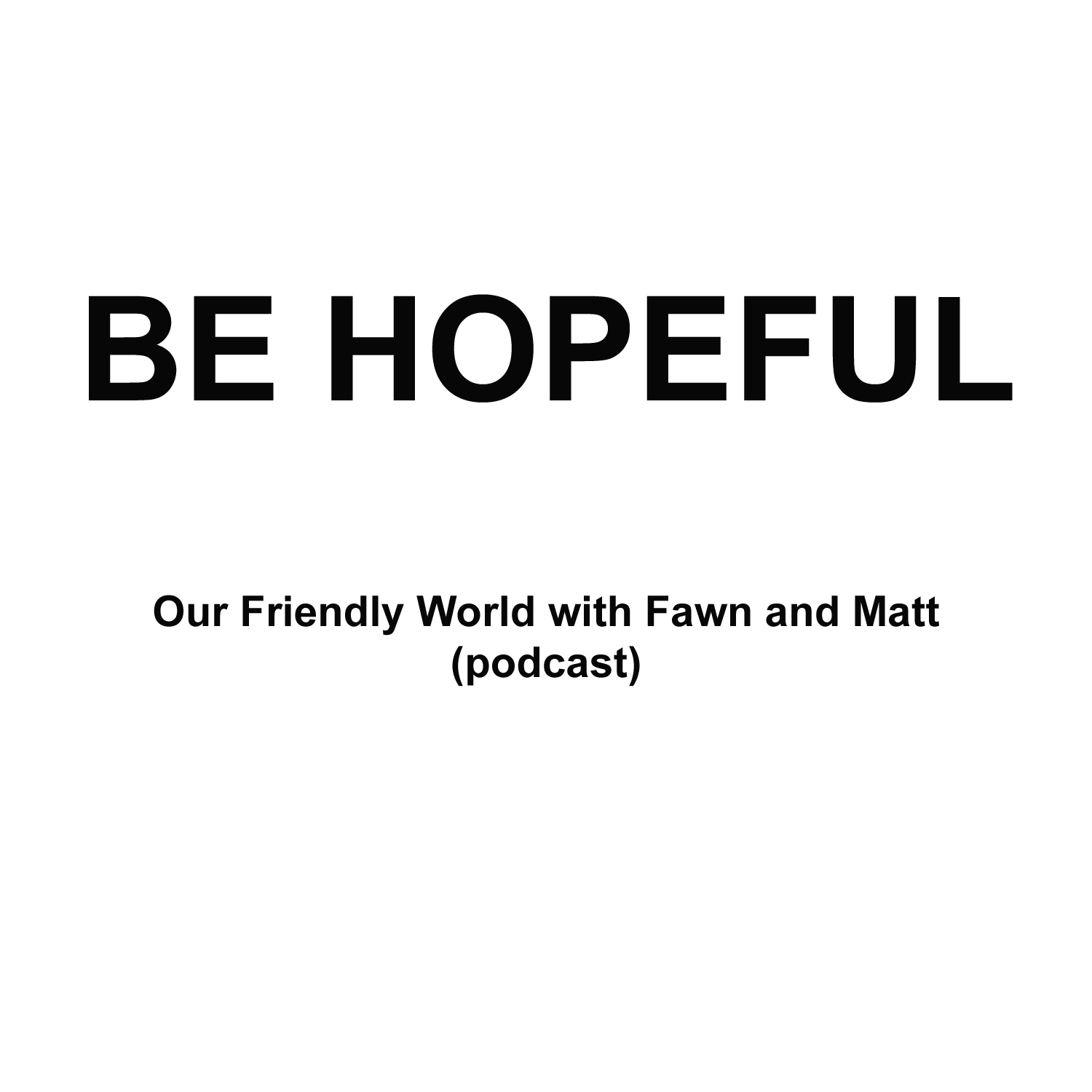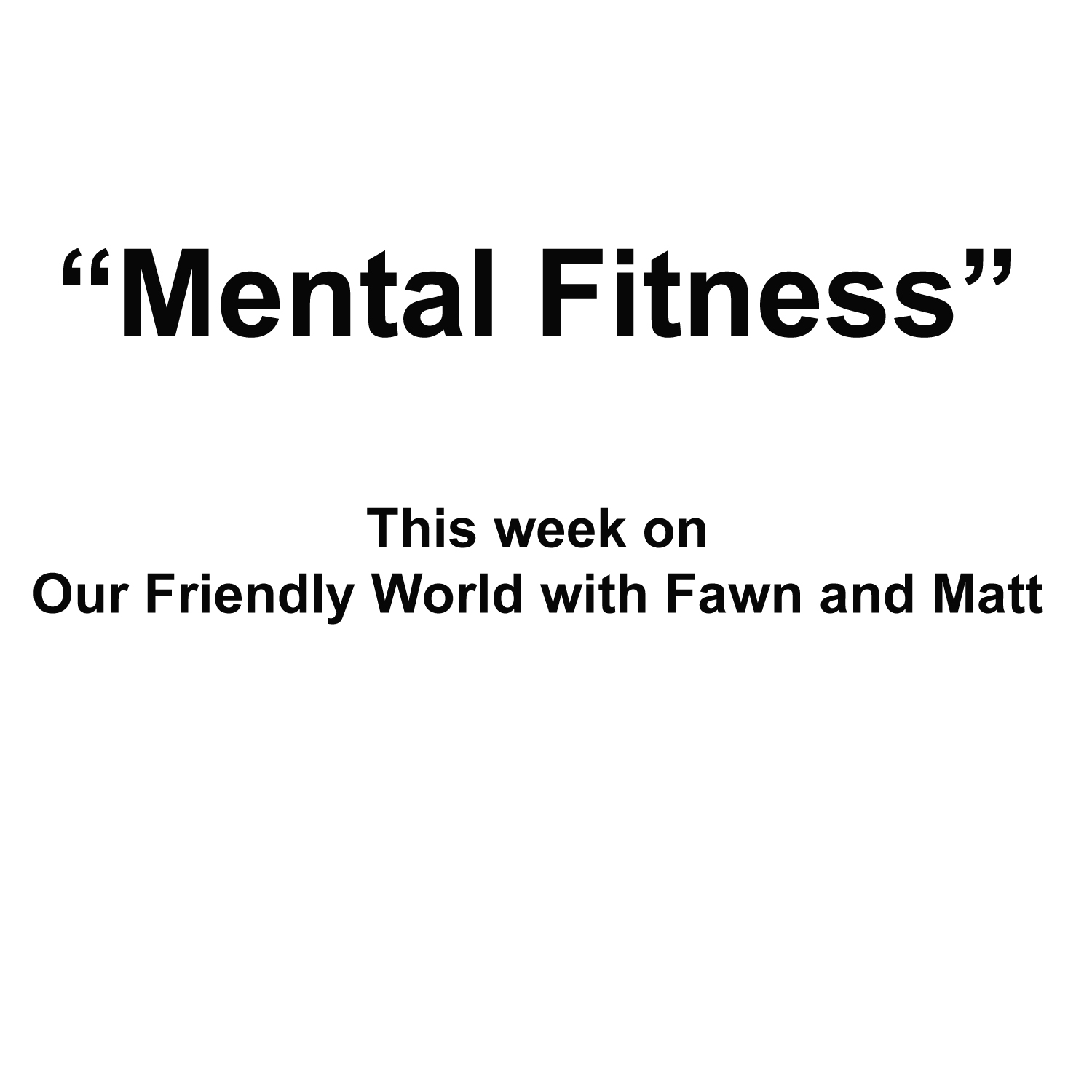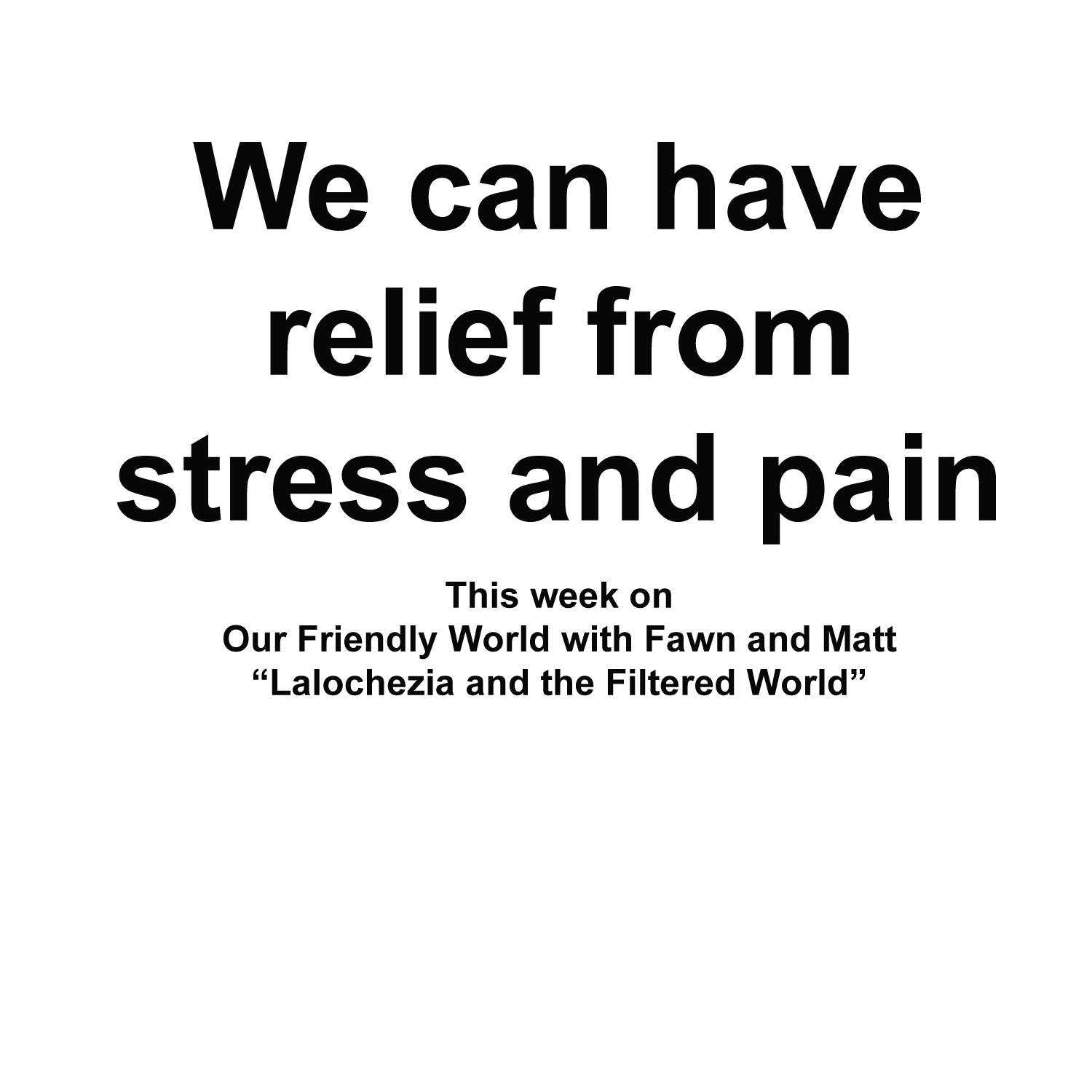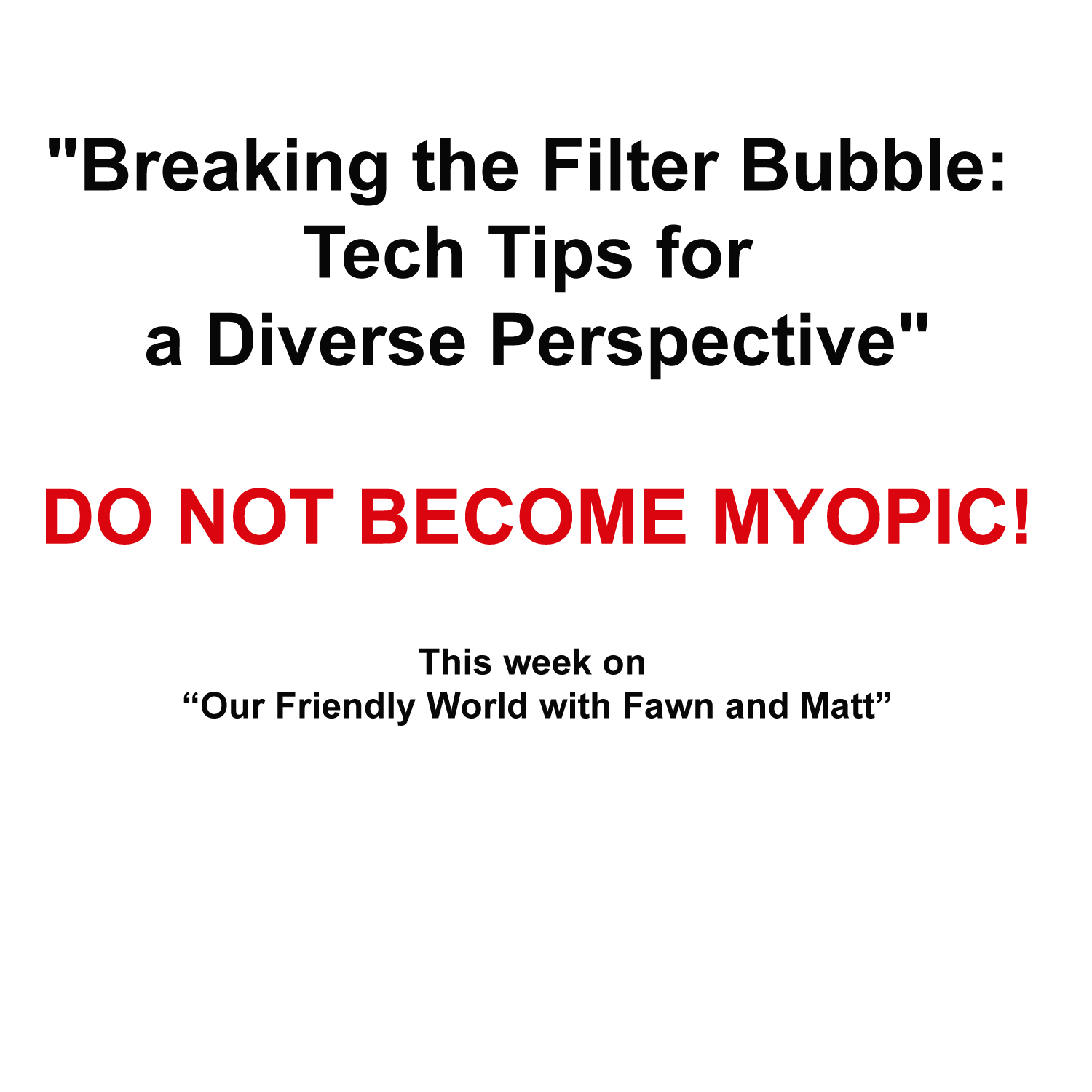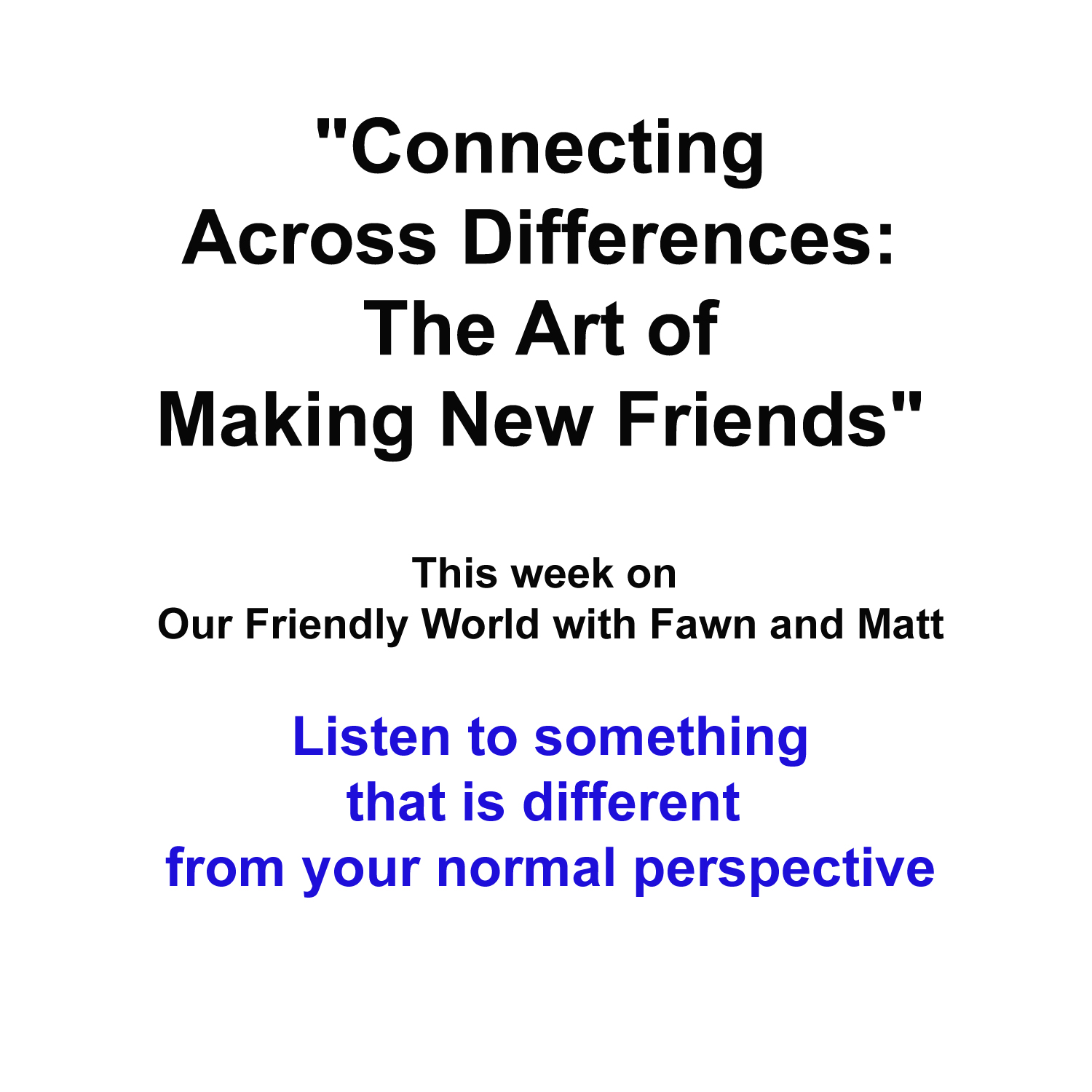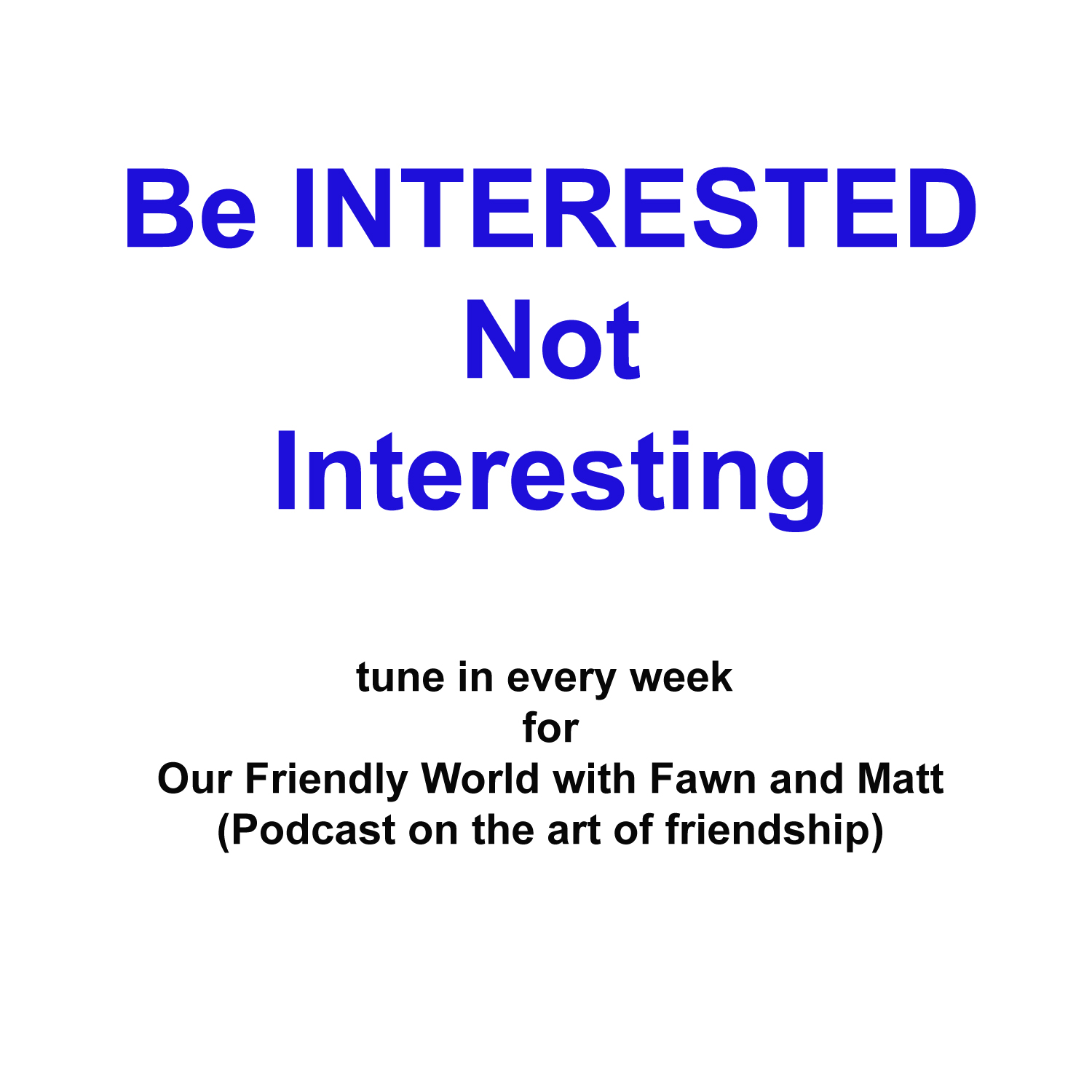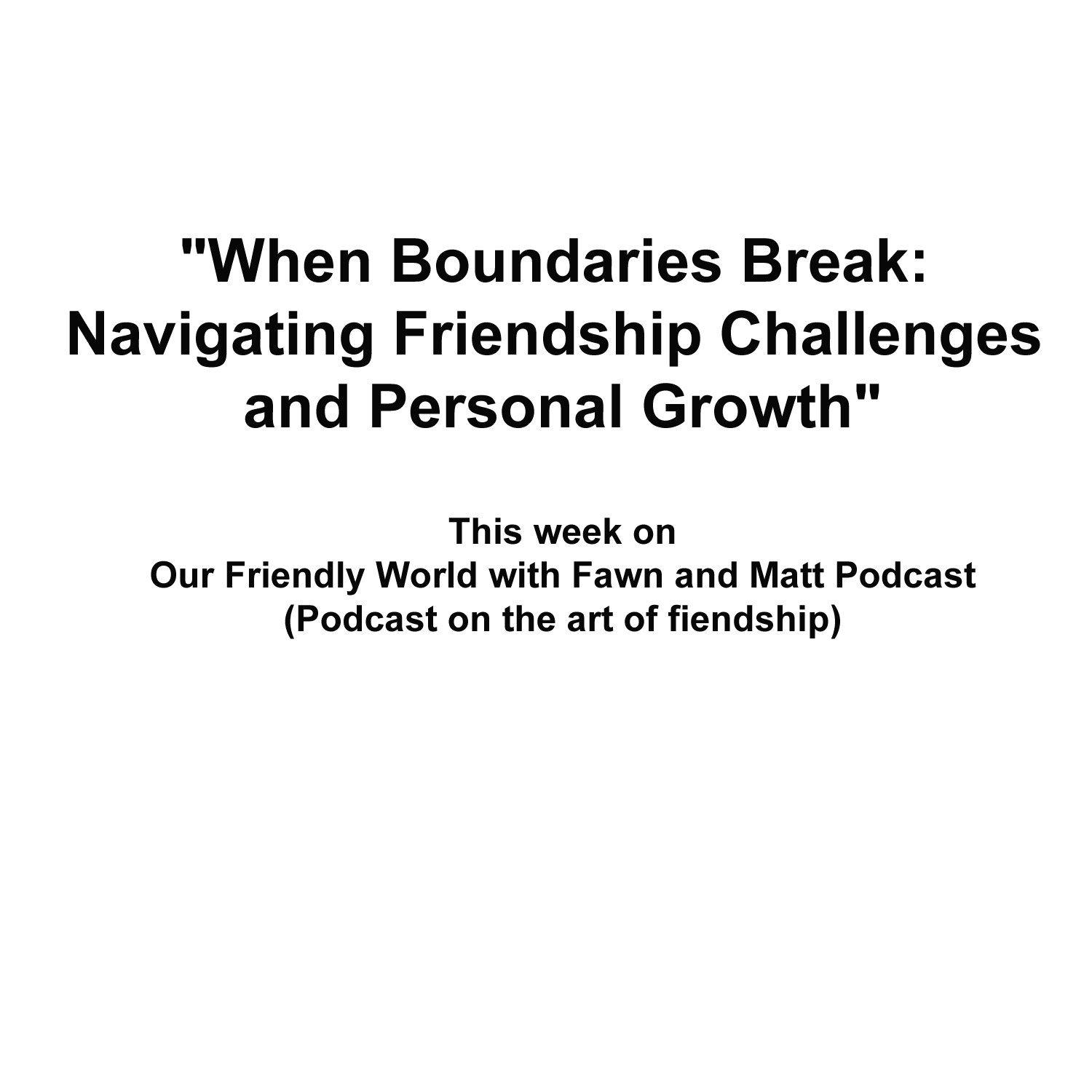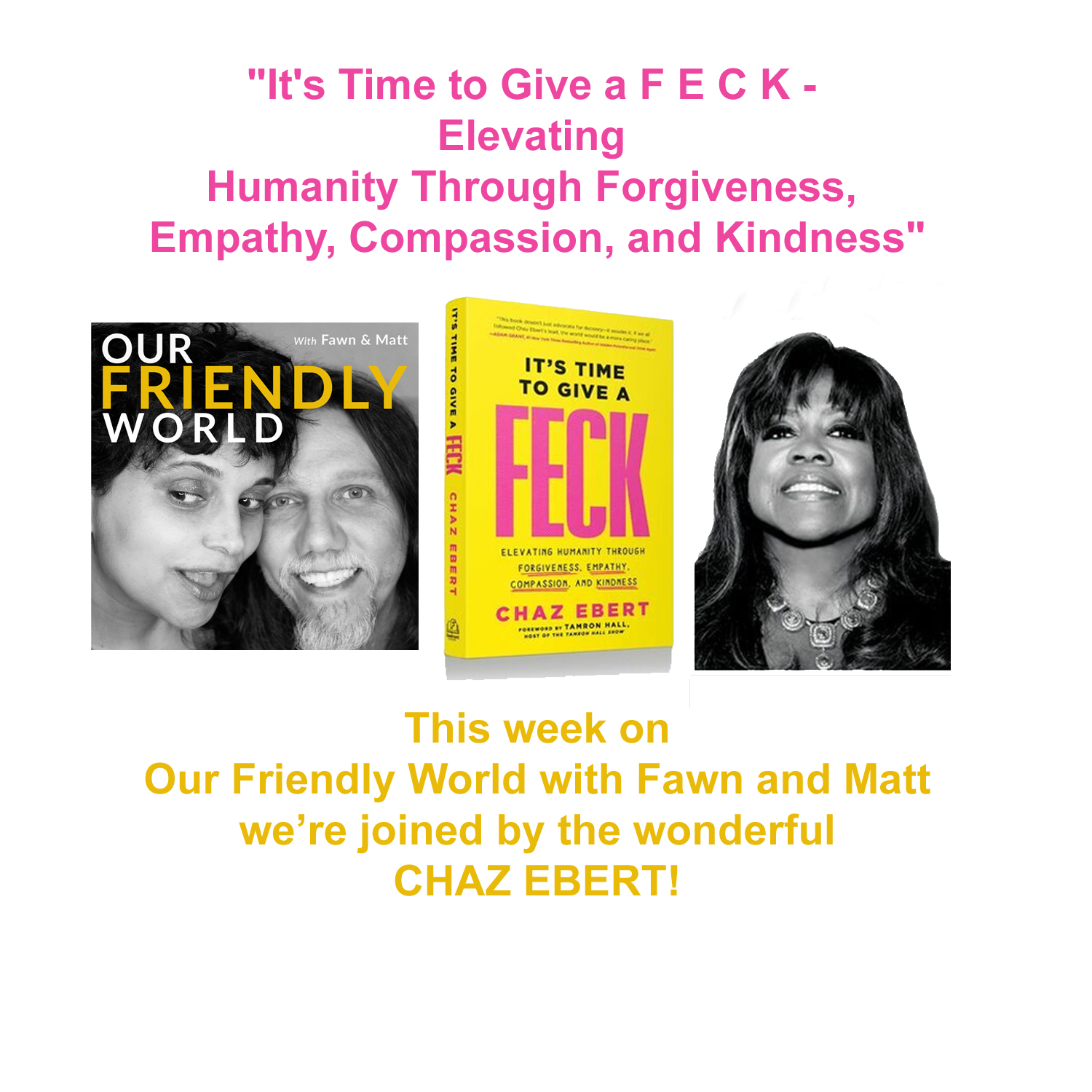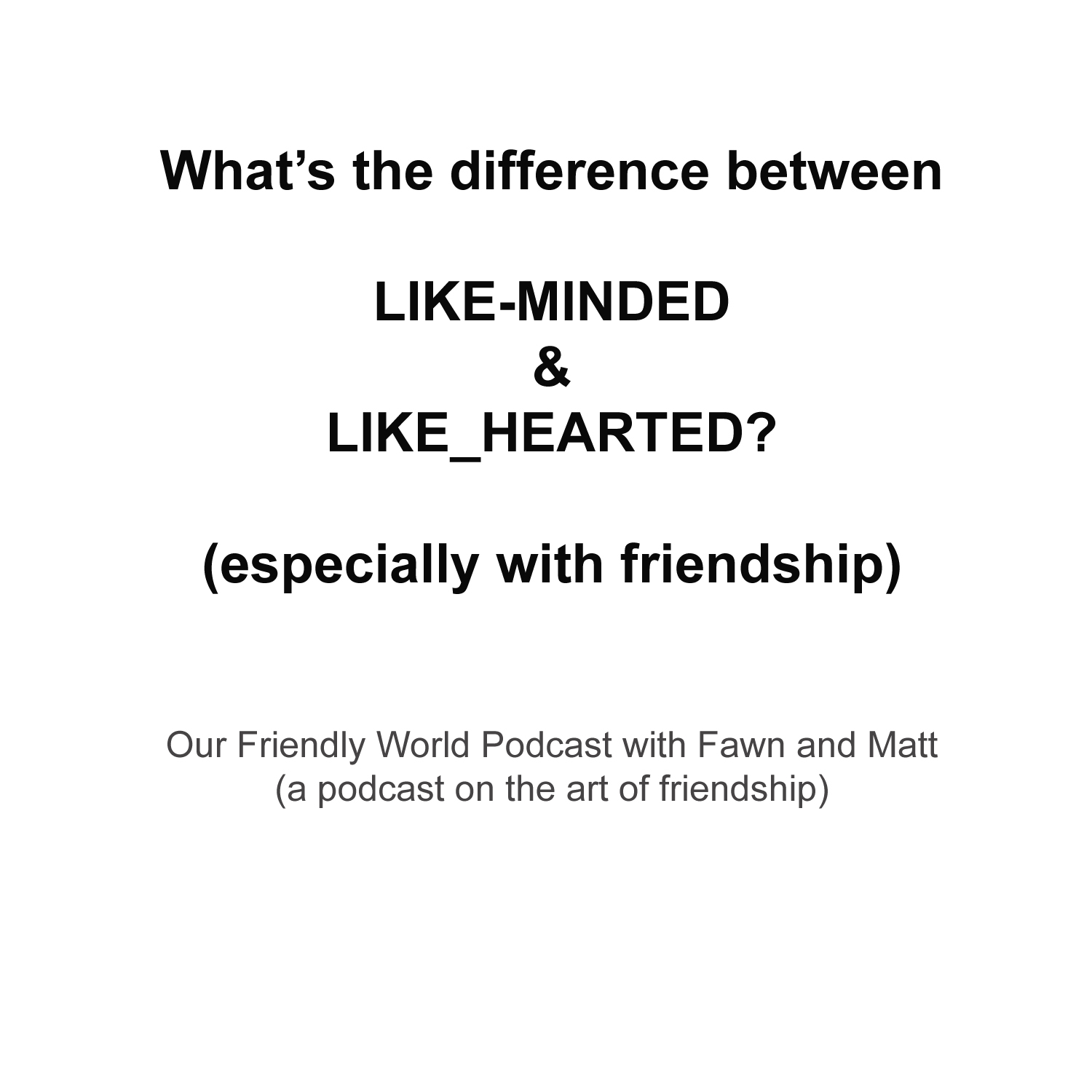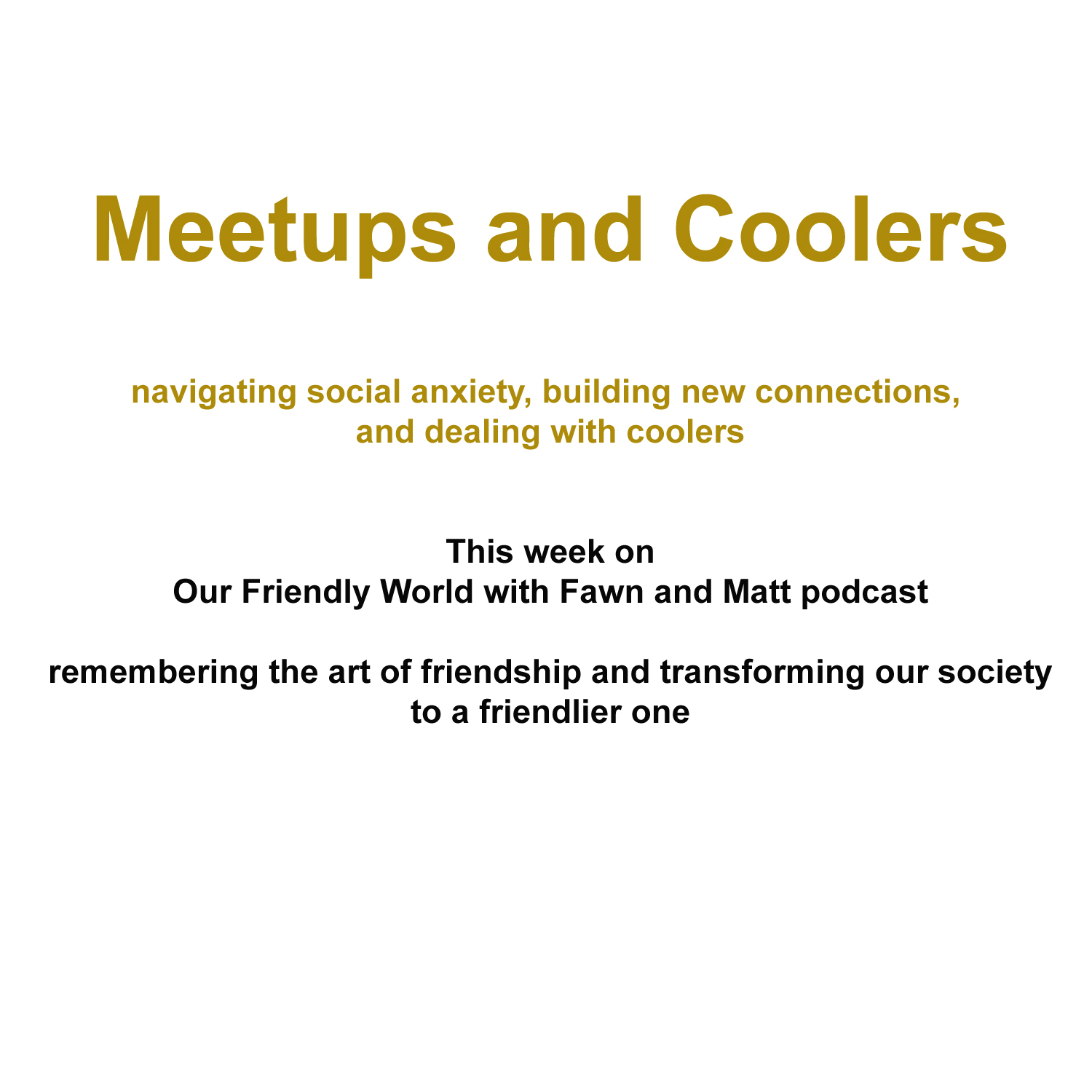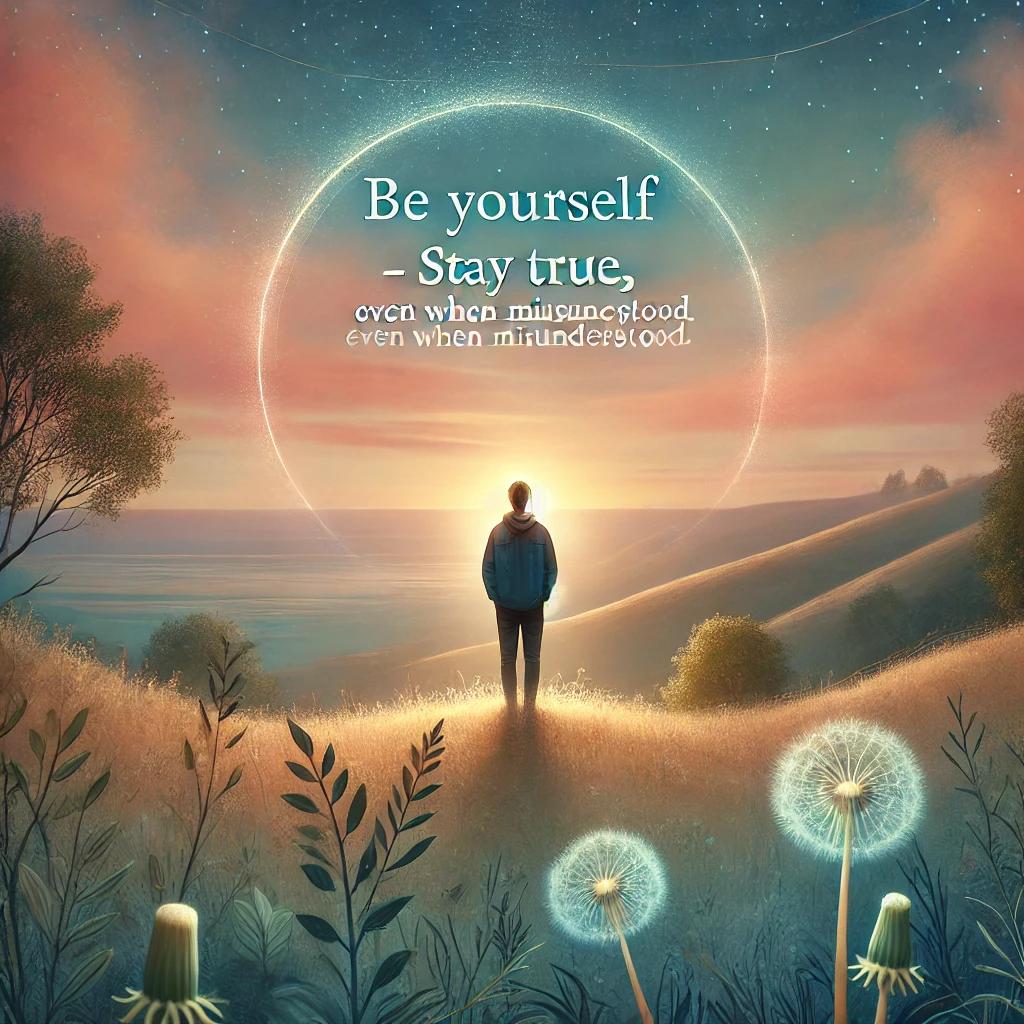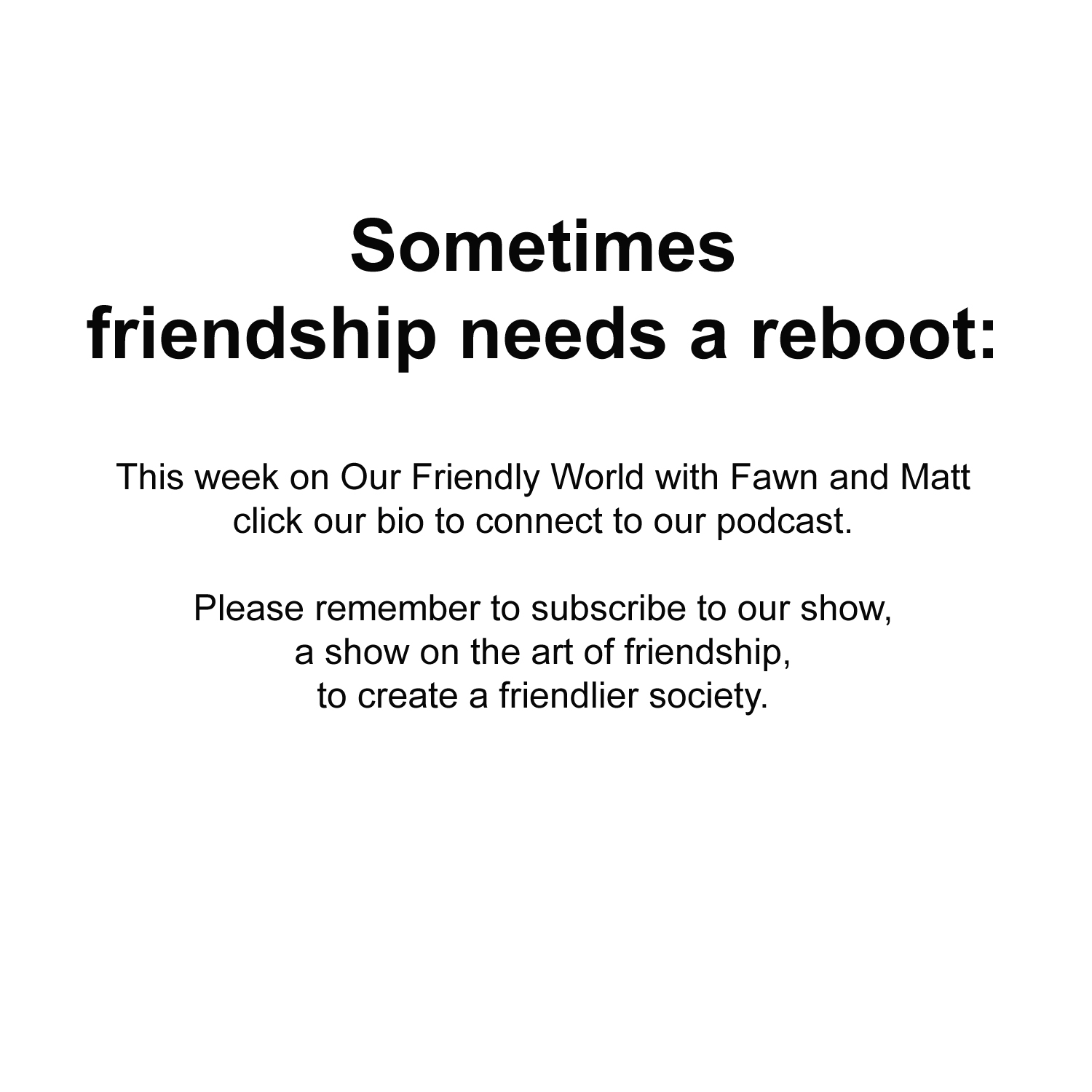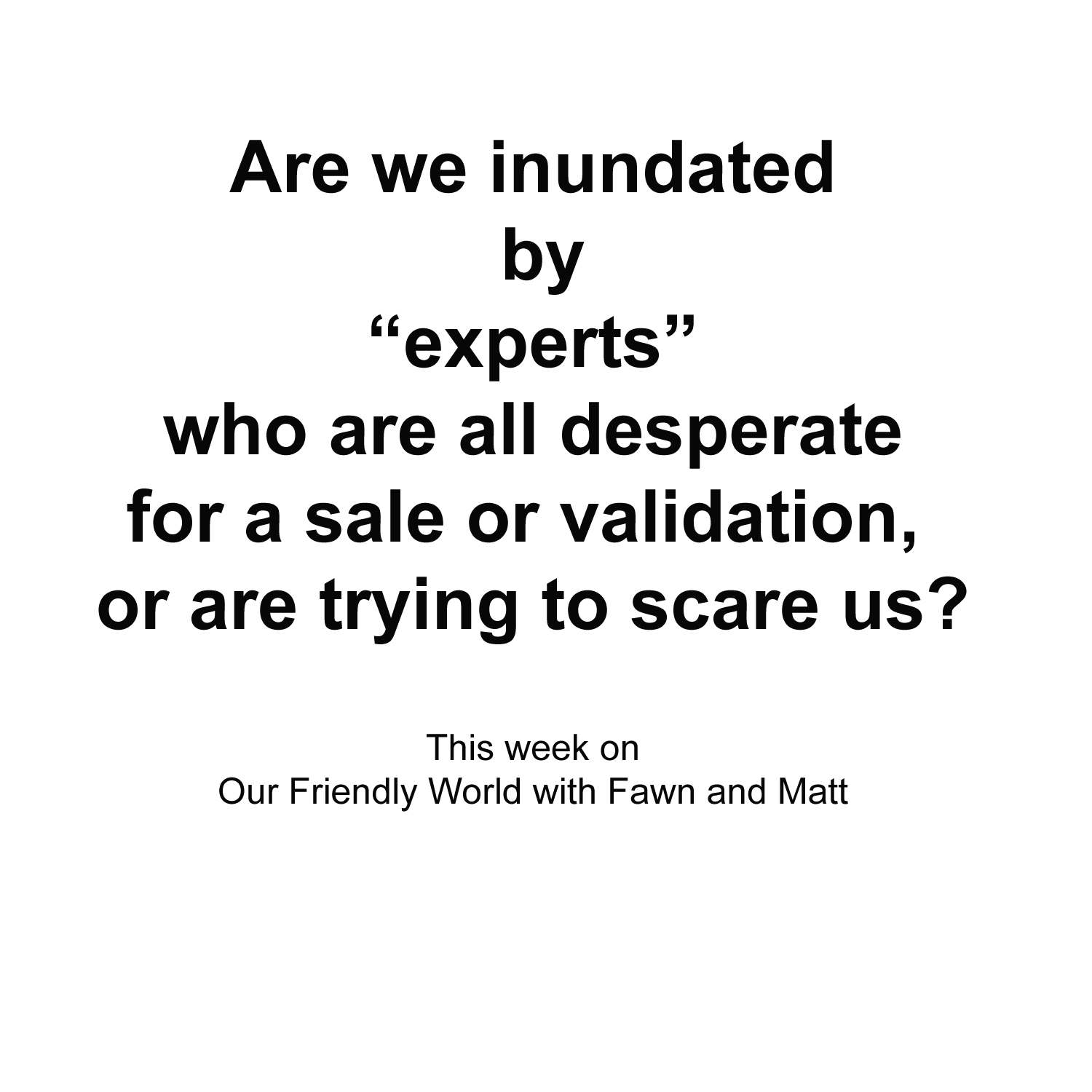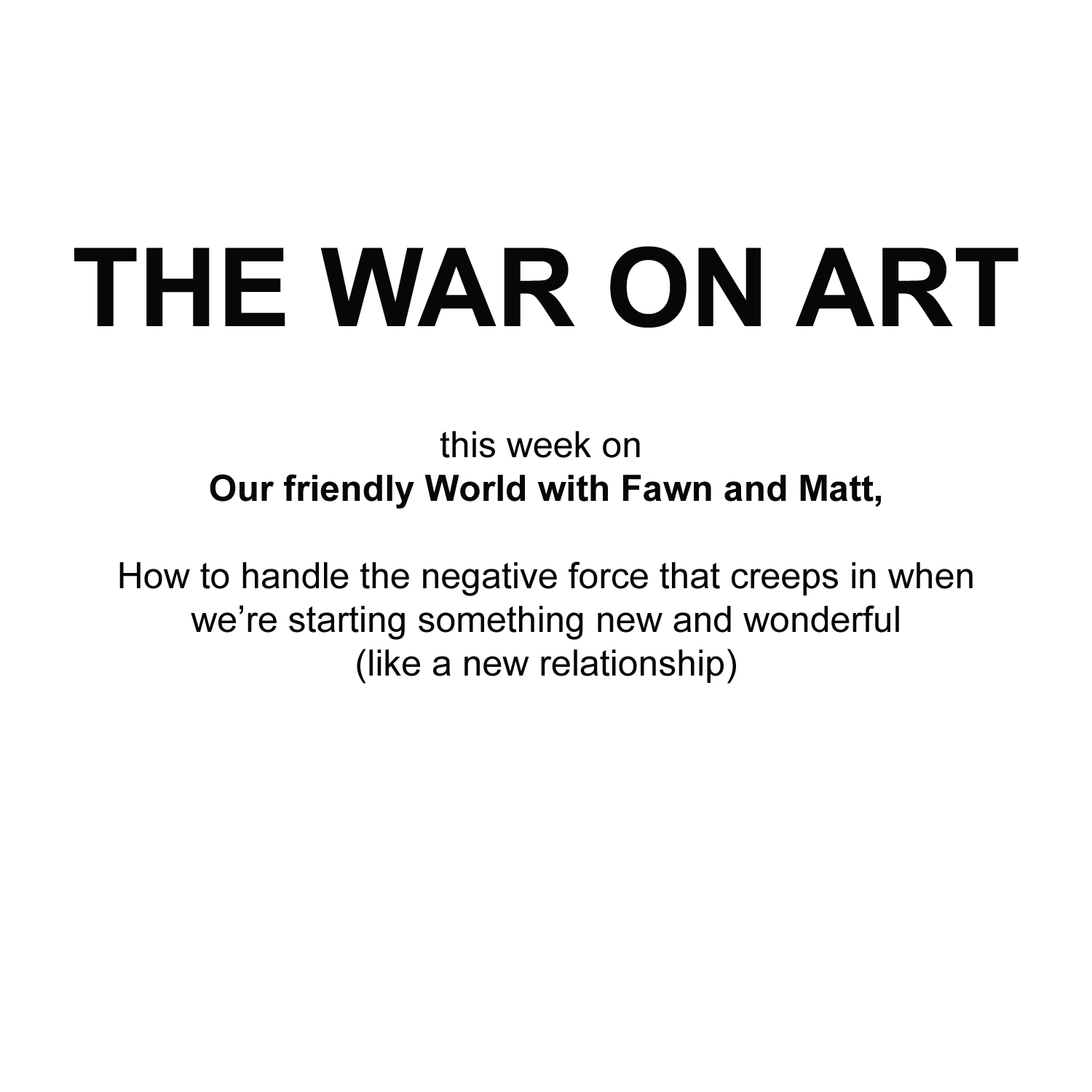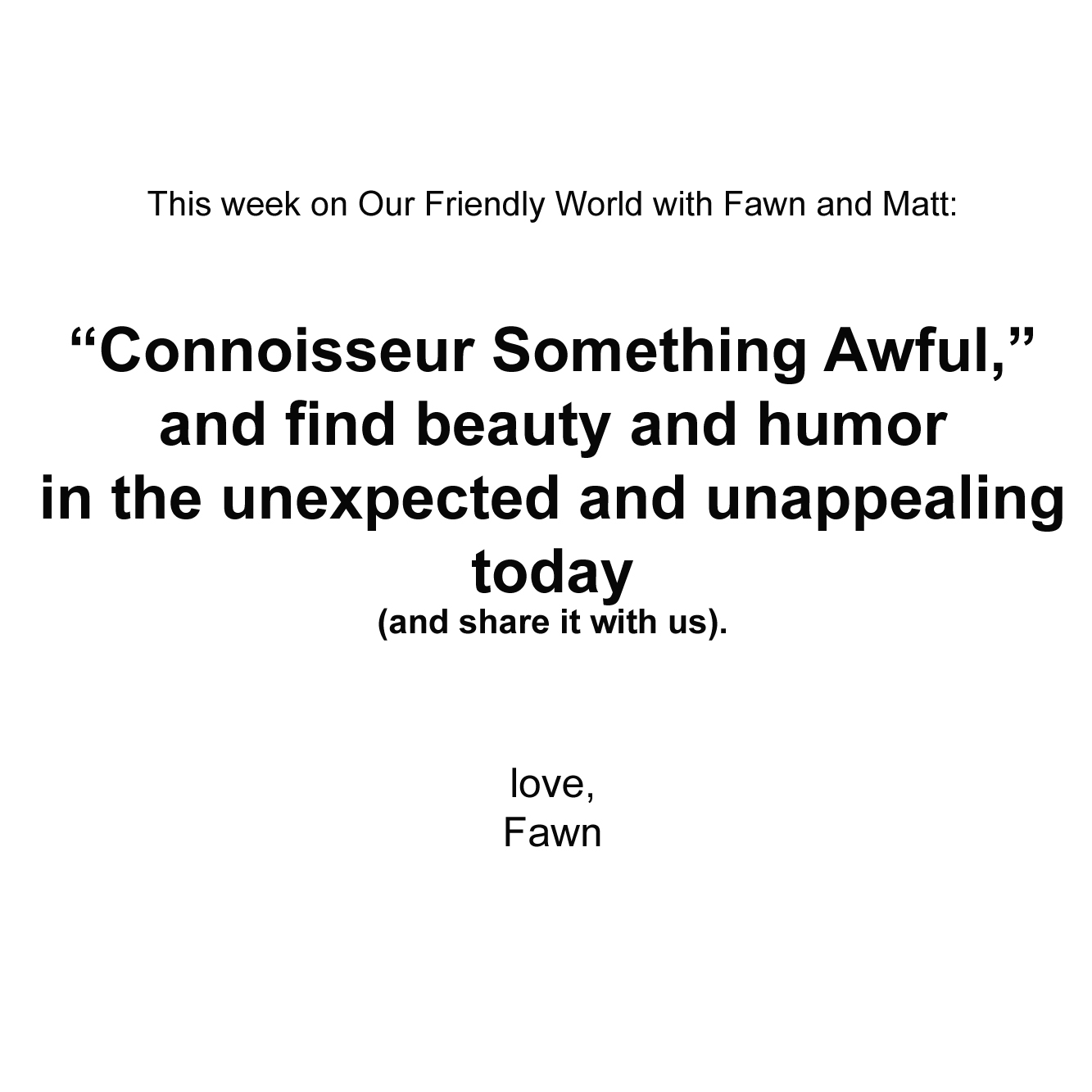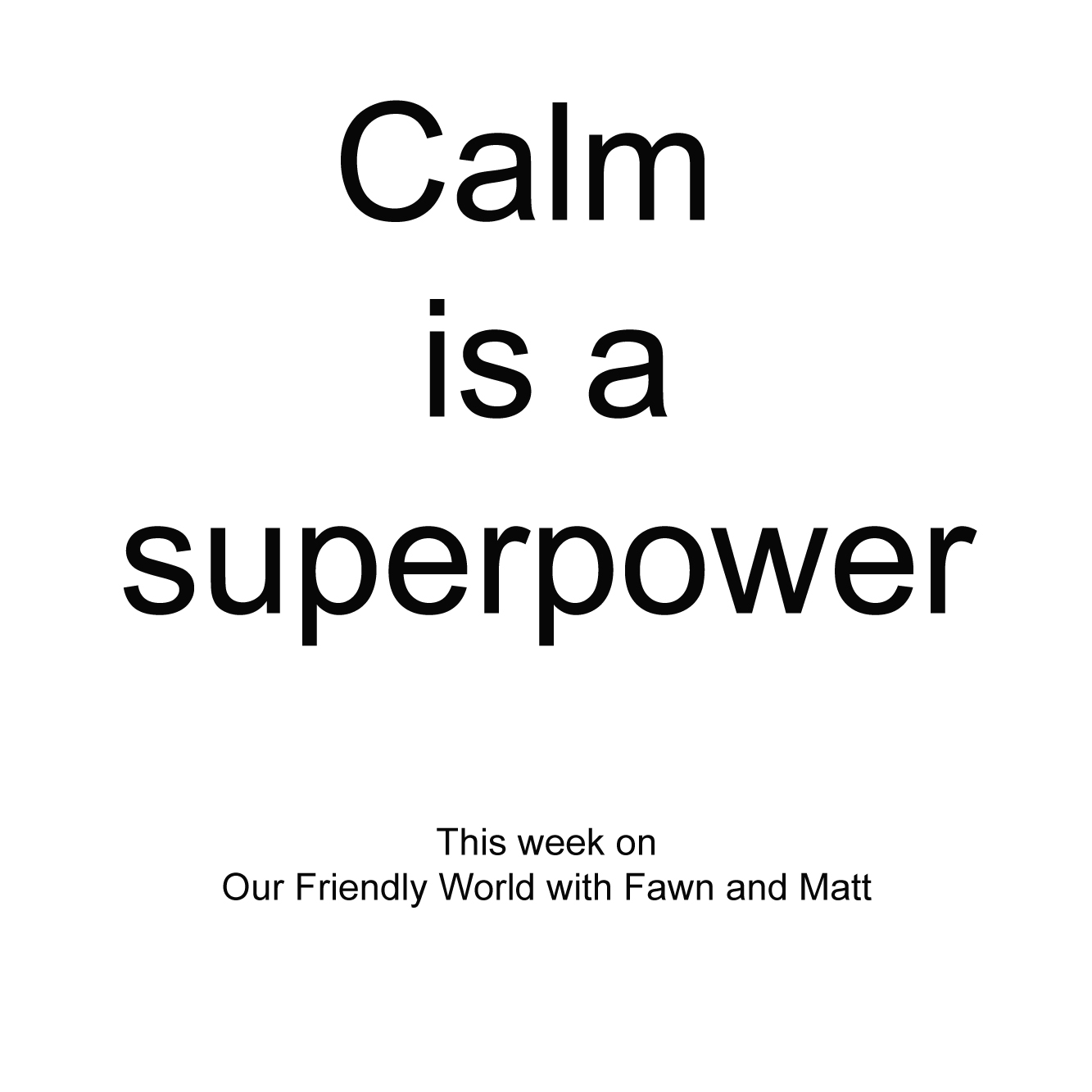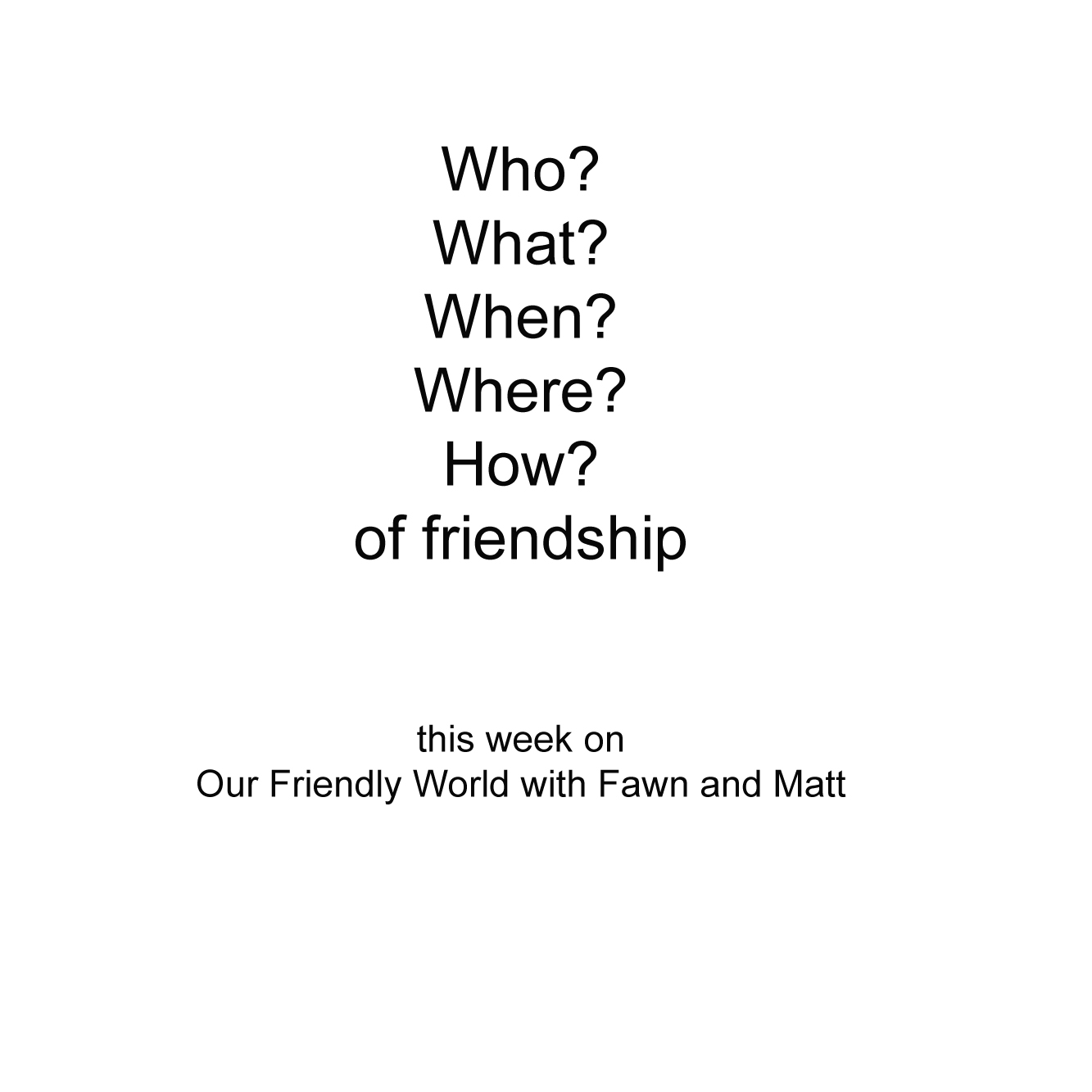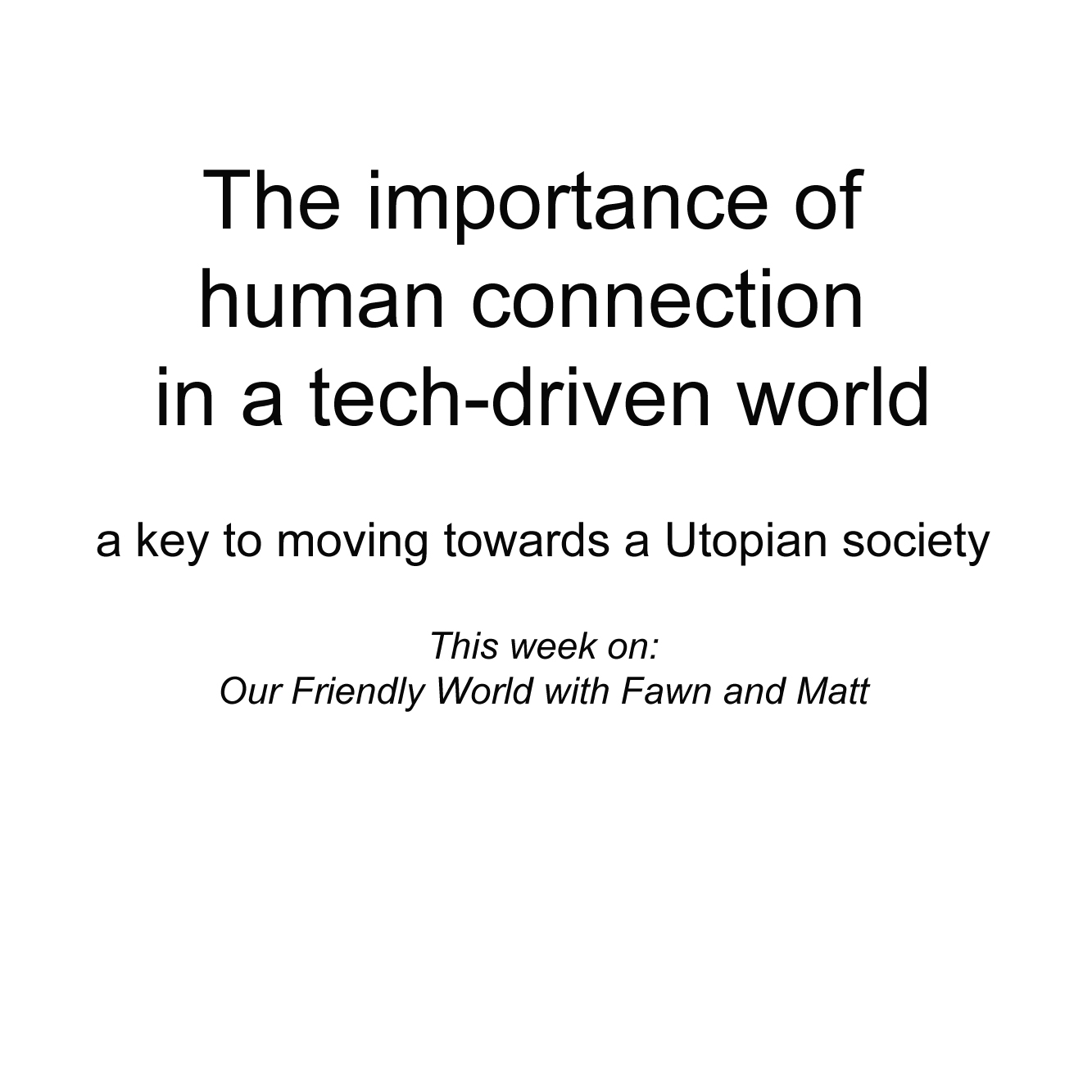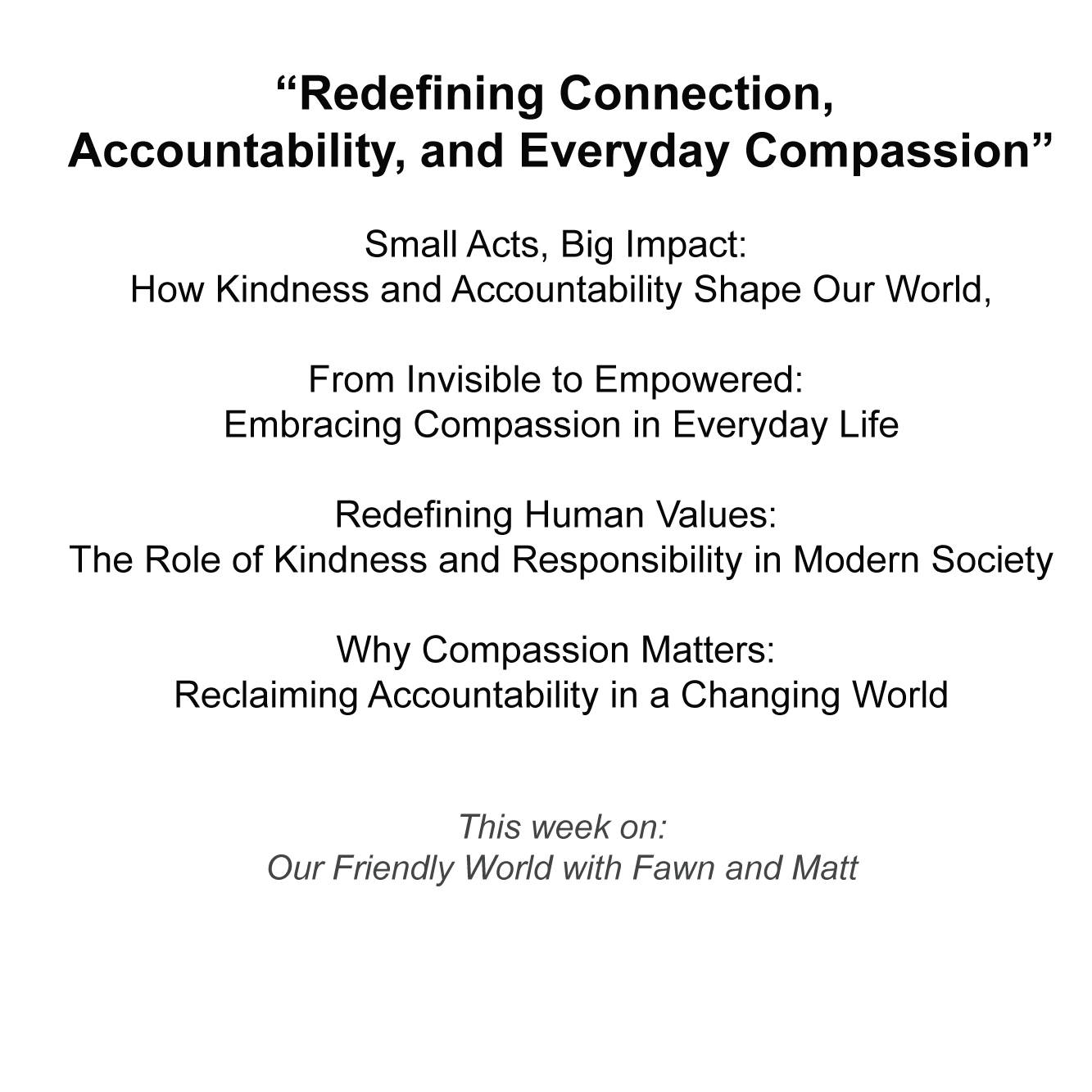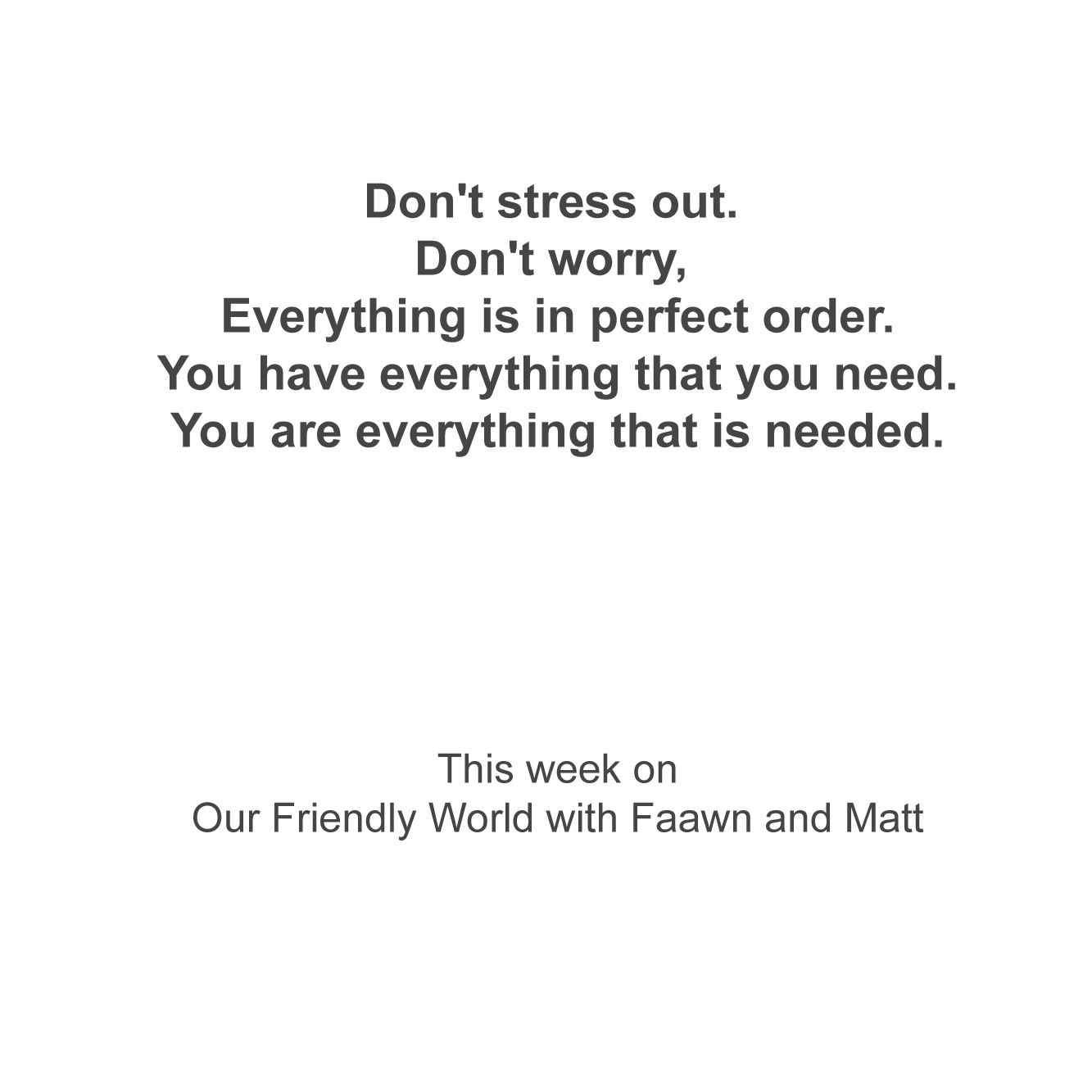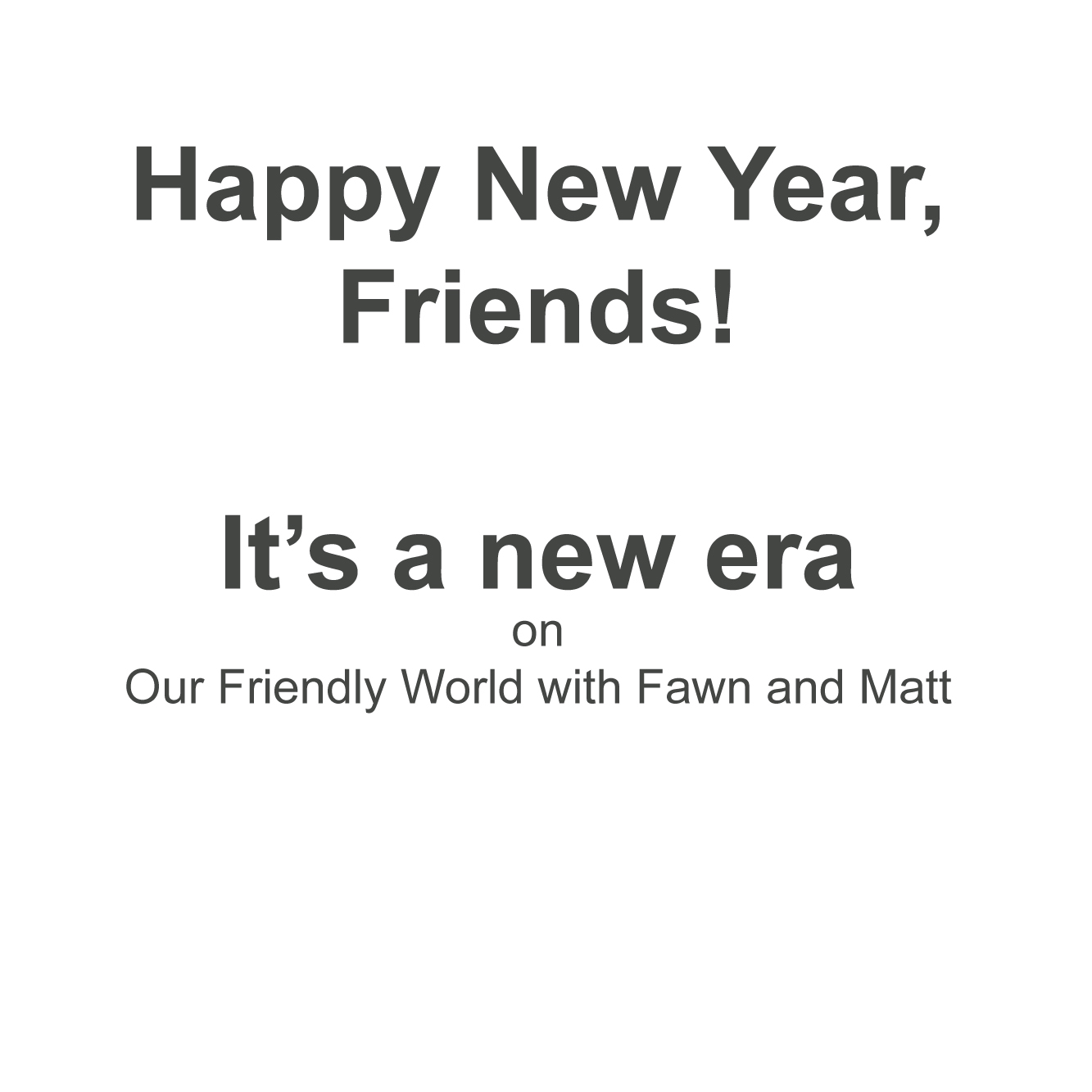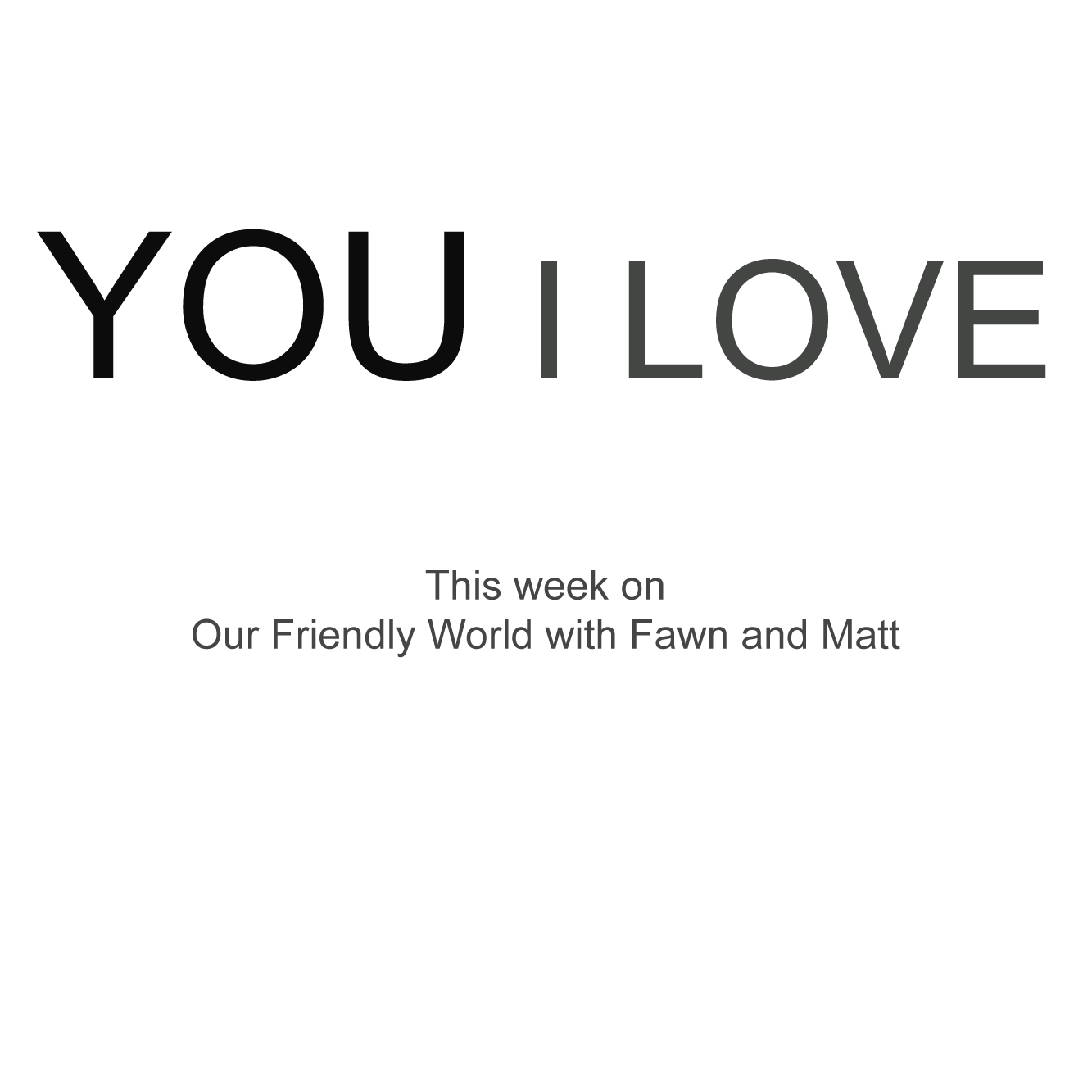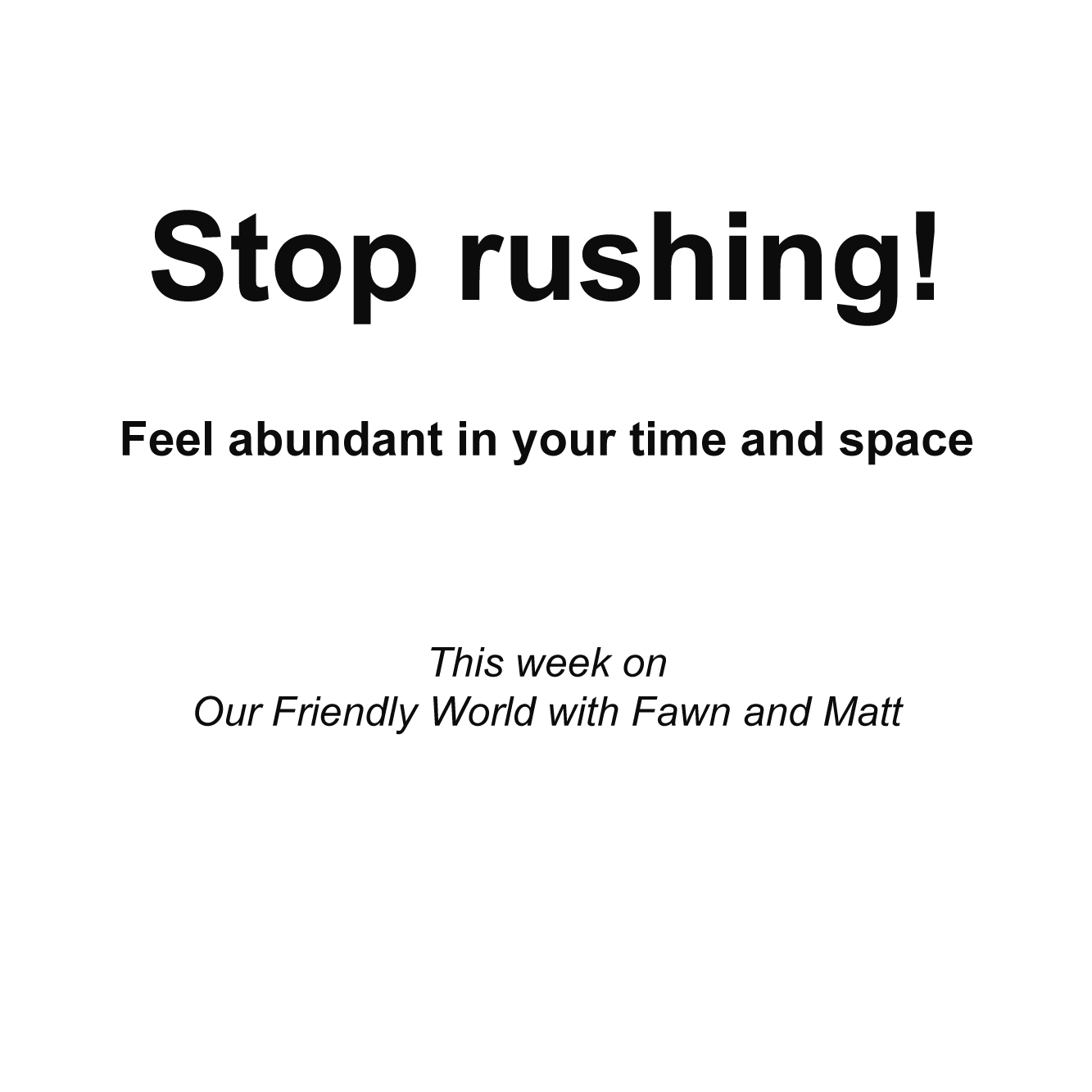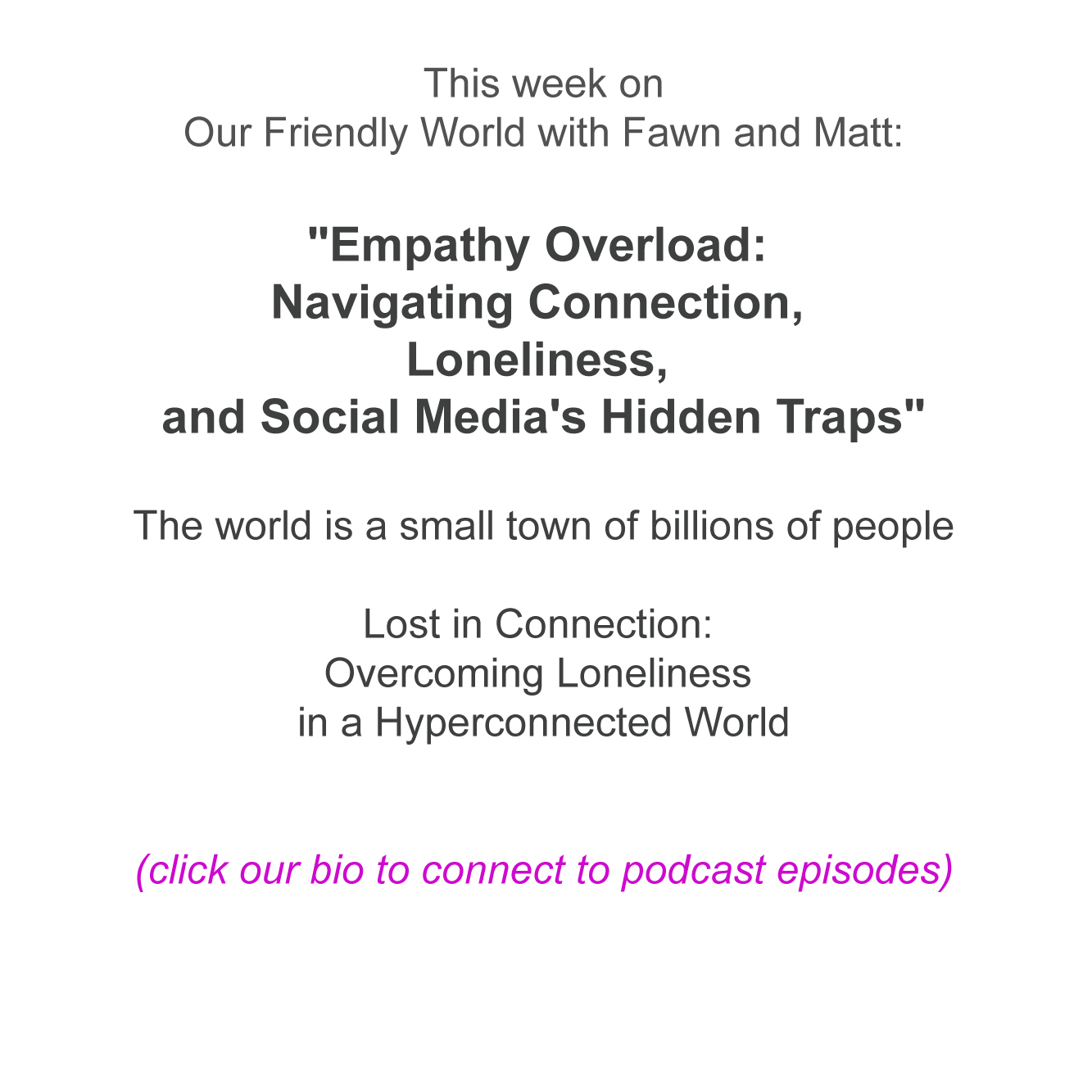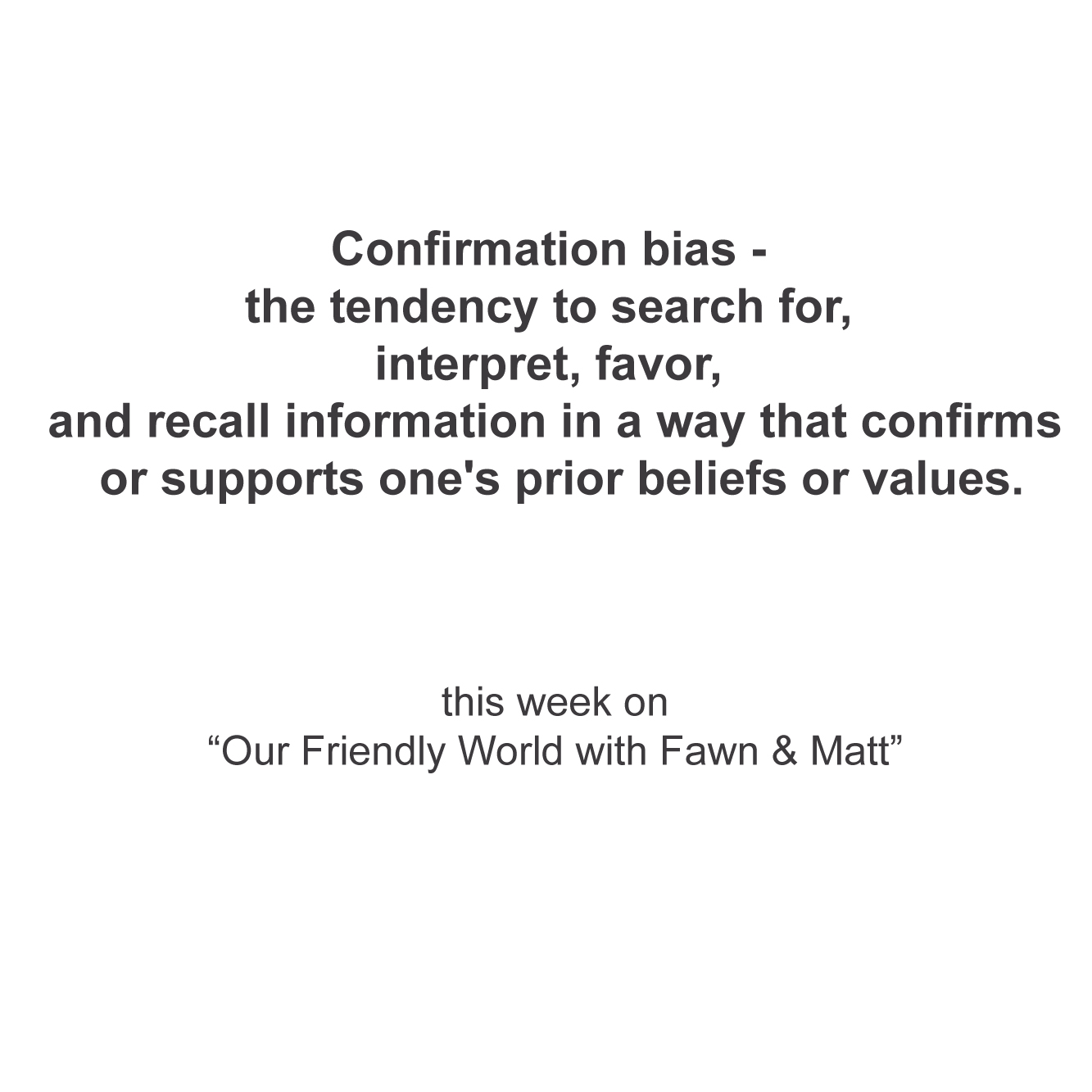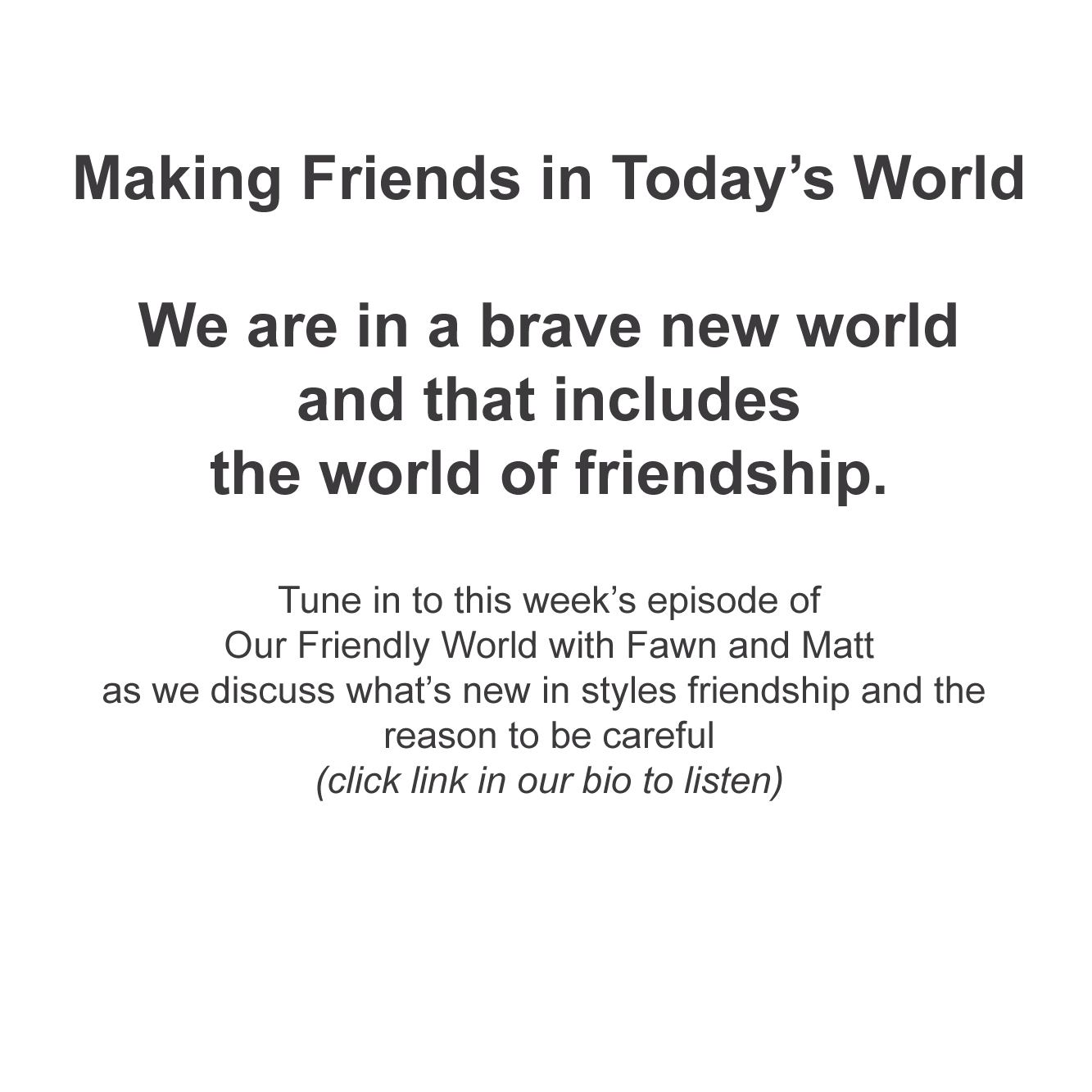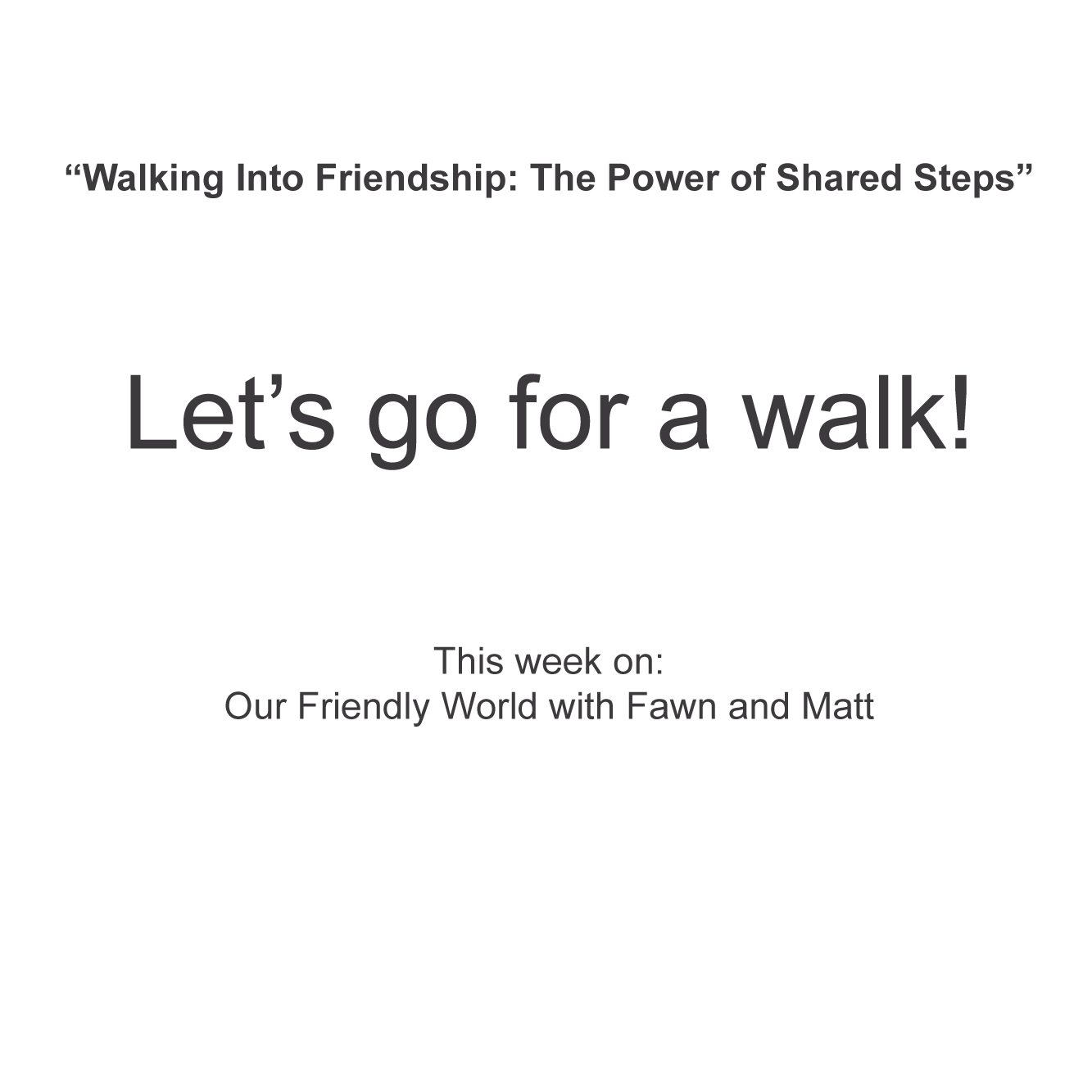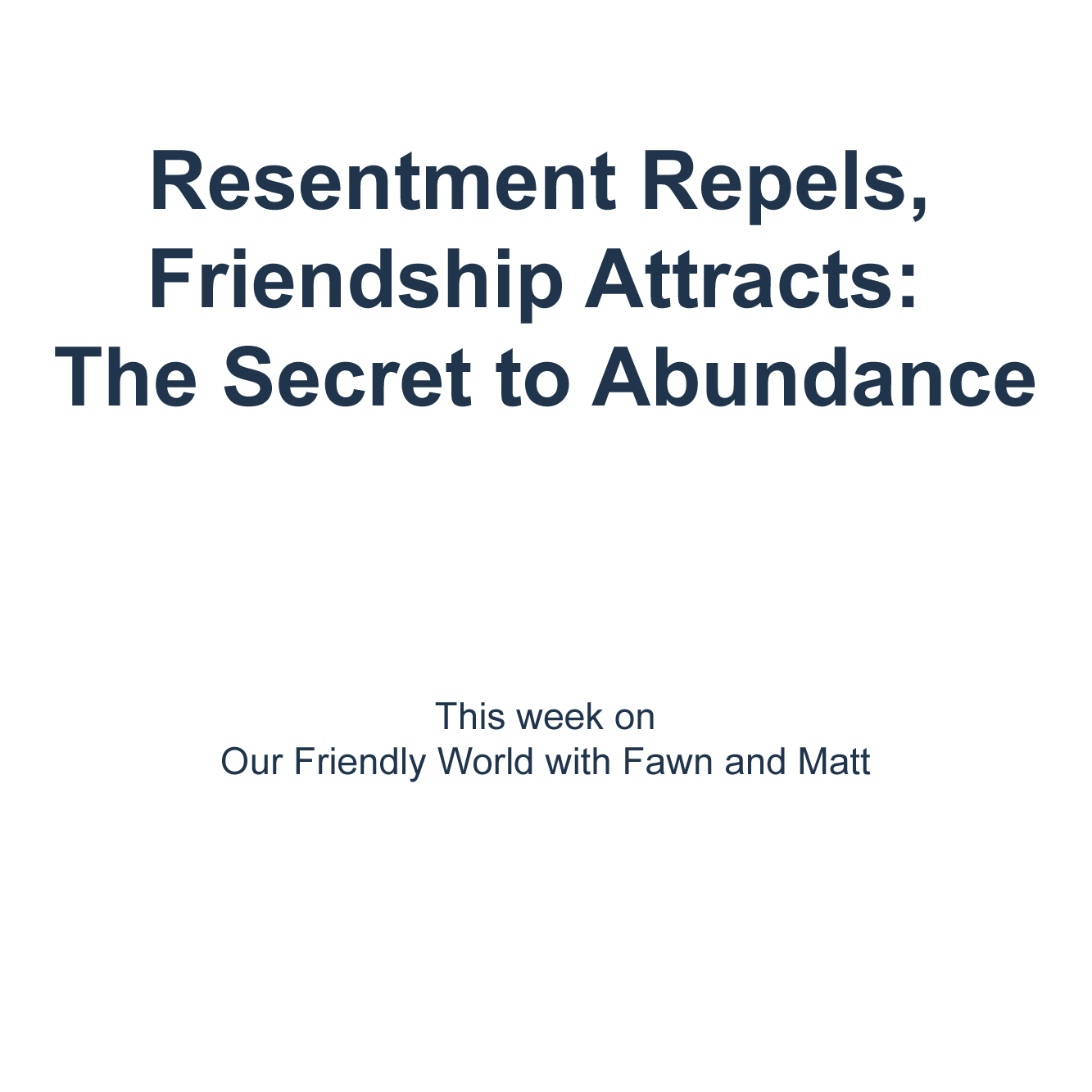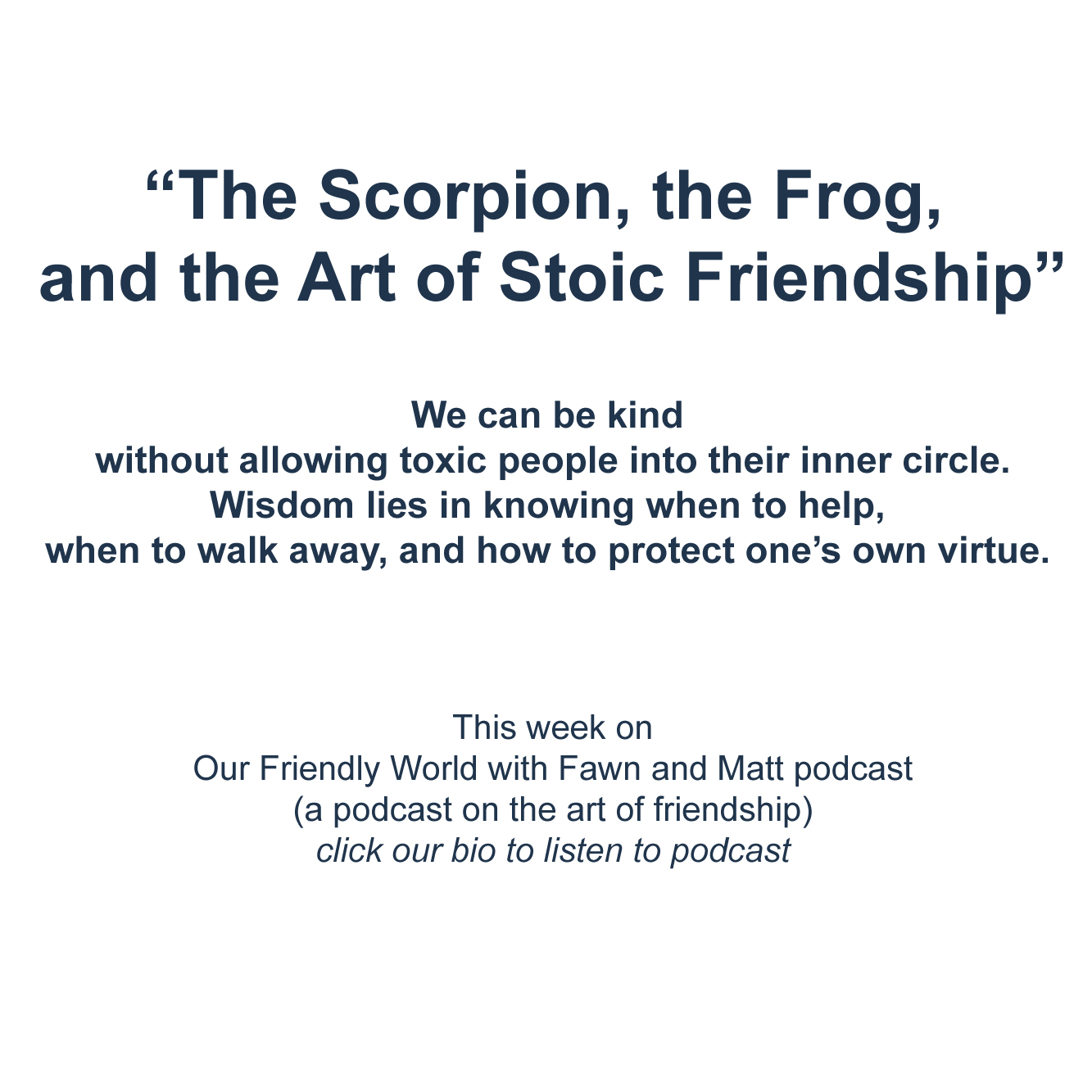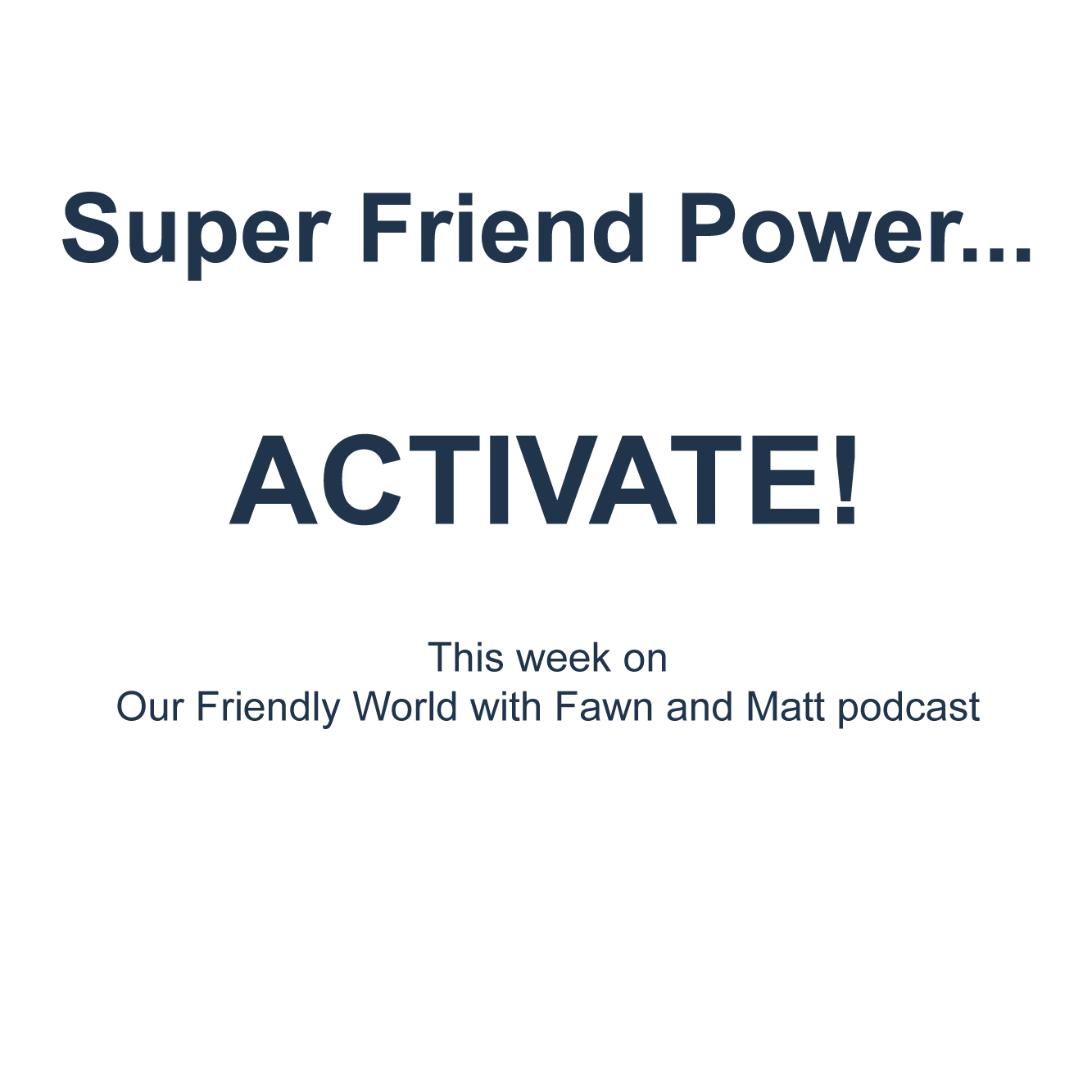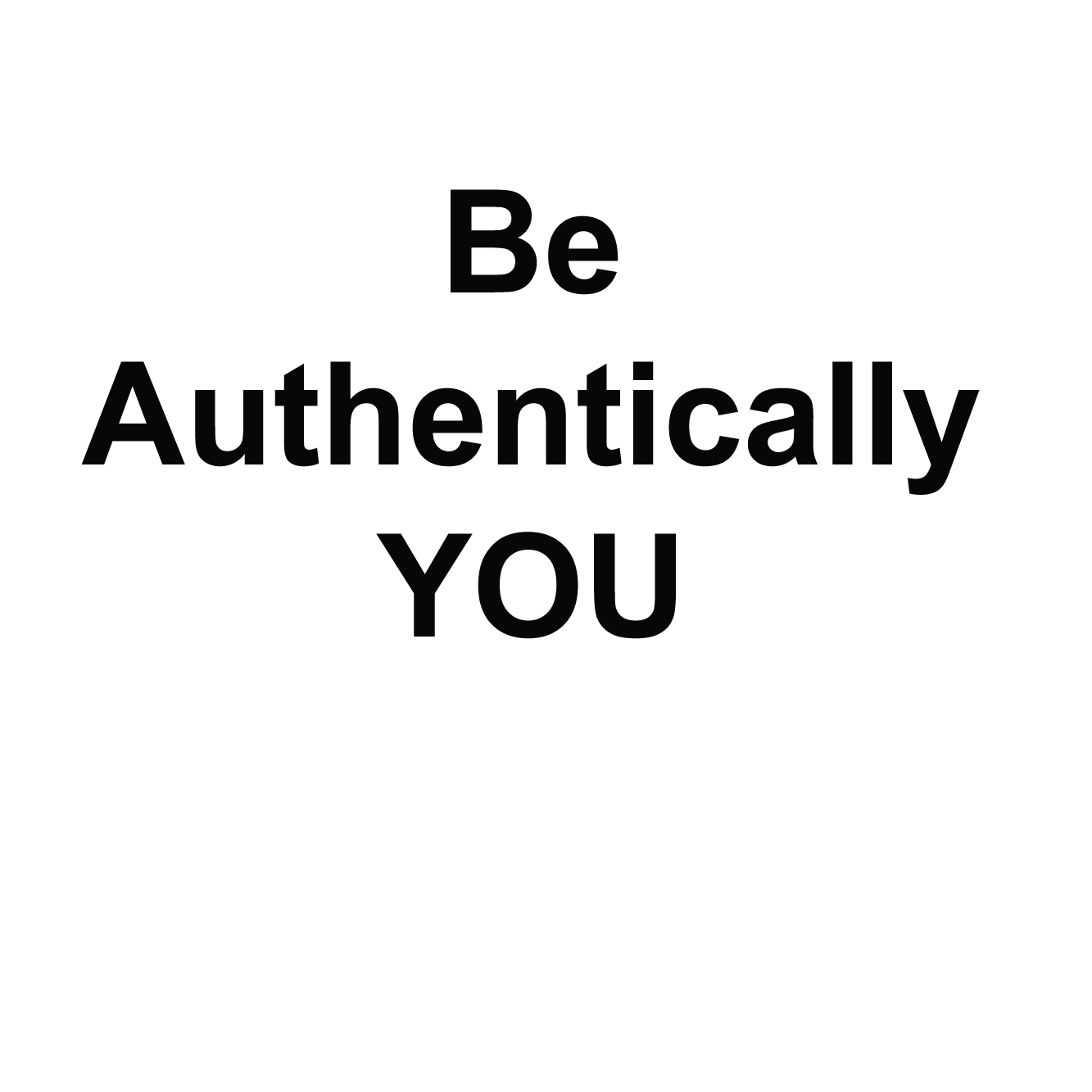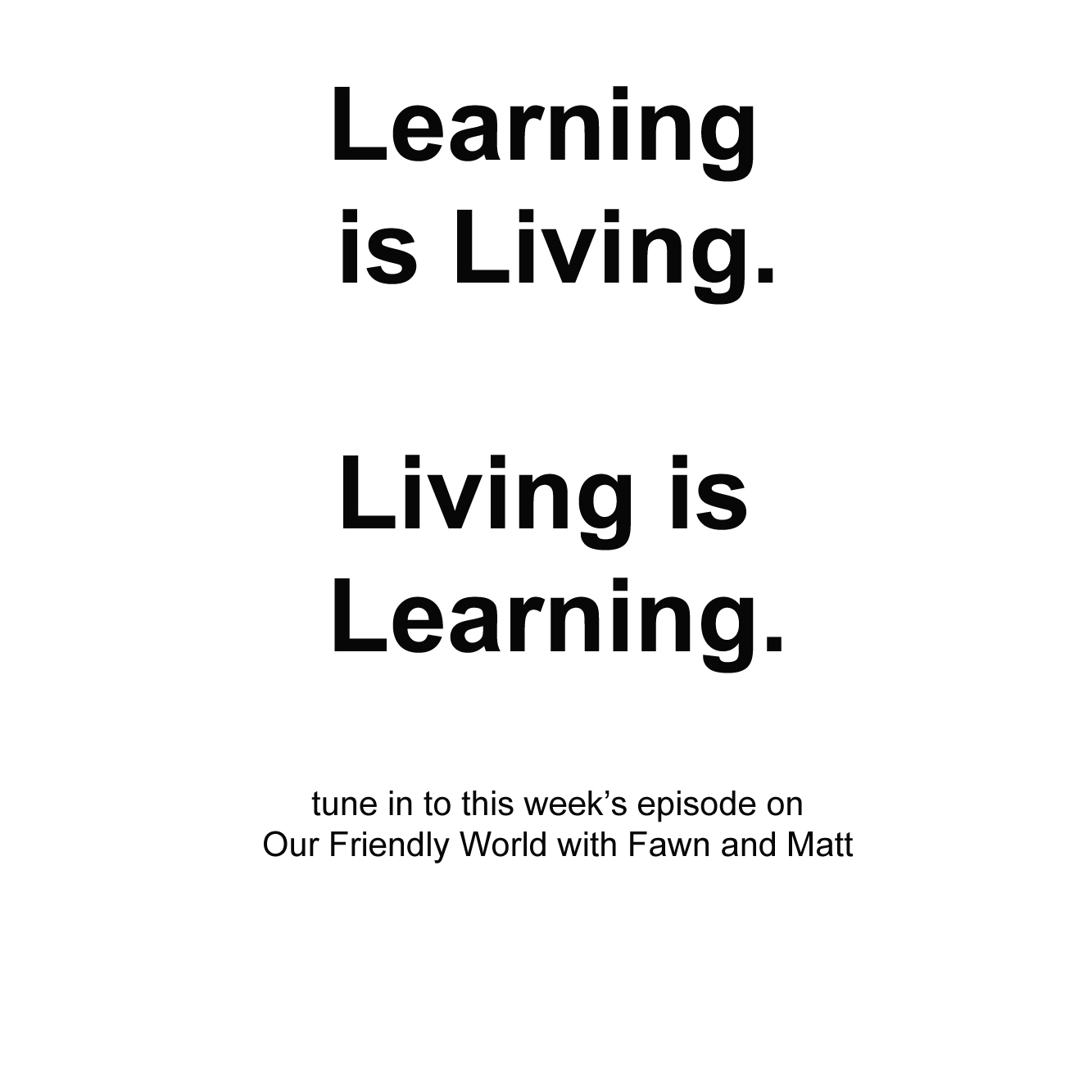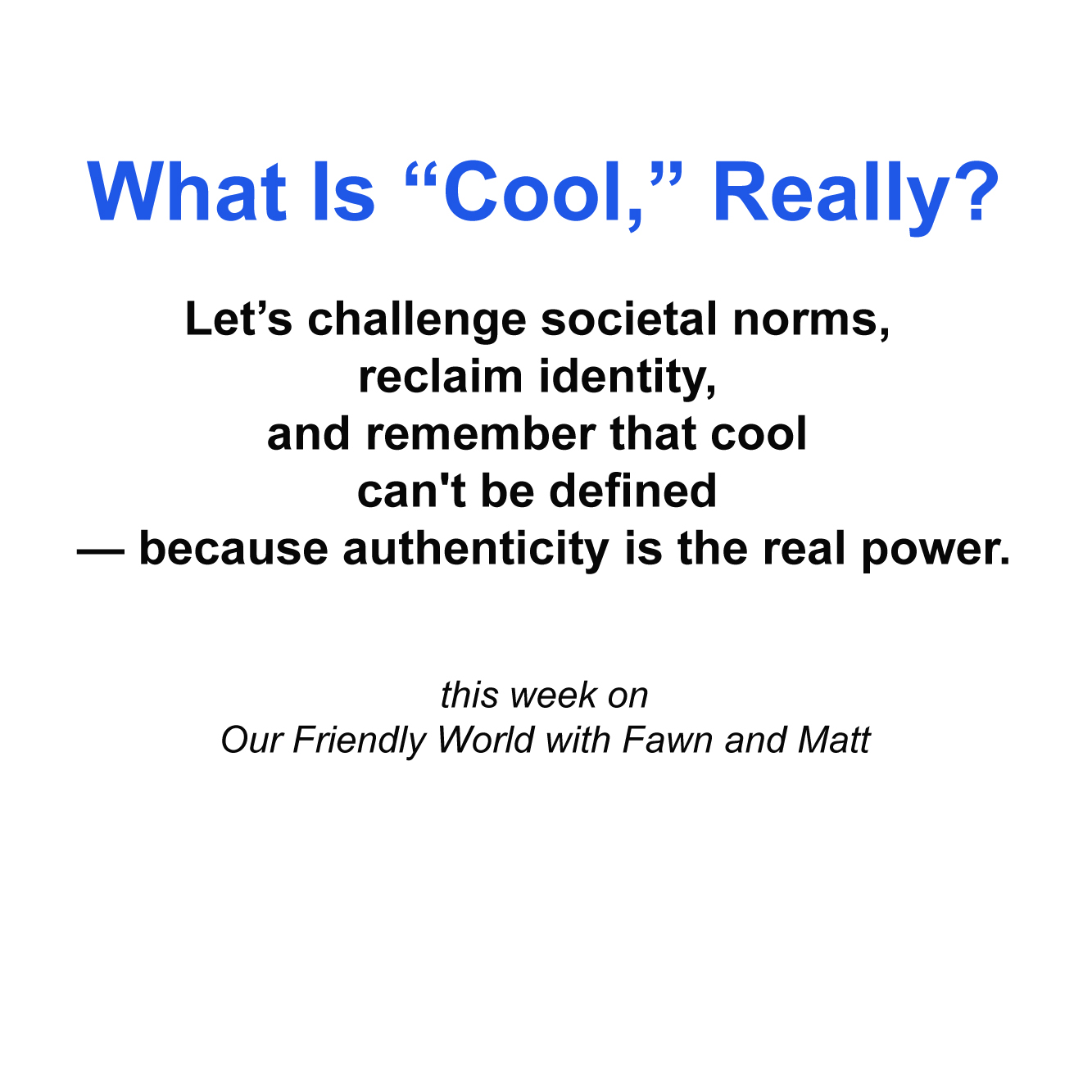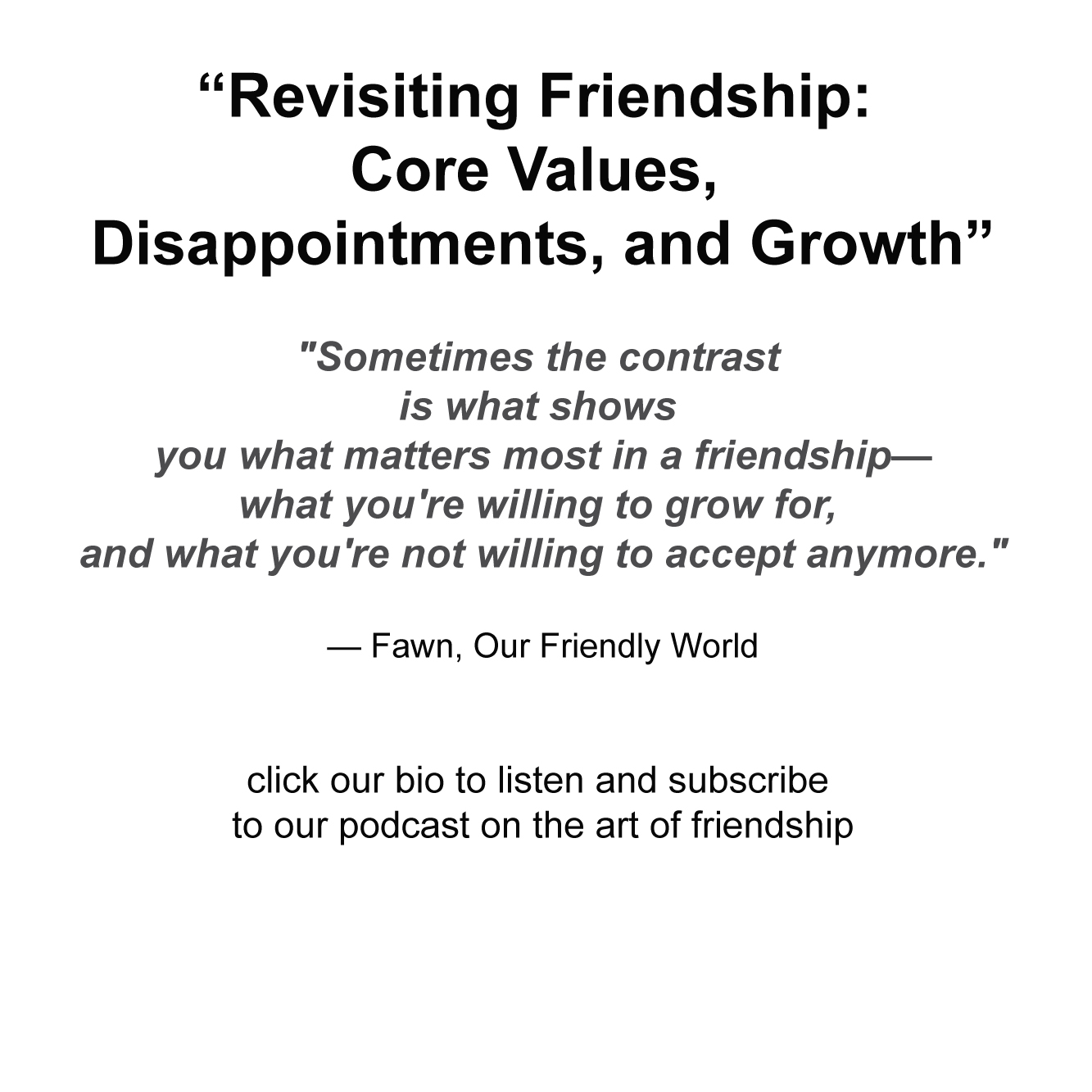The Awkward Friend
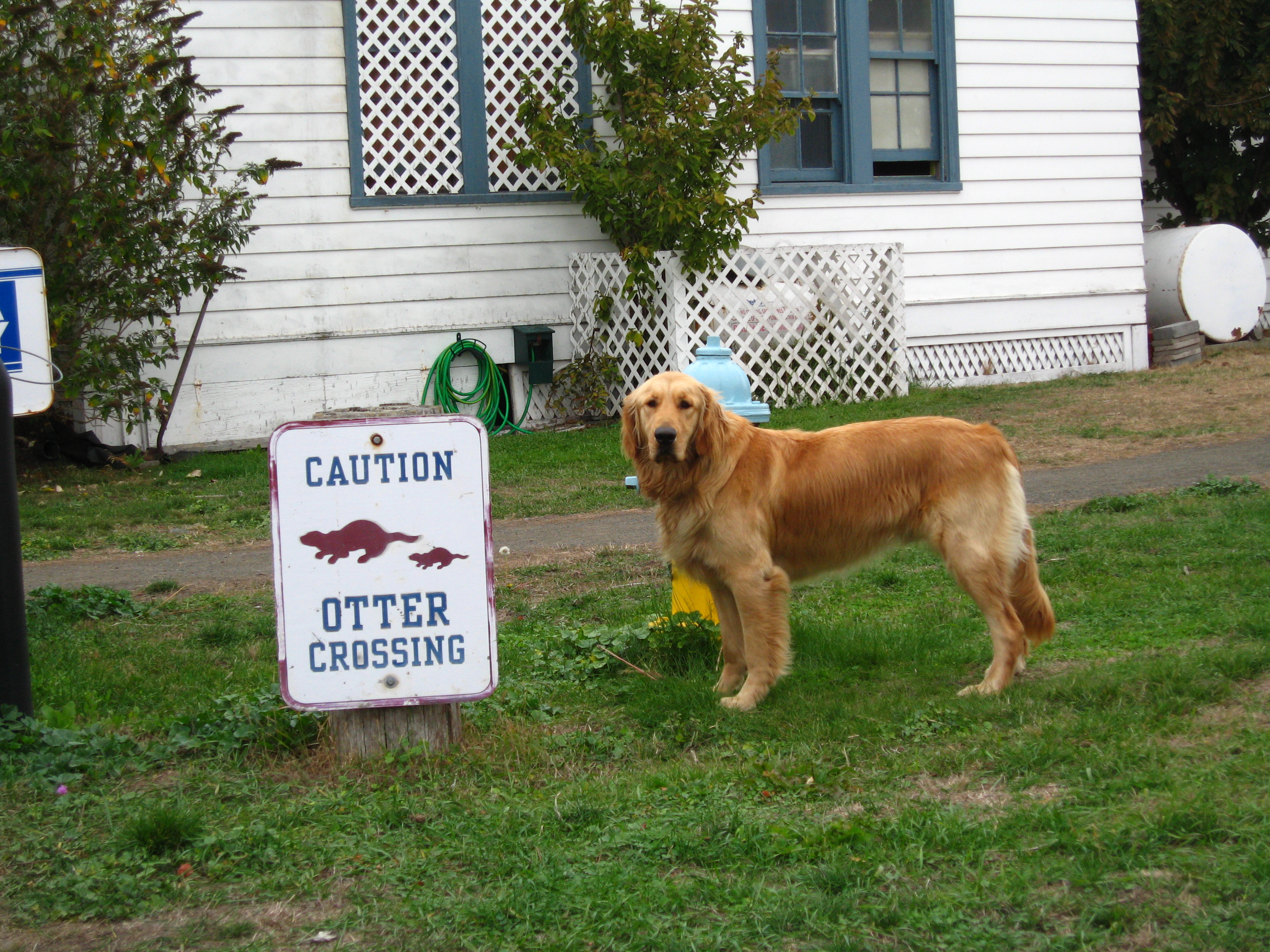
We analyze the true definition of awkward and Fawn explains her own awkwardness, then Matt does also, and then we talk about the geniuses in history who were considered to be awkward and discuss the brilliance and sadness of Turing and how our society can be so cruel to such brilliant people.
Support our show by subscribing, telling others, and or with COFFEE
https://www.buymeacoffee.com/friendlyspace
If you want a website like ours:
https://www.podpage.com/?via=fawn
We analyze the true definition of awkward and Fawn explains her own awkwardness, then Matt does also, and then we talk about the geniuses in history who were considered to be awkward and discuss the brilliance and sadness of Turing and how our society can be so cruel to such brilliant people.
Awkward Transcript
[00:00:00] Fawn: Awkward awkward, awkward, awkward. Hello. Good morning everybody. Good afternoon. Good evening. Hello everyone around the world our beautiful friends. We're talking about awkward today, looking at awkward old Norse, it means turn the wrong way. Middle English, means, backwards perverse clumsy prefers. Yeah. So you add the old Norris with the English to the middle English and you have awkward meaning the wrong way round the wrong way round, upside down. And so let's look at the suffix. Ward W A R D, the English suffix, denoting, spatial, or temporal direction as specified by the initial element.
So the elements like toward, seaward, seaward, yes, afterward, [00:01:00] backward. So again, the definition of awkward: in the wrong direction,turned the wrong way. In the 1530s, that's when it started to mean the wrong way. Here are some definitions: perverse; the archaic means, unfavorable, adverse, adverse. Um, how do you say that adverse or adverse?
I think there are two different meanings lacking dexterity or skill as in the use of the hands; lacking social grace and assurance. For example, there's a newcomer, right? They don't know,
[00:01:36] Matt: they don't know your mores, your social mores.
[00:01:38] Fawn: Right. And that's where I want to talk about it. Cause that's usually me. Lacking ease or grace as a moment or expression lacking the right proportions size or harmony of parts.
Not easy to handle or deal with requiring great skill ingenuity or care. And then [00:02:00] looking in the definition of ward, W A R D; cause we were fighting about this I'm like, I don't think it means what you think it means. And we were actually looking at the noun definition and the verb. So the noun and the verb, the noun ward is a separate room and an institution like a hospital or jail or something, or, , an administrative division of a city or
[00:02:24] Matt: borough.
So it's like classifying the classification.
[00:02:27] Fawn: Yeah. Like, yeah, like, yeah, spatial. Okay. Designations, I guess you would call it. And then the verb, ward, is what you were saying is to guard, to protect. That's the archaic definition. Now here's a definition I had never heard of before.
So another verb for ward is admit to or care for.
[00:02:49] Matt: Much like Batman and Robin, the character of Robin in the real world was actually Bruce Wayne's ward. Um,
[00:02:57] Fawn: I want to describe [00:03:00] to you the awkward friend being me. I have most of the time been the awkward friend because I'm looking at it.
So it means turn the wrong way. Right. It means backwards. Now I have not been perverse sometimes. Well, sometimes we take
[00:03:20] Matt: a look at perverse. We get to a very weird place, but certainly the commonly accepted definition now is Ooh,
[00:03:27] Fawn: hectic. Right. But certainly clumsy backwards. Uh, w w what were the other ones
[00:03:34] Matt: that, oh my goodness.
If you've never been. Quote, unquote, awkward anywhere.
[00:03:40] Fawn: Okay. Brace yourself, Matt, because I'm going to get into racial aspects here. Cultural racial issues. All right. So guards up, um, not that you need your guard up, but like, we always tend to get into a little TIFF about this kind of stuff. And I tend to, you say, I tend to take everything to race, [00:04:00] race issues, but anyway, once again, hello.
You know, you're beautiful. I know I'm beautiful, but I'm saying I'm not that white Anglo-Saxon person. So anyway, lacking the social grace for instance, right. I remember, oh my God. I used to love ballet when I was a kid. Love that. Oh my God. And somehow we went to this dance studio, my best friend back then it was like third grade, my best friend back then and I were like, yeah, we're going to be great dancers. And we found this by accident, just walking around this dance studio in Santa Monica. And the teacher was so sweet. I'm sure she saw these two cute little girls. We were like, we want to be ballet dancers and she's like, come on in.
She offered us three free classes, so excited. And all we knew of ballet was [00:05:00] being on your tip toes, not like tippy toes, but like on the tips of your toes, like points. We didn't realize that that's like a highly advanced state of ballet. And here we are, we got our little soft ballet shoes and everything and our tights and everything.
We went in, we showed up and we immediately got up on our tips, we thought that's how it went. Oh my God was a painful, but we were like, whatever, man, we're going to do it. Yeah. The teacher didn't really say anything at first. She should've said, whoa, I don't know. And I of course have always loved the French language one, probably because.
It's considered so chic, but also because Farsi and French sound similar and we use similar words. So it didn't feel so awkward about speaking Farsi. Do you know what I mean? Like completely understand the French culture made me accept my own culture better. Right. In a, in a [00:06:00] world where it was not accepted in a world where we were looked at as evil.
Because we were middle
Eastern
[00:06:06] Matt: or something. Yeah. I completely get it. And the second matrix movie, the Merovingian says that speaking French is like wiping your butt with silk or something like it's super smooth.
[00:06:17] Fawn: Oh my God. That's horrible.
[00:06:19] Matt: No, you meant it's super smooth. And it's a cool thing to do.
Sorry. I totally sorry,
[00:06:24] Fawn: France. No, I'm just thinking about France. Like our biggest aside from the United States, our biggest fan
[00:06:31] Matt: , I did not mean that
as a mean thing.
[00:06:33] Fawn: Now I forgot what I was saying. Okay. So the French, and also because French was involved in ballet, we were like exceptionally, like, even more into it.
Right. And we were leaping and we just, we thought we were the best. Right. And then when it came down to the fourth class, my mother pulled me out. We didn't have money for it. And I was so sad. But I felt like I had talent there. So years [00:07:00] later, I'm in college
and I saw they offered ballet while I'm like, well, I have already taken ballet
[00:07:13] Matt: three classes. You might as well say I've mastered.
[00:07:16] Fawn: I did. I felt like I was a master. And so I take ballet II. I'm like ballet one. No, that's for, that's for rookies
[00:07:26] Matt: Been there.
[00:07:29] Fawn: Matt. I go in and the teacher comes in and everybody lines up.
Like, it's the military. Like I like what's going on? Why are they so serious? And so I go to the bar. I put my hand on the bar. I'm ready to go. Right?
[00:07:44] Matt: Absolutely.
I totally see you. Yes.
[00:07:47] Fawn: And I'm like, now, I know better. I know. You know, not to get on my tip, tippy tips, you know? And so the music starts and the teacher starts barking her orders, like literally [00:08:00] barking orders. And I tried so hard to keep up. It was like a Lucille ball episode. I've had twice in my life, two different things in my life where I've been a total Lucille ball, you know, like it was purely comical. After I think maybe 20 minutes. She stopped the whole thing, came to me.
She didn't even talk to me. She came to me, grabbed my arm and escorted me out of the class and pointed me out. Like she kicked me out because I was always like 15 steps behind everybody.
[00:08:39] Matt: Right. Of course I can see that.
[00:08:40] Fawn: What do you mean? Of course, whatever. So. AWKWARD
[00:08:44] Matt: mean, you want to talk about people who are like in some Supreme control of their body with the peculiarities of dance, and God knows what muscles they have.
Yeah,
absolutely. That's ballet.
[00:08:54] Fawn: Well, I felt that on the inside, I just needed some time to catch up, [00:09:00] but
that's what ballet one's for.
Thanks, okay. All right, geesh. So anyway, that was one time. That's one example of me being the awkward friend. I have many examples, but I want to say looking back at the, the, for example, the Norse meaning turn the wrong way and all the other meanings, you know, backwards, clumsy, awkward, meaning, I don't know.
What were the other ones lacking? I dunno, lacking seeming unfavorable, like really stuck out to me, seeming unfavorable, adverse, lacking social grace and assurance, you know, causing embarrassment either to someone or to yourself, right. Or feeling that way or feeling like you're just in an embarrassing situation.
Right. Lacking ease is another one that pops out. If you're not Anglo-Saxon. In [00:10:00] an American society or some other European societies for me, I'm just saying I completely right. Um, you know, not easy to handle. God. How many times have I heard people? We don't know. We don't know what to do with you, Fawn. We don't know how to handle you. Fawn like, you know, here I am like totally with an open heart and, loving people and they get offended by my mere presence. I never understood it until I had to take a look at what really, where that comes from. And I'm sorry to say this folks, but it comes from. It's a racial thing. I'm sorry.
Like what else can it be? Because I act the same way as a white Anglo-Saxon person next to me in a yoga class. I, you know, they joke, they say foul things. I don't even do that there. And then yet I'm targeted. If I, if I raise my hand to ask a question, you know, which is a question relating to the topic.
It's not like I'm asking [00:11:00] anything off the wall, but it's like, whatever I do. Whatever movements I make is considered awkward, but I, I challenge the thinking that what if let's just use examples of yoga, for example, right? Yoga in a, in a what's the term again? White Anglo-Saxon. Okay. Culture. All right. I step into a white Anglo-Saxon American culture, yoga class, right.
I'm awkward. And I'm like, really? And here I am actually sitting there going I'm awkward because you all seem to think these things, these Meridian points that are chakras are shock, shockers. Where in Sanskrit Shakara means cucumber. So here you are taking, you know, major conversations about your cucumbers not being open or your first cucumber, your second cube comer, a [00:12:00] third cucumber.
Oh, your crown cucumber. You know, it's chakra people, chakra cha cha chakra, chakra means cucumber. So here I am sitting there and they think I'm awkward. They think I don't belong. I'm like fool, look at you, listen to you,
[00:12:18] Matt: but you're attempting to ascribe an absolute to a relative.
[00:12:22] Fawn: What do you mean?
[00:12:23] Matt: Well, social mores are typically a relative thing.
That's what I'm saying as opposed to an absolute. Absolutely. If you look at Sanskrit. Chakra means whatever chakra means and Shakara means cucumber. But in the context of the conversation that's being had at the table, chakra means
[00:12:43] Fawn: I don't care if you're going to appropriate this culture and then shut me out of it where it's really my culture and shut me out of it and start cucumbery me out.
And that's not wrong. I mean, it's just wrong. You're awkward. [00:13:00] But that's what I'm saying. It's. What'd you say it's not an absolute right. Purely relative. Well, what I was going to say was if you all not you all, I'm sorry, but like if the Anglo-Saxon community goes into a, a true yoga class in India, you would be awkward.
So it really depends where you are, what time period you're in or, you know, it depends. Right. Absolutely being awkward can flip, like flipping a dime. That's what I was trying to say, but actually you, I liked your words better. What'd you say again?
[00:13:32] Matt: Relativism versus
absolutes.
[00:13:35] Fawn: Yeah. Explain more.
[00:13:39] Matt: Well, absolutes, you know, there are absolutes, there's absolute truths. There's absolute, you know, rules they're absolute at that just exist. And then there's relative and the relative is all about the context you're in. For example, when I, when I were at lad, , one Thanksgiving, I got invited to, two Thanksgiving.
And I pigged out at both, but [00:14:00] the first Thanksgiving I went to was at my buddy Dale's house. Now Dale was awkward. He was, and we were friends and the whole backward
[00:14:08] Fawn: What was awkward about him?
[00:14:09] Matt: Um, well, for starters, you know, I was like 10 or 11 and he was two years older than me. And we got along like peas and carrots because he was ostracized at his school for being weird for being awkward for being
[00:14:24] Fawn: So what was magical about him?.
[00:14:27] Matt: We just had a good time. He loved playing video games. Um, and he had a system I didn't have. And then he got super into anime before anime was hip because it's hip now. But this is before this is in the before times. And so we'd watch anime and we'd play video games at his house. He played video games at my house and we got along really great.
And he was as white as you can be, but anyways, whole other story, but I went to his house. We had Thanksgiving and. Working class versus I grew up in a middle to upper middle class, [00:15:00] which is what everybody says. But honestly, I believe that's where we were. We could have been lower up or who knows, but anyways, but his dad and his mom very much working class, his mom worked at Sears.
His dad owned a, uh, appliance repair business. Very, and that sticks you right in working class. And they had a nice house and everything else. And, but anyways, but what was interesting was they had corn on the cob for Thanksgiving, which, you know, rock on no problem. But unlike my family, where we would pull the, the butter out of the fridge and we would have our little corn cobby things, you know, the little nubs you put on the end and you roll it over it.
And you know, you melt slowly melt this really cold butter. They left the butter out. They also buttered a piece of bread and they, they, they wrapped the, uh, and they, uh, buttered their corn that way. But it was rancid because that's what happens when you leave stuff out. But that was the rule of
[00:15:55] Fawn: the house.
Wasn't really rancid. Did you taste it well?
[00:15:59] Matt: Can you [00:16:00] tell if something is rancid?
[00:16:02] Fawn: Can you tell if milk has gone bad,
[00:16:04] Matt: you can tell them milk has gone bad people can't determine when a Twinkie has gone bad. Cause supposedly a Twinkie goes bad after two weeks.
[00:16:12] Fawn: Well, I'm sorry, but
[00:16:13] Matt: people say Twinkies will be good for 20 years because they're rancid.
And then people are used to rancid. I don't eat that well, and there you go. But that's a whole other story, but yes, it must have been because it was always out. I never noticed it before that dinner cause I never really ate there, but I noticed it then. And I noticed that, you know, it was, it was an unusual thing.
And I could have said, oh my God, how can you, what is this? What is going on? And all the rest of it. But instead I just adapted to it and I said, well, this is, these are the rules of the house. So again, relativism versus absolutism,
[00:16:50] Fawn: I remember inviting, , a friend over to our house when I was little in the United States.
And of we, you know, Persian cuisine always [00:17:00] has rice and rice. Uh, we used to eat well, it's changed now. And I think because of the experience I had, I think many other Persian people had, but you ate rice with a spoon and you take the fork and you push the rice on the spoon and you eat rice with a spoon usually because it comes with, not necessarily soup. It's not. But it, you know what I mean? Like Persian dishes come with a stew type thing and lots of rice, or like a protein on top of rice. Right. But either way you eat with a spoon and it was after school, little kids, right. Or little kids, it was after school.
And after school you were like, so hungry. Right, right. And so. I'm like, come on, let's eat. She's like, yeah, I'm so hungry. So we go to the table, my mother serves, the food and I immediately start eating. And I noticed my friend was just staring and gawking at [00:18:00] me. So awkward. I felt so awkward and ashamed
[00:18:05] Matt: in your own house.
[00:18:06] Fawn: Of course, because again, it's the race issue. It's the culture issue where even though she was so hungry, And obviously she'd seen rice before, but it was also awkward for her meaning I was awkward, not she was awkward or I felt awkward, but she was like, what are you doing? Why are you using, why are you eating rice like that?
And to this day, I swear to you every time a utensil touches rice, I think of that, you know, awkward. I don't know what I'm trying to say right here. It's just, it can bring back some really painful memories, but again, it depends where you stand. Like for example, can we think of anyone in history that was so awkward, but now is considered hip, you know, like, like when you were talking about your friend, [00:19:00] Dale, he seemed like he was like ahead of the curve on anime and computer games and all this
[00:19:06] Matt: right.
While he was ahead on anime.
[00:19:08] Fawn: And those people now are the moneymakers. They're the, they're the geniuses, like the bill gates and stuff. Right. But like, who's that guy, the man, he was a coder that you talk about, what was his name? From England. And he helped with world war II. Like he actually saved
[00:19:27] Matt: Turing
[00:19:28] Fawn: Because he was gay, like talk about awkward.
Right, right. They destroyed this man.
[00:19:33] Matt: Well, chemical castration. And then he committed suicide. They
[00:19:37] Fawn: destroyed him. Yes. Awkward. Yes. for being awkward. Yes. And now he wouldn't be awkward
[00:19:46] Matt: while he was on a, he was on the, he was on a pound coin. He was later knighted by the queen.
[00:19:53] Fawn: A little too late folks. Well, that's definitely
[00:19:55] Matt: true.
And we still, we still
[00:19:56] Fawn: remember him, your eyes get all [00:20:00] weepy.
[00:20:00] Matt: He was a flipping genius.
He was probably three geniuses.
[00:20:04] Fawn: I just appreciate your compassion for people, but I can
see in emotional right now,
[00:20:08] Matt: one of my things has always been, you know, he postulated this Turing machine and I remember in college learning about the Turing machine and blah, blah, blah, blah, blah.
And I came to the conclusion that God is a Turing machine. On some level, because there's infinites running around this thing, like crazy. But, uh, I don't know how I feel about it necessarily today, but when I came to that revelation and then I found out later all this other stuff about Turing, um, yeah. Yeah, it did not make me feel good because I had already elevated him.
You know, in the, before time, before I knew anything else about him, he was already elevated strictly on, you know, the merits of, of the computer stuff. And you don't come down. What's your elevated,
[00:20:55] Fawn: I'm sorry, honey. It is what it is. I feel bad for bringing things up like that [00:21:00] and it really affects you. Um, so who else, anybody else in history?
And that was so awkward that is now considered, you know, Oh my God, but people still don't know about Tesla. People think Edison as the hero, most people still don't understand who Tesla was except for the car. They think that's Tesla. Yeah. But exactly you guys Nikola Tesla read, read about him because if you're interested in anything, if you're interested in science, if you're interested in yoga study Tesla.
All my yoga classes when I was teaching yoga were based on my buddy Tesla.
[00:21:43] Matt: And I'm sure there's like thousands, millions of others who just managed to hide, hide in plain sight
[00:21:53] Fawn: to save their lives. Like otherwise you would have been in Turin Turing.
[00:21:58] Matt: Yes.
[00:21:59] Fawn: How do you, [00:22:00] how do you
[00:22:00] Matt: spell his name? Touring T U R I N G.
His first name I
[00:22:04] Fawn: believe was Allen, but like, think about it the other way. People that were revered are now seen as totally awkward as well. They should, for example, Columbus Christopher Columbus, right. Destroyed, murdered ,was an idiot
[00:22:22] Matt: truth.
[00:22:23] Fawn: Right. But I don't know. Uh, so it's, uh, it's all relative. Can I say that?
[00:22:29] Matt: Yes. And then there are those awkward people who've gone on to make history as it were like the original Buddha prince GAUTAMA. I mean, he was born a prince and he said nuts to this.
[00:22:42] Fawn: Explain, explain, I don't know who that is.
[00:22:44] Matt: The Buddha, the man who invented Buddhism
[00:22:46] Fawn: Siddhartha?
[00:22:47] Matt: Yes. Prince Siddhartha.
He was a prince. Gautama coulda Tama Tama, and it'll probably butchering it, sorry, at all,
our Buddhist fans.
[00:22:57] Fawn: I have to figure out how to spell this by transcripts. I don't [00:23:00] know how to spell that
[00:23:01] Matt: anyways. No, he was born a prince and his parents kept him away from everything that was bad. They locked him away. And when he finally saw an old person and a sick person, he understood that life was not pleasure it was all pleasure; life was suffering. And then he left and became a beggar and became enlightened and all the rest of it. But you know, to do that, you know, are you mental? Are you stupid? Are you, or are you a Buddha? You know? So it, it cuts the all ways and yeah, it's a delicate, weird thing. And you know, the people, I would honestly say the people who make history are generally awkward.
True. Because they're seeing the world from a different perspective. And sometimes, and I probably hesitate to say, I probably say most of the time, the world doesn't figure out what they're seeing and
what is there.
[00:23:58] Fawn: They don't recognize the beauty and the [00:24:00] genius of it,
[00:24:00] Matt: but it's the
people who look at something like MySpace and say, we could do better.
Those are the people that make history. You know, it's not the people who go along with the crowd.
[00:24:12] Fawn: So you're saying awkward is good
. I'm saying,
[00:24:16] Matt: I'm saying awkward
[00:24:17] Fawn: as awkward. Yeah, it depends. Again, it depends which side of the coin you're on, right?
[00:24:22] Matt: Yes, it does very much. Wow. But then again, I, I I've always been awkward.
And one of the first moments where I really understood that I was awkward because I was just living my life, who cares in second grade. Um, yeah, my teacher had this bold plan contacted a second grade teacher from another school. And we became pen pals with their class. And I guess the numbers basically matched out cause they matched kind of boys with boys, girls with girls, life was simple, right?
So I was all excited. I wrote my little letter. I didn't know who I was going to get paired up with. So, you know, you just kind of write about who you are [00:25:00] and teachers probably read all these letters and they figured out how to match people up based upon what they said. Right? Hm. I was matched up with someone I had nothing in common with, and I don't know why we got matched up. I get the feeling I was just late to the party or I just wasn't an easy match. And neither was this other person. We were both awkward.
[00:25:23] Fawn: Well, you had that in common,
[00:25:24] Matt: but that's where I started to understand. Maybe that I saw the world a little
differently.
[00:25:31] Fawn: Isn't that interesting. We, we do realize that early on, it's hard to be totally
[00:25:36] Matt: told. Cause I was very, you were told no, when I read this, when I read this note and this, this kid is talking about nunchucks and, and I was like, I don't know anything about nunchucks. I didn't write about nunchucks and martial arts and whatever else you wrote about, I really remember the nunchucks because that was the first time I think I might've come in contact with that word for goodness sake.
[00:25:58] Fawn: So there's something good to be [00:26:00] said about being in a structured society where you're so set apart from one another, because that's when you can realize, wow, I have genius with me because I'm not like this. I'm not like that. Do you know what I mean? I remember it was, I think it was fourth grade. It was fourth grade and we were given this assignment.
The whole class had to follow directions and the teacher said. My wife had a hollow directions. I know this is where it comes from. I think this is when I first realized it. This is when I realized awkward, because first of all guys listening, I cannot follow
[00:26:38] Matt: directions. No, she can't. I have to sometimes translate.
Matt
[00:26:41] Fawn: always has to translate. And the funniest thing is our, our girls have to translate what.
[00:26:48] Matt: Pushed to the side on that and the girls do it now. I
[00:26:50] Fawn: mean, thank God. They don't quite totally think like I do.
[00:26:56] Matt: They don't even know God. They're like way over there to me. [00:27:00] It's like all say it's, it's about 10 o'clock and they're like, no, dad, it's 9 57.
[00:27:06] Fawn: They're just very precise. But that's not what I'm talking about. They can understand on many levels, whereas I'm like, what is this? What is this and what is it telling me? I don't understand it. You have to translate like, like a simple recipe. Like we have so many, I've talked about this before guys. Sorry, but you know, we have a huge wall of a huge library in our kitchen.
Of just the most beautiful cookbooks from around the world. Right. And I have a cookbook fetish. I have a book fetish, first of all, but like, I can't get enough of books. And even though we're vegan, I have, I can't get enough cookbooks. Like, I love them so much, but I cannot follow what they're saying I just do my own thing.
I, I [00:28:00] read cookbooks, like people read romance novels. Right. I get the feel for it. And I'm like, oh yeah. And I'm going to do that. And I do it my own way. You know, I don't follow the directions, but I end up making some. That's my own take on it based on the recipe that I'm seeing, but I cannot follow directions.
So anyway, going back to following directions, when I first realized how awkward I was with directions, I thought I was fine. And we were doing this art project where we were folding a piece of paper a certain way. Right. And the teacher's like, okay, everybody's, step-by-step everybody look at me and follow directions.
And I just told myself I'm good at following directions. So I'm just going to look down, listen to her and just fold as she speaks. So I didn't look at her. Right? Oh my gosh. And it was something simple. It was a really simple thing. I don't remember exactly what it was. [00:29:00] But I still remember the shock I felt when we were done. Right. Everybody in class had a simple, let's say square and I had something unrecognizable and I could swear to you, I followed precisely the directions. Right. I'm sure you did. And so that's me, man. That's total me being awkward. Like I can't, you know, I just think differently. I understand things.
Not the way you understand them. Right. And I need help. So now I'm like, guys, this is what I heard. Is this what you heard? Is this how you do it? I don't know.
[00:29:41] Matt: And that's just, it, I think there are moments in time where we all need help. I remember I had this origami a day calendar. Oh my God. And they're like, oh yes, it's very simple.
There's a valley fold and a mountain fold. And there you go. Those are the two types of folds. And I was like, cool. Oh my Lord every day, [00:30:00] it was like a new adventure.
[00:30:01] Fawn: That's a different animal.
[00:30:02] Matt: Well, no one was following an instruction and oh my God ran into nothing but heaps of trouble every day. But, uh, and, and didn't actually get any better as I did them.
It's not like they started with really simple things and moved on. It was like something different every day in the summer. Some of them are super
[00:30:21] Fawn: hard and some of them weren't, you're not going to steal my thunder about following directions. Okay. Origami, origami. There's no, you are. You can follow directions.
Well, that's why you do well at work and that's why you, you, you do well. You make me sound like a sheep. No, you're not, you're a leader, but you can understand what is being said. You understand what is going out in the world? How many times a day do you hear me say what happened?
I'm like, what happened? I don't understand what, what all day, every day. That's I feel, I feel I [00:31:00] can hear myself. What, what happened and why. What that's me, but you know, that's also how we came about the art of friendship. Cause I'm like, are you serious? Like looking at our society going, are you kidding me?
This is for real. I don't understand. So there you have it. I mean, thank you.
So I just hope the world catches up with me a little bit with us. Right, right, right. Friends out there. I mean, come on what we're striving for here saying that the art of friendship is really key to everything, to social economic, racial divides. Really. If we were all friends, if we were all supporting one, another, none of that would be.
None. None of those things would be a problem because when we support each other awkwardness or not, when [00:32:00] we realize our potential, when we realized the geniuses that are amongst us, we are able to really stick together and thrive abundantly with money. Like we support each other. Right. So there is no divide.
There there's no racial issues because we respect that genius, that difference; the many sides of wrong way, right way that is in the definition of awkward and social issues. We're able to handle them. We're able to fix them. We're able to make things beautiful in our society. If we can just revel in the awkwardness, respect the awkward,
[00:32:41] Matt: respect, the awkwardness, and, you know, always look to, and this is going to sound maybe a little bad, but always look to the social mores of the situation.
And then also realize when somebody is quote, unquote awkward, don't put your hectic hat on, put your curious hat on, [00:33:00]
[00:33:00] Fawn: right? Like, wow. How interesting. Before you open your mouth and make a weird face and go, what are you doing? Why are you eating like that with a spoon? Do you know what I mean
[00:33:16] Matt: in your own home?
I still can't believe that
[00:33:19] Fawn: that happens to us even now
[00:33:21] Matt: bad. guest
[00:33:22] Fawn: how many times have we had a friend come over and just because they sense something different in cooking, you know, they, there's a scent from the kitchen. That is not fried chicken or something. And you're like, oh, you're making Curry. Do you know what I mean?
Because they smell something that is not the normal white Anglo-Saxon American
[00:33:46] Matt: cooking, something that, you know, you're your humble, uh, host had to learn as well. What did you make me for our first
[00:33:55] Fawn: dinner? No, I think that, that, that, that was different. [00:34:00]
[00:34:00] Matt: That was me being, that was me being awkward. Then being a bad guest, hungry.
I was
[00:34:06] Fawn: being a bad guest. Okay. So here's what happened when we were dating. I said, well, let's just stay. Let's go to my studio. And like, uh, I'll make us something to eat. And back then I was like dirt, poor guys, like honestly, like my budget for food overall. That means any food you, I would get from the store or if I would get anything to eat from anywhere overall, my entire budget on a good, in a good, in a good time was $20 a week.
All right. That means all the meals. Liquid, whatever, anything. And so, um, I would have lots of lentils and so I, I would make these beautiful lentil soups. Well, I thought they were beautiful. So anyway, I'm like, okay, I'll cook. And so Matt, I think, was feeling all romantic and he [00:35:00] thought, oh my God, she's going to cook for me.
I think you maybe now that I think about it, I imagined because based on what I said, like, oh, I'll make dinner. I think I said, Even though it wasn't really dinnertime, whatever I digress, but I think you imagined a candle lit dinner with silverware and tablecloth and like a three-course meal, you know, with a special, sexy dessert or something.
And then I had you sit in a chair and then I gave you a bowl of lentils and you looked so angry.
[00:35:33] Matt: Well, okay. You looked so disappointed. Here we go. I, not that I should talk about this on the show, but I didn't look
[00:35:39] Fawn: like a child that was about to have a tantrum. I had a
[00:35:42] Matt: previous girlfriend and when she made me dinner, it was Hawaiian, short ribs, et cetera, et cetera, et cetera.
Now, how many, how many times do you think I had had the lentils when you serve me? I
[00:35:55] Fawn: don't know, I I'm, I'm Persian.
[00:35:58] Matt: on no [00:36:00] hands. The number of times that I had had lentils, that was your first lentil soup. That was the first time I'd ever had lentils period, soup or otherwise.
[00:36:06] Fawn: So now
that you're vegan, you understand the beauty of lentils, right?
[00:36:12] Matt: And I didn't think I actually gave anything away, by the way. That's the worst part.
[00:36:17] Fawn: You, you I'm, like I said, I thought, oh my God, he's going to pick up the chair, get on the ground and start stomping. Like a kid. Does, you know, like a tantrum, like I totally was in shock. I'm like, what is your problem, folks?
No one, I felt bad. I'm like, oh my God,
[00:36:38] Matt: you're the host. Hosts shouldn't feel.
[00:36:42] Fawn: Welcome to my world. I always feel bad because I'm always like looked at, do you know what I mean? I'm always perplexed. How can I not feel bad? Right. If I'm always in a what's the word perplexing situation, perplexed situation, perplexing [00:37:00] situation.
And because I'm not white, Anglo-Saxon. I always feel that way. I feel like everything is my fault because that's what we're told.
[00:37:10] Matt: Well, and you're also an HSP, so highly sensitive person. That's a psychology today term. I found out one of my favorite singers is HSP too
[00:37:21] Fawn: well. I'm working on that.
[00:37:22] Matt: Well, I don't know if you should or shouldn't.
No,
[00:37:25] Fawn: you should. It can make you sick being highly sensitive and hello. How many times do I have you heard me say I can't go out. I don't want to go out there. I feel raw, right. Or, you know, walking in the grocery store and I can pick up someone else's feeling from an aisle away. Like it's, it's, it's too much, but I'm learning how to protect, um, learning how to ward that off.
If you will. So anyway then that's, that's pretty much what I have to say about awkward. I mean, I can go on all day, cause I'm probably the most awkward [00:38:00] person. Well, maybe not. Cause I'm not like a super, I don't know, techie genius. Well, or maybe I am, but not
[00:38:08] Matt: tech. It's the people who see things a little different.
I mean, didn't, wasn't that Apple's campaign slogan thing.
[00:38:14] Fawn: They say that, but when you think different, you get ostracized. So let's stop the hardware. I don't know. Let's just stop it. Stop it. Stop the, uh, what's the word authorization,
[00:38:27] Matt: Austra to the ad. Nevermind. Stop. Stop ostracizing people become more accepting, become more curious and have more fun.
[00:38:37] Fawn: Frankly. Actually our friends that are listening are already that way. I just wish the rest of the world would catch up already. Anything you want to add?
[00:38:47] Matt: I'm good.
[00:38:49] Fawn: Okay. Well, that's it for today I hold onto
[00:38:51] Matt: your curiosity folks.
[00:38:53] Fawn: Our meanderings awkward is good. We're we're we're on a roll. We did the weird friend.
Now we have the awkward [00:39:00] friend. Anyway, we. And we love you. Thank you for loving us. Thank you for showing us all the love. We appreciate you so much. Tell other people about the podcast. Please tell them to subscribe um, and that's it.
That's it for today. We'll talk to you in a few days. Take care everybody. Be well. Bye bye.
Transcript part II
[00:00:00] Fawn: Oh, wait, wait, wait, wait. Before we go, we have to explain. I just realized we didn't really explain who Turing was. Can you explain please his genius and who he really was? He deserves that.
[00:00:12] Matt: Turing was
the man let's just stop full stop. Almost. He was British. During world war two, he worked to crack the enigma code, which was what the Germans were using to communicate.
And he brought up. It was actually the second person to break it, but
[00:00:29] Fawn: he was a coder. He was
[00:00:30] Matt: a computer. He was a computer. He was a computer guy before computers existed. Wow. So hyper logical probably. I don't know. But basically the Poles came by and they cracked it initially. And then they changed it all up in Germany and they couldn't crack it anymore.
And then Turing came in and he cracked it and he cracked it from 42 to 45 and they read every single message the Germans were sending.
[00:00:53] Fawn: I don't understand what you just said. What's 42 to 45, 19
[00:00:57] Matt: 42 to 1945. This was world war II folks. And then after that, he started doing computer work, uh, artificial intelligence.
He created what's called the Turing test, which is the benchmark for determining whether or not how good your artificial intelligence is. And it's basically where it gets weird. Is it all sounds so simple now, but he was the guy who came up with it and the Turing test is , if you're on a microphone with it, can you tell it's not human. In a nutshell, that's the Turing test.
He hypothesizes Turing machine, which is the ultimate computer. What did he
[00:01:31] Fawn: do for a living like there weren't computers in existence back then. So how
[00:01:35] Matt: you ended up working kind of for big gov.
[00:01:37] Fawn: What was his profession like? How did he end up
coding?
[00:01:41] Matt: He probably was a mechanical engineer. Uh, cause literally a big component to the enigma machine was the actual physical device.
And people were just getting into, you know, God, people were just getting into electricity and the things, electrical circuits and things could even do when he
was in it.
He's responsible for saving countless lives during World War II. He saved lives.
Well, yeah, because if you decode the message, you know, where the Germans are going to be or not be, you're going to know what the Germans are interested in or not interested in. So, you know, you prioritize,
[00:02:11] Fawn: tell us more about him please. What happened
[00:02:13] Matt: as far as, so he did this, he did all this cool stuff.
He got, he got commended by the crown, et cetera, et cetera, et cetera, et cetera. And then they found out. And it's tragedy. I, you know, it's, it's, it's even hard to talk about it, but they found out he was homosexual.
[00:02:31] Fawn: So because he was gay, they destroyed him.
[00:02:34] Matt: They said he's a security risk that way, because he
[00:02:38] Fawn: was
[00:02:38] Matt: gay.
Yes. Gosh, because he was awkward because he was deviant because he was something that they can't be comfortable designating. Yes. And he ended up committing.
[00:02:51] Fawn: They, you said they castrated
[00:02:53] Matt: him. Yes. I believe they chemically castrated him.
[00:02:57] Fawn: You believe? Or did they well, so they did all this messed up stuff to this beautiful
[00:03:01] Matt: They gave him hormone therapy.
That is a fact
[00:03:04] Fawn: to change him, like to change his sexual orientation, like what, who did this, the government. And this was during a point of same government he saved. Yes. Wow.
[00:03:16] Matt: Yeah. And, and that's just it. Um, yeah. Wow. Wow, indeed. So this
[00:03:24] Fawn: is why this is so important to recognize what we consider awkward in our society and truly have respect and compassion and understanding and understanding what was the last thing you said instead of judging, ask questions, be curious, be curious and loving.
Yeah. Anything else you want to say about Turing? Turing was
[00:03:46] Matt: the man there's so few true pioneers and maybe they were awkward. I mean, you take a look at the first computer programmer, ADA Lovelace. She was a, she was a girl awkward, but brilliant. Right. Be curious, be loving and
[00:04:04] Fawn: we're all awkward. All right.
Talk to you. That's it for real, right? Yes. No more interruptions. All right. Go about your day. Have fun. Be well, bye guys.



















